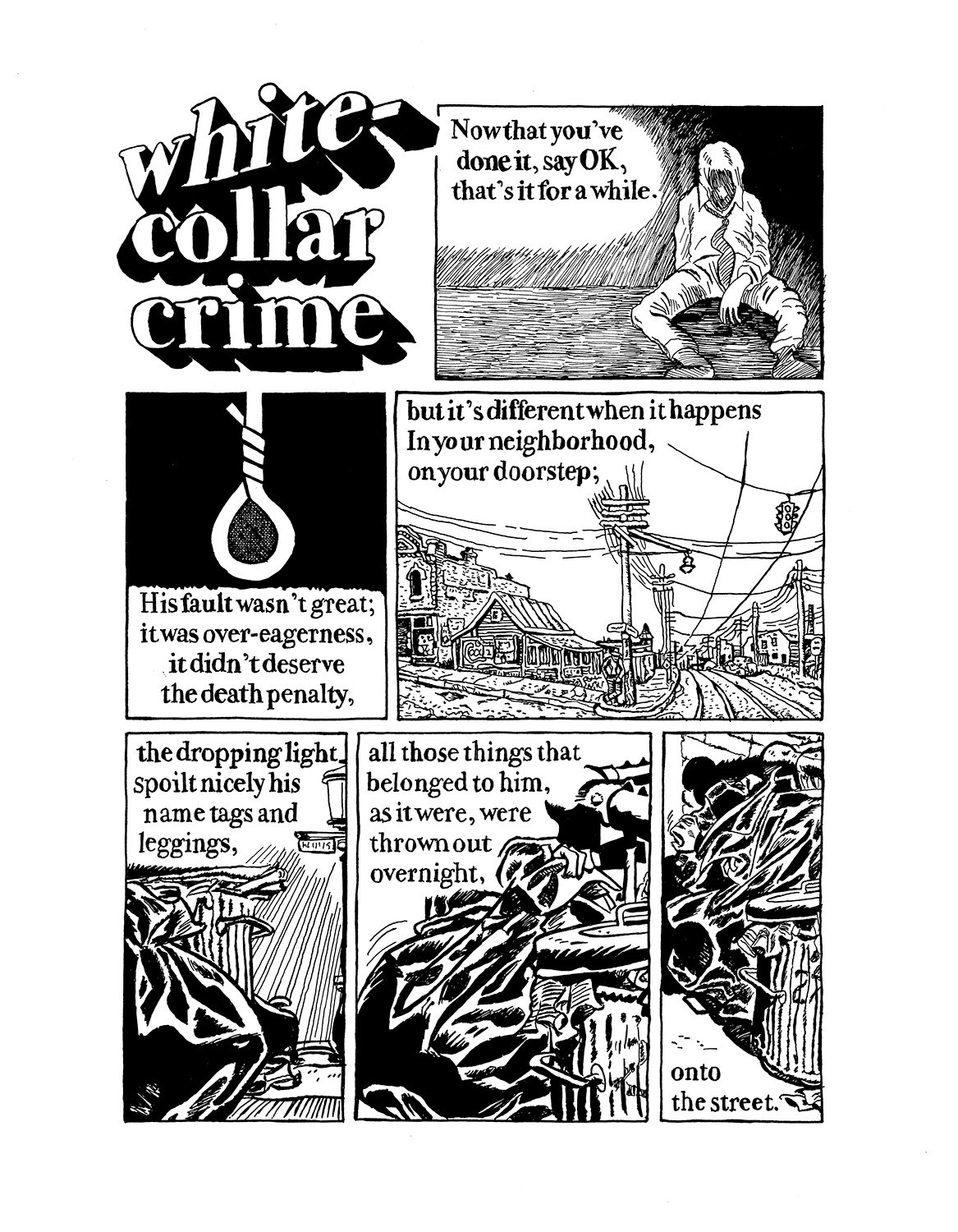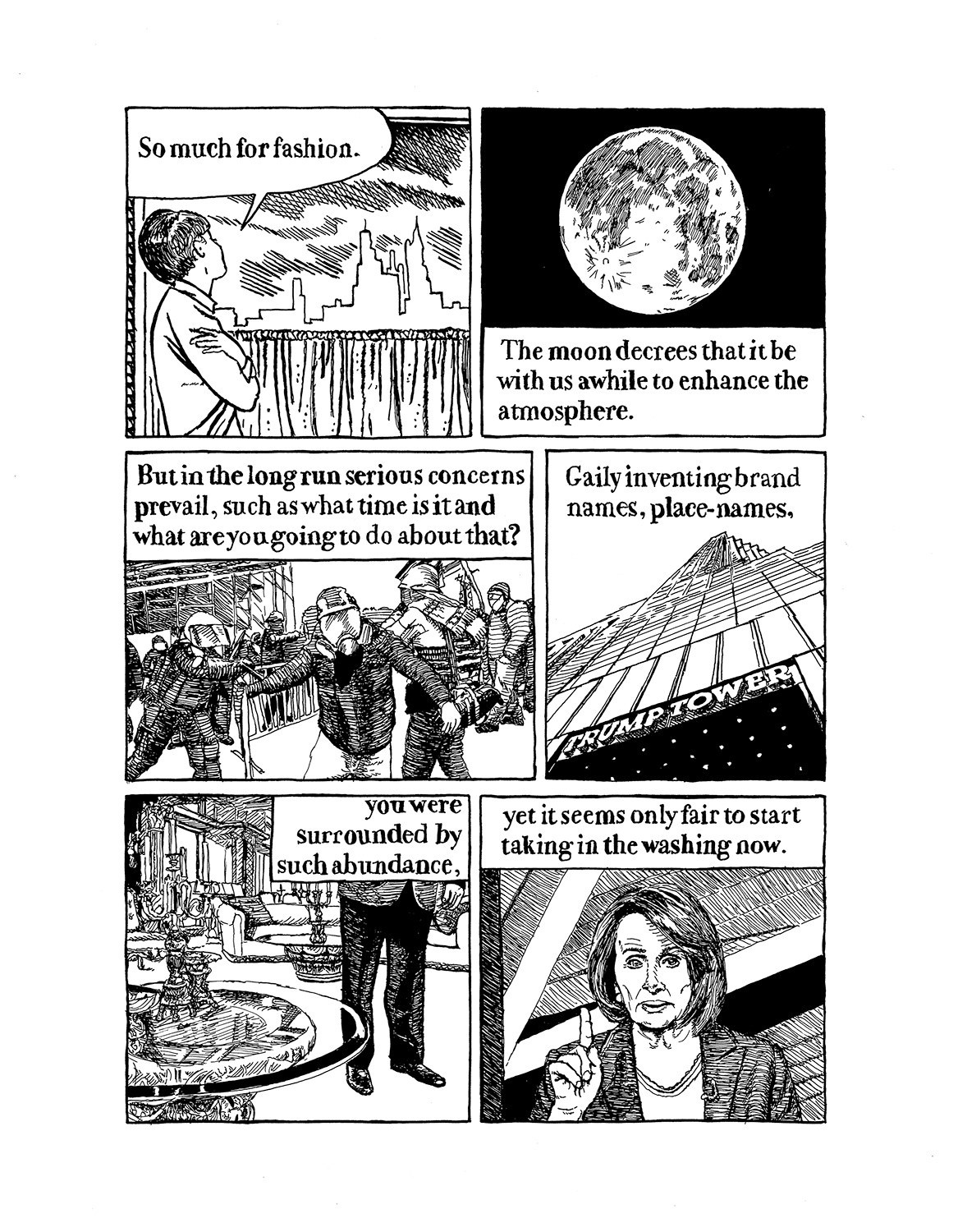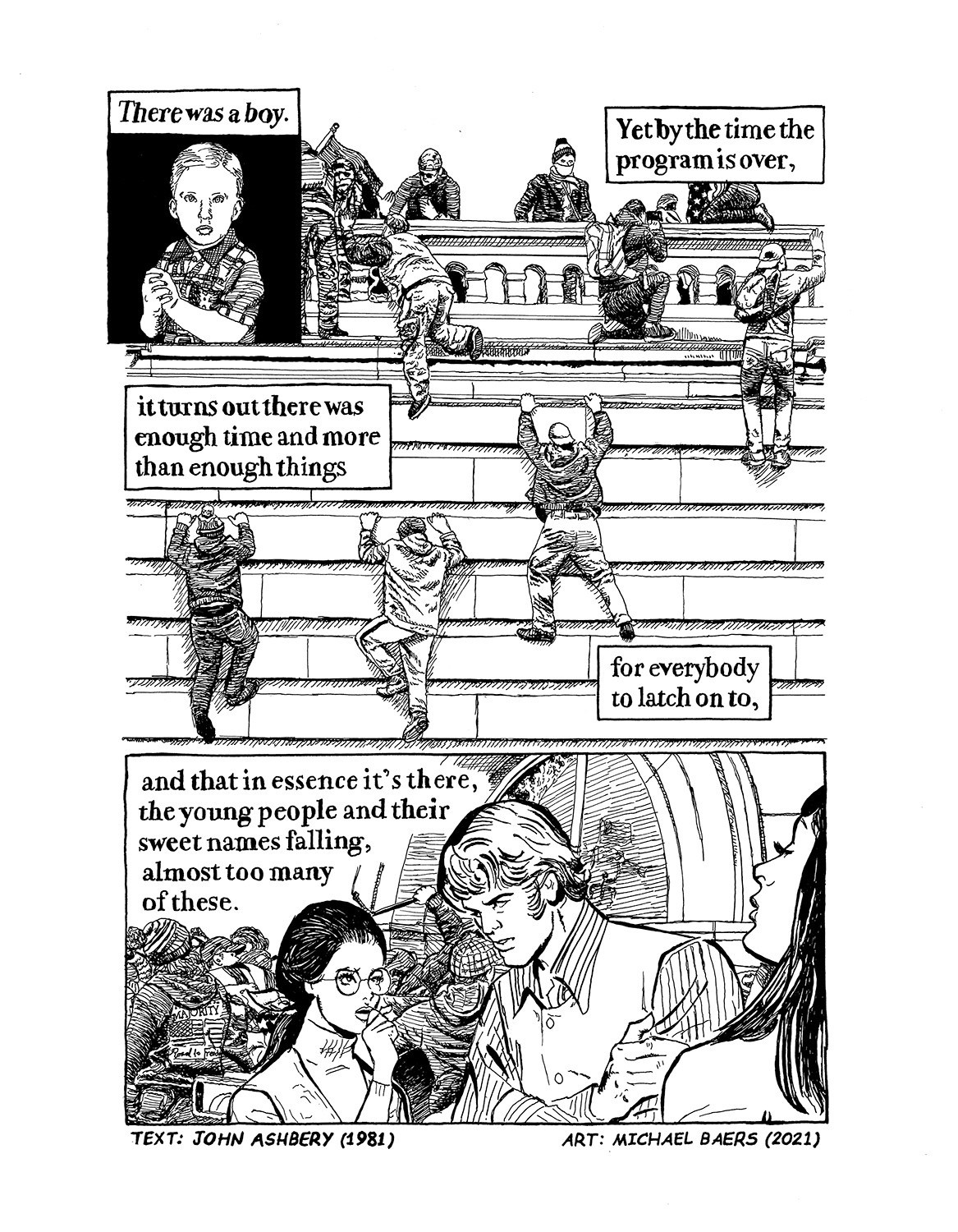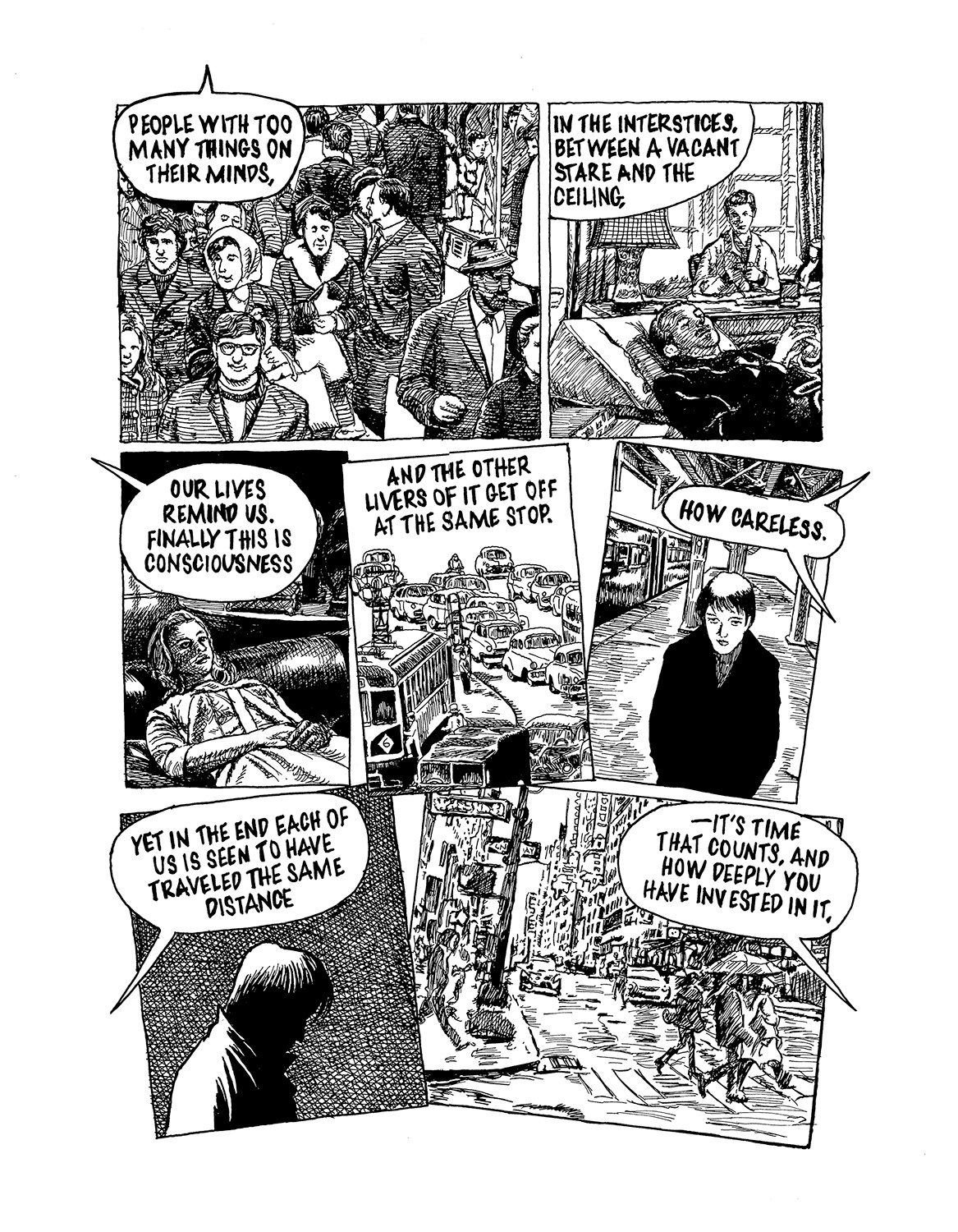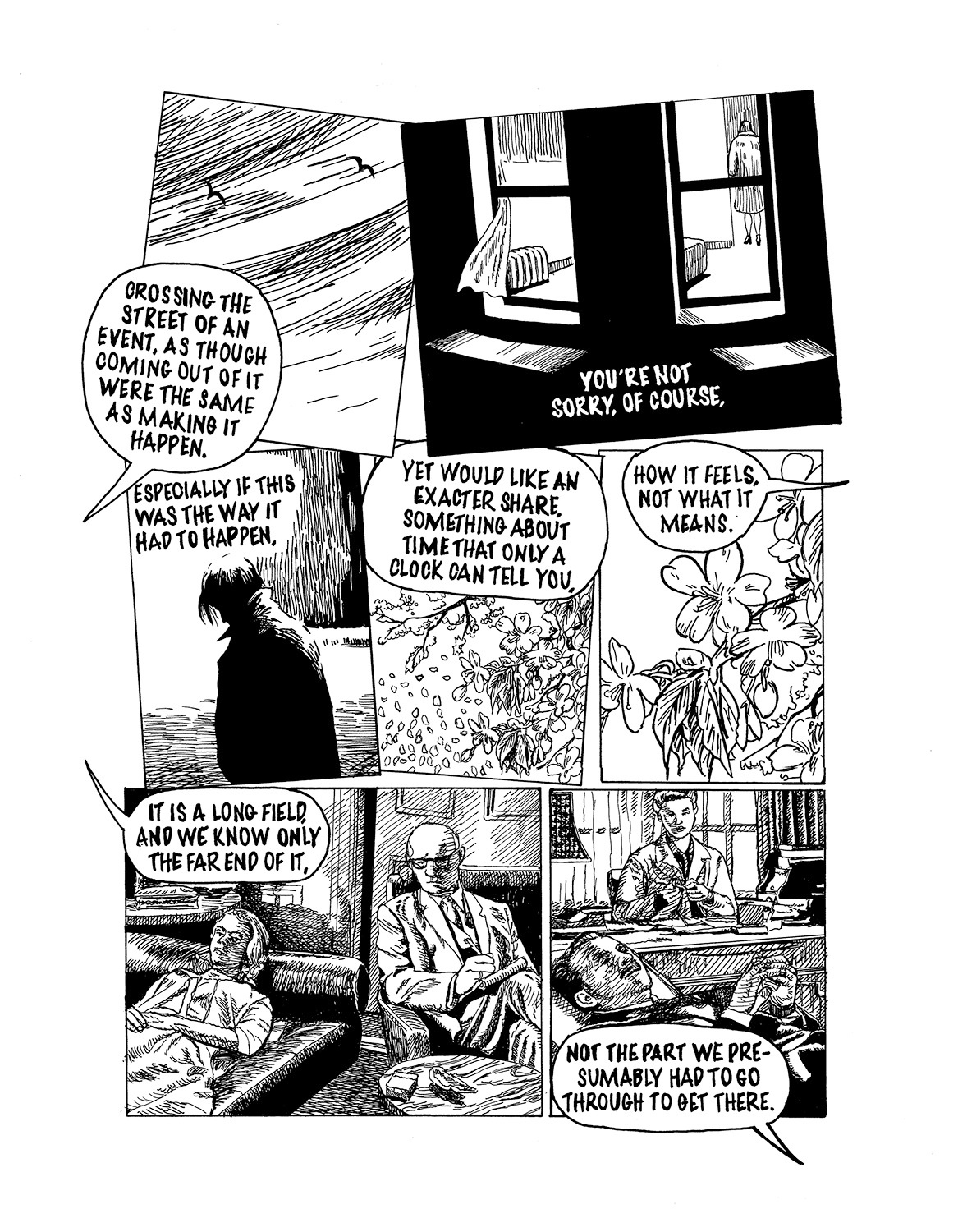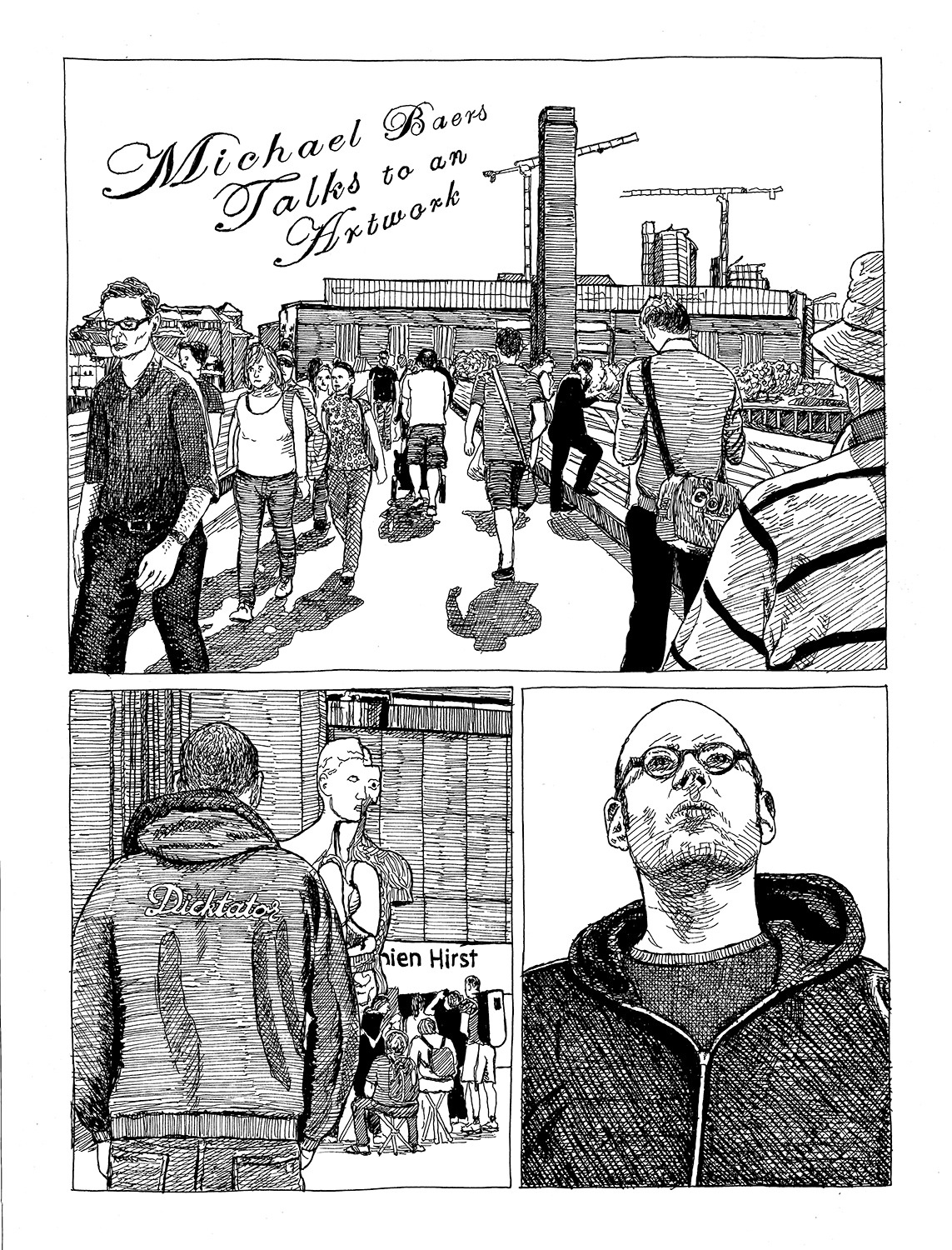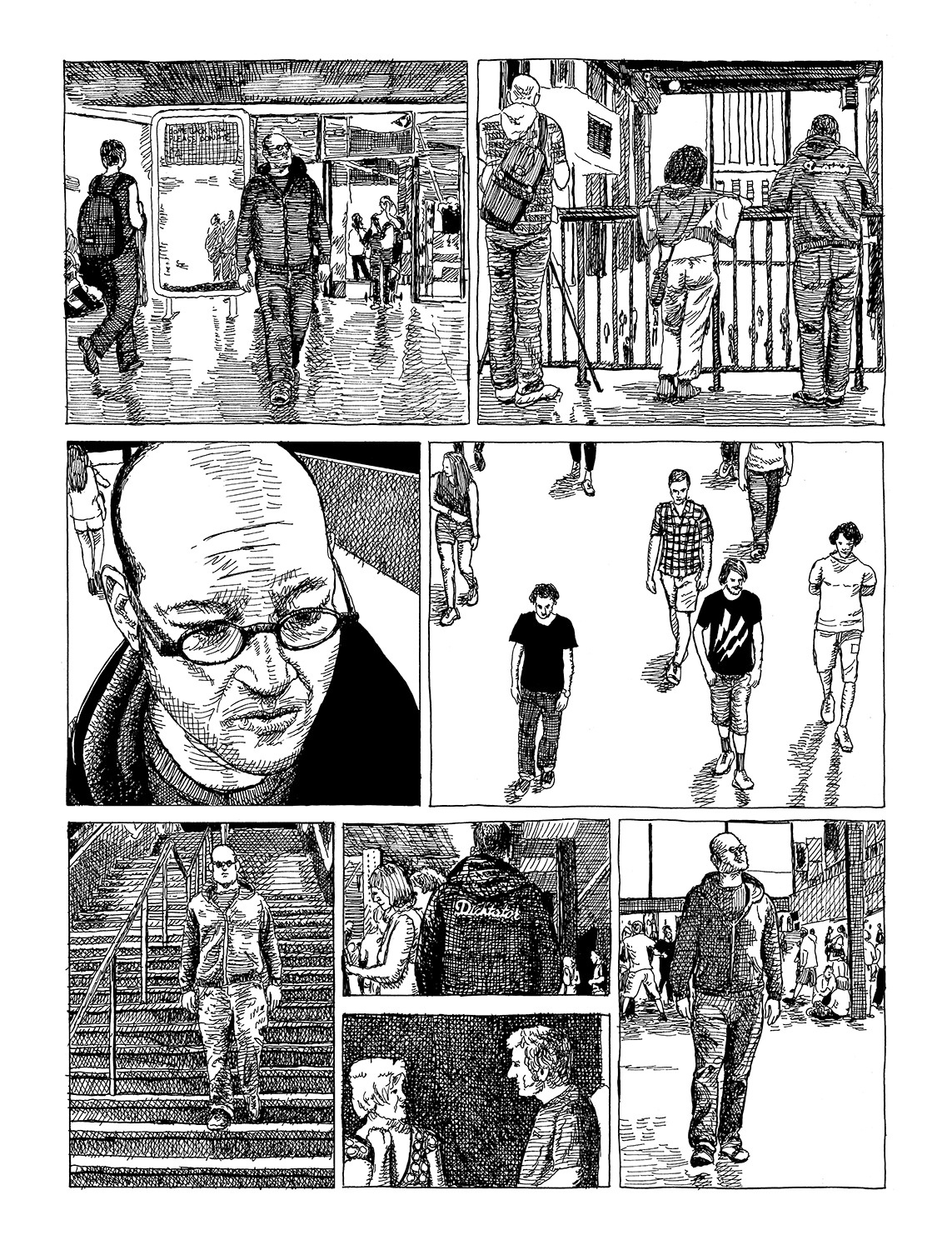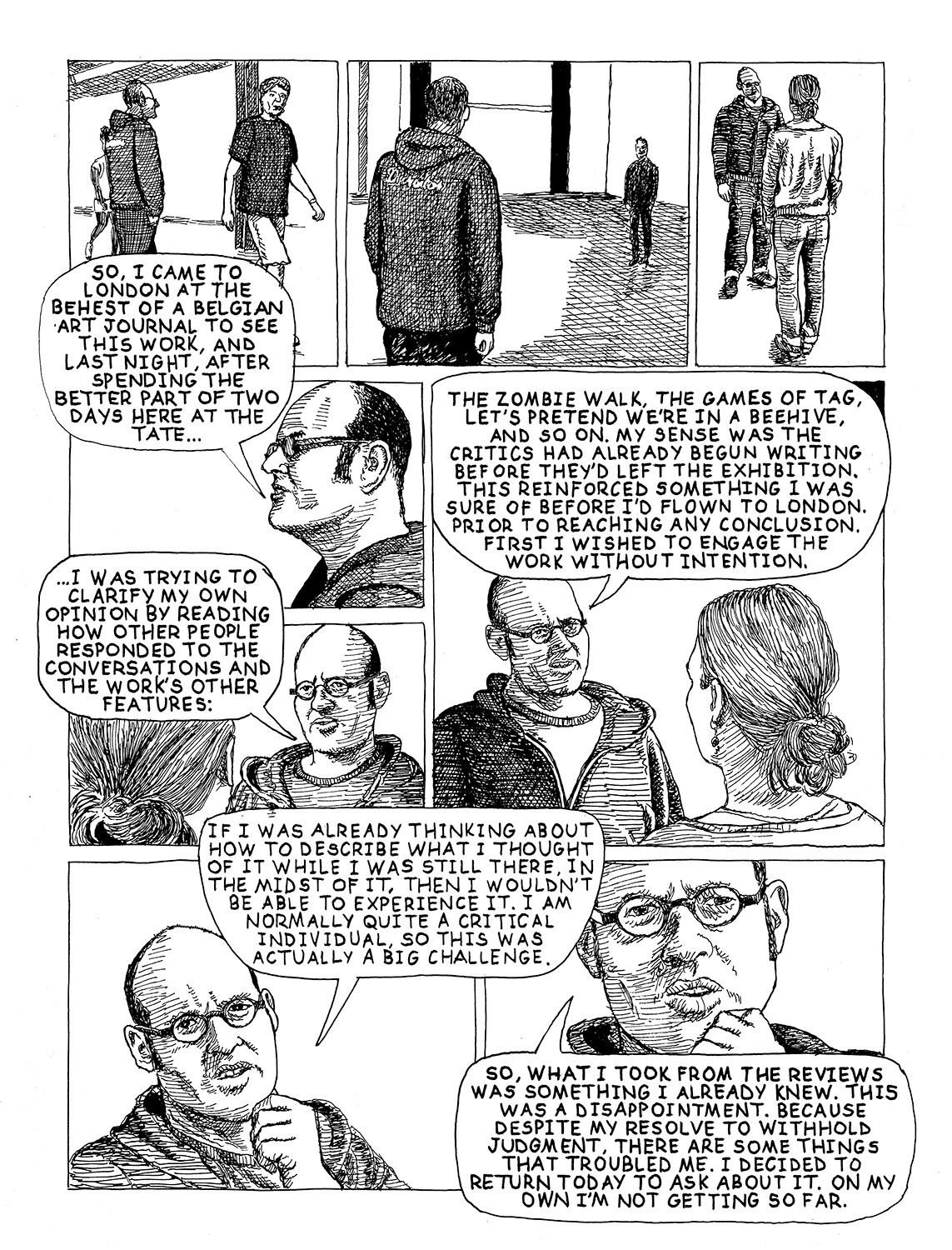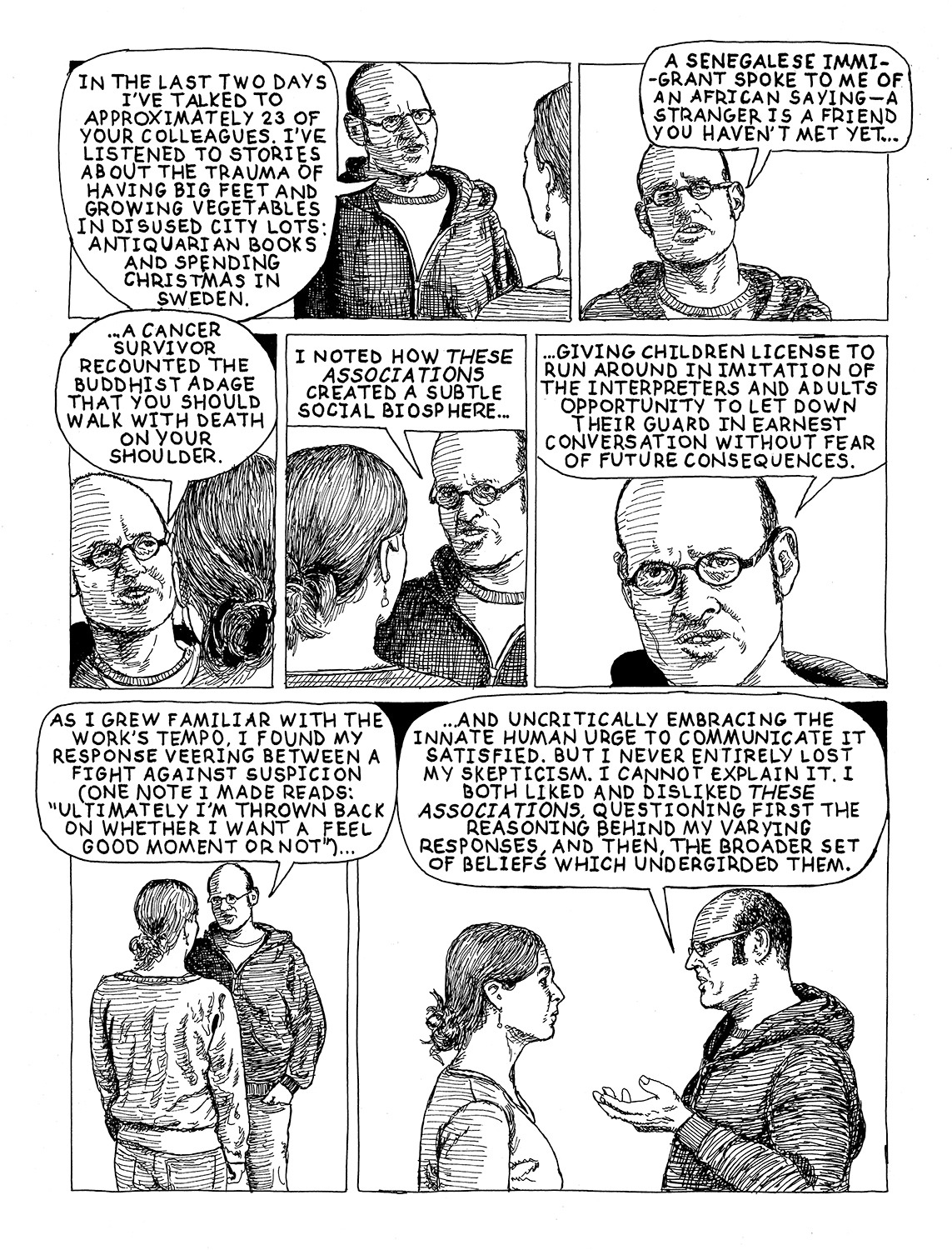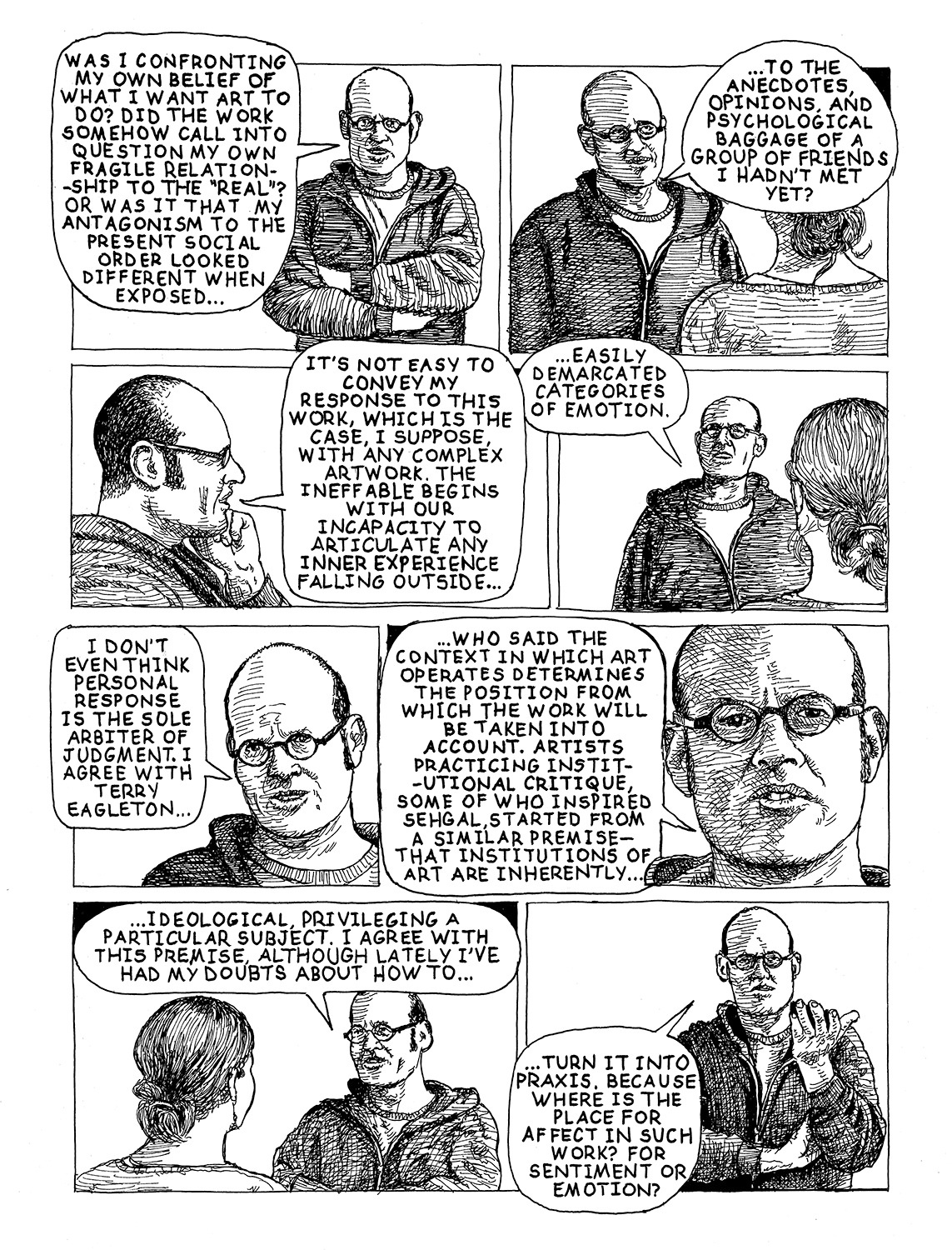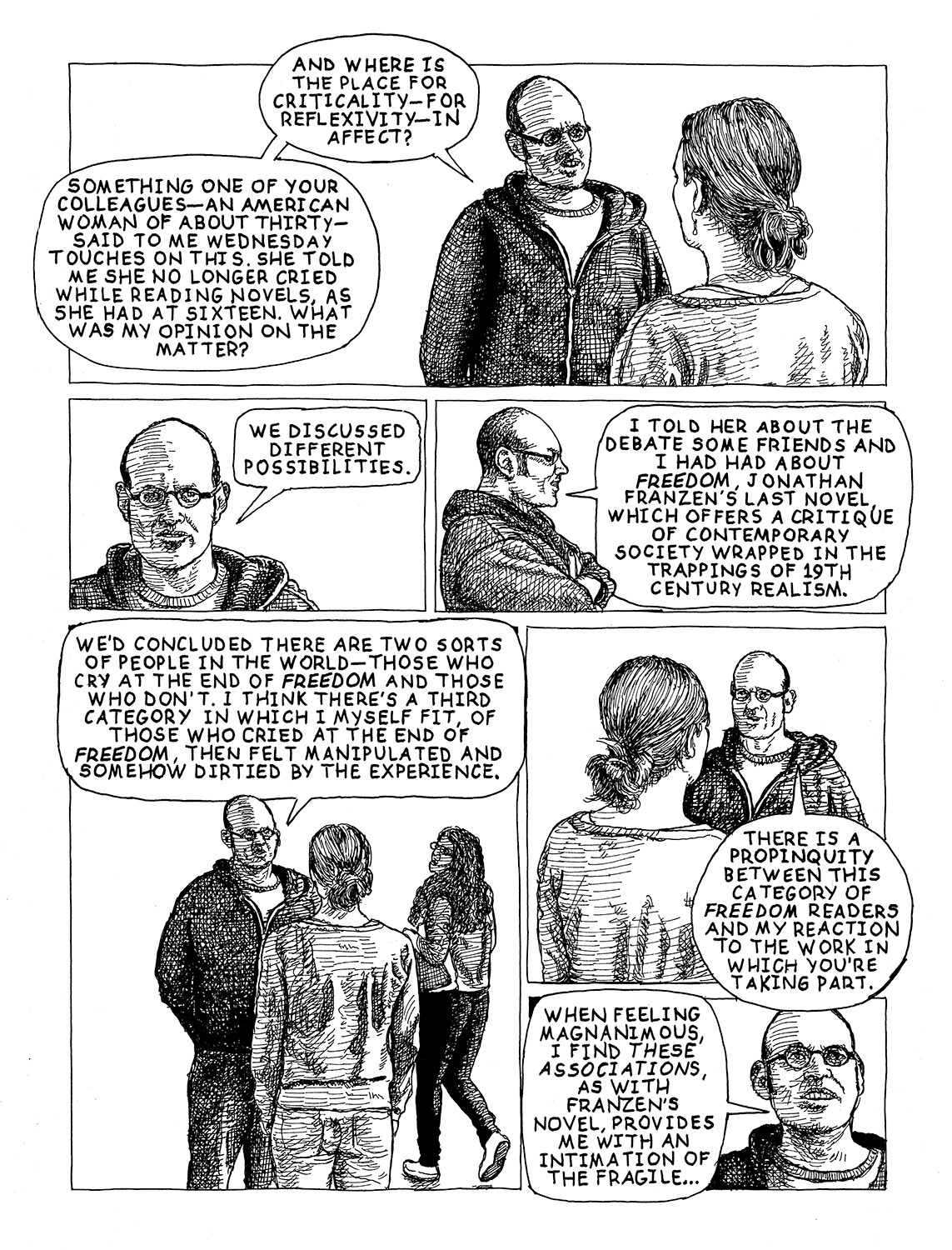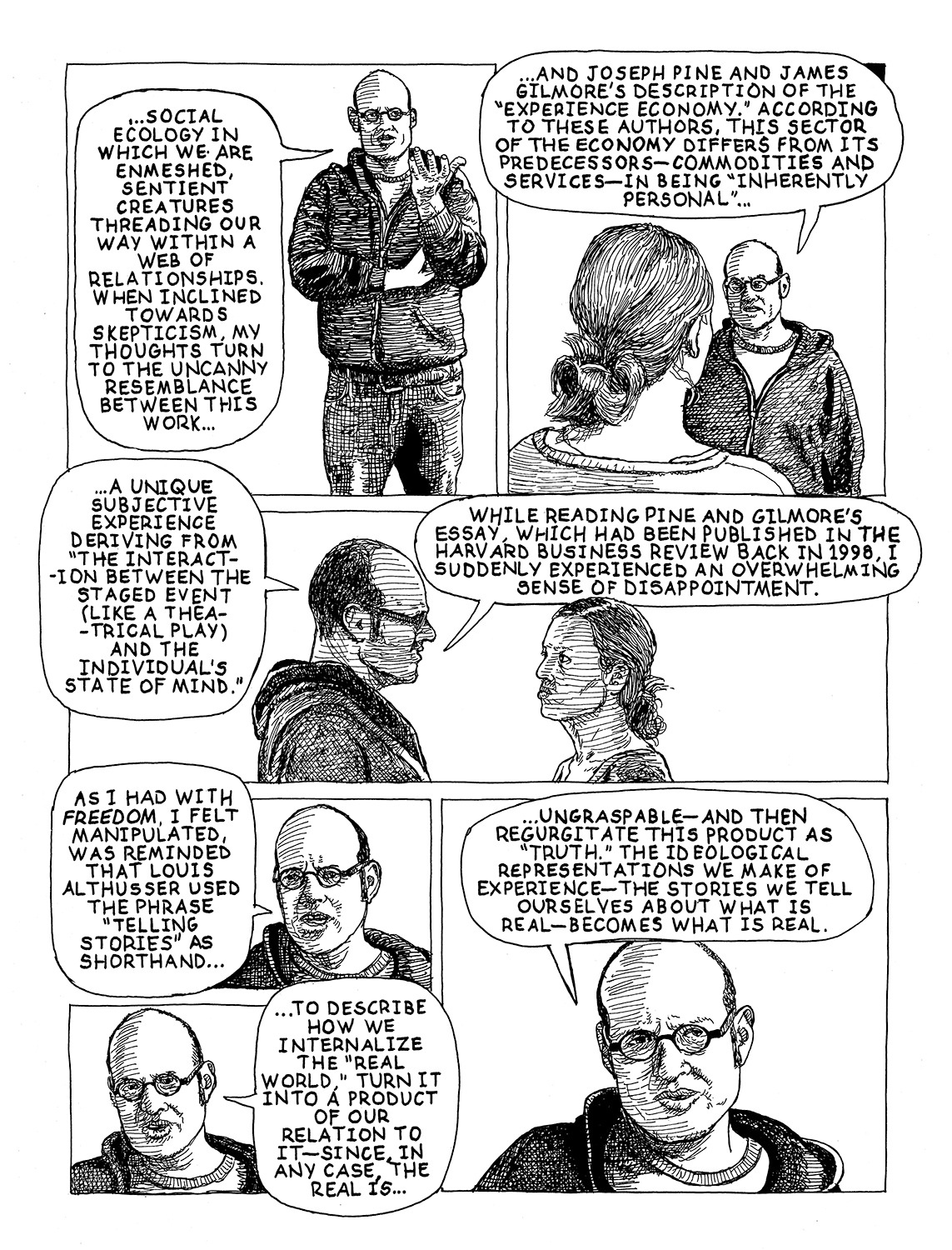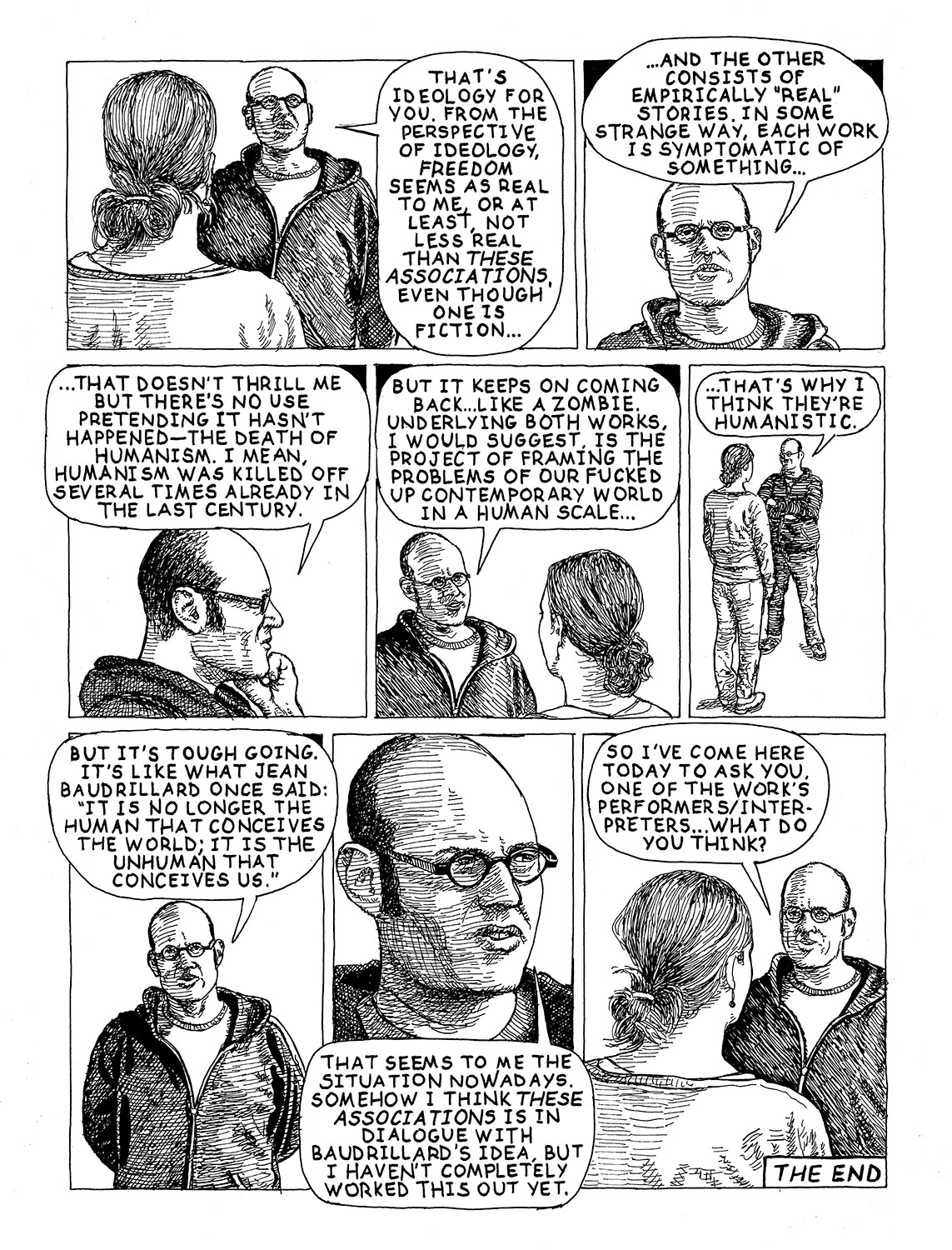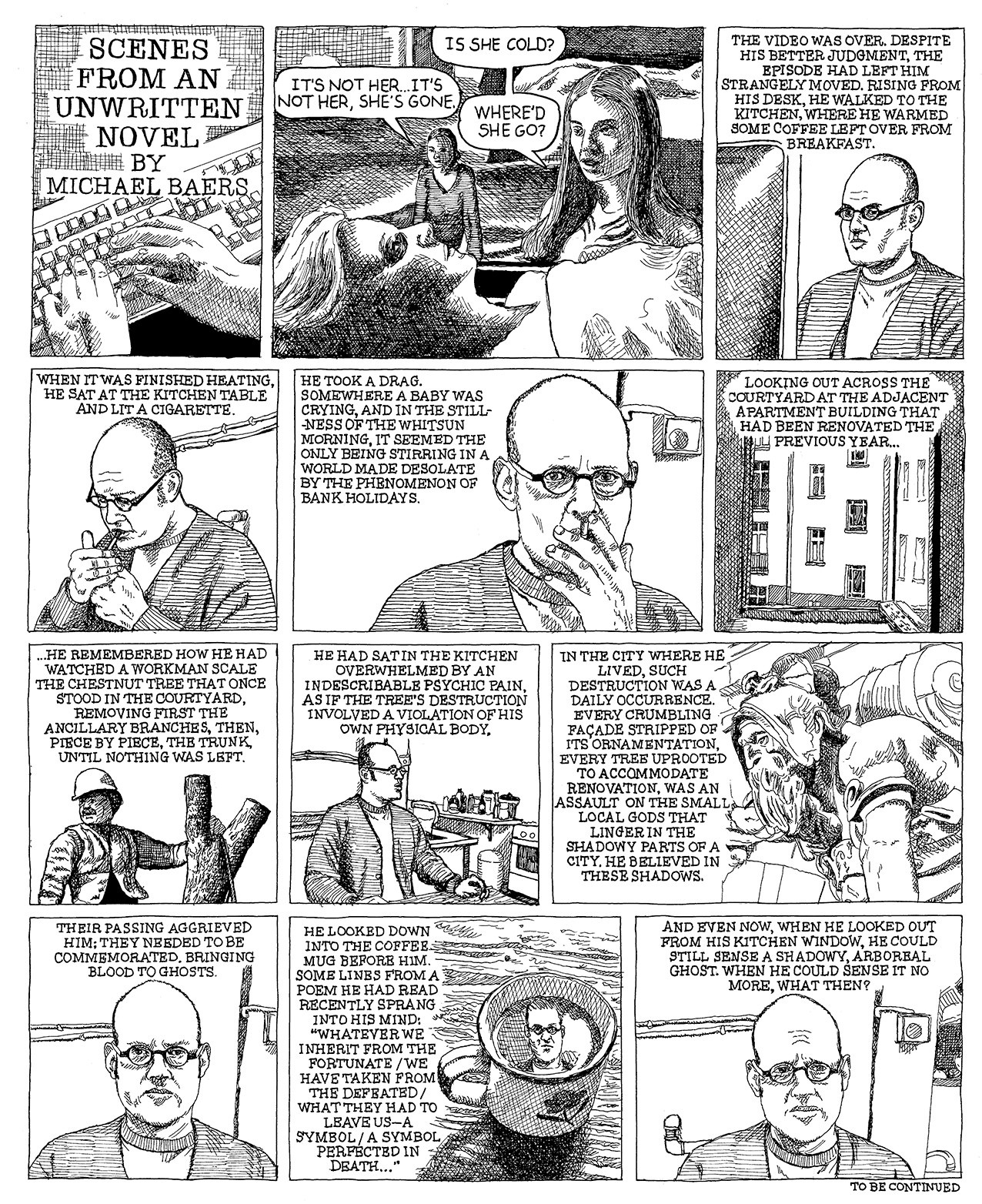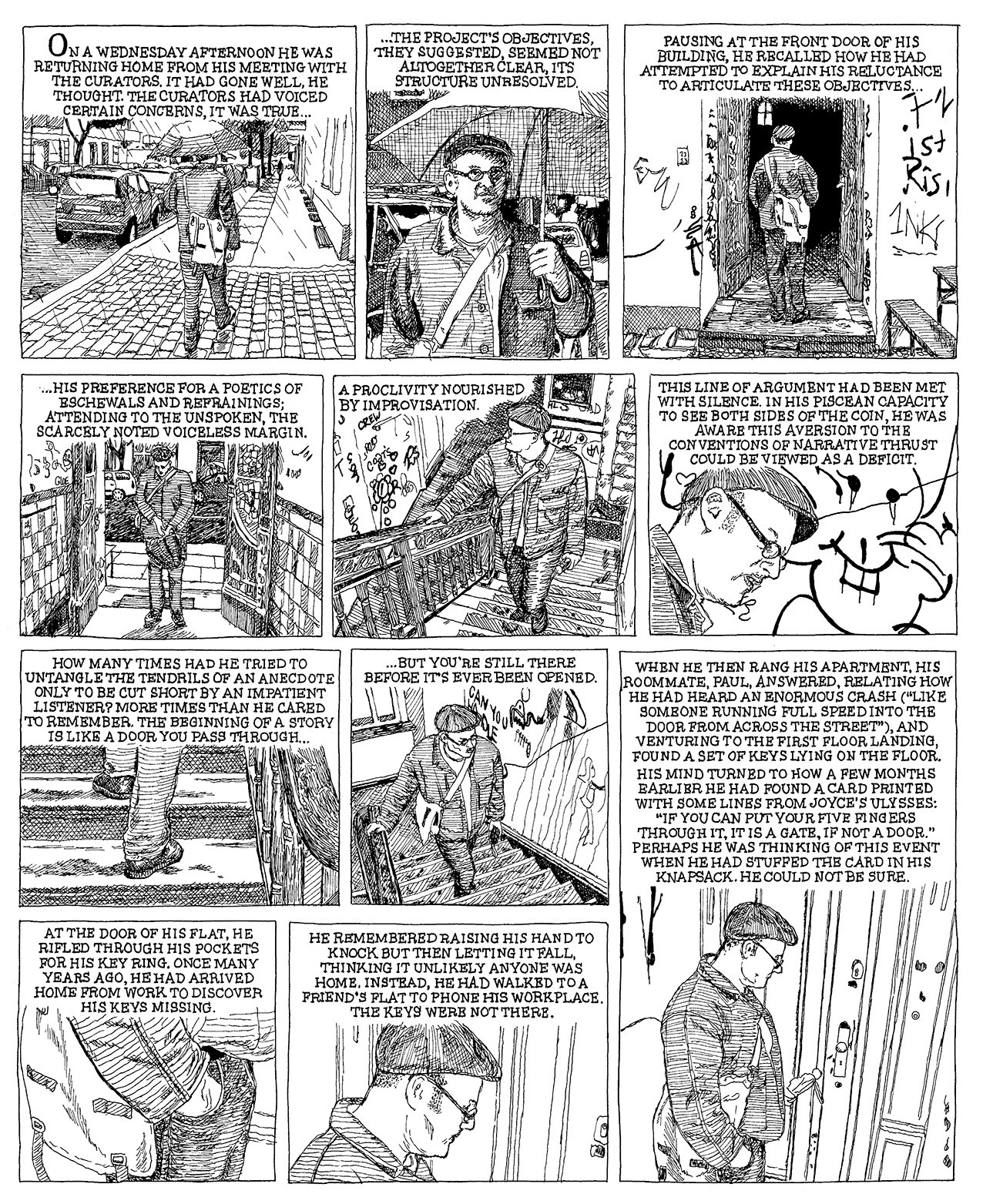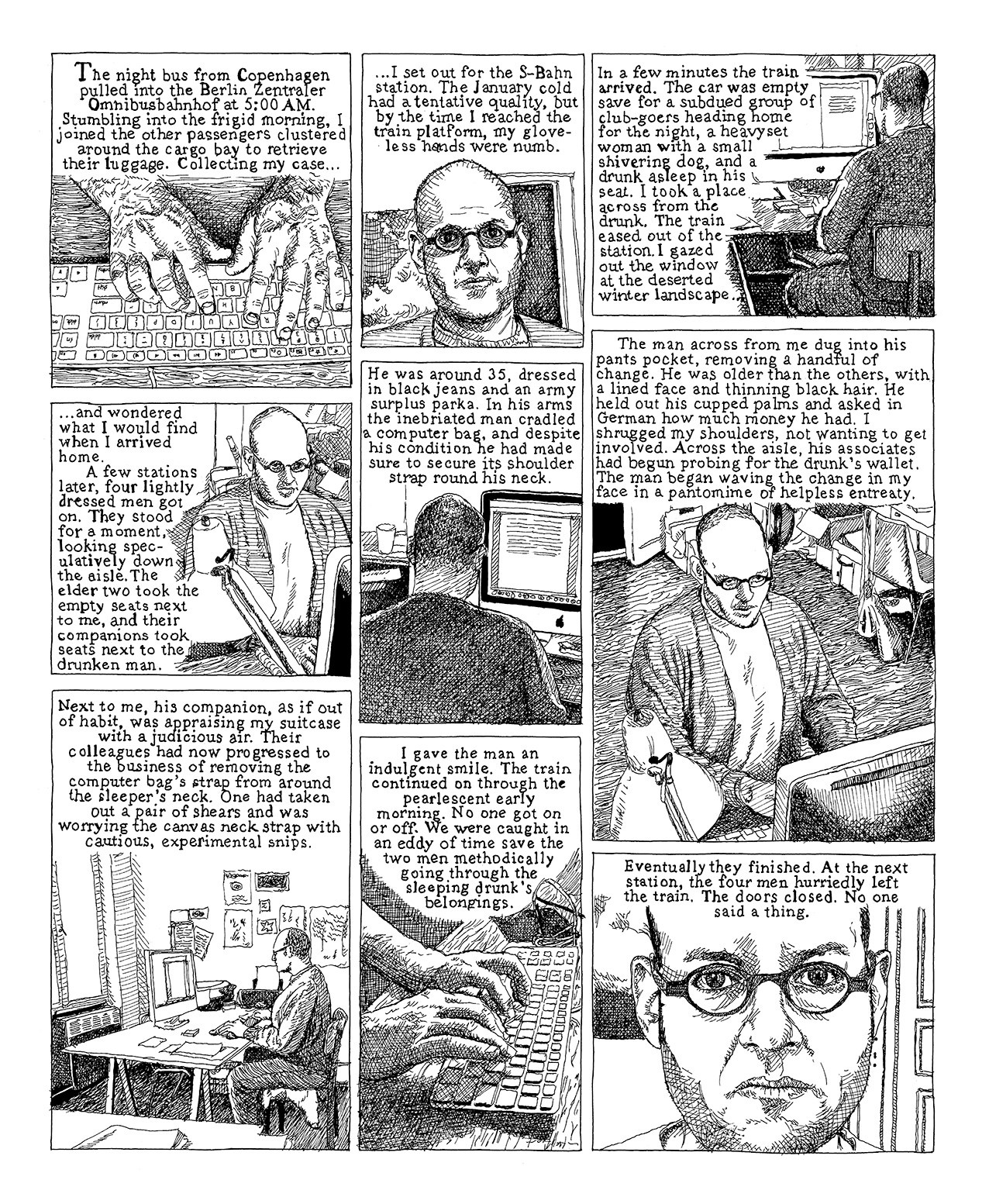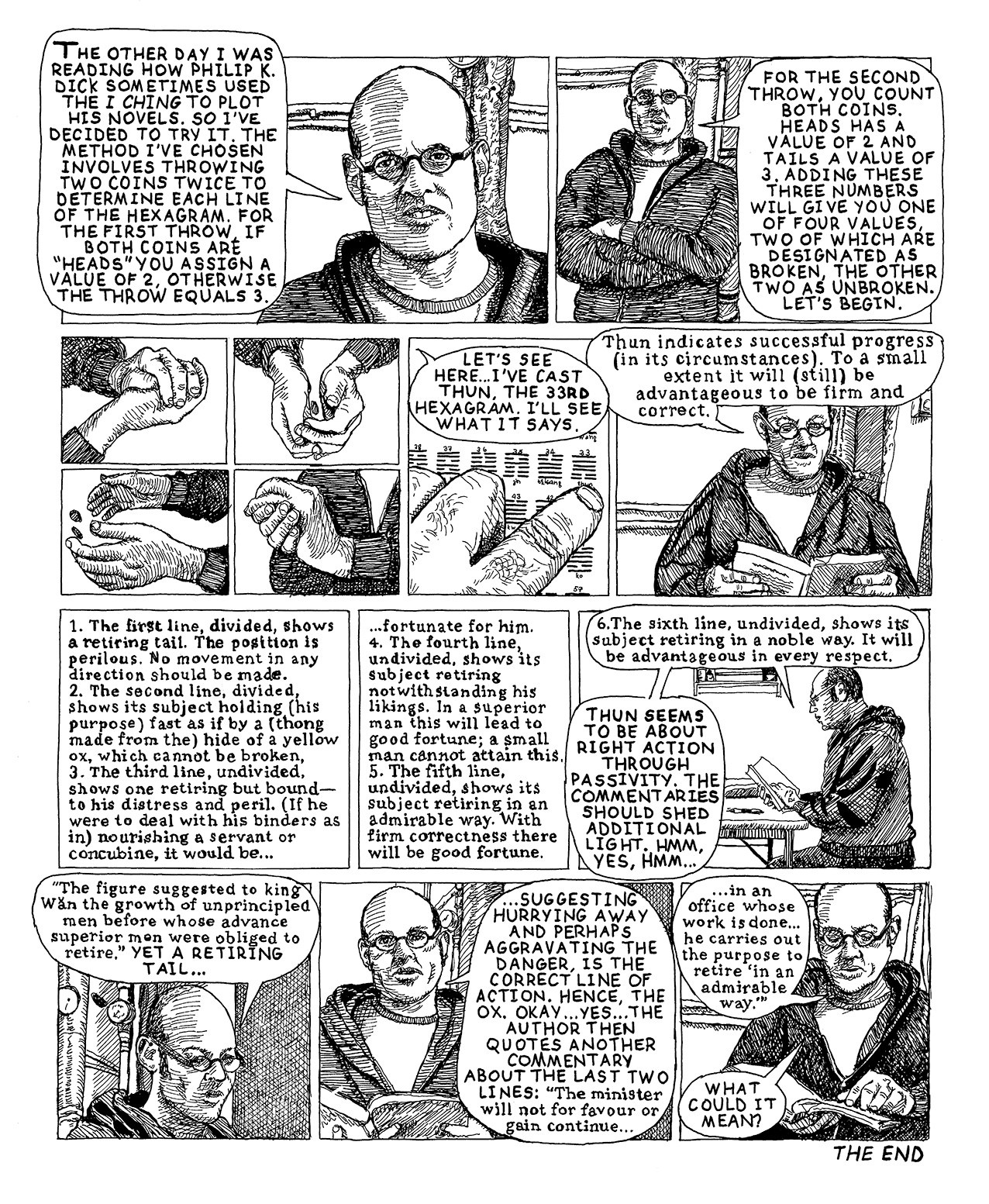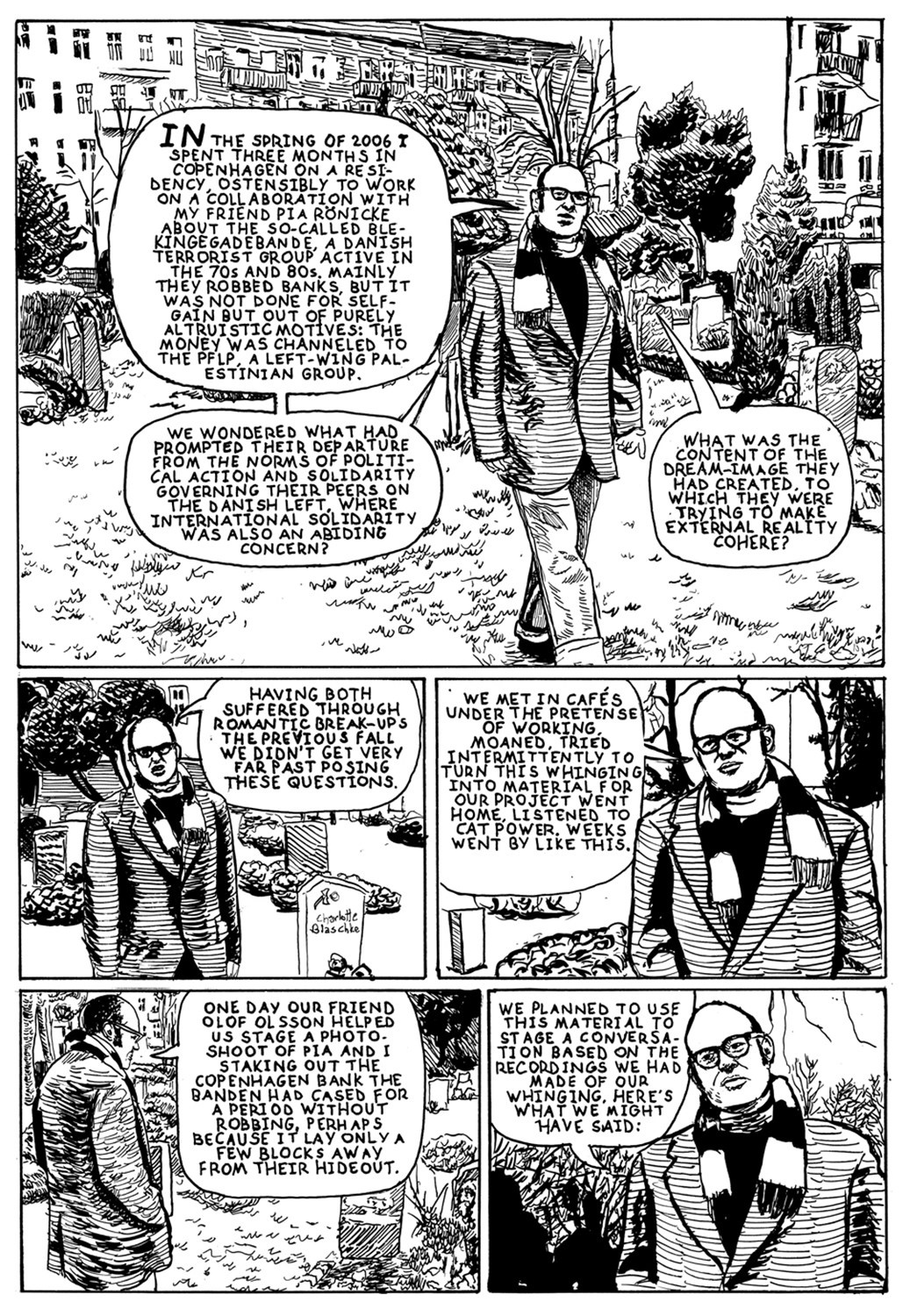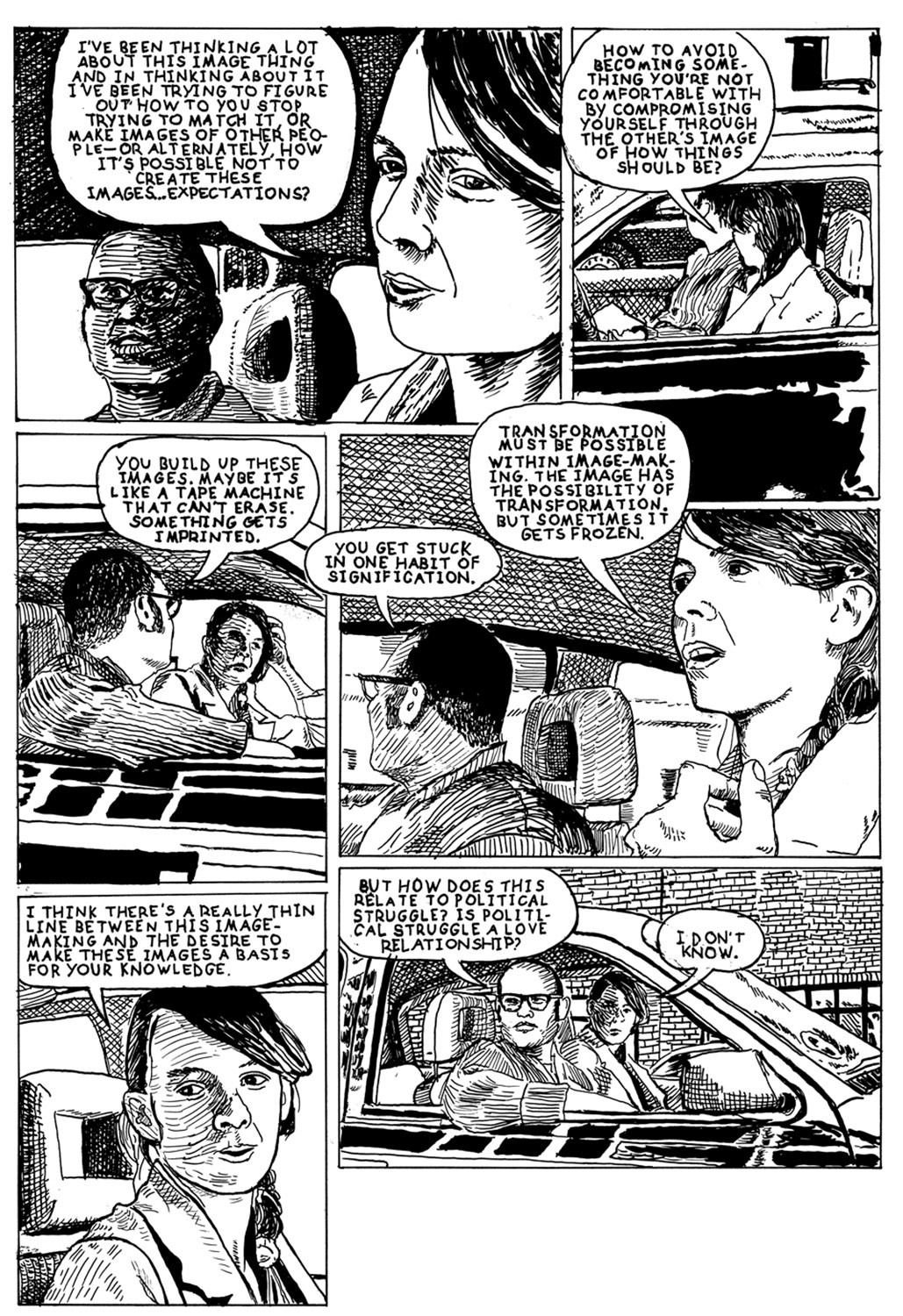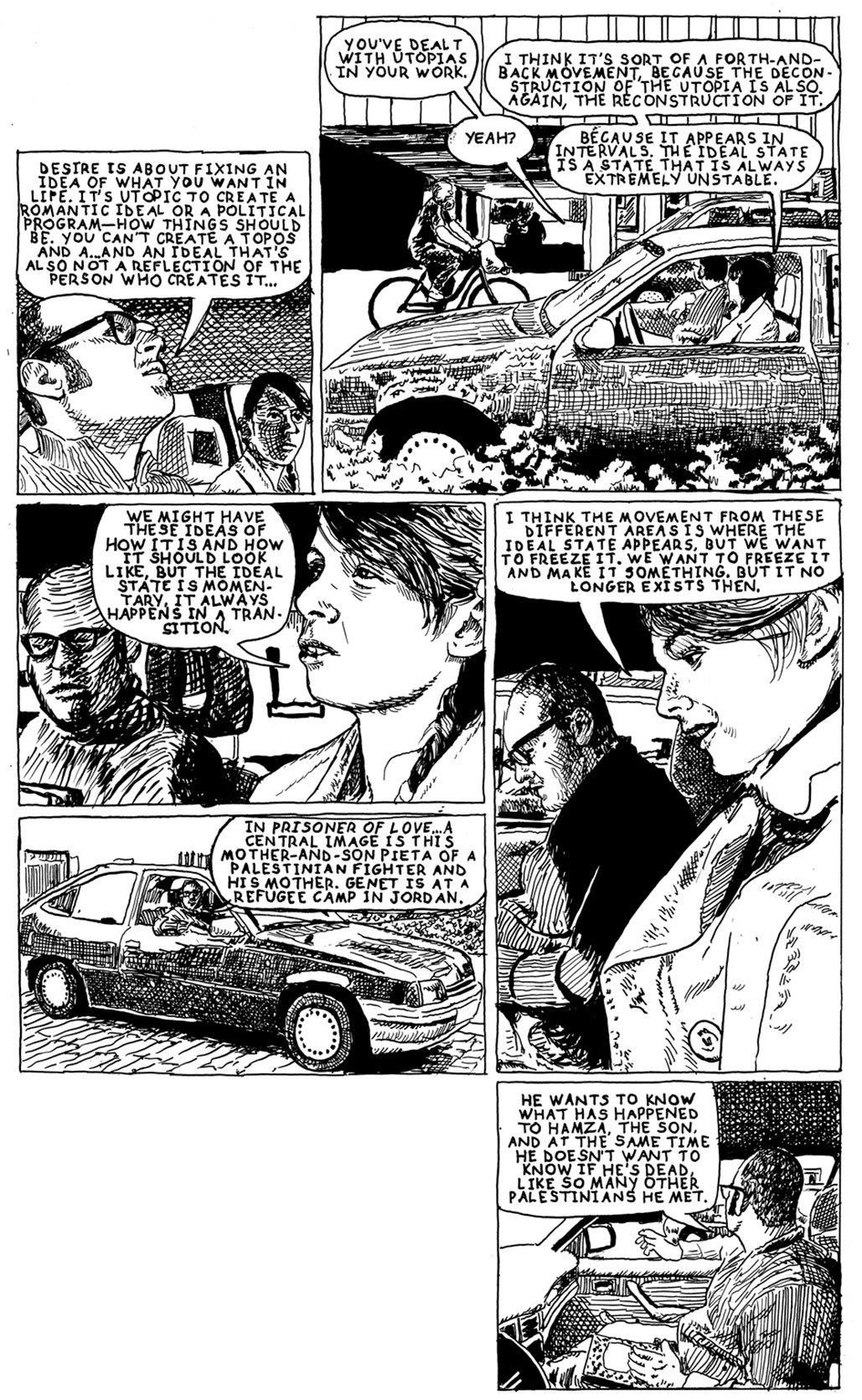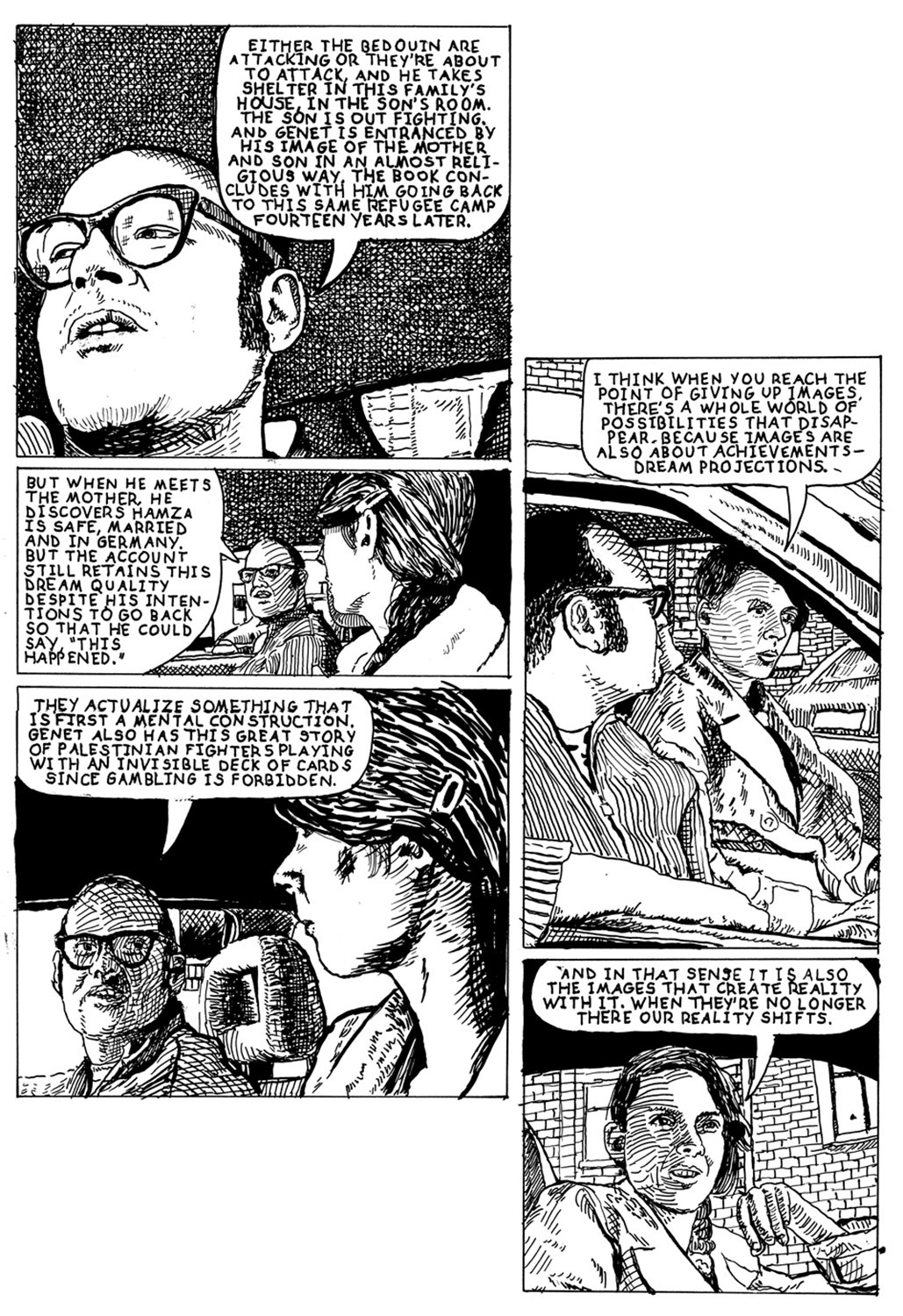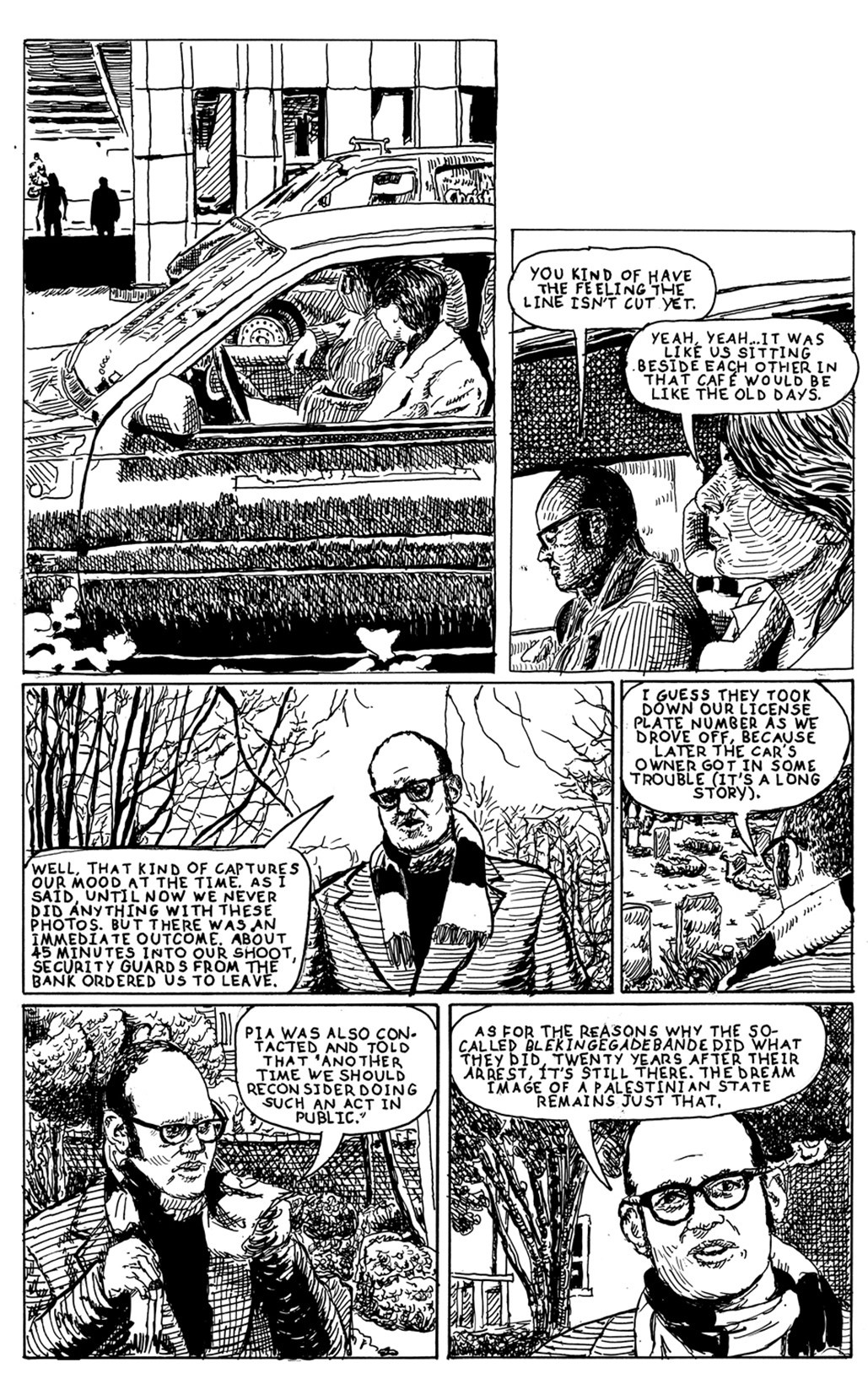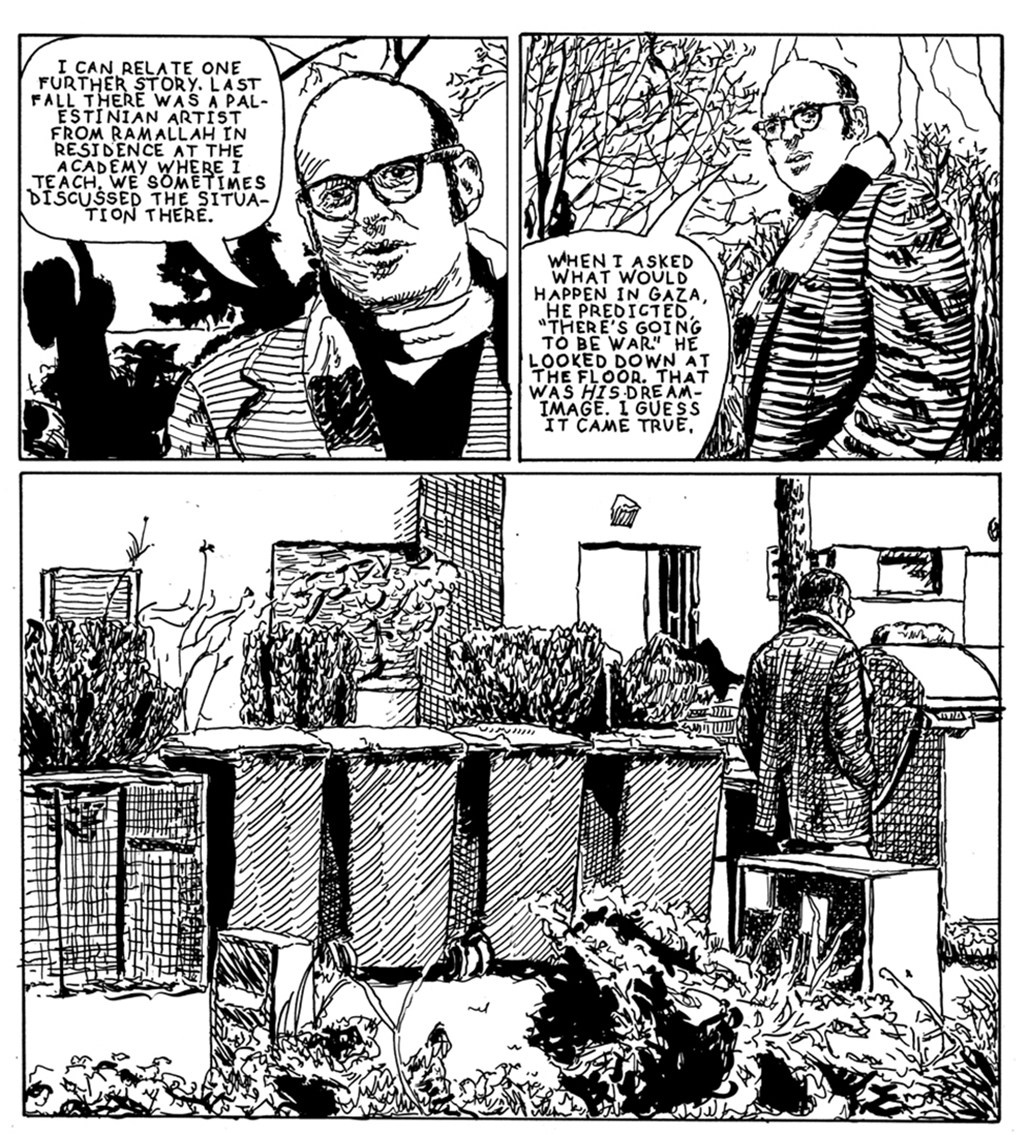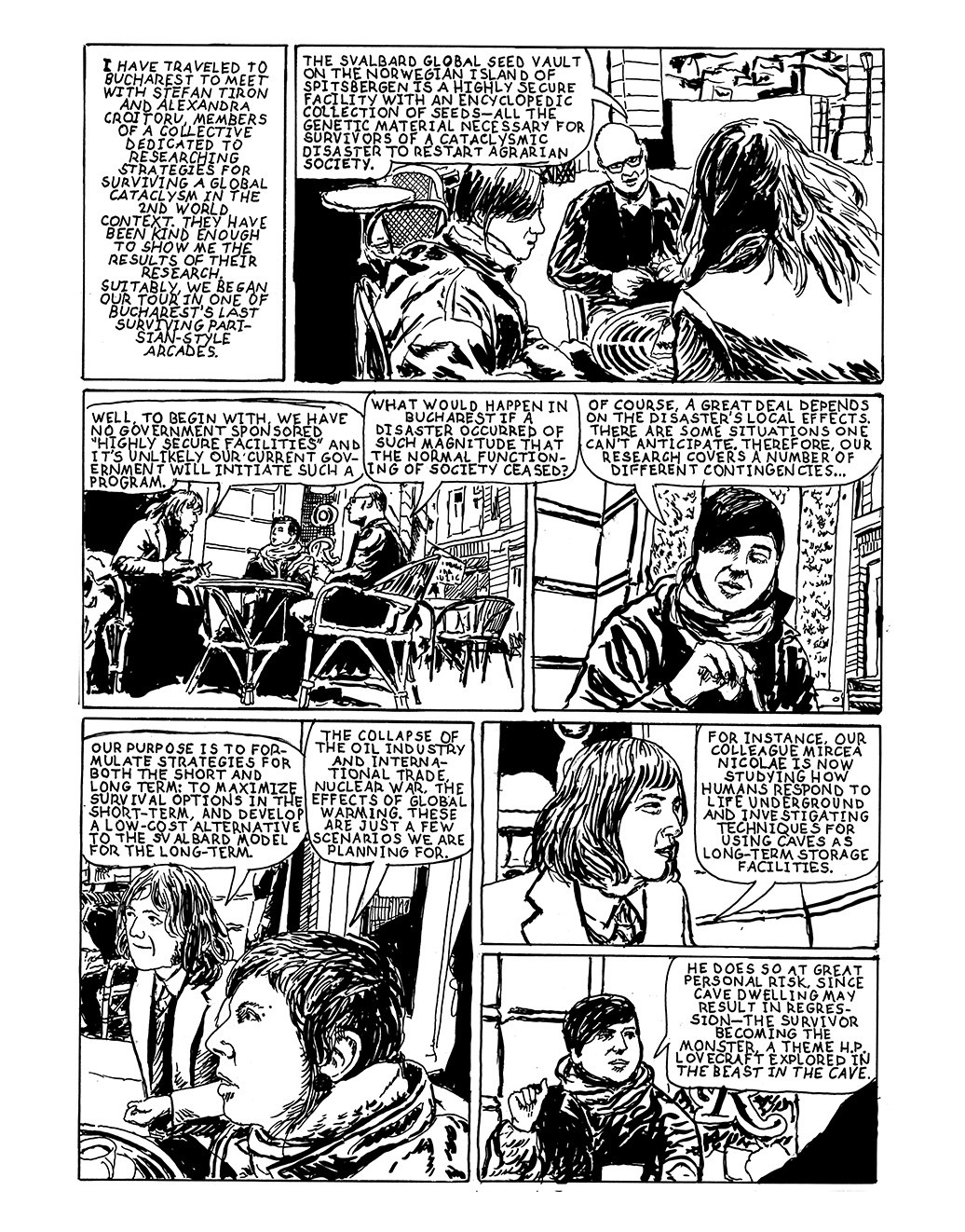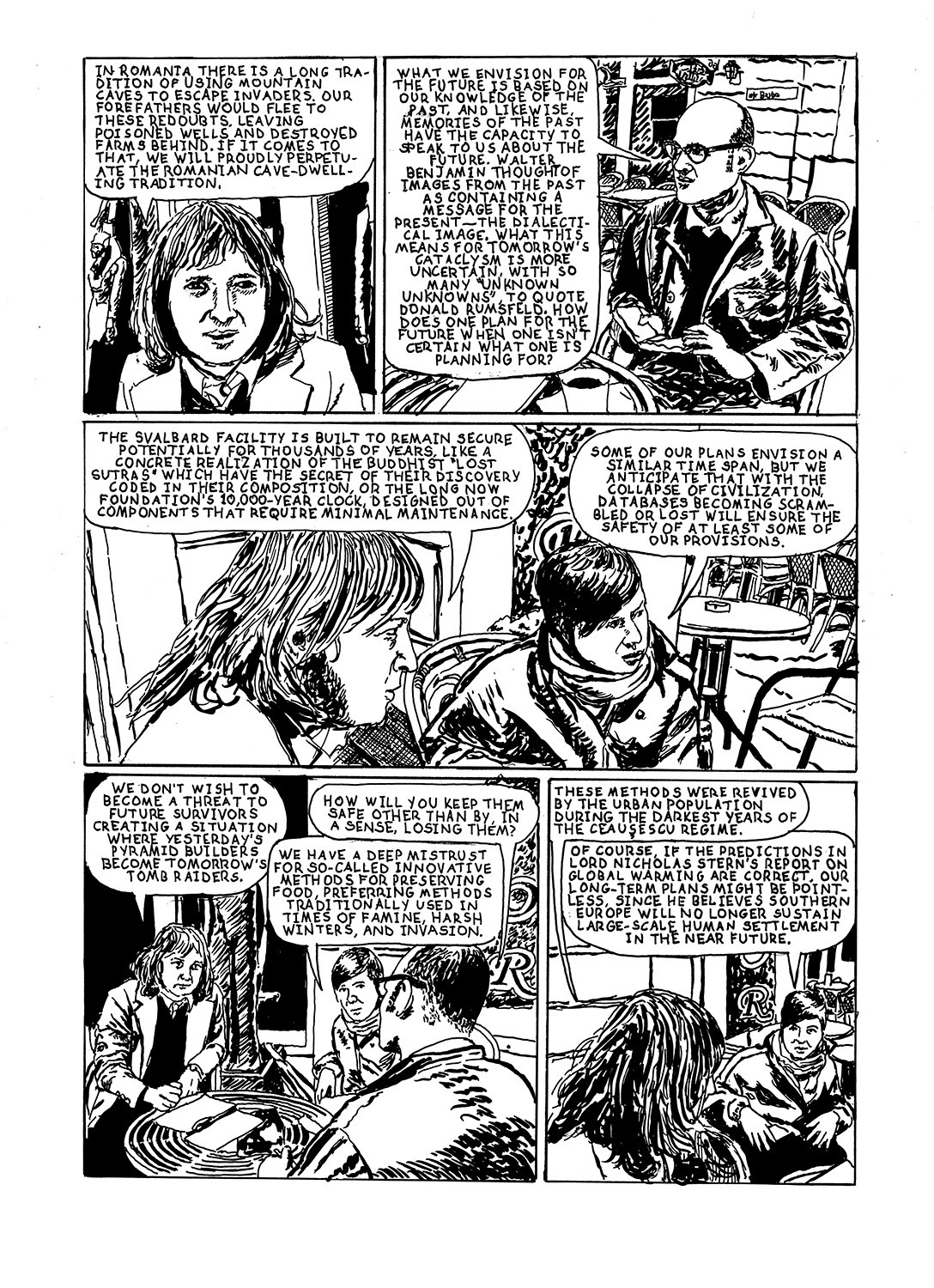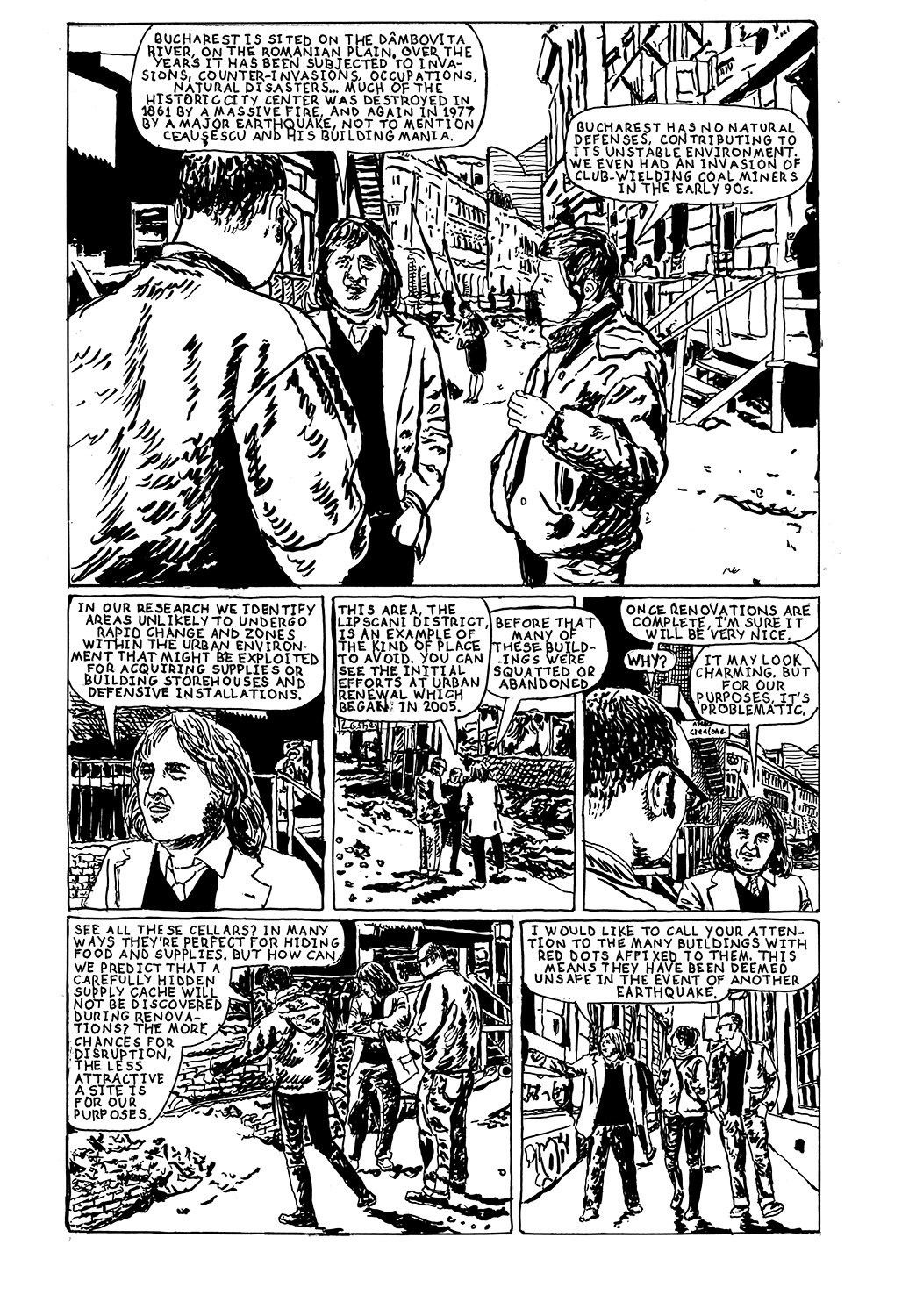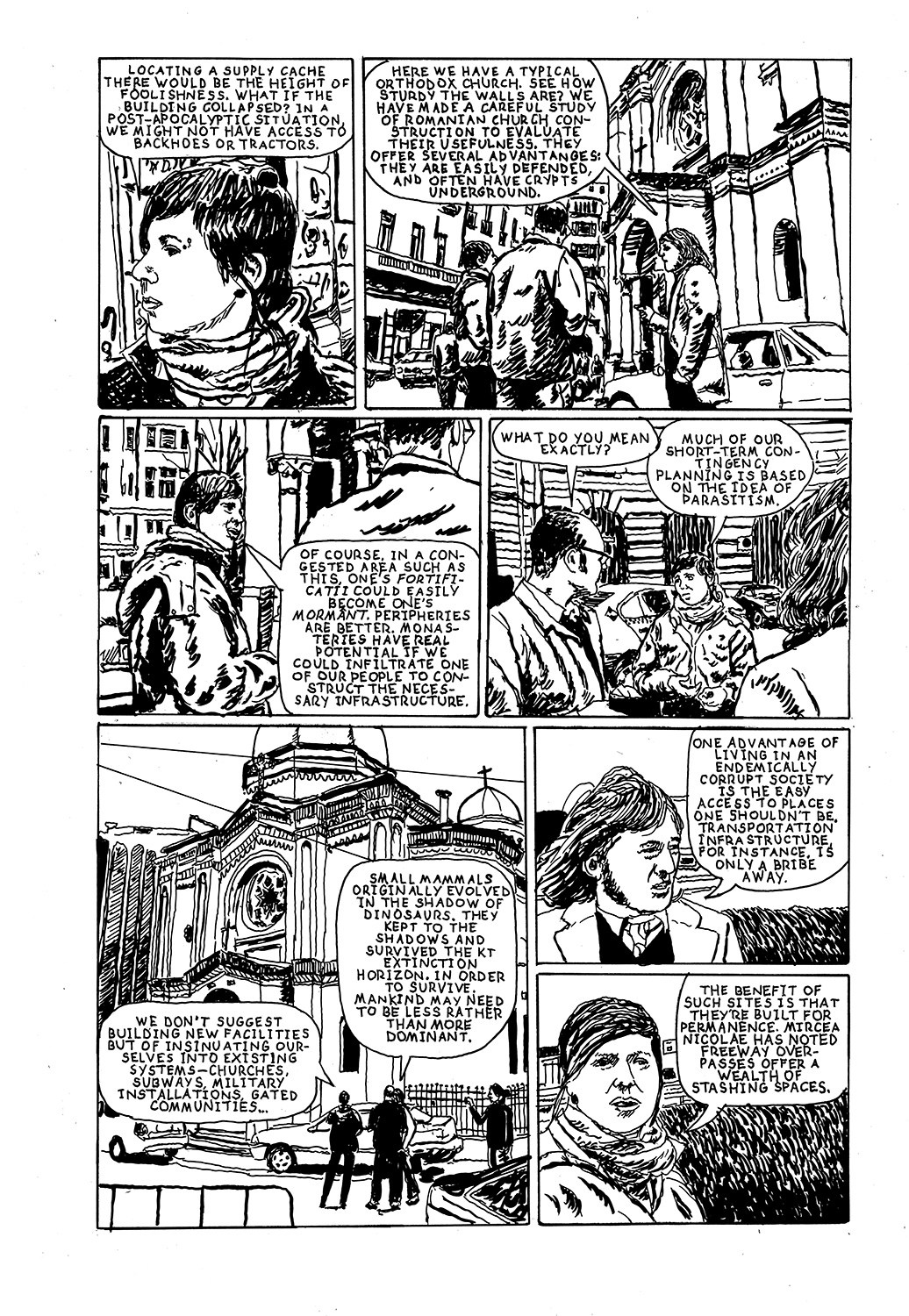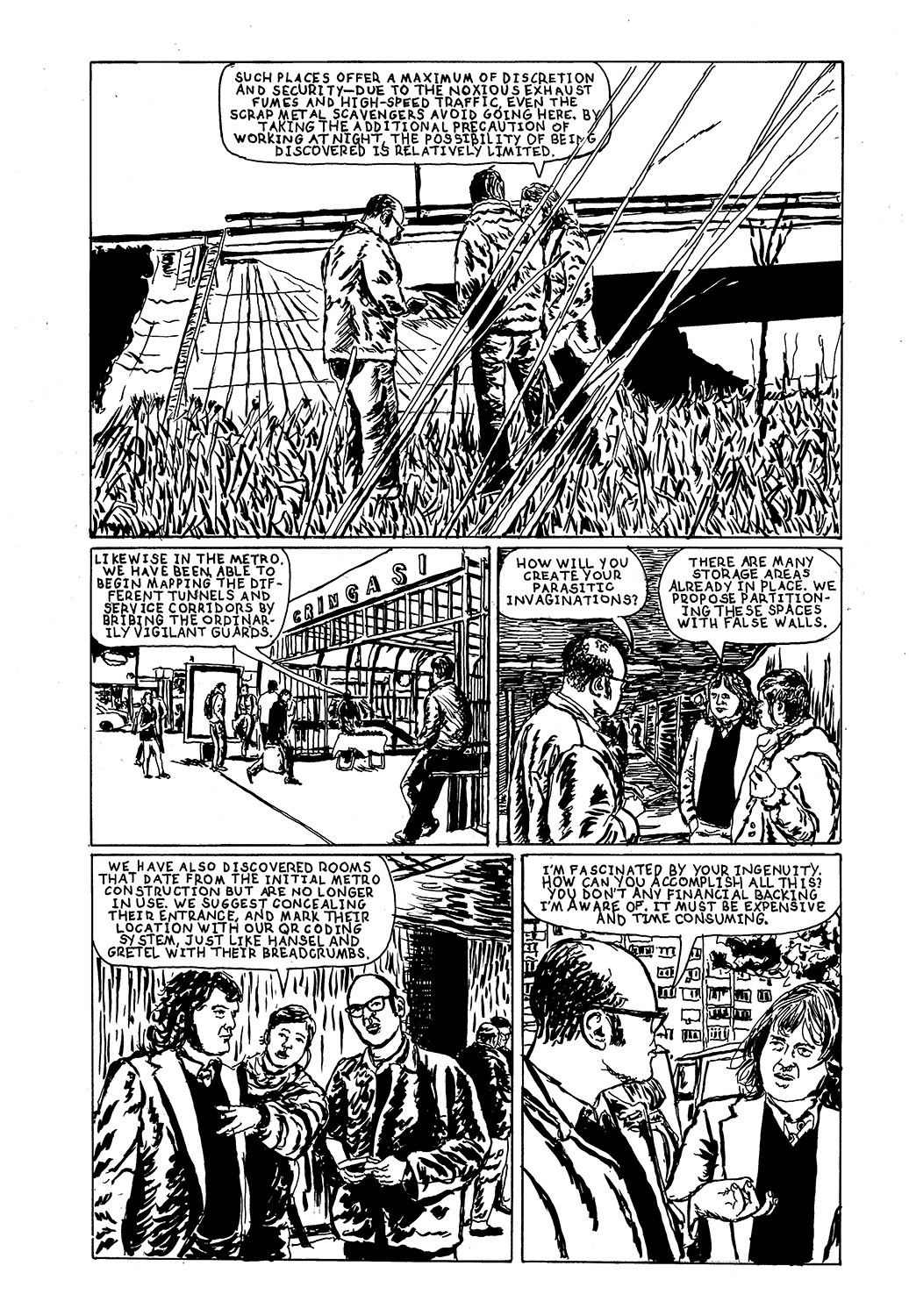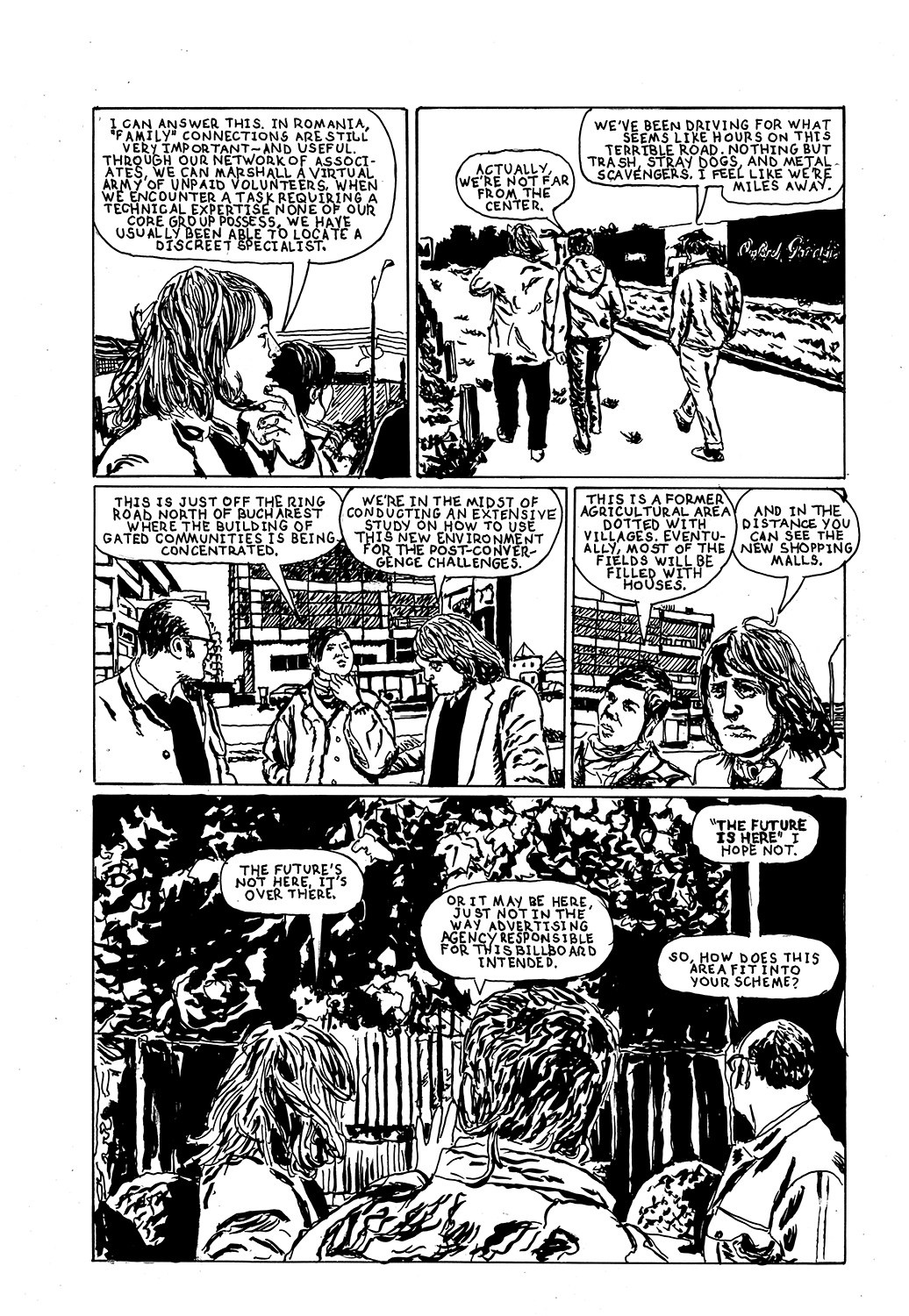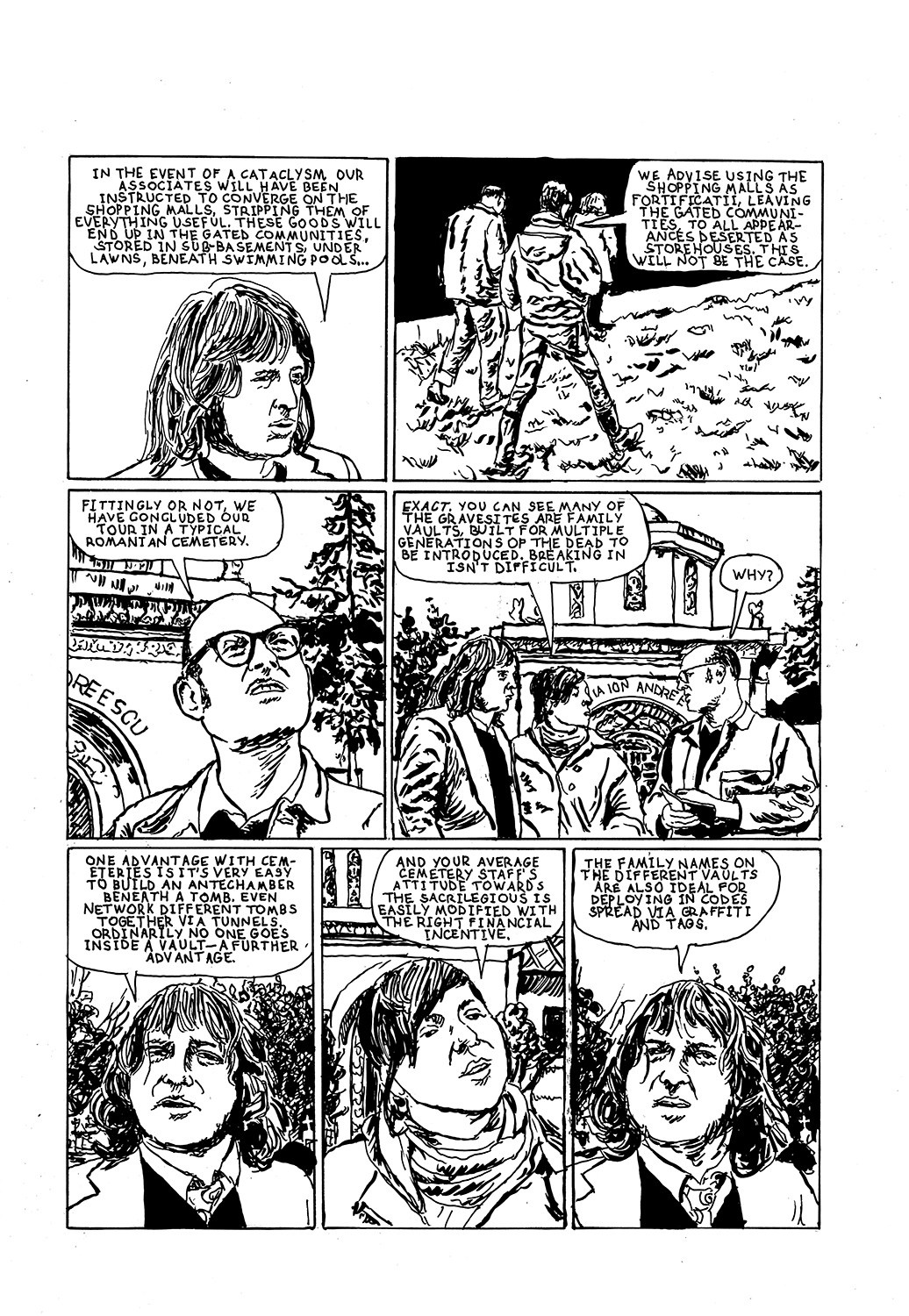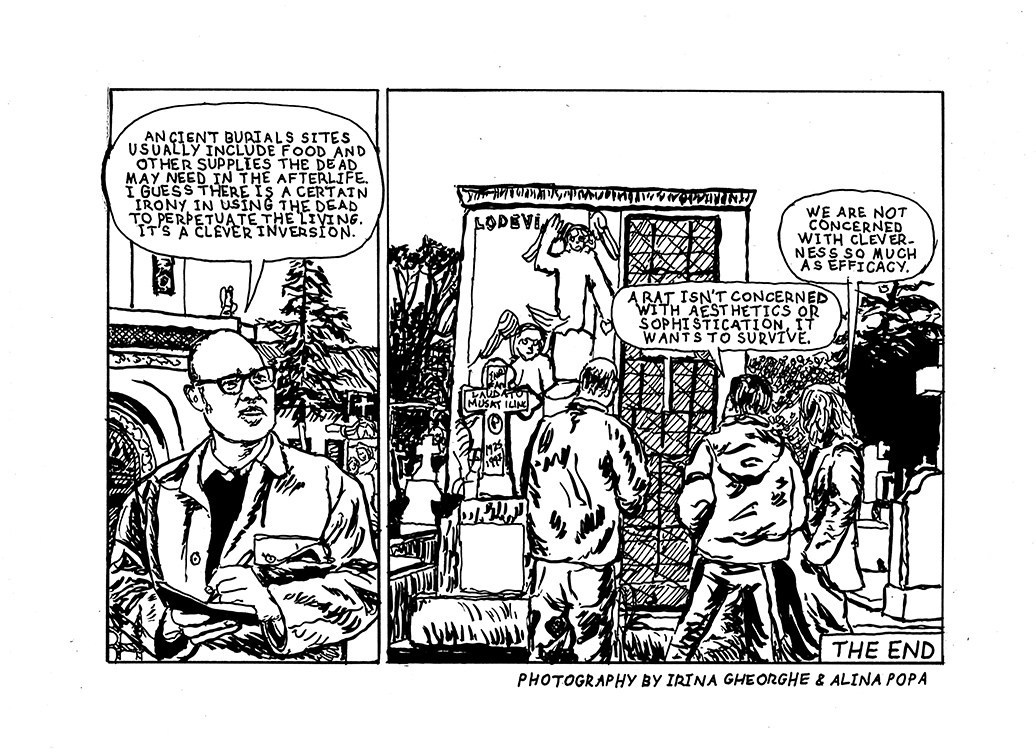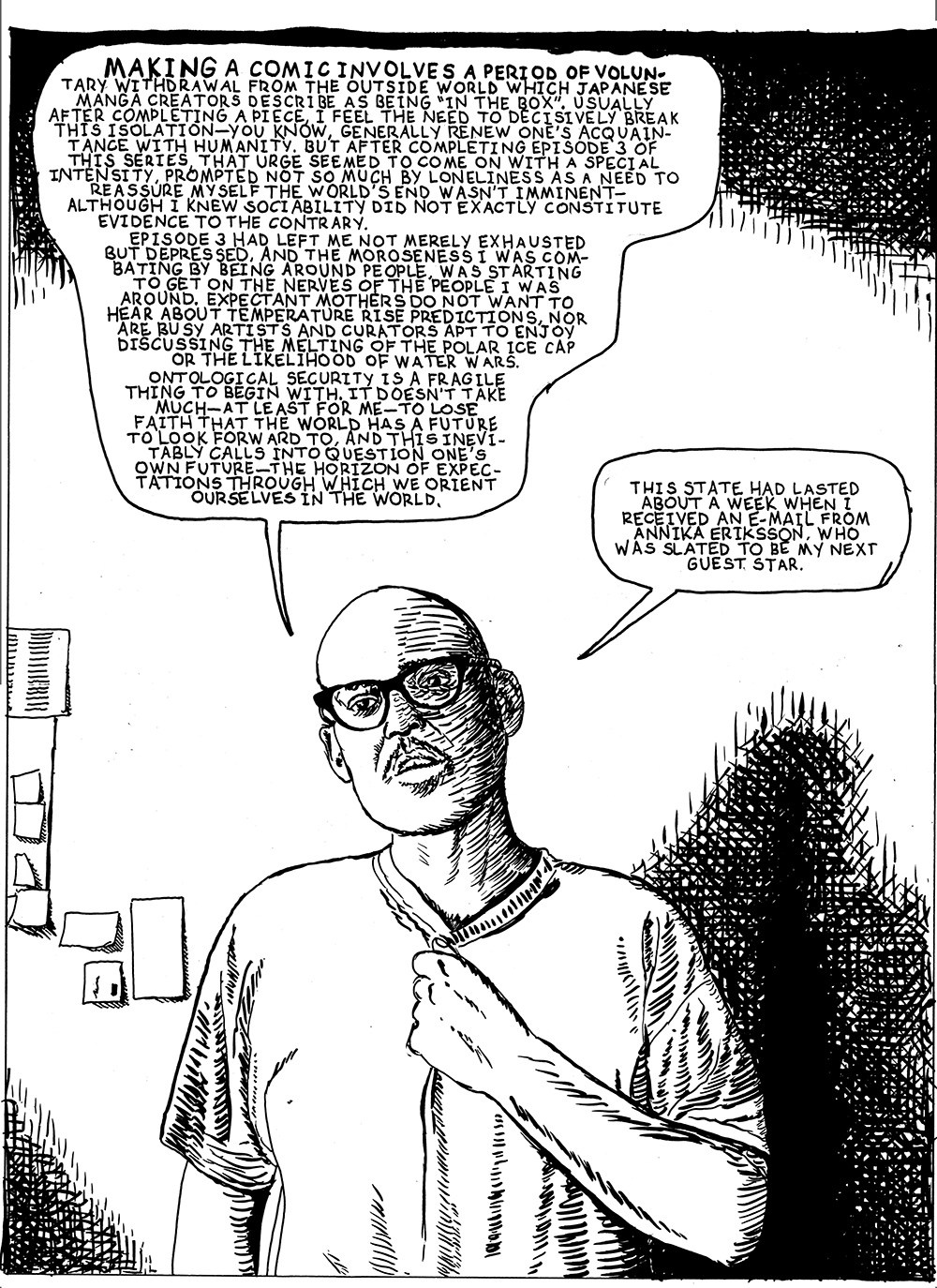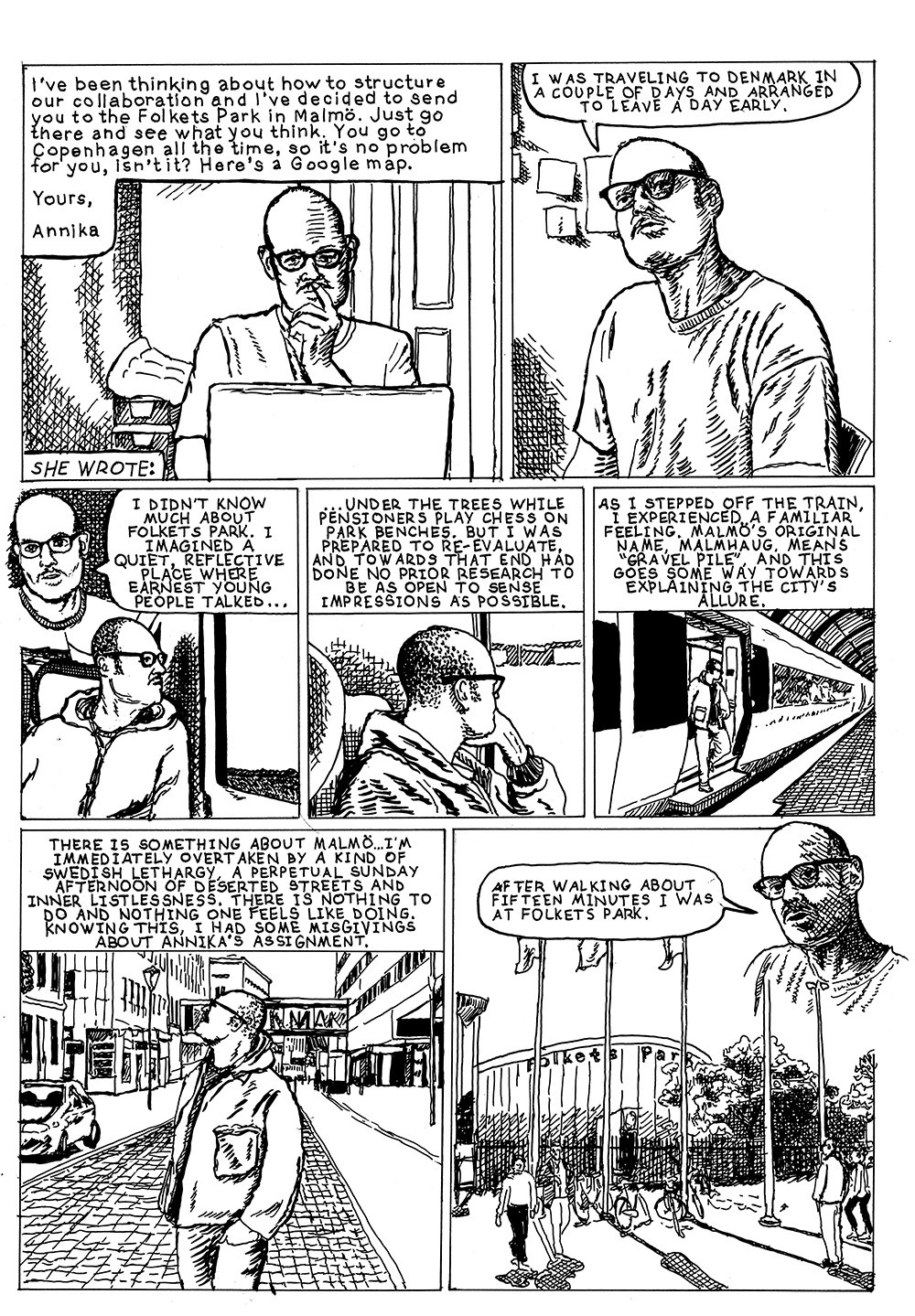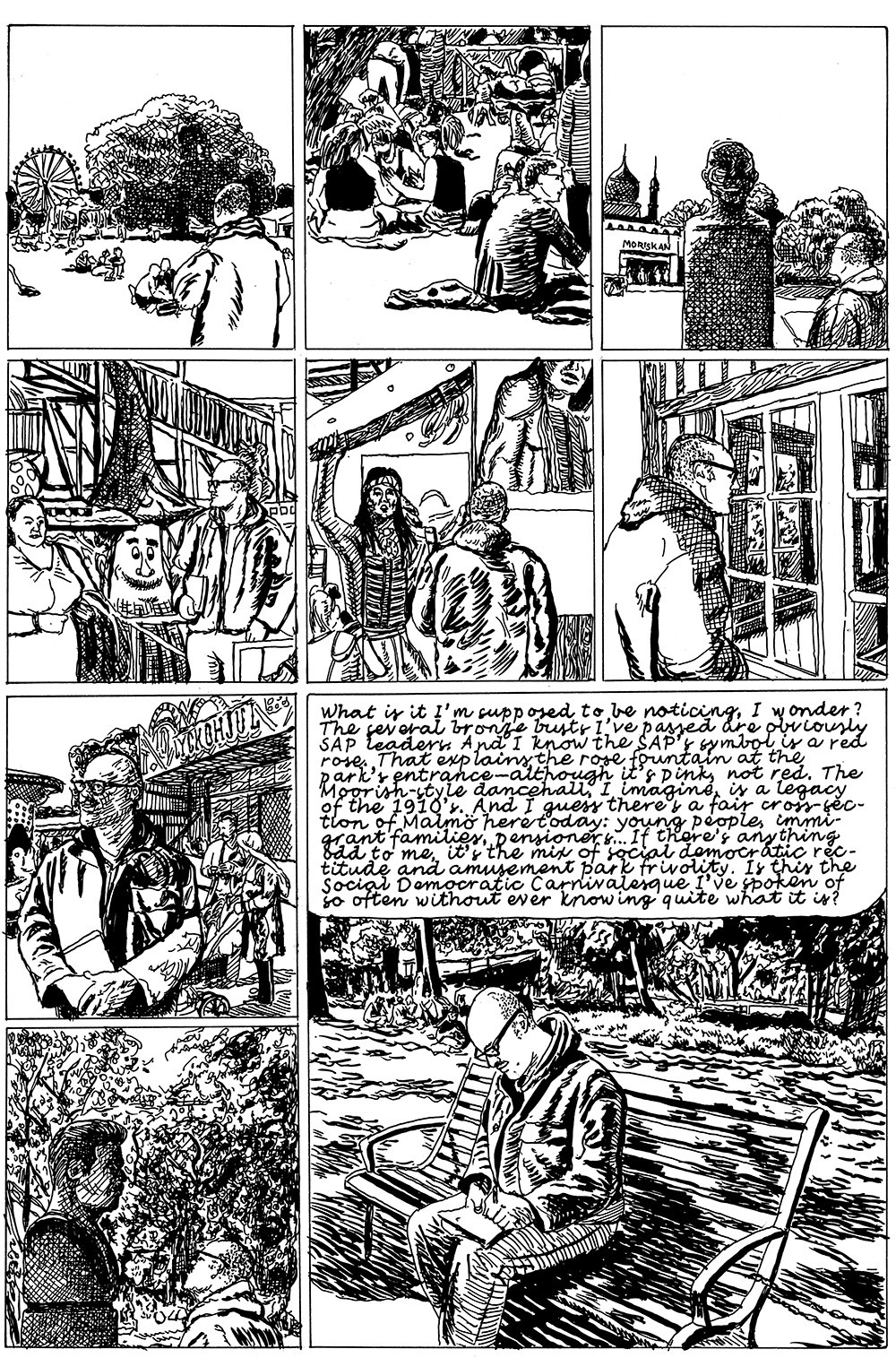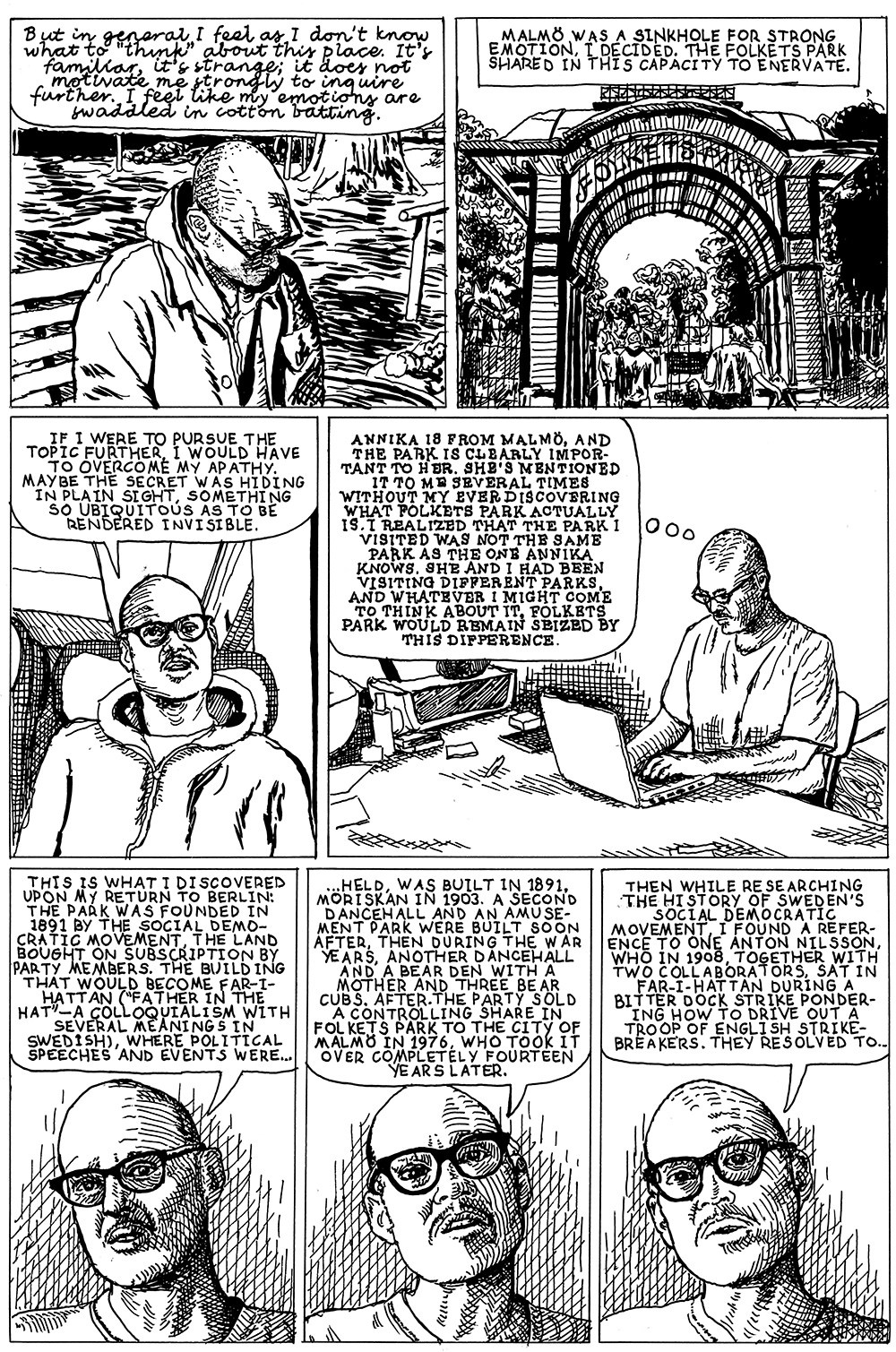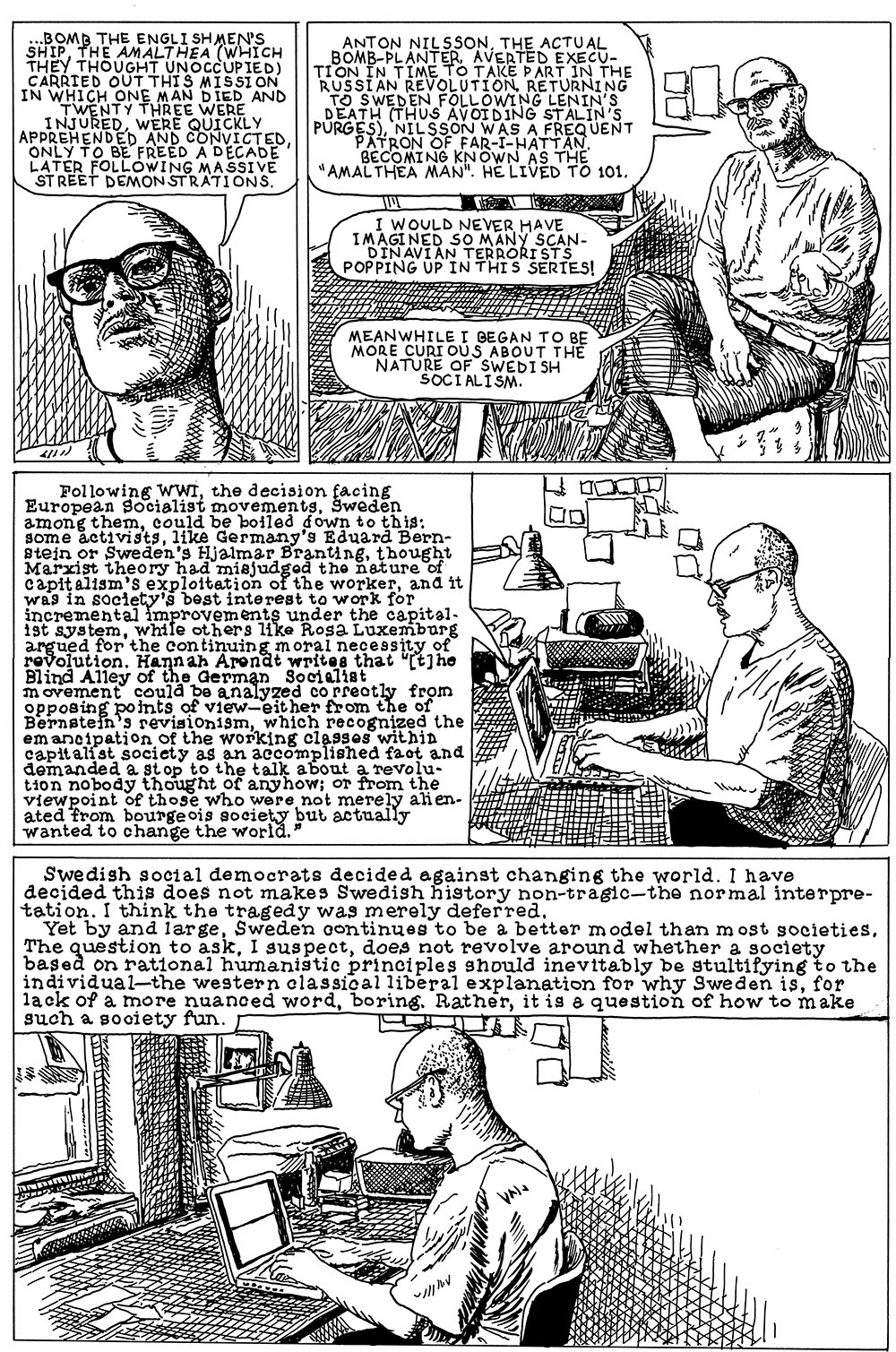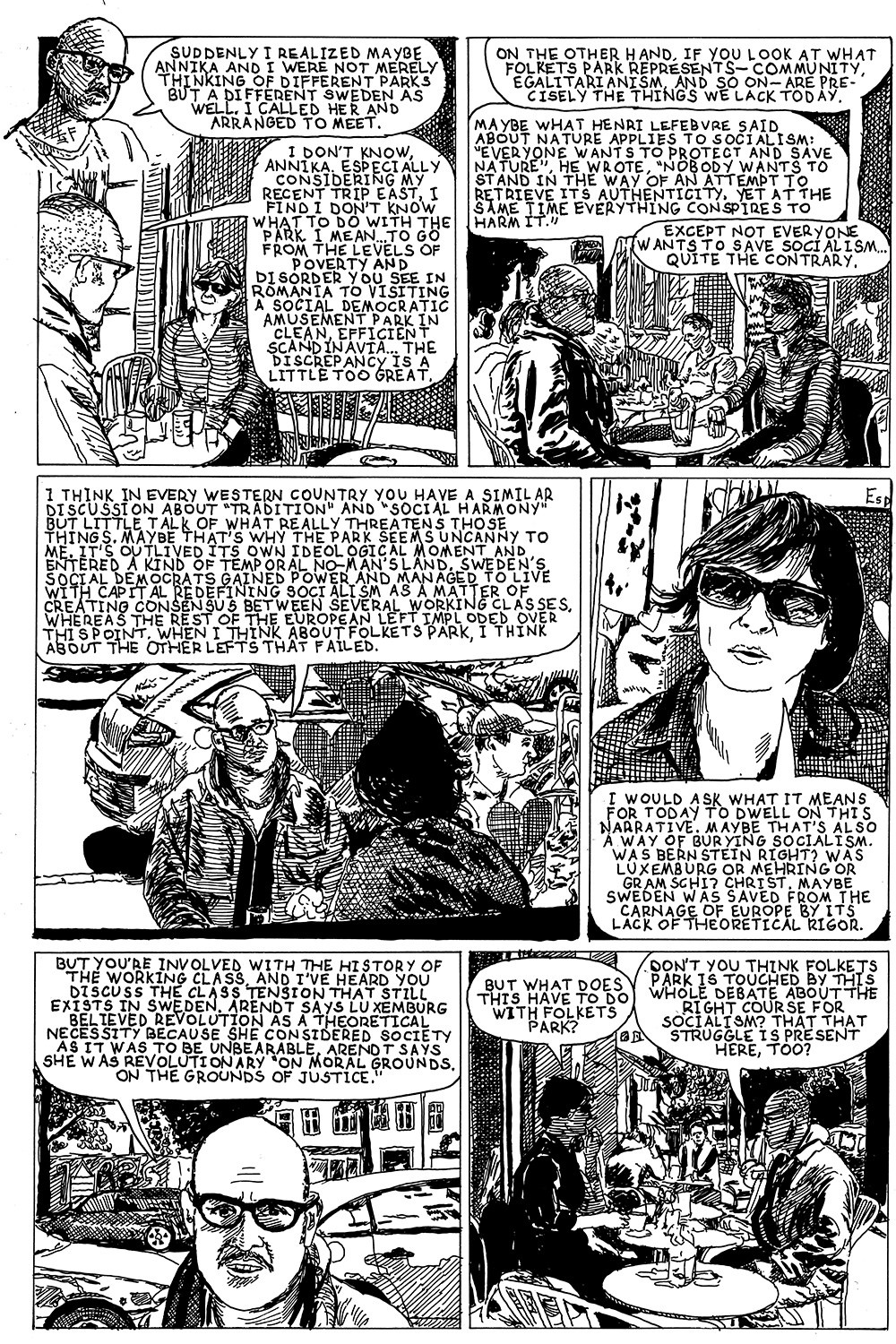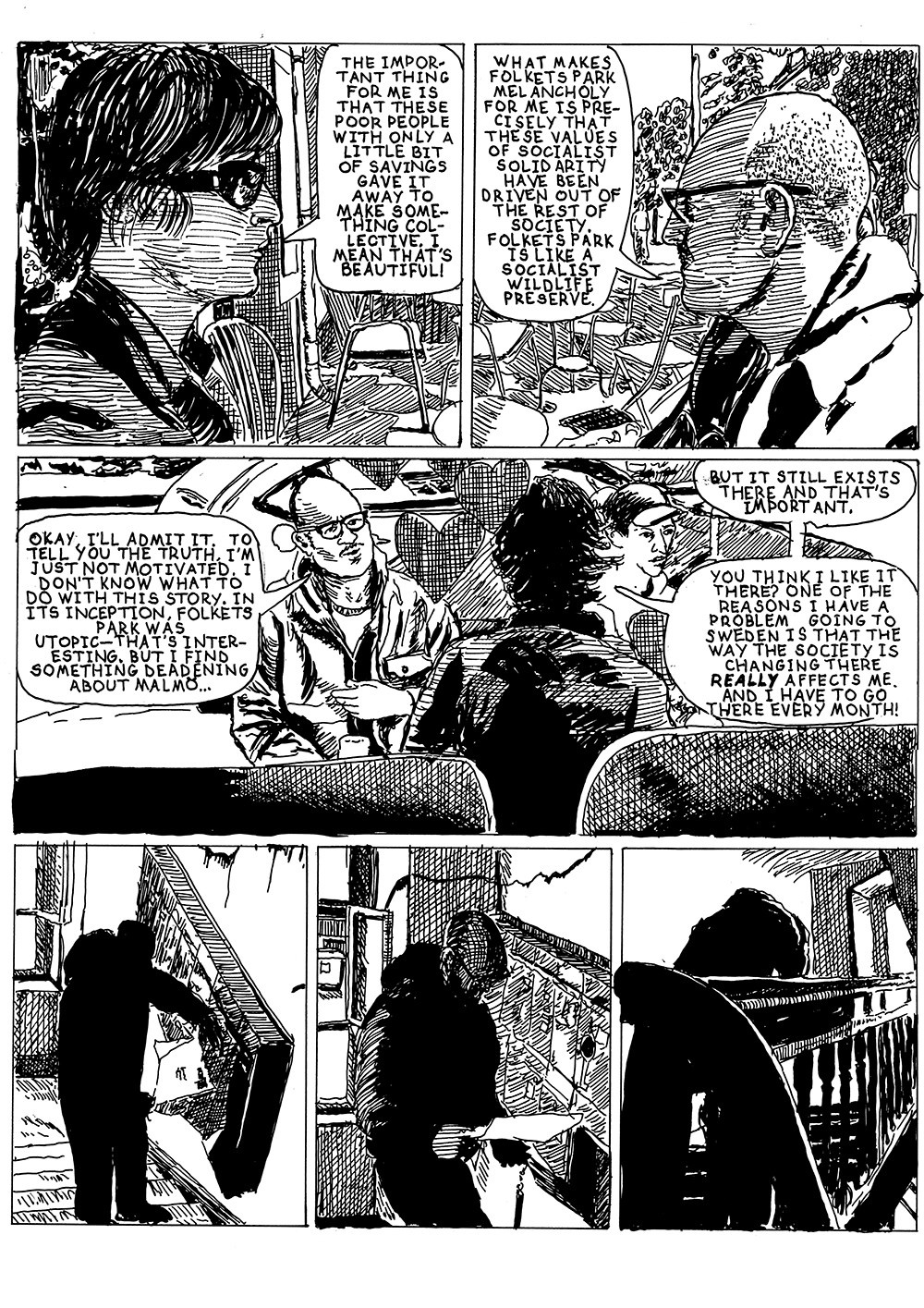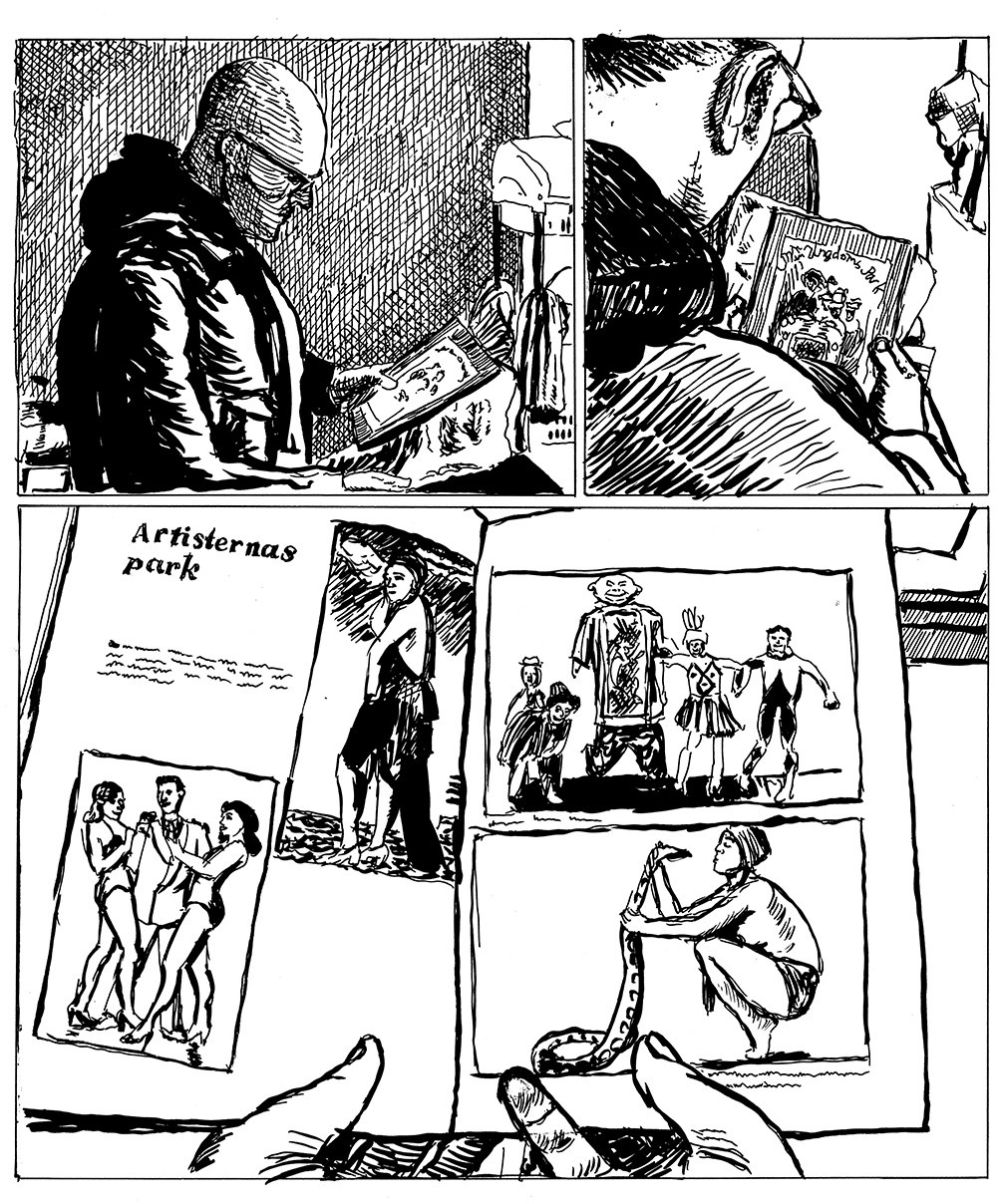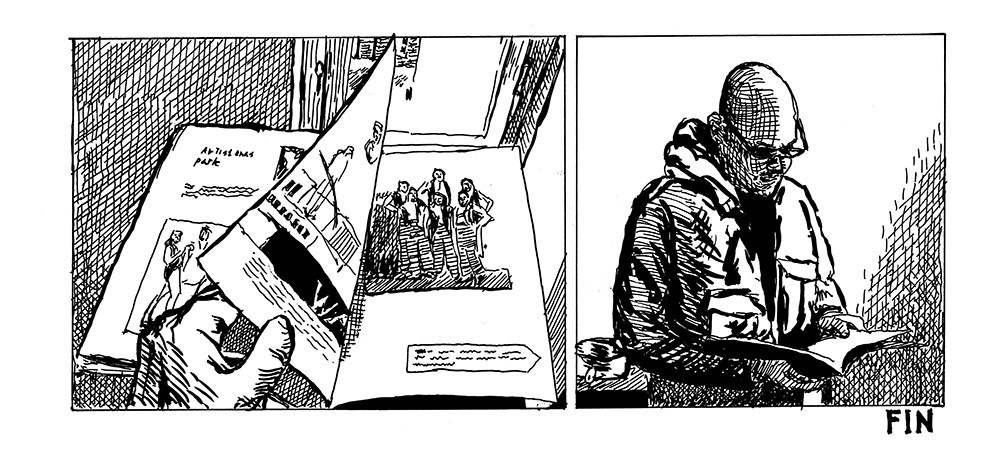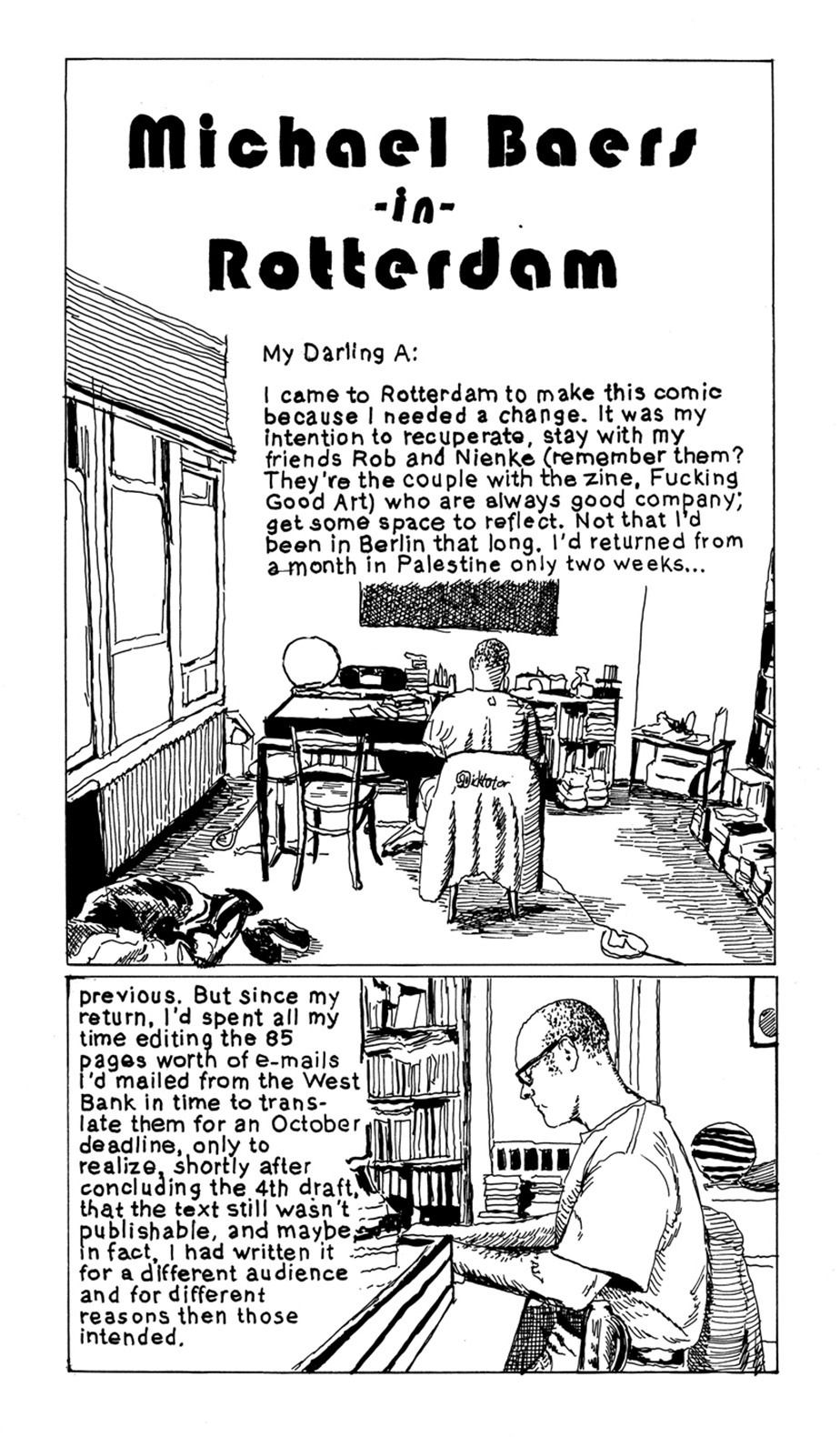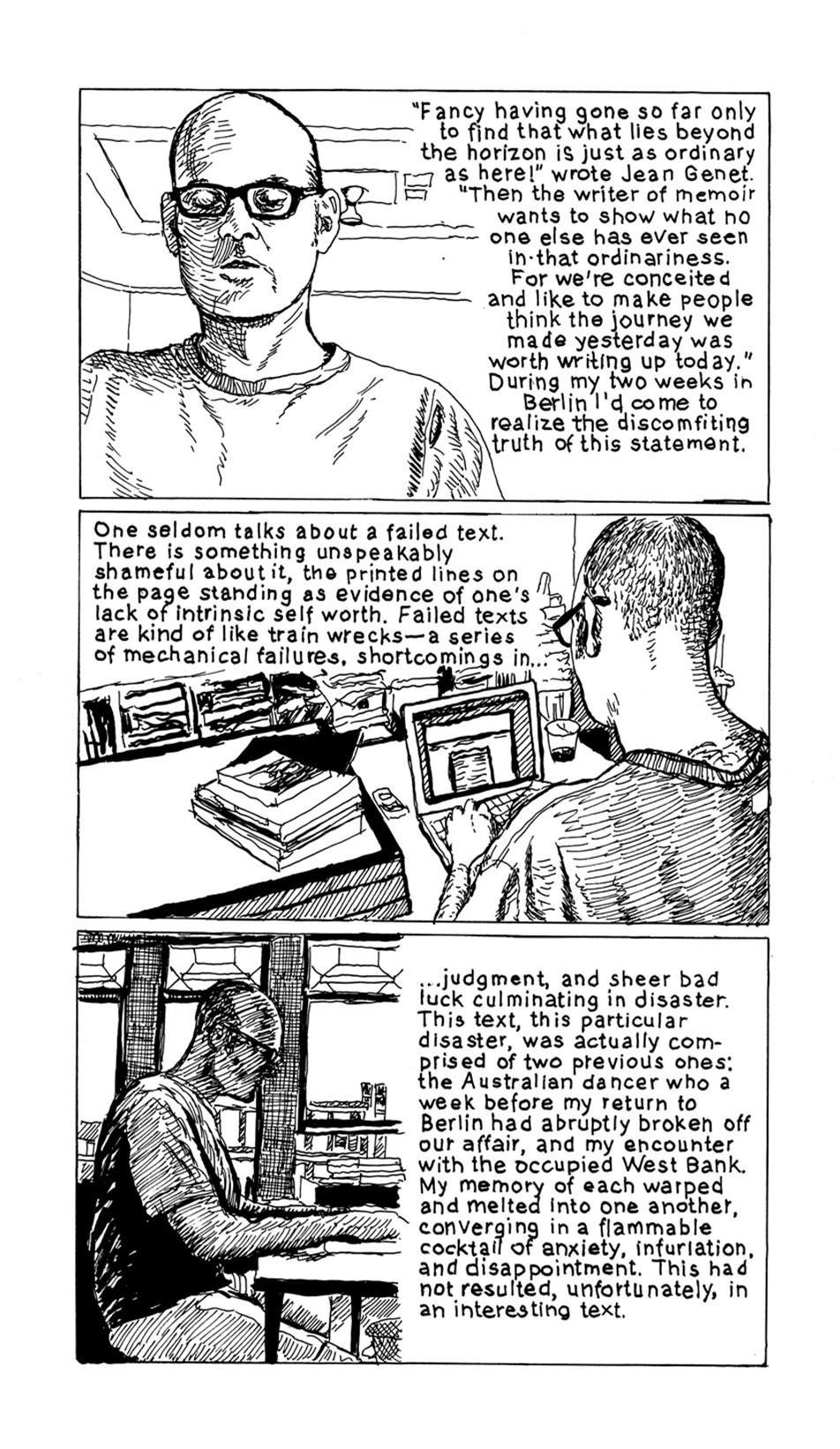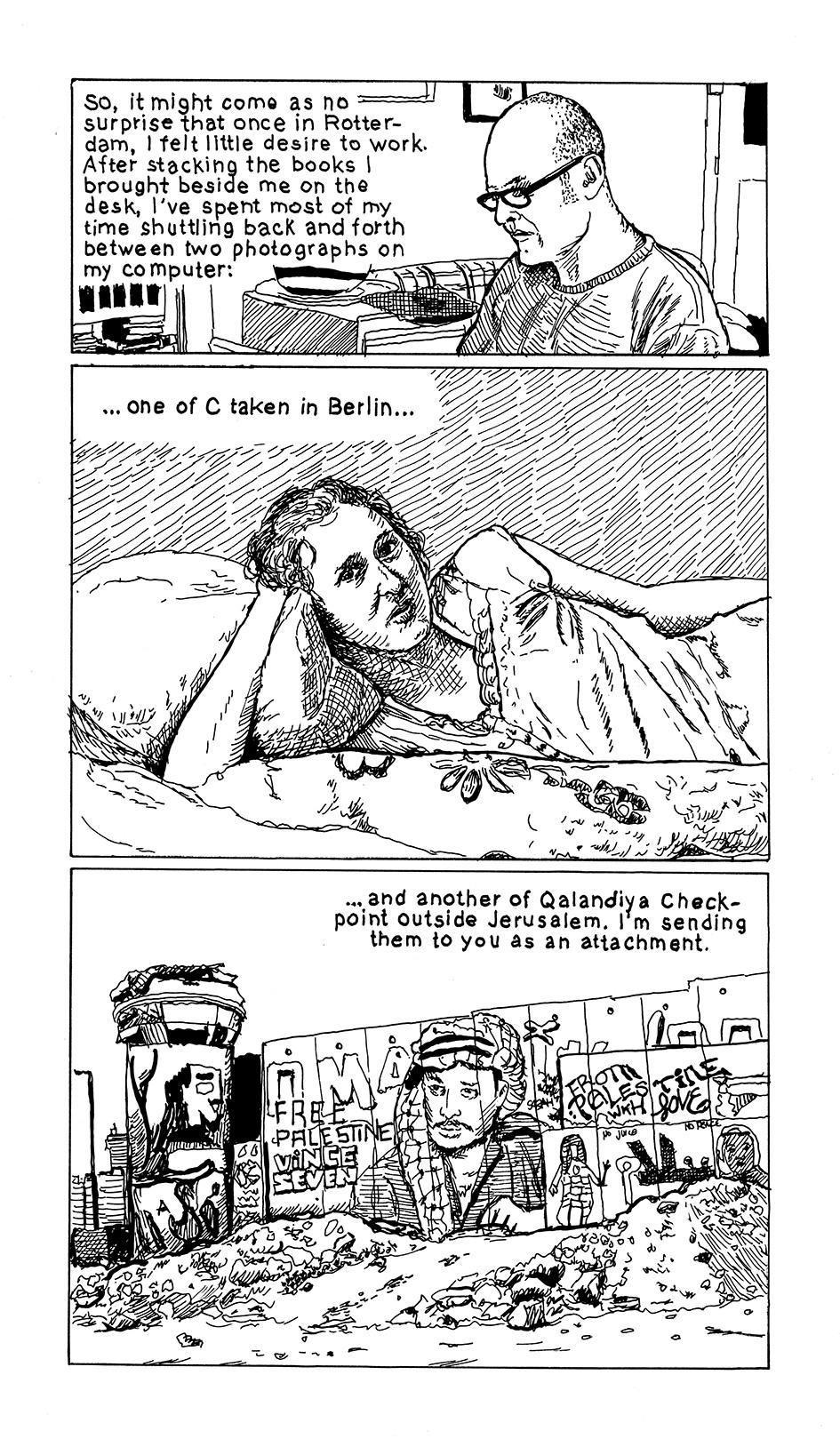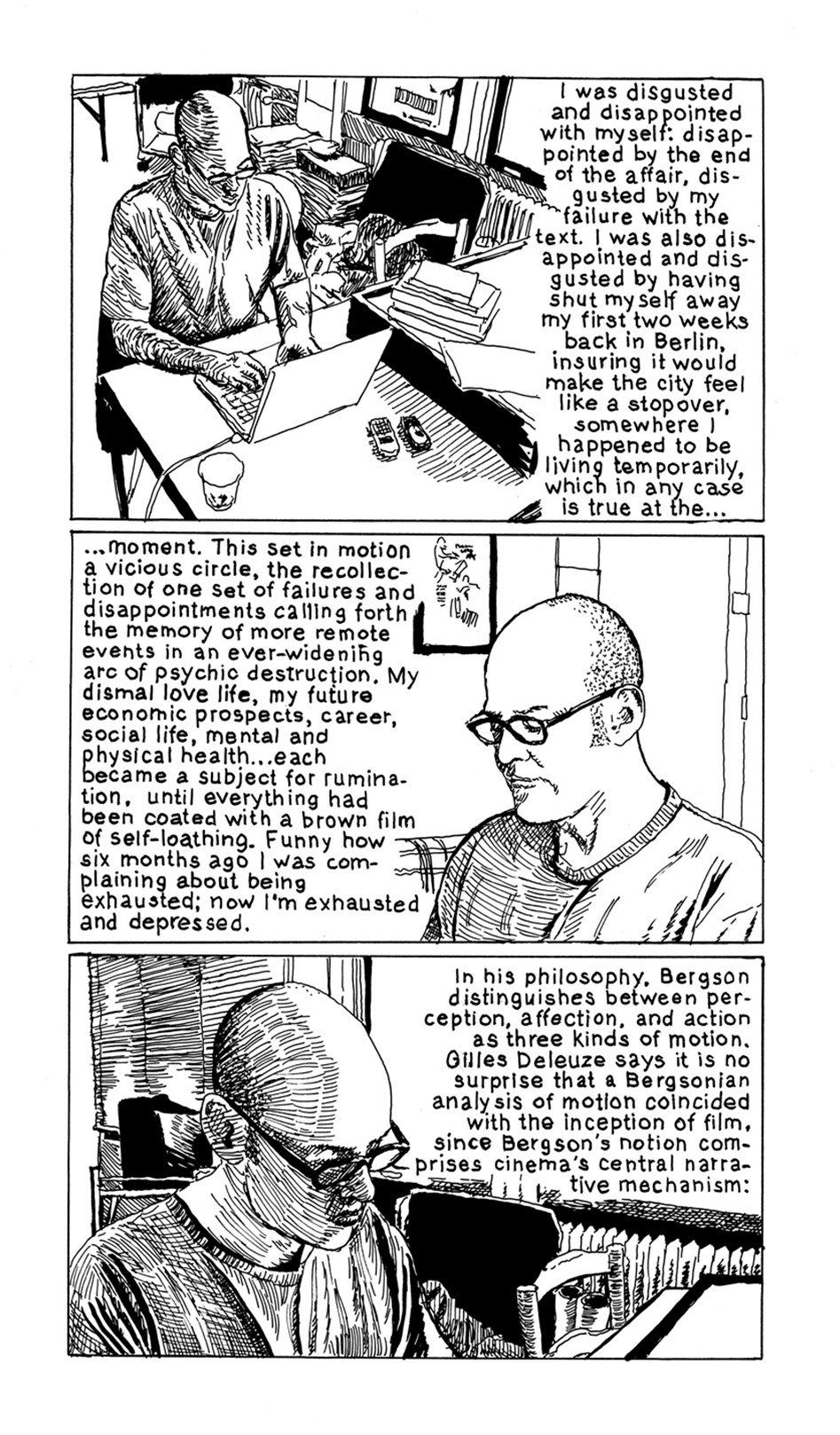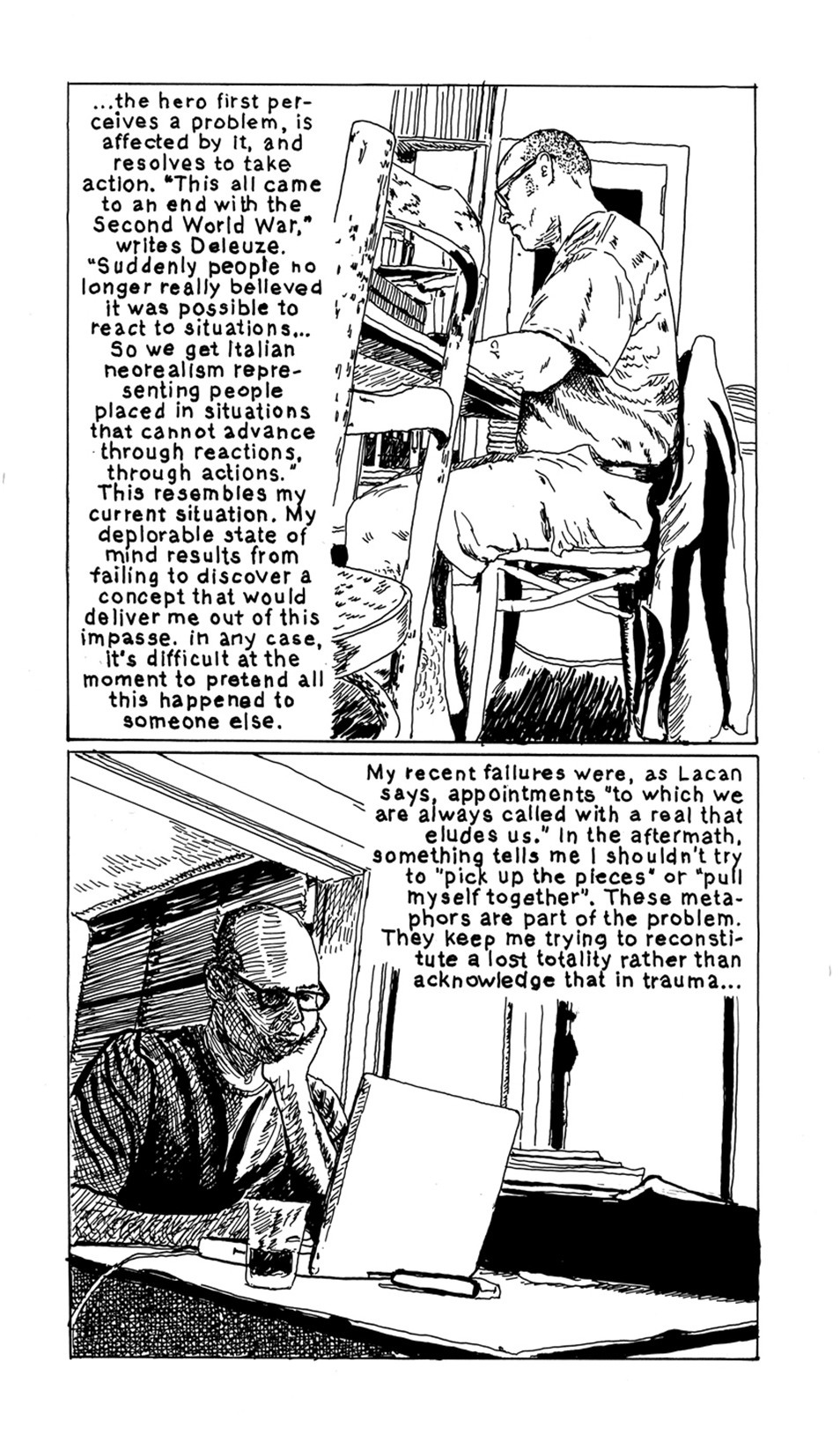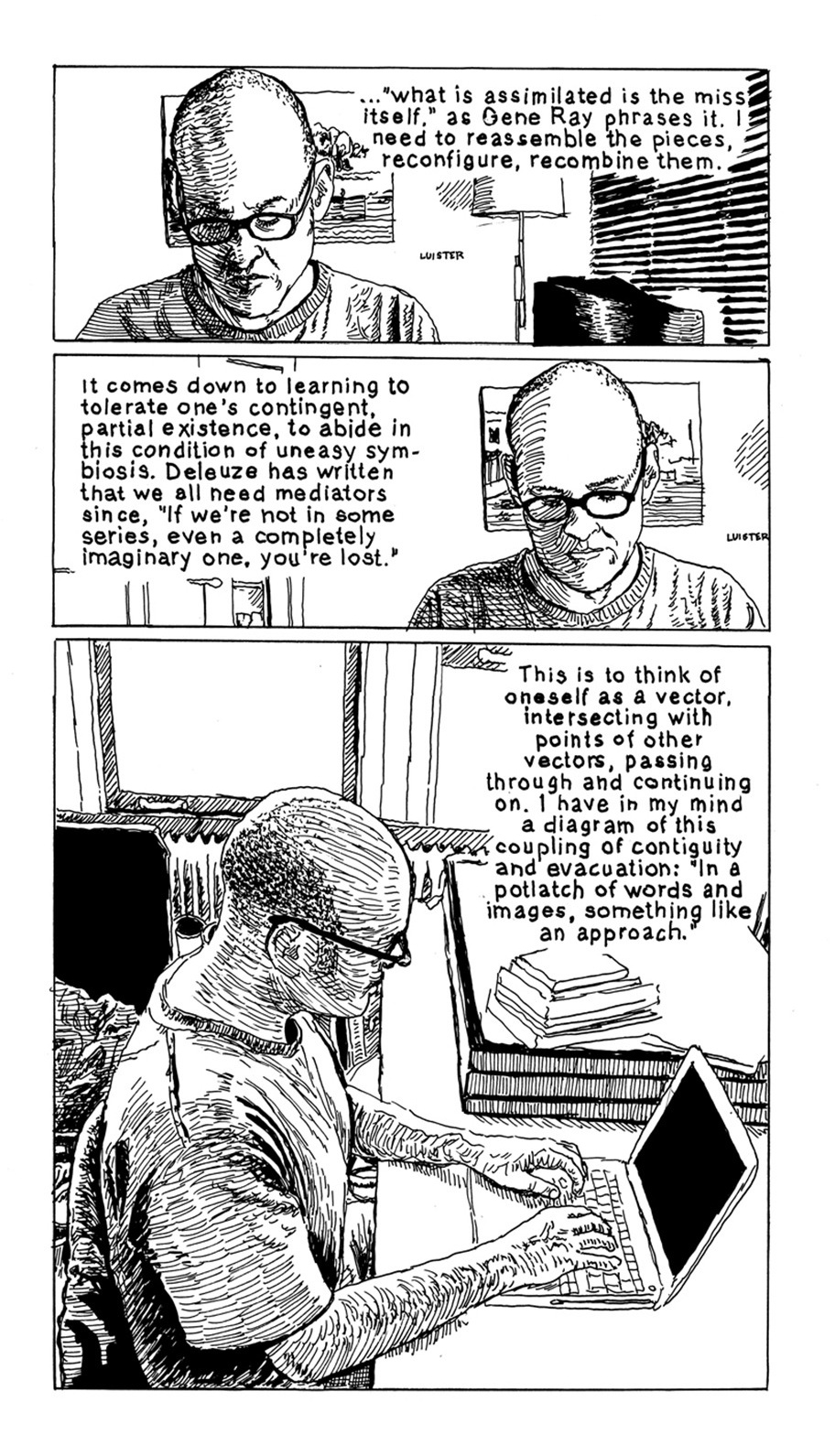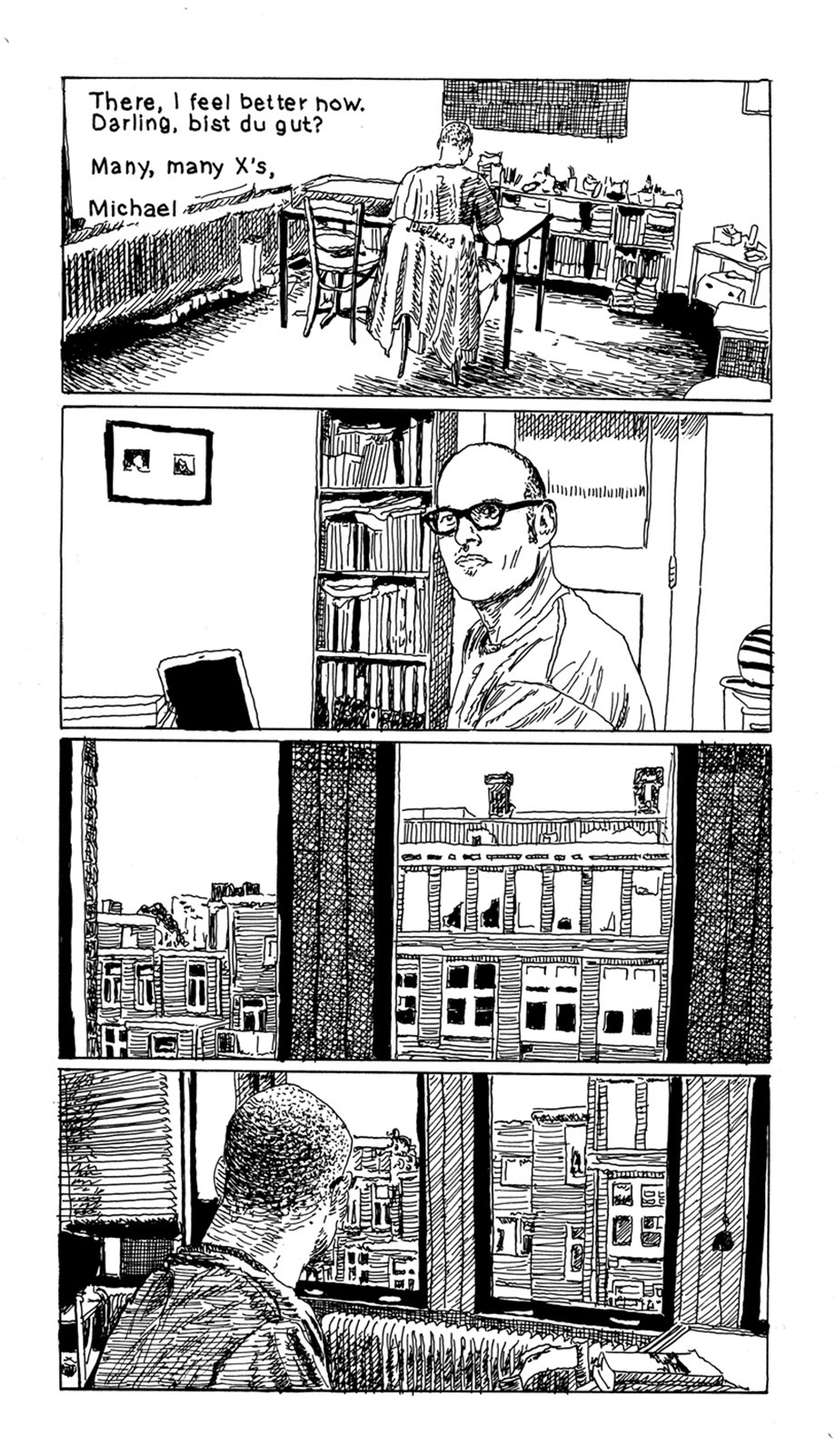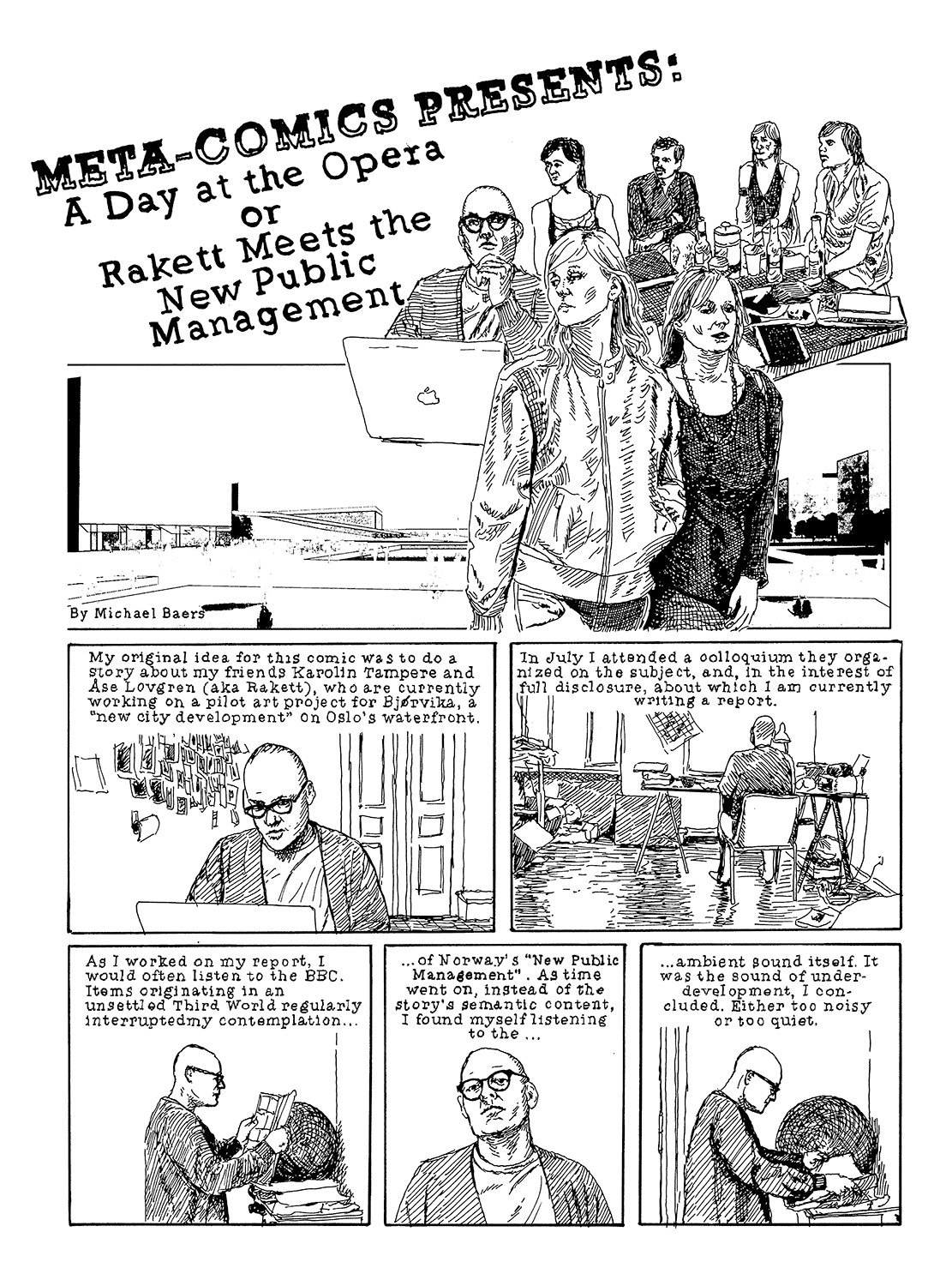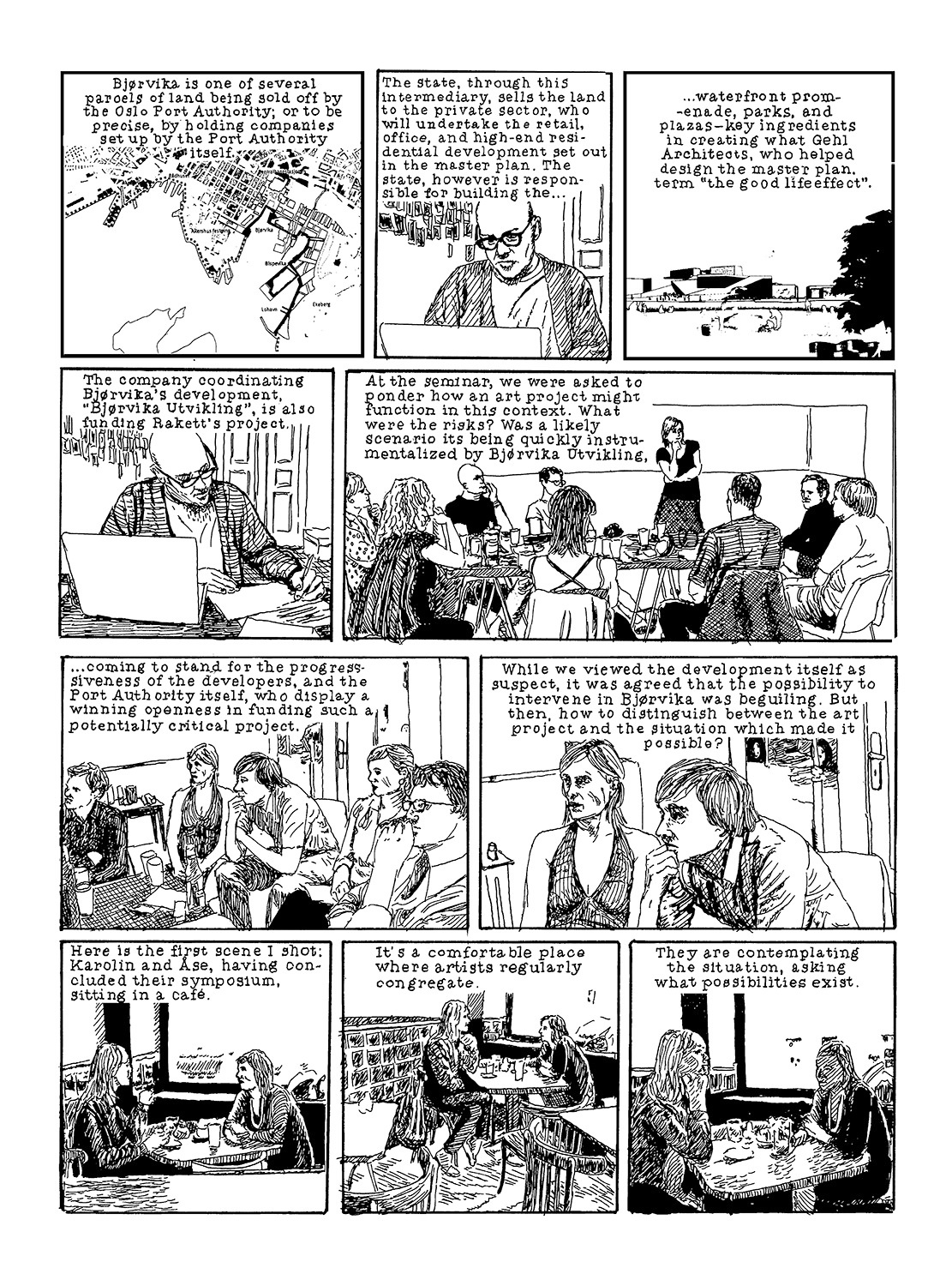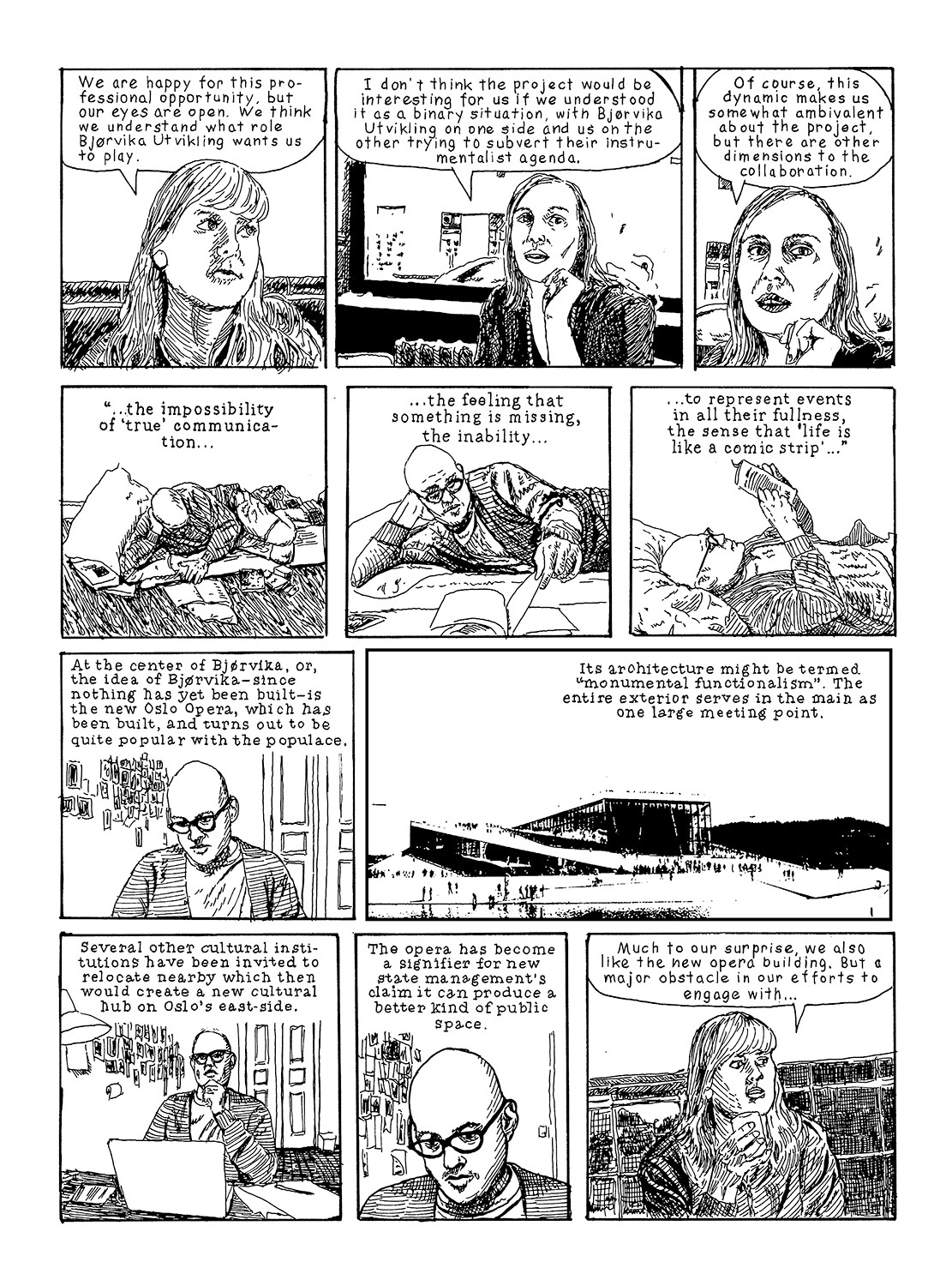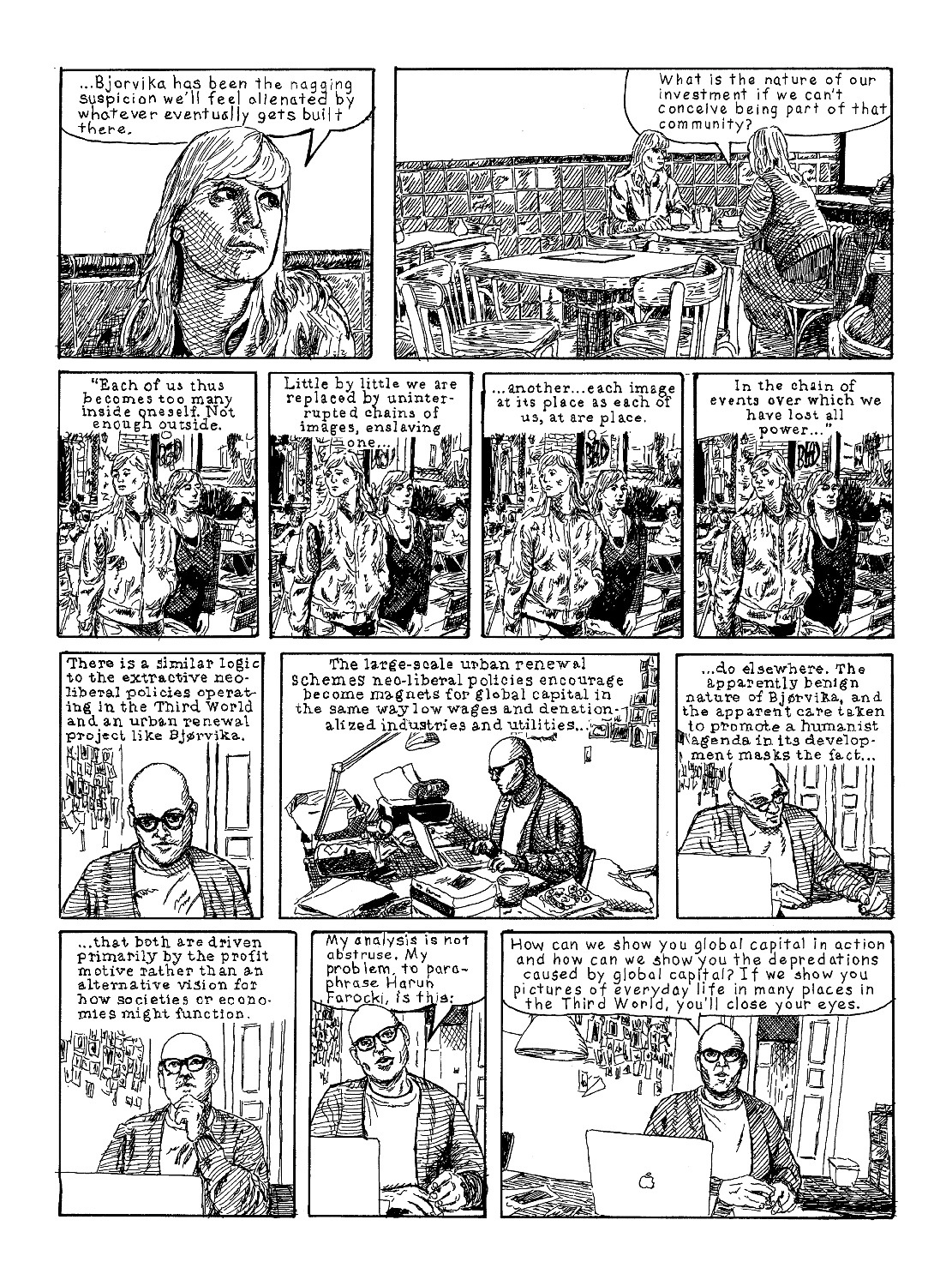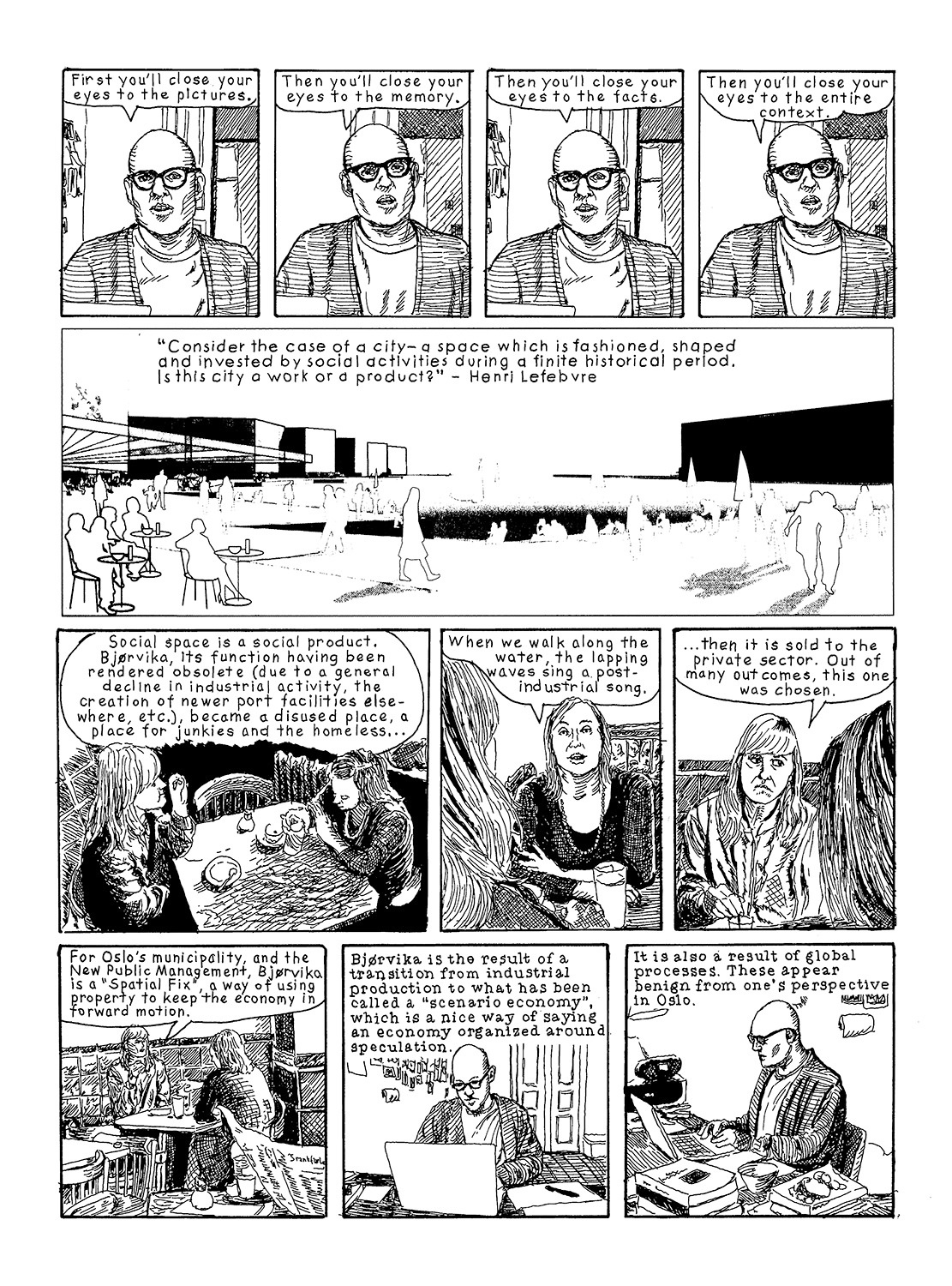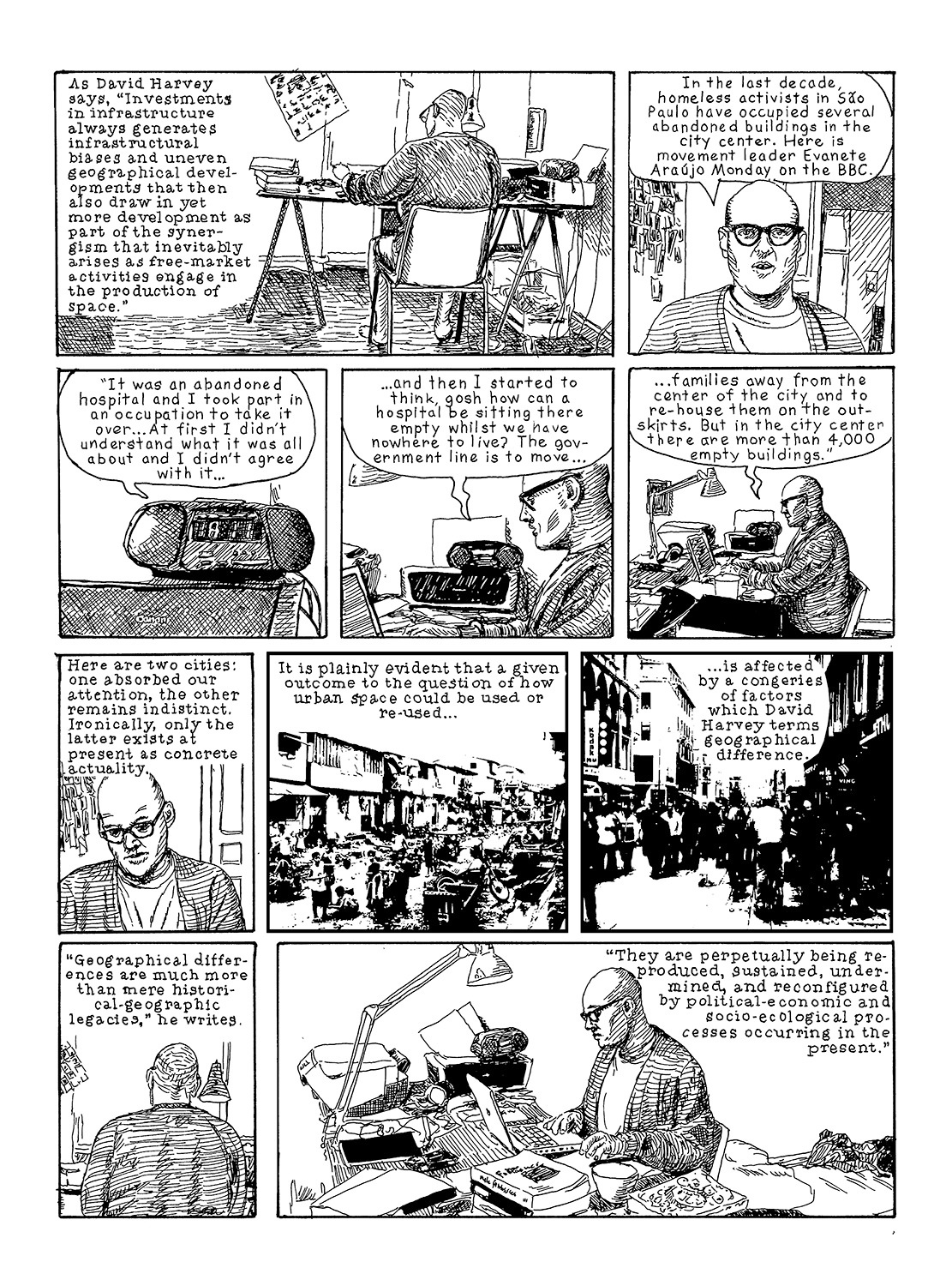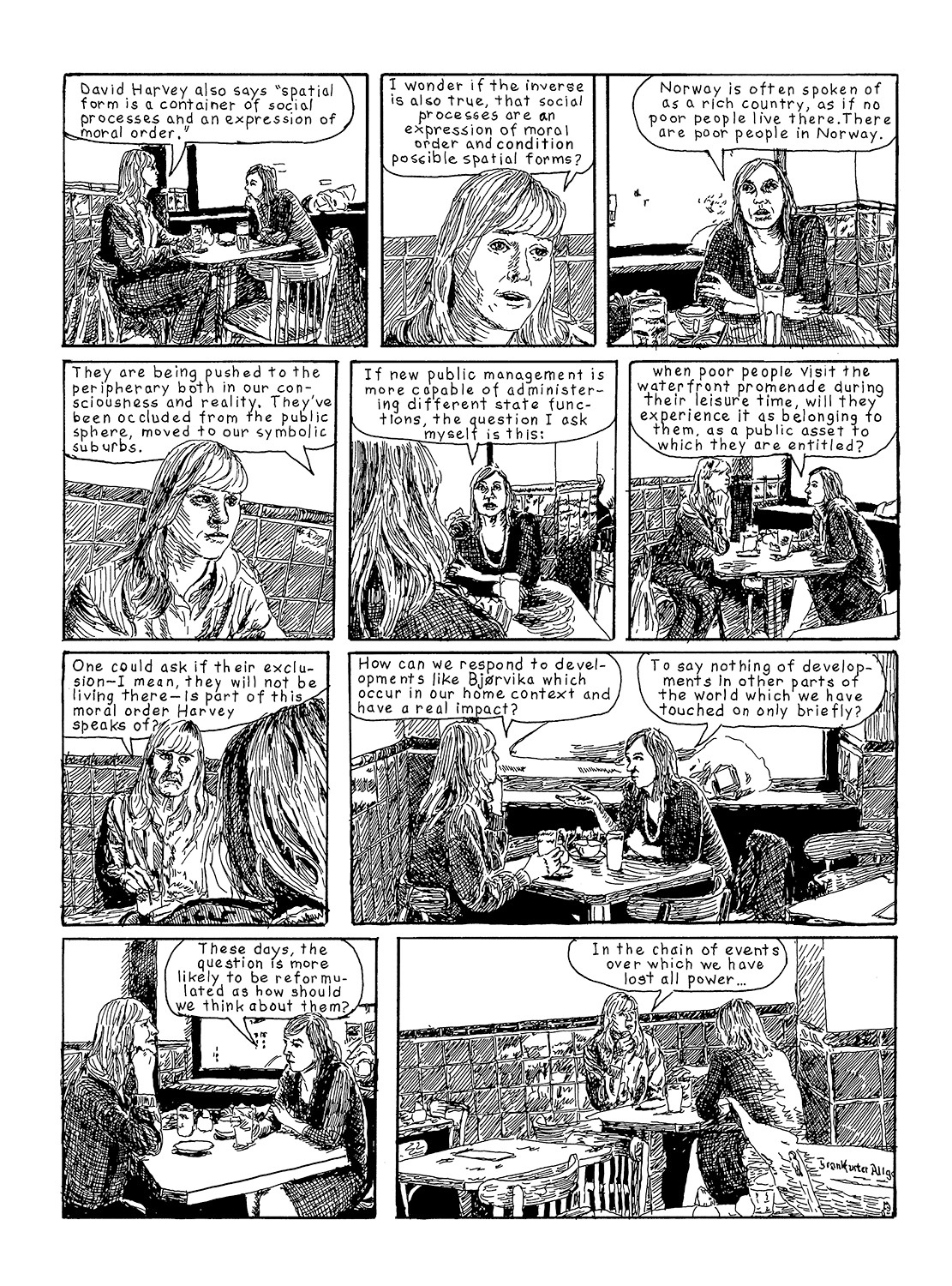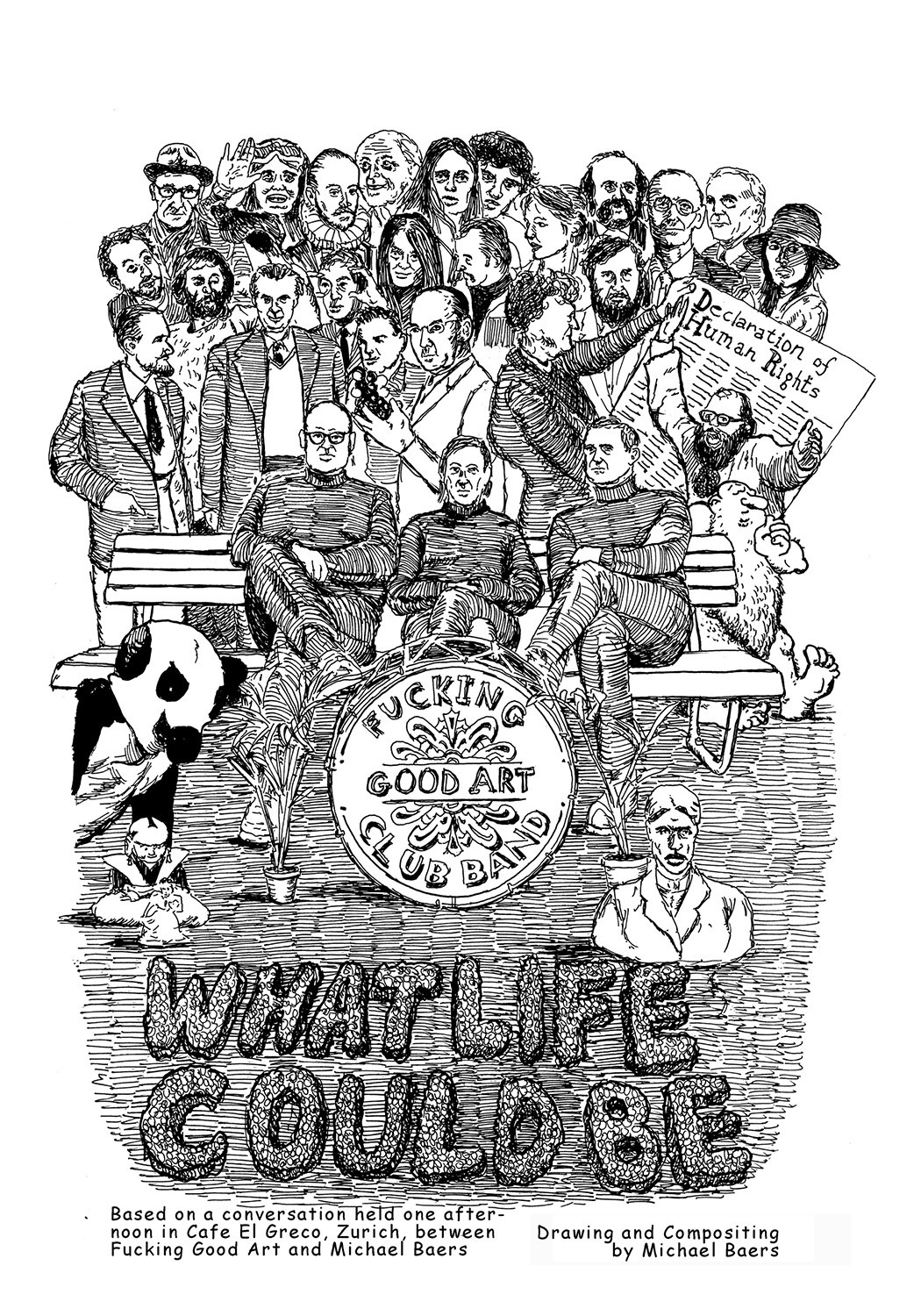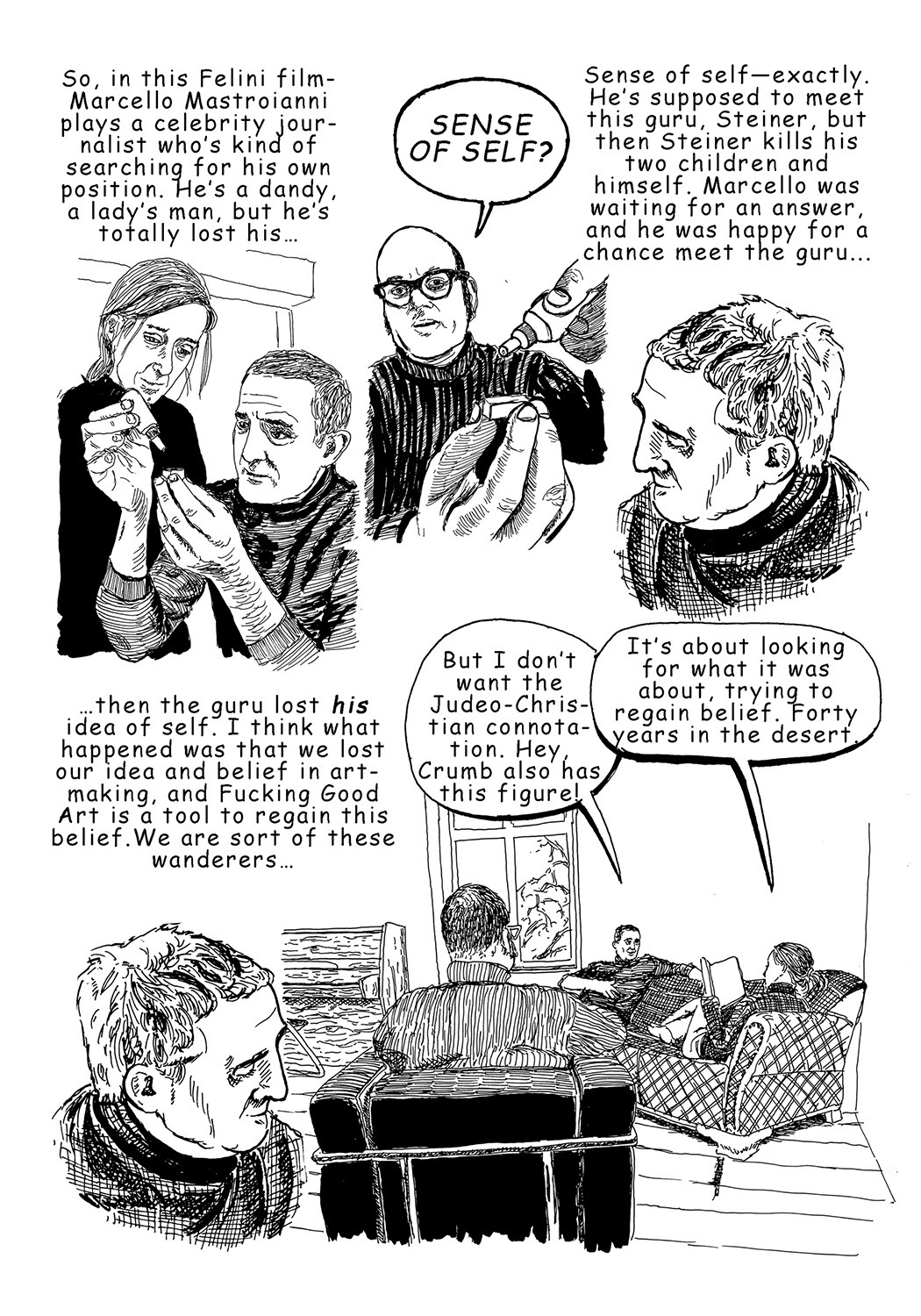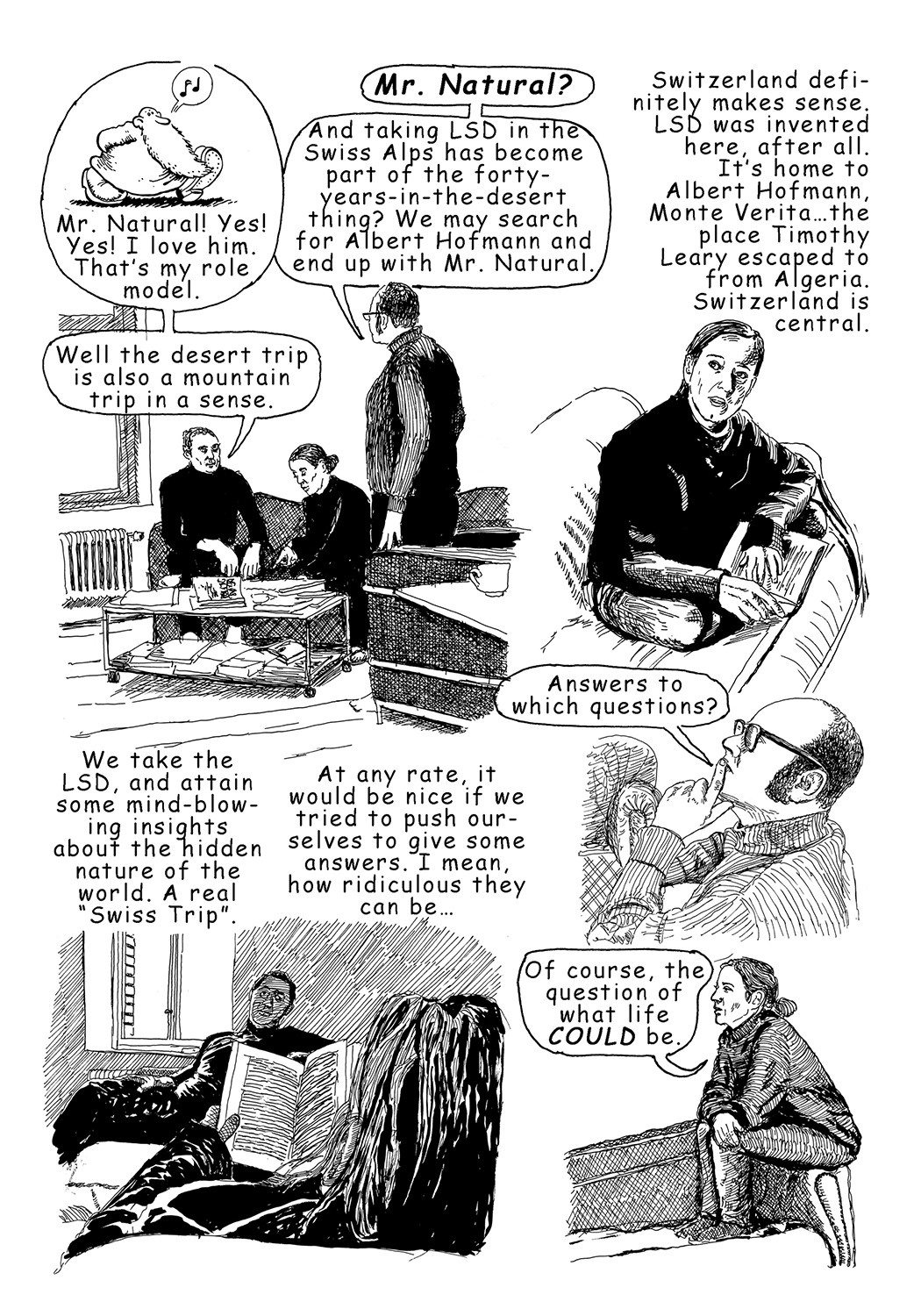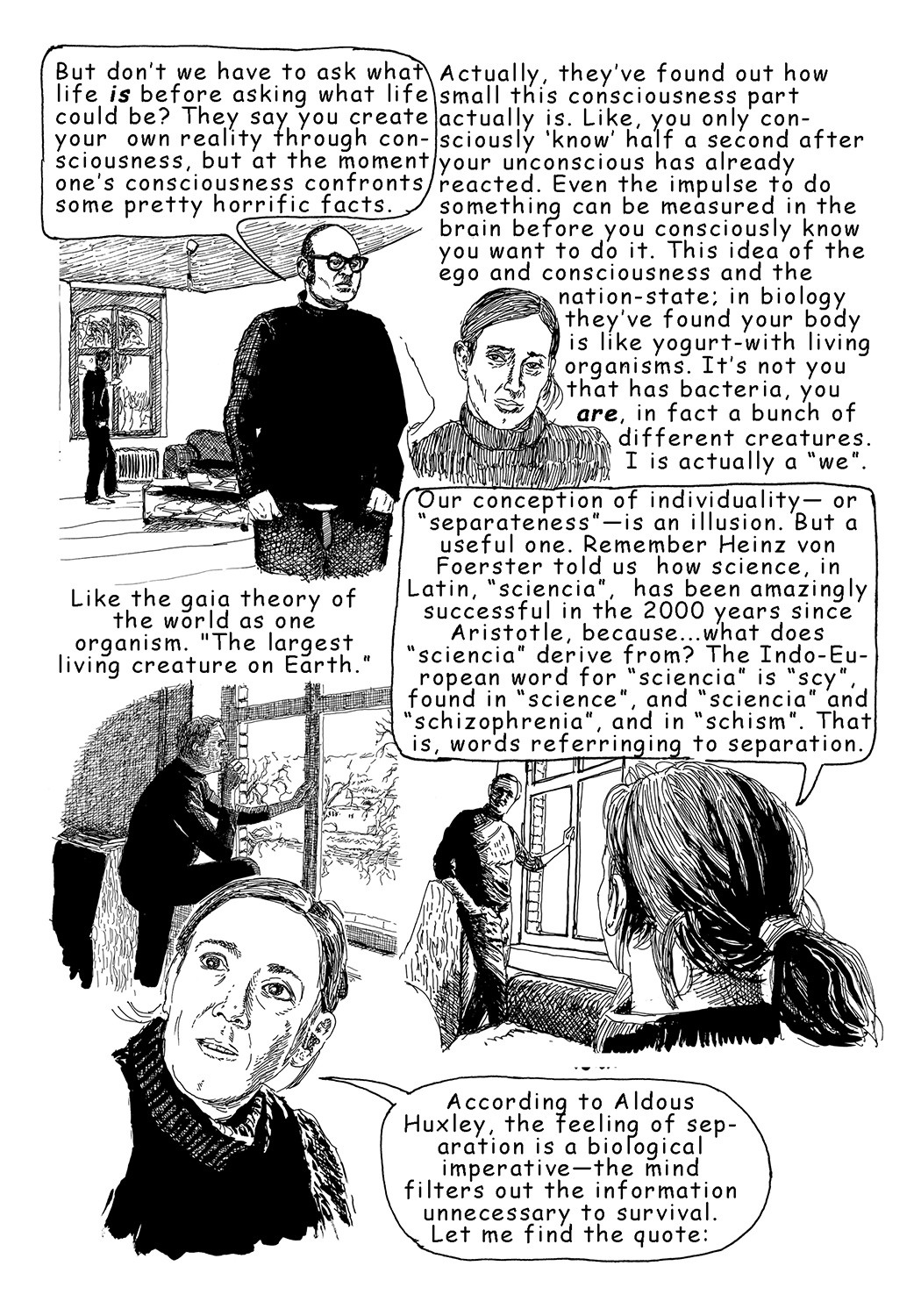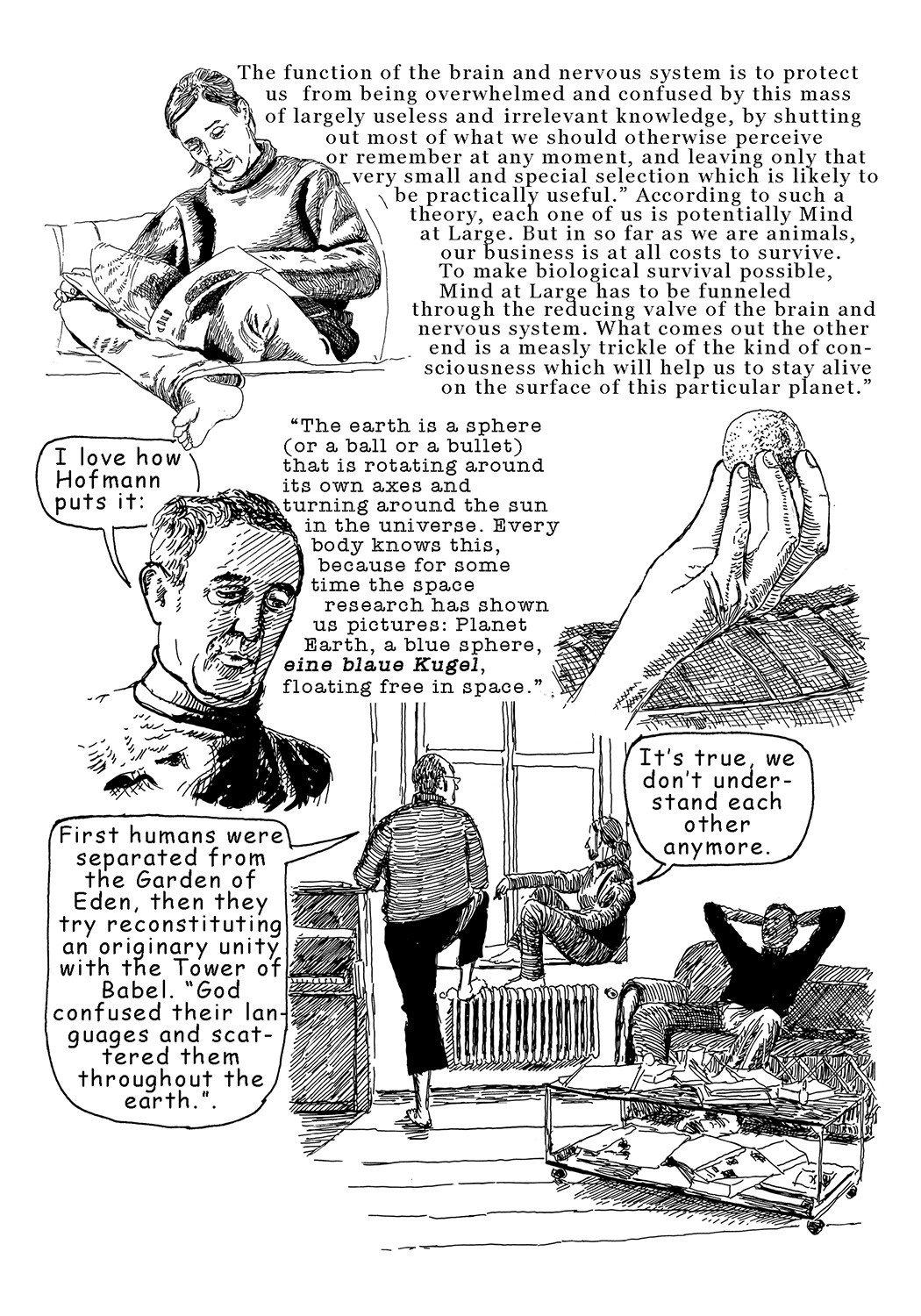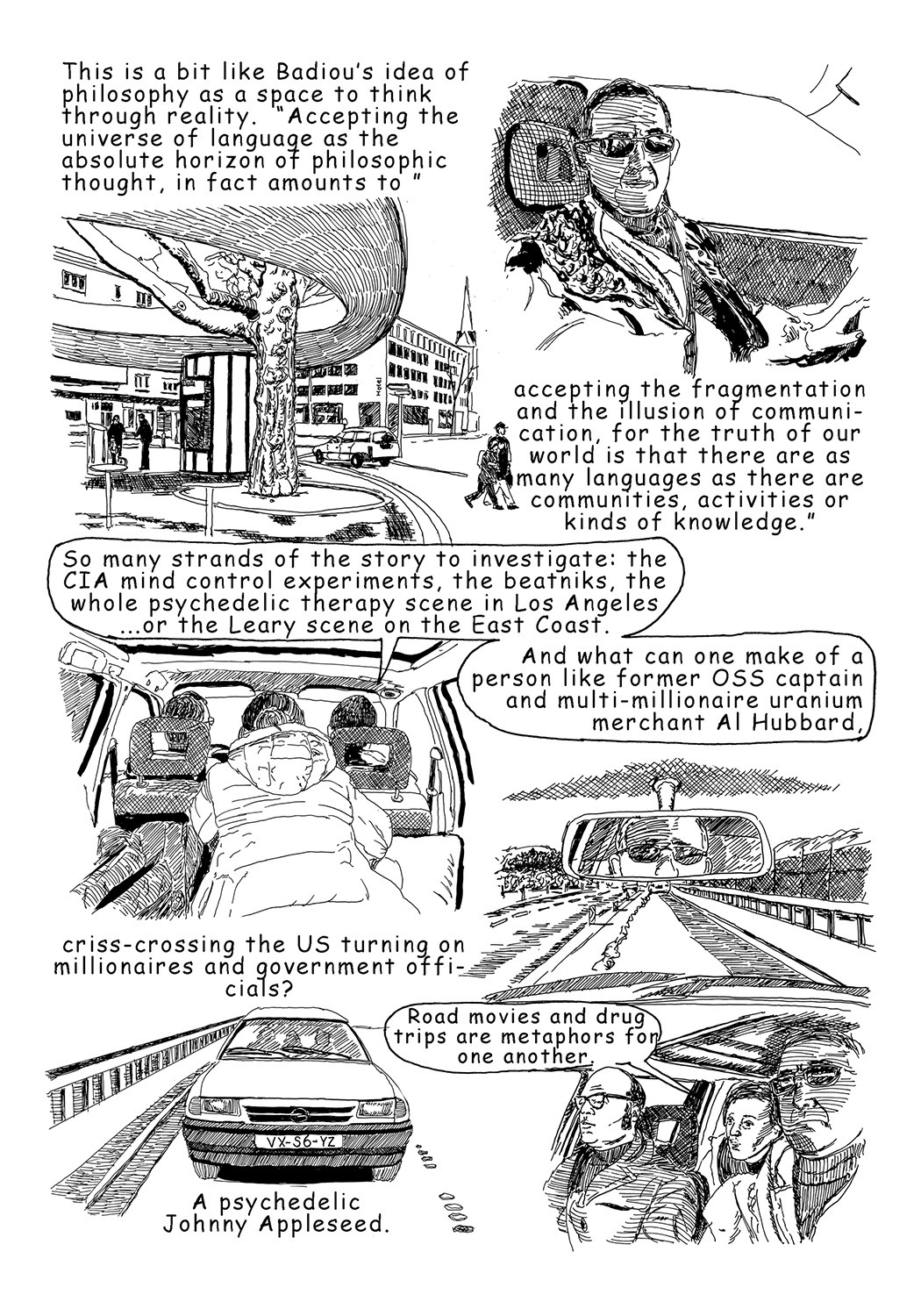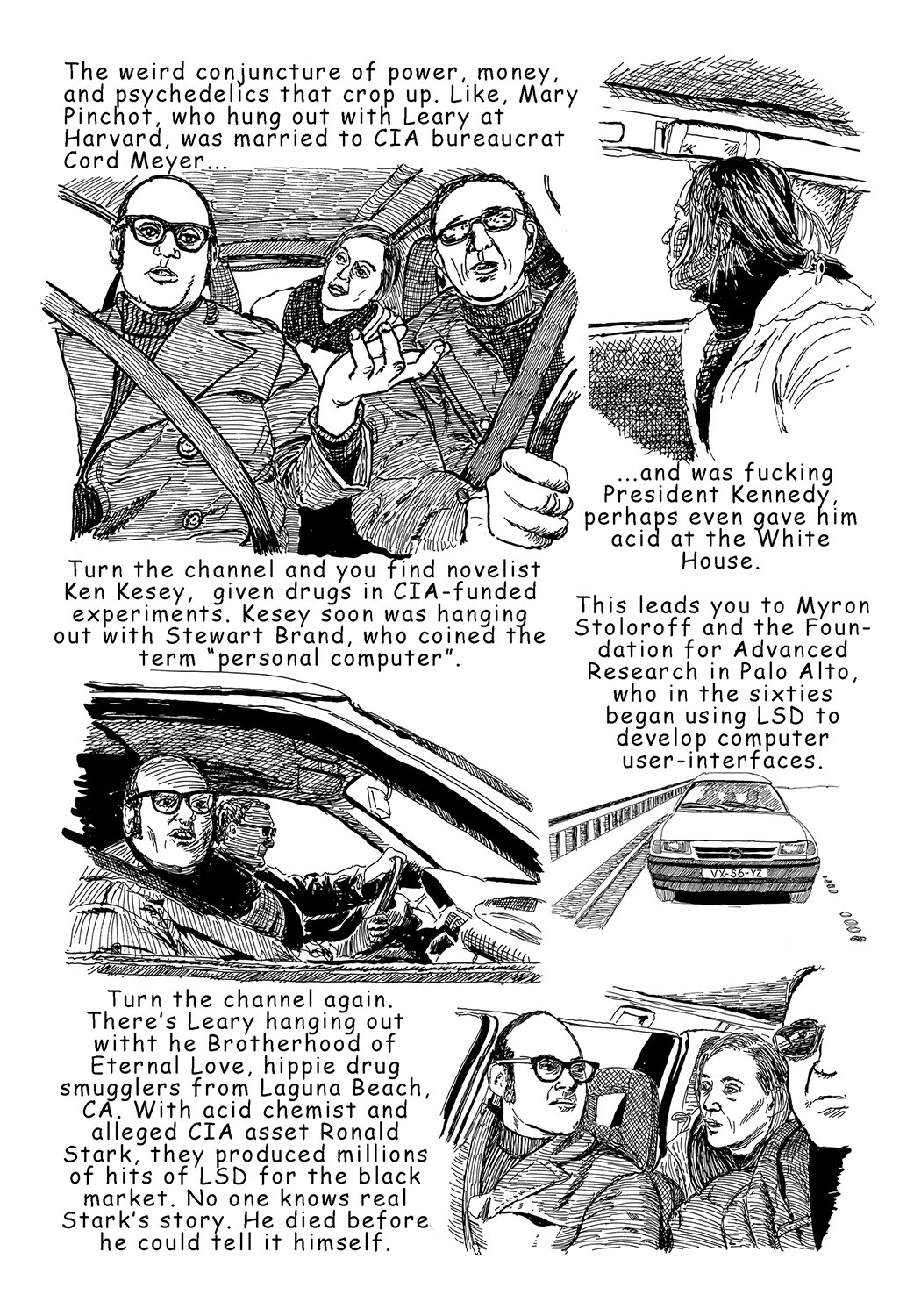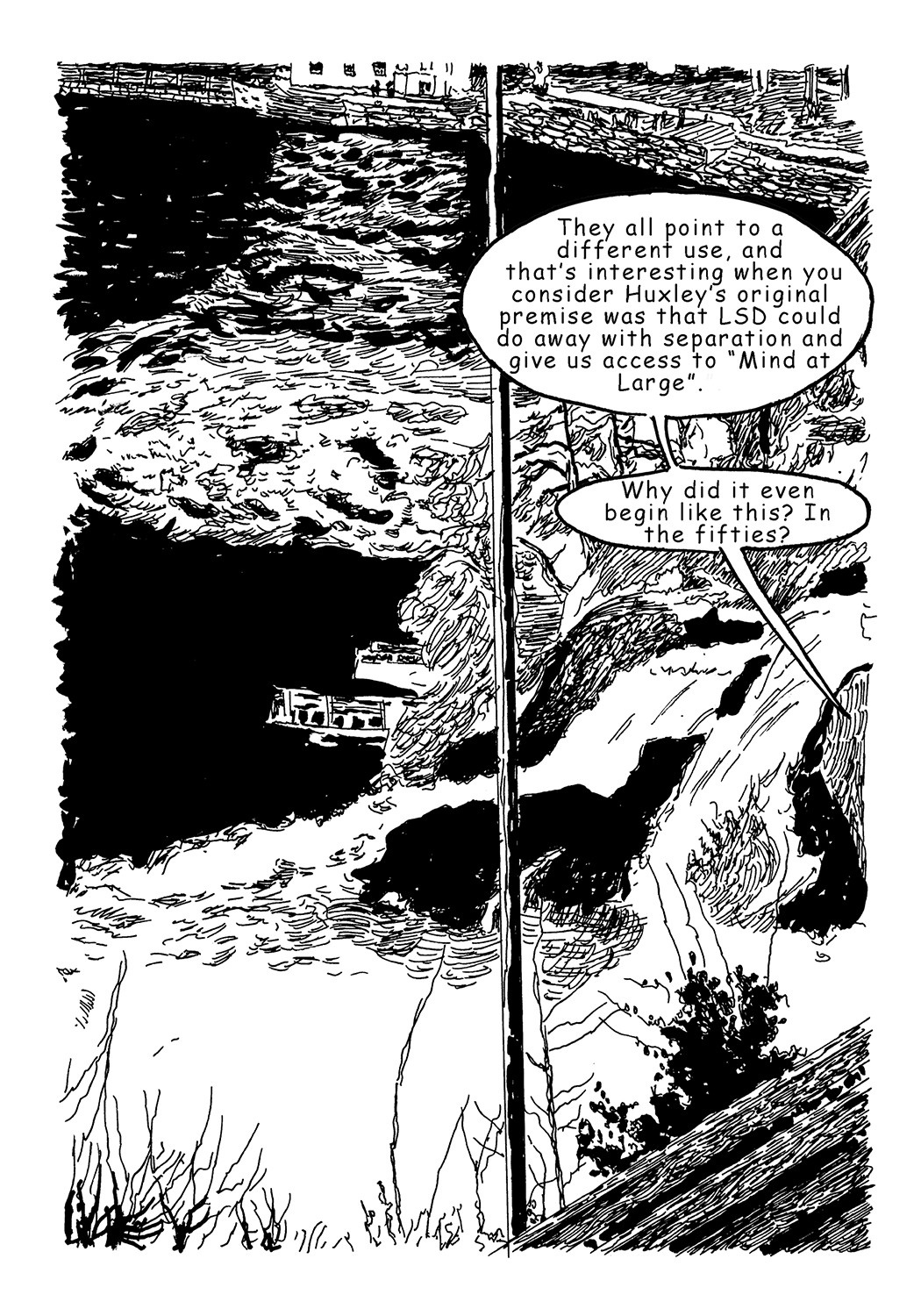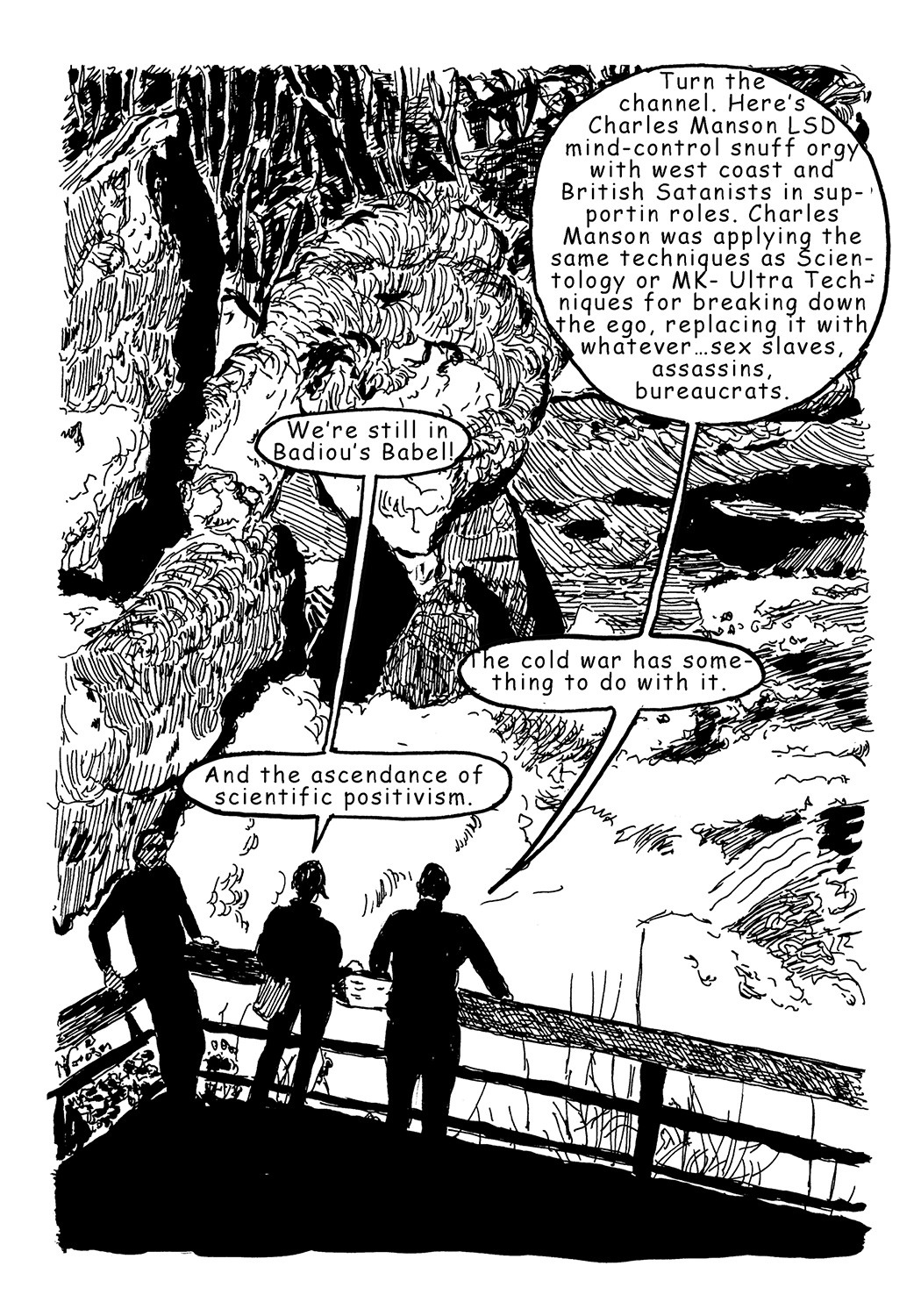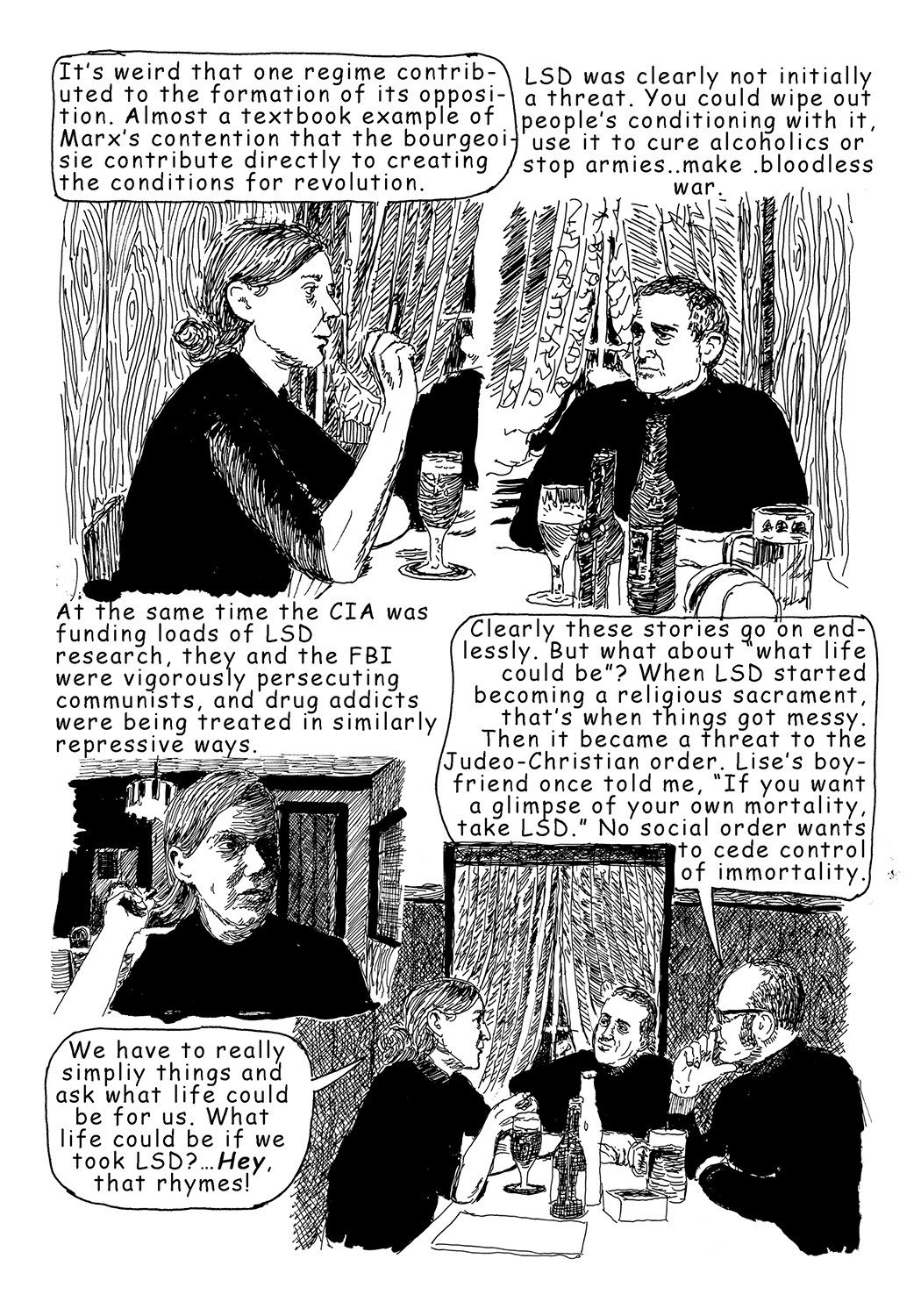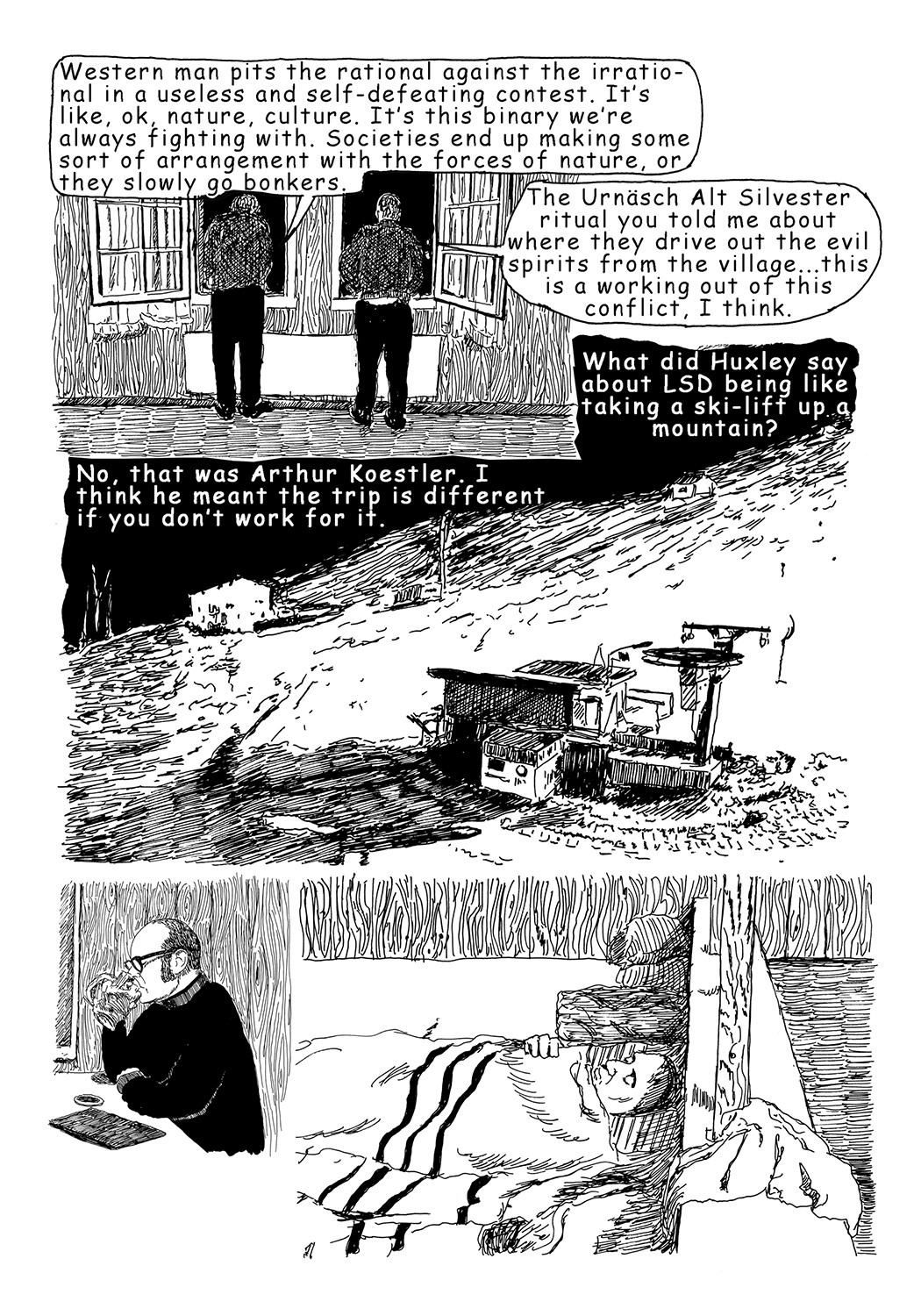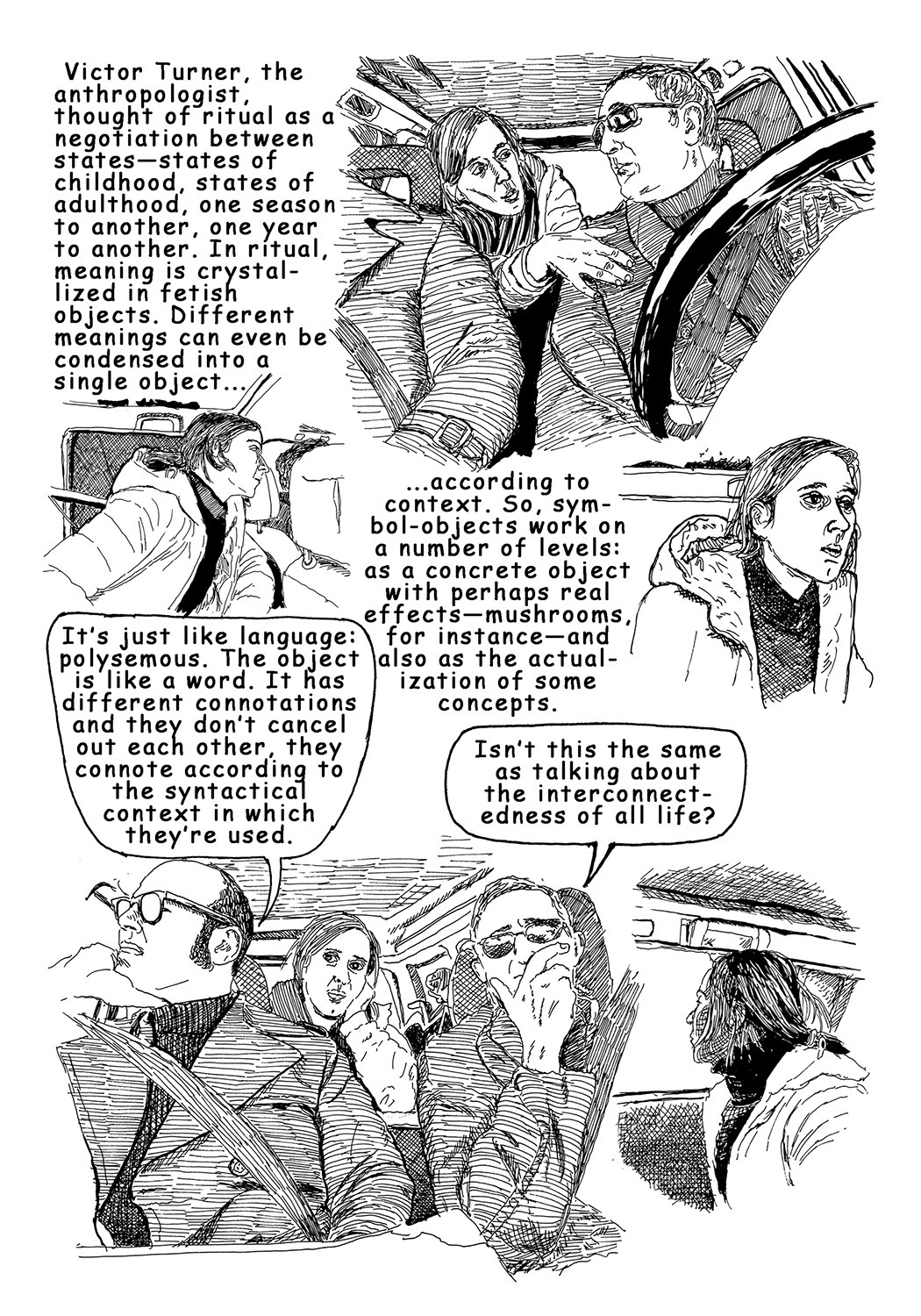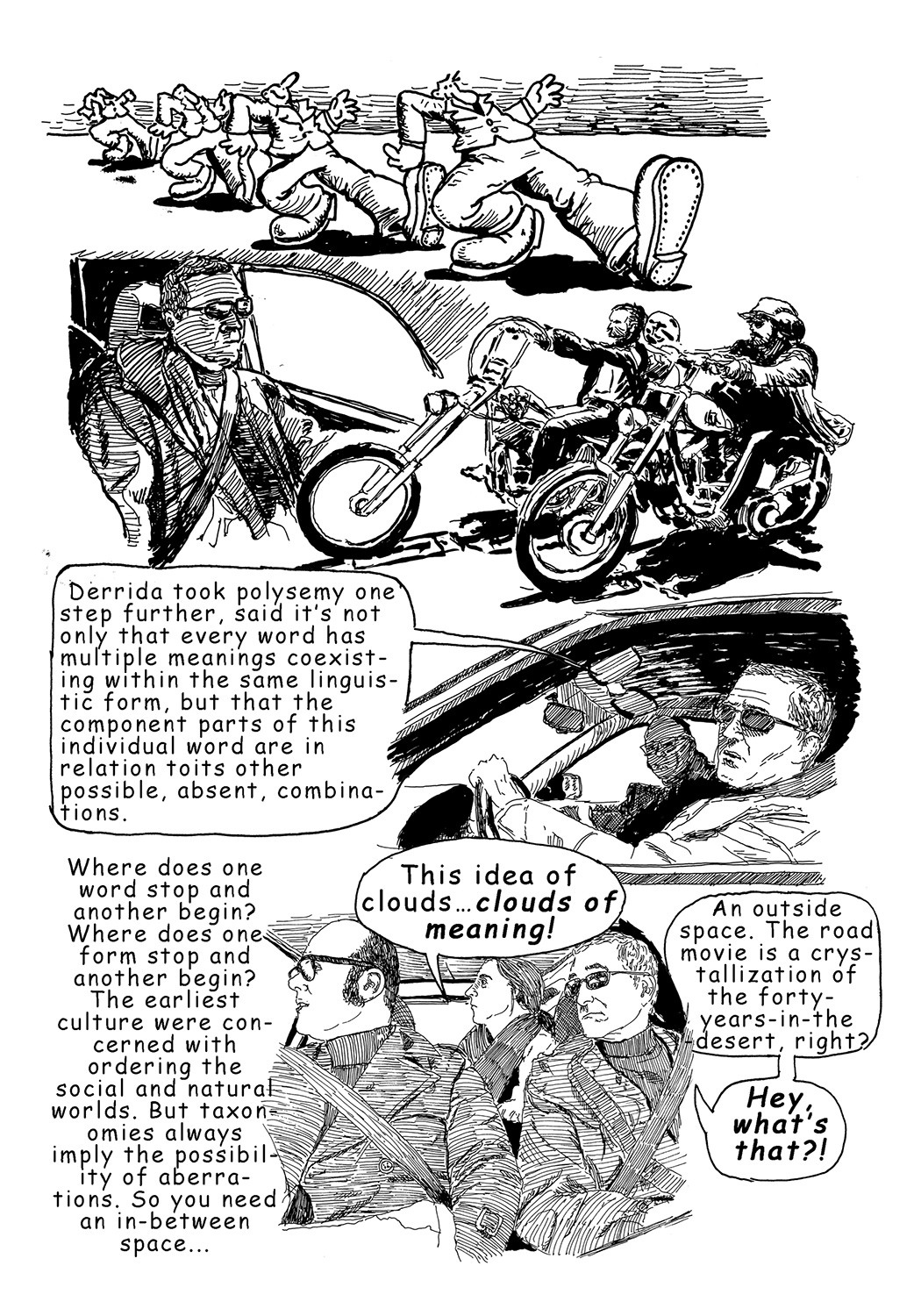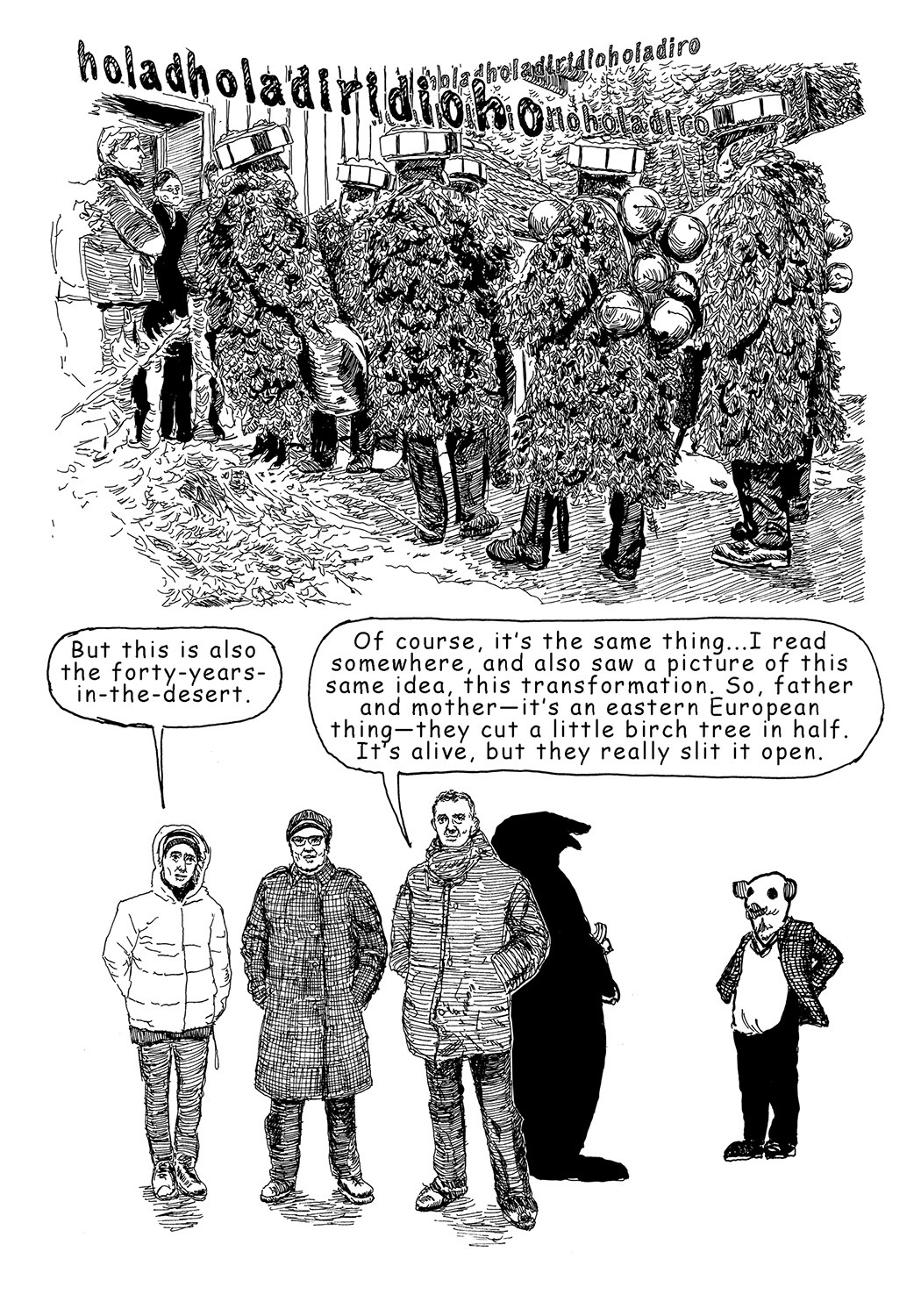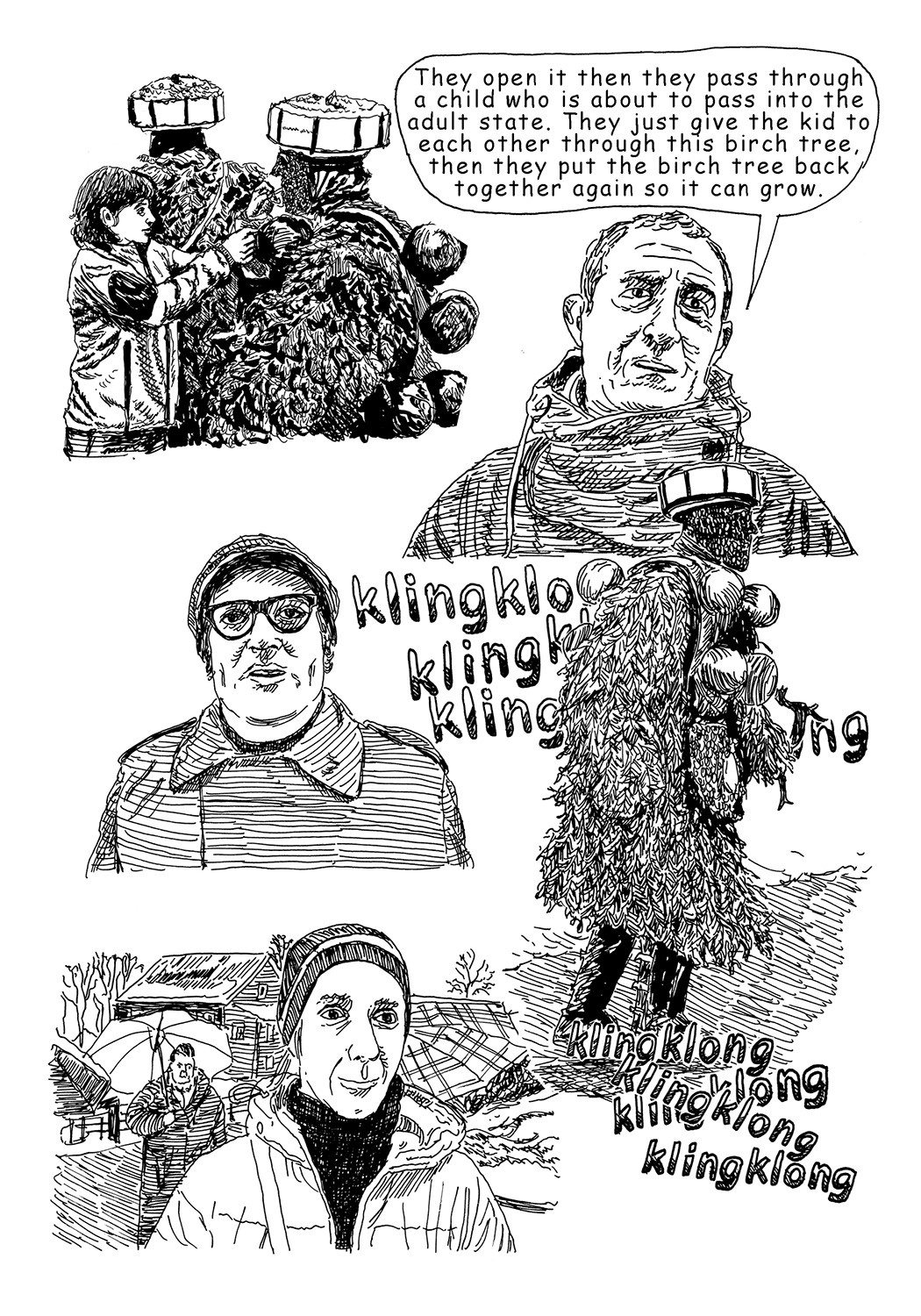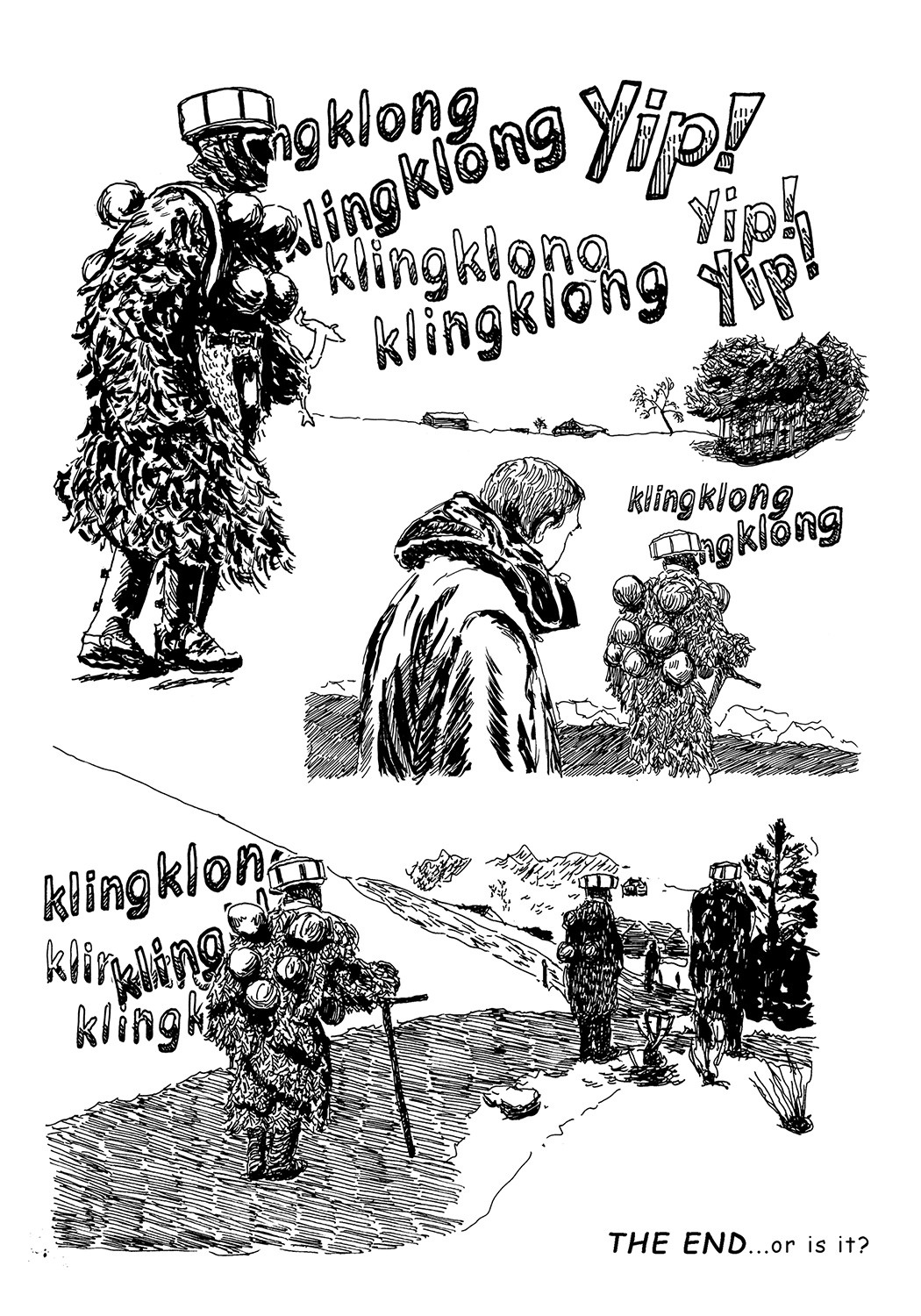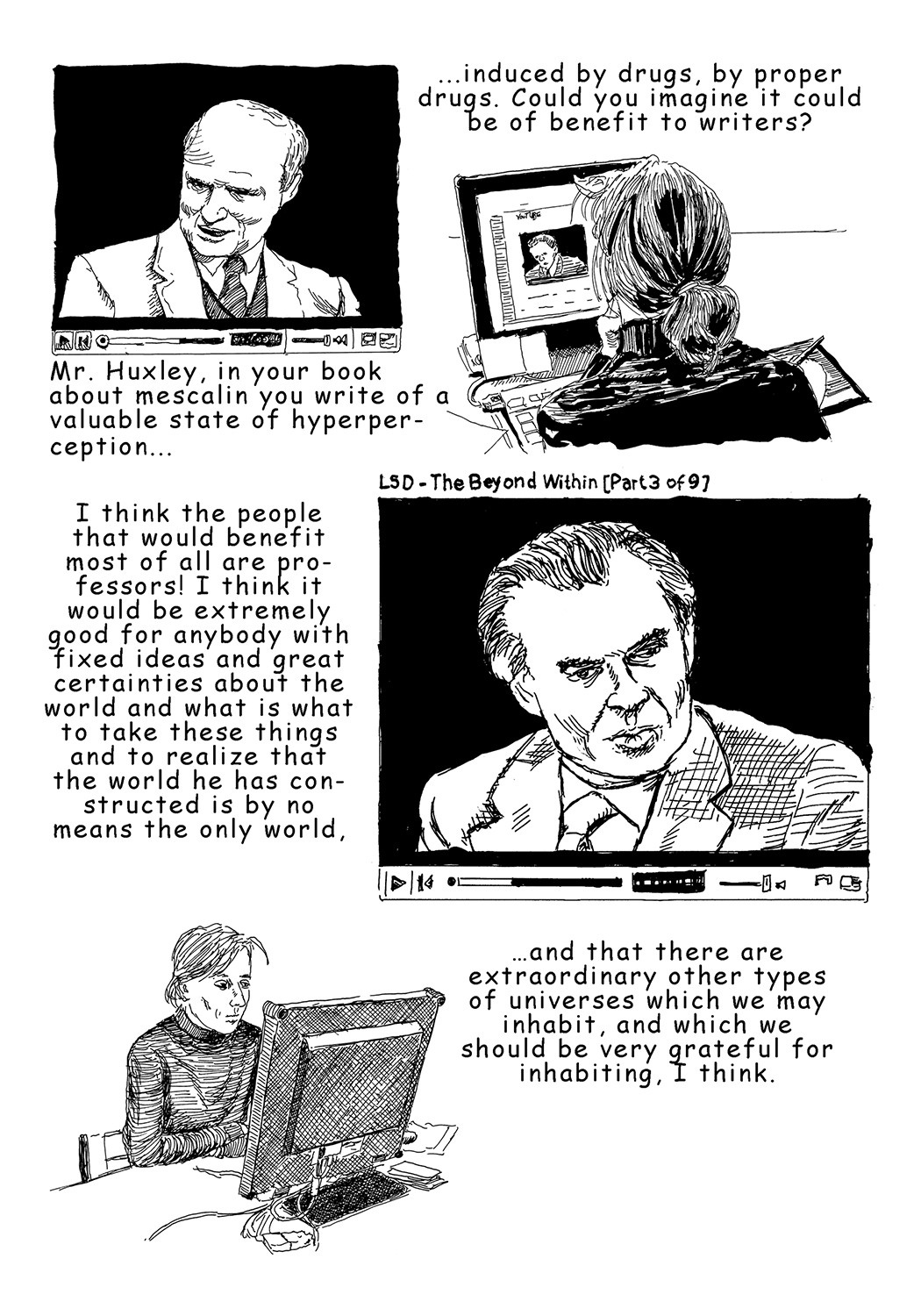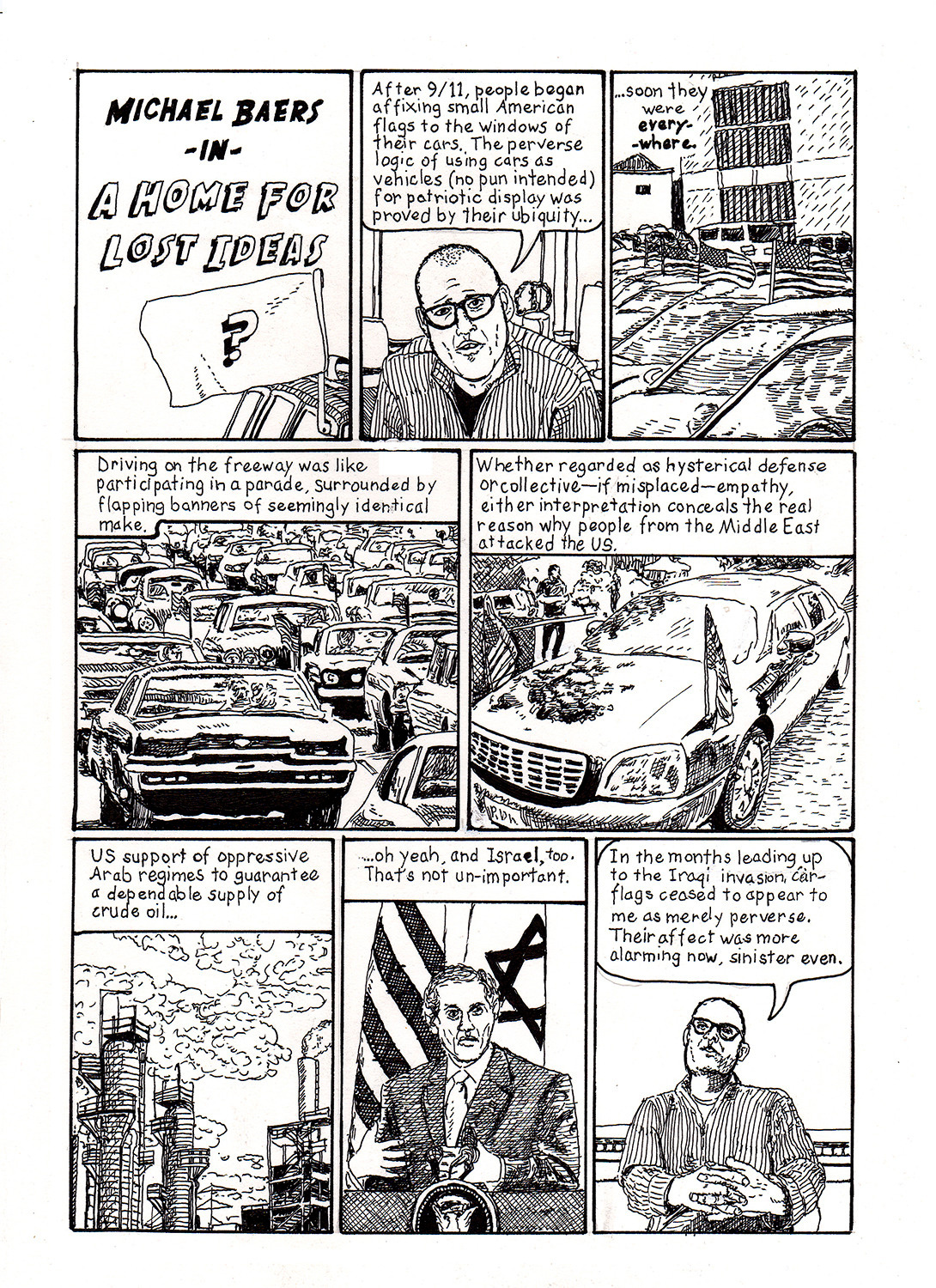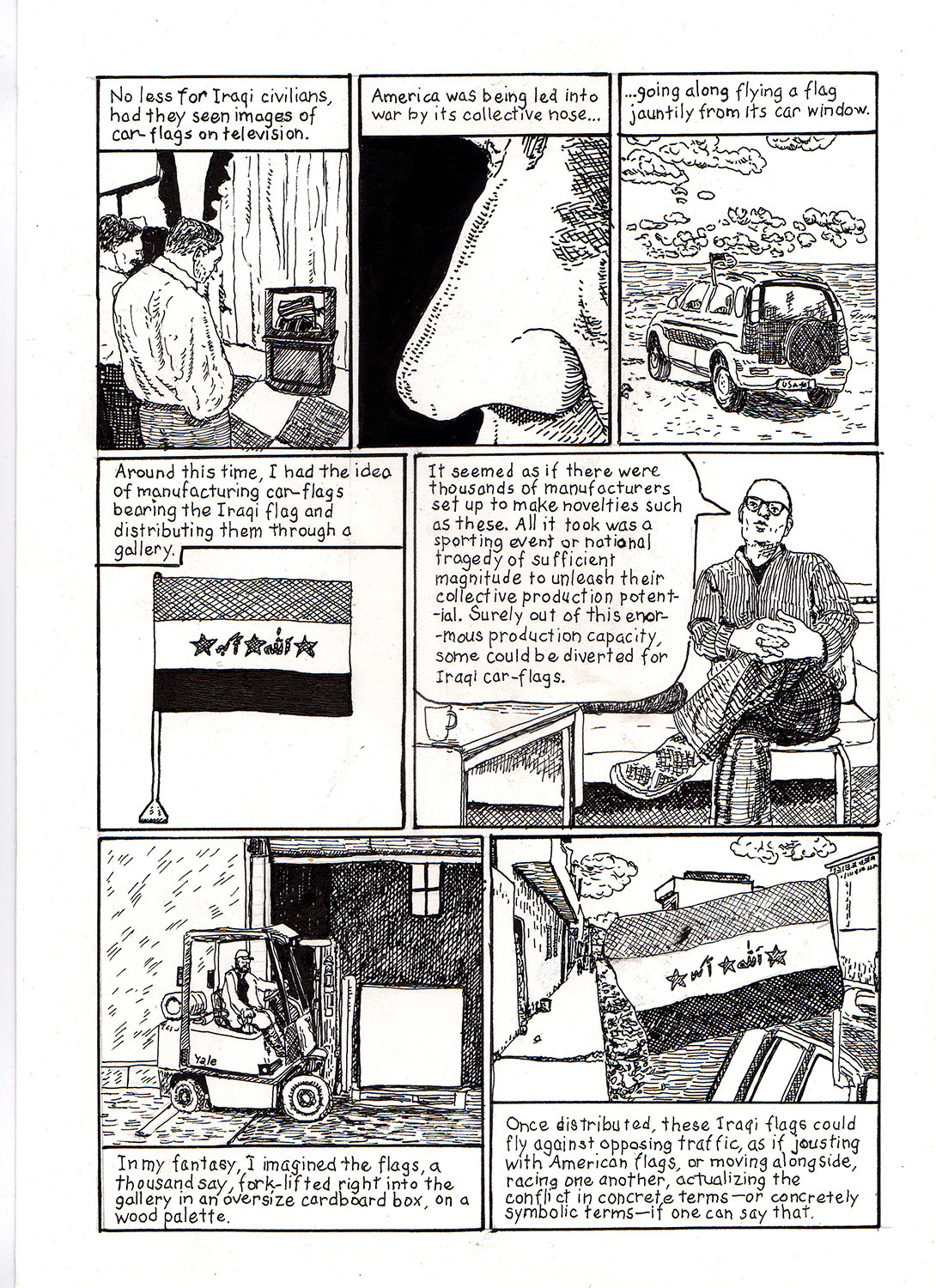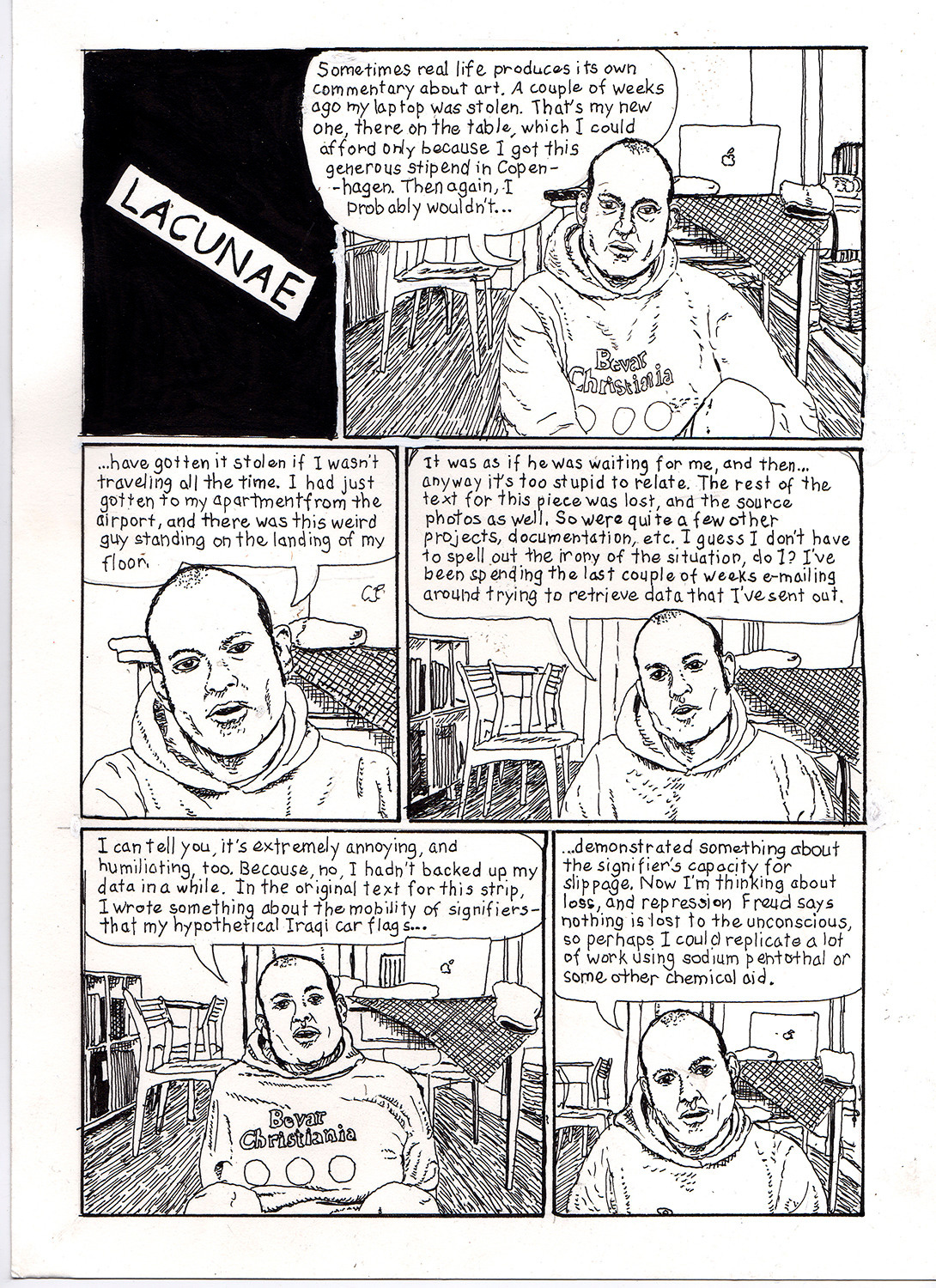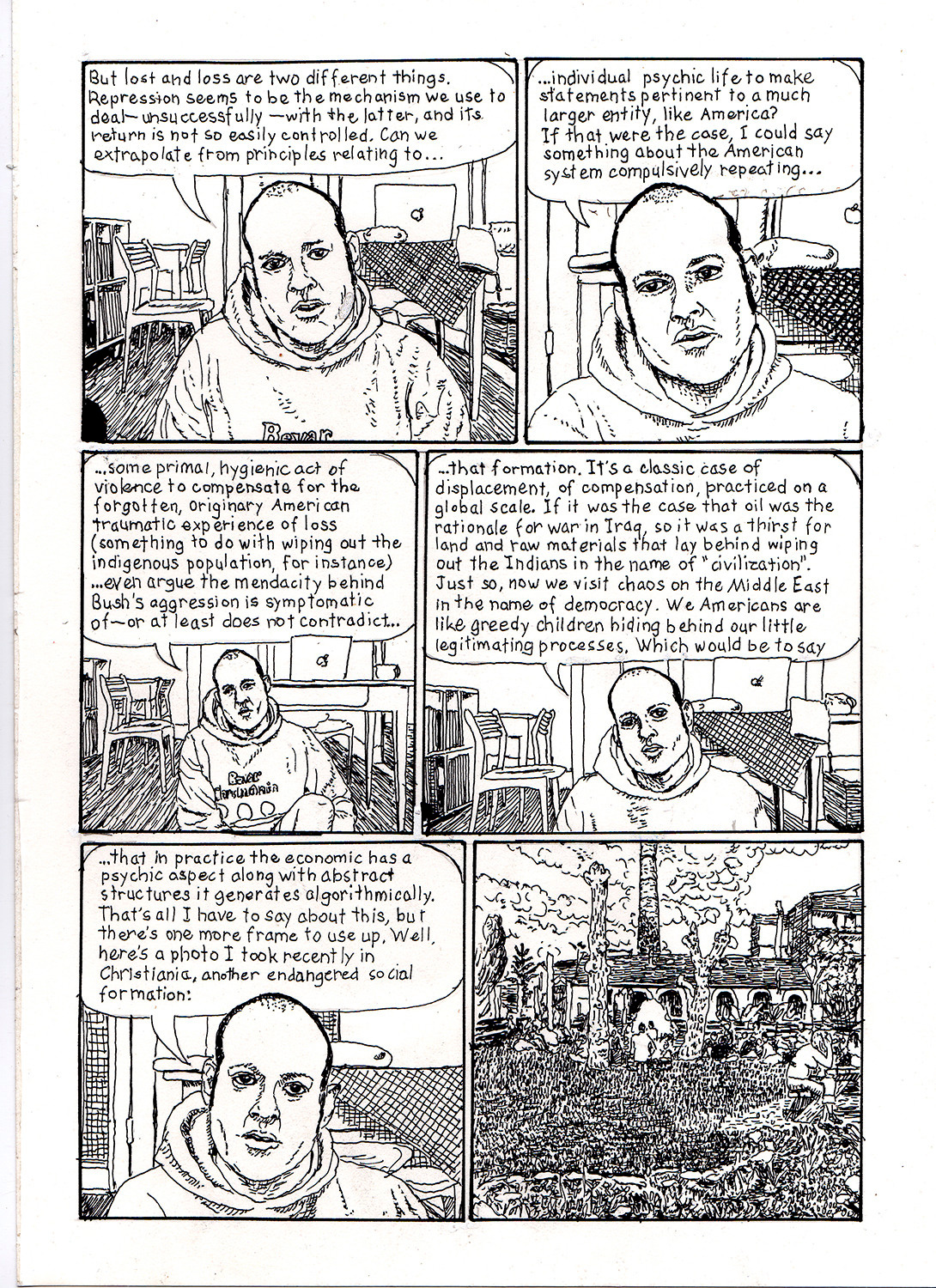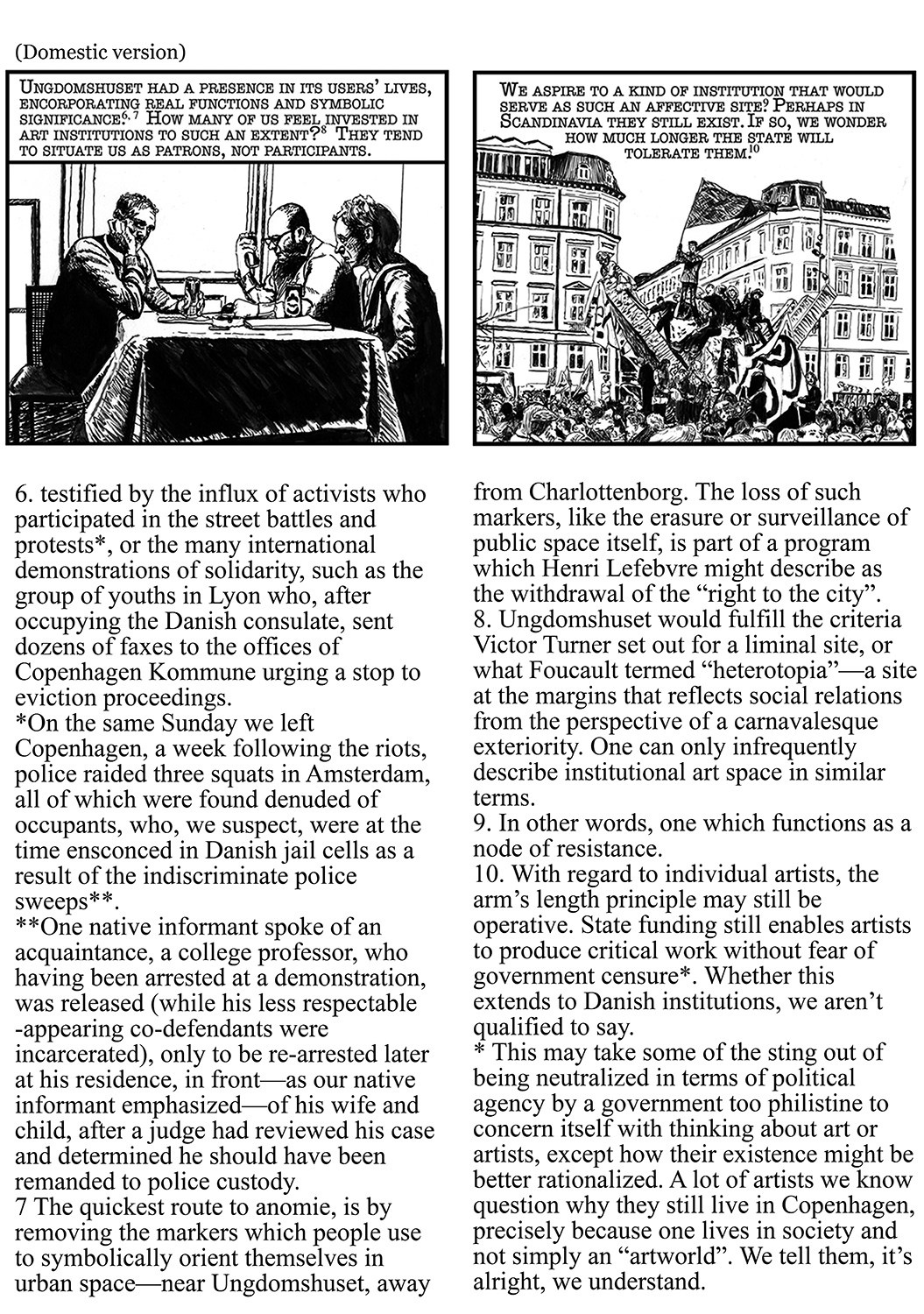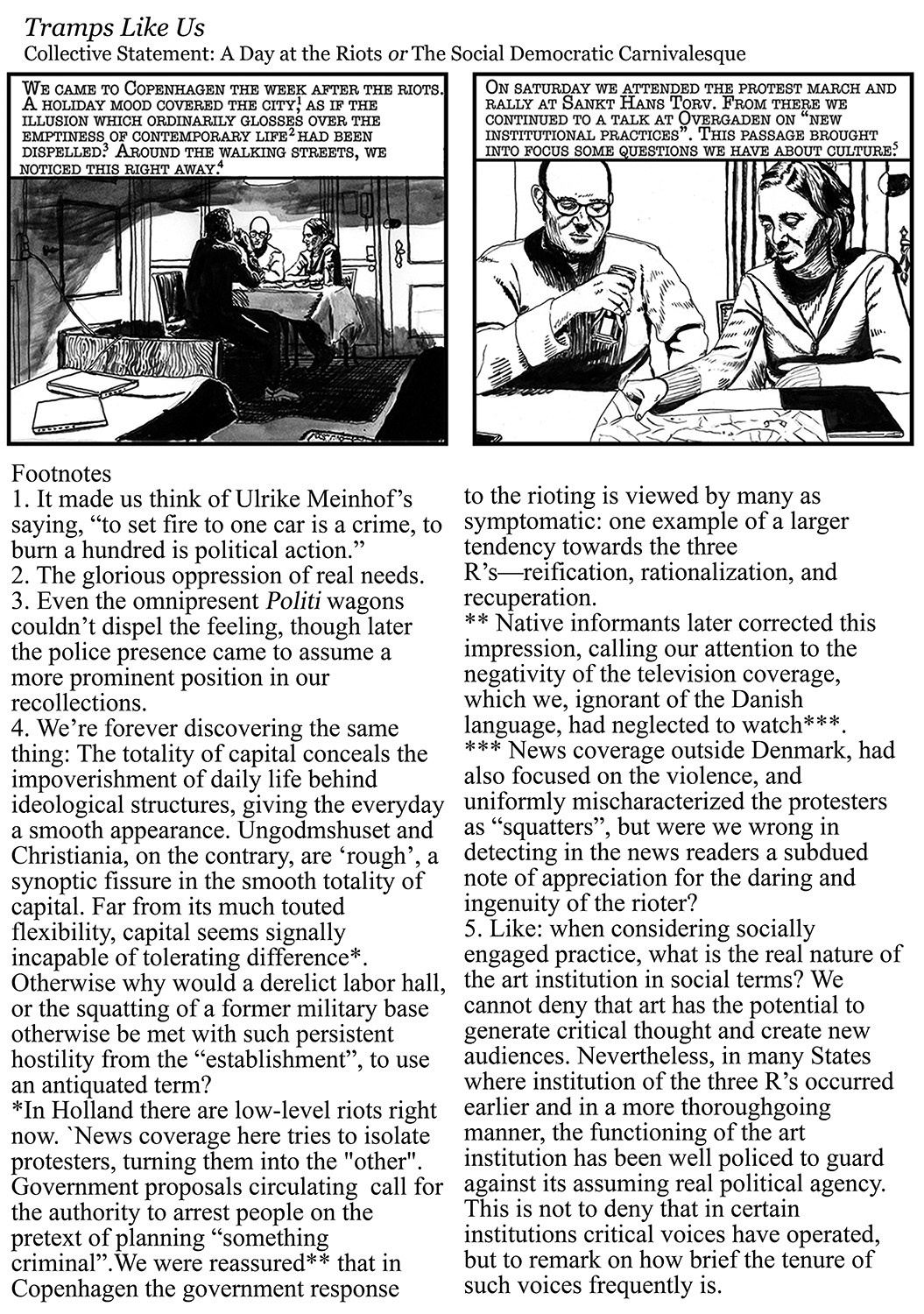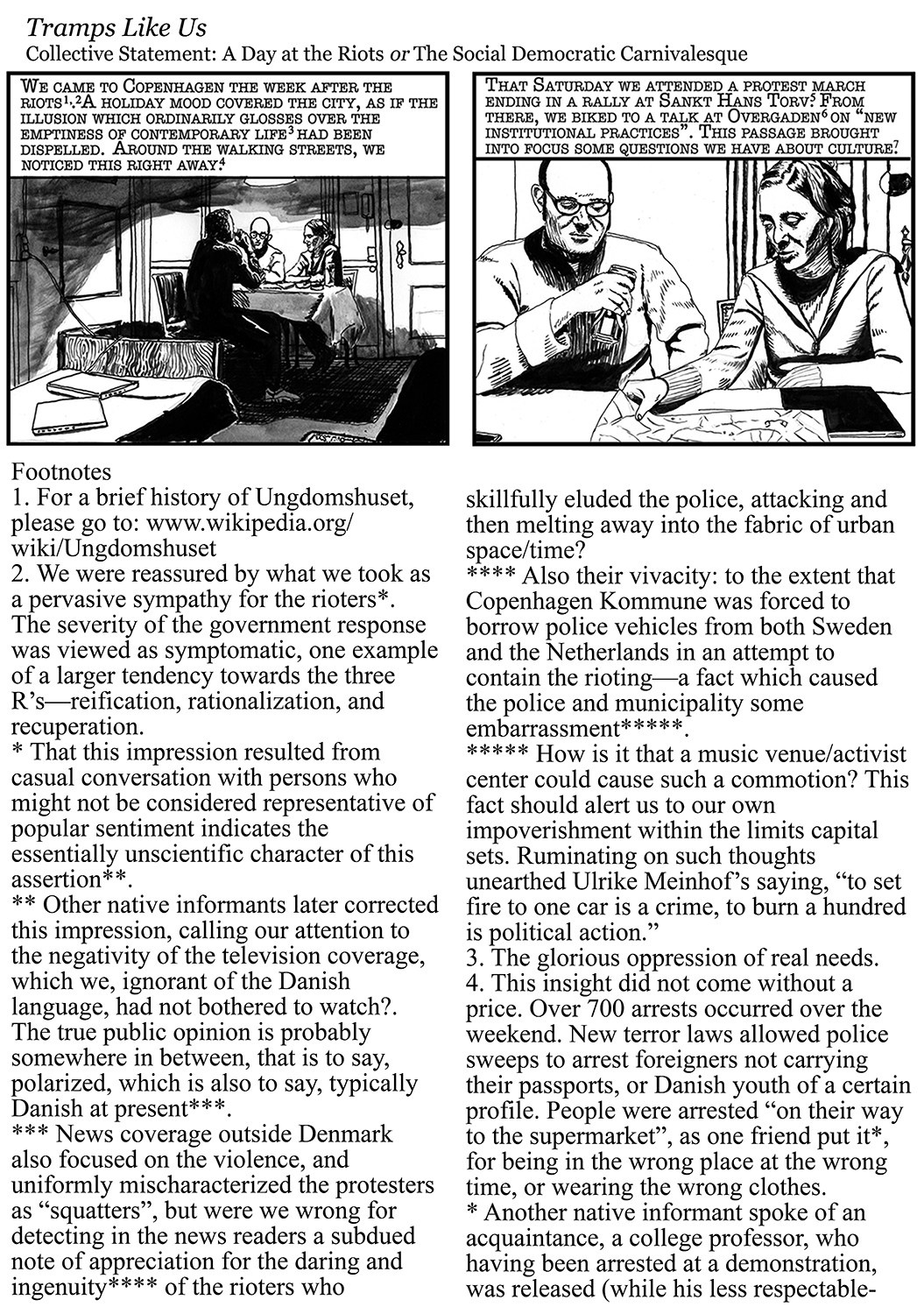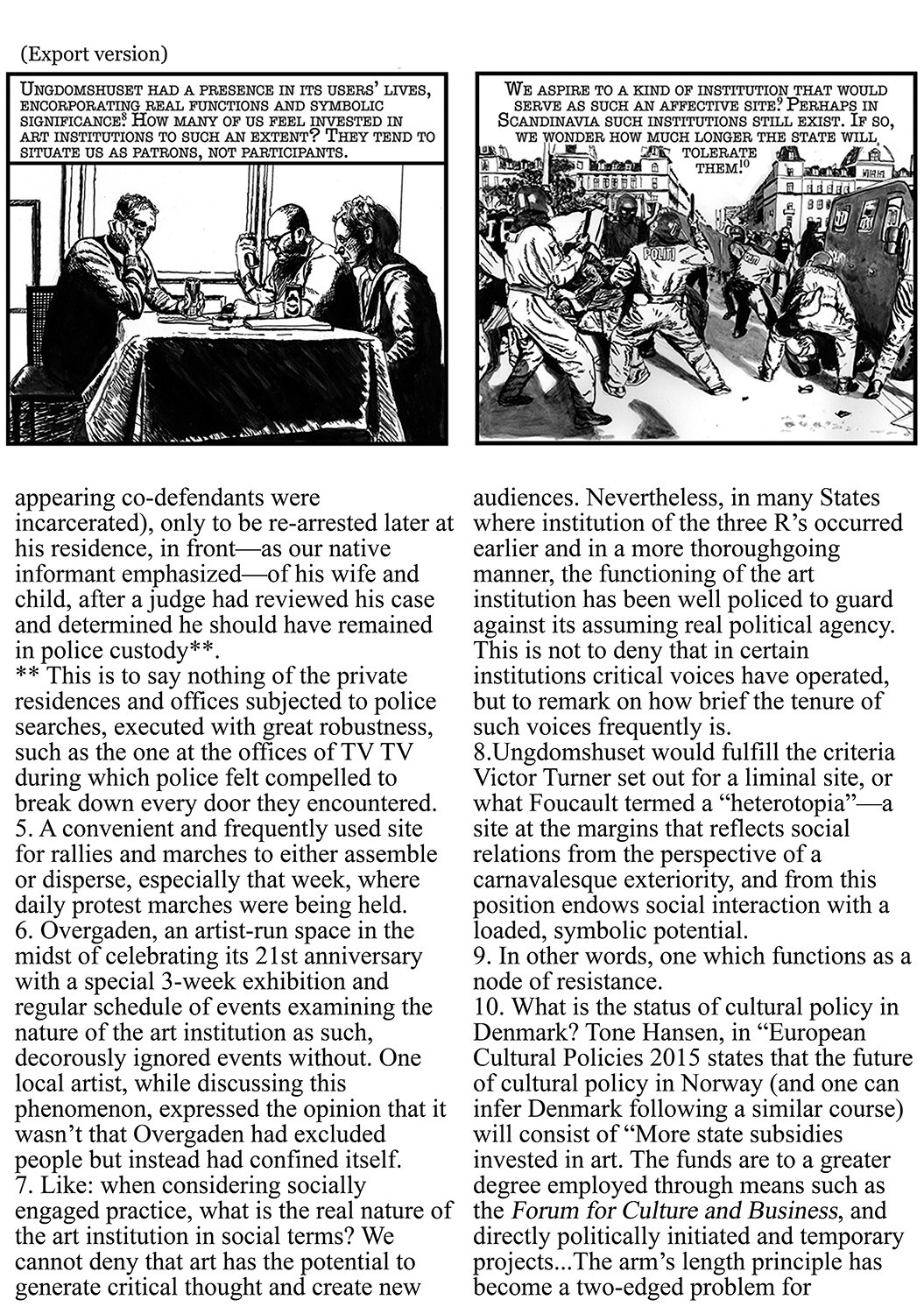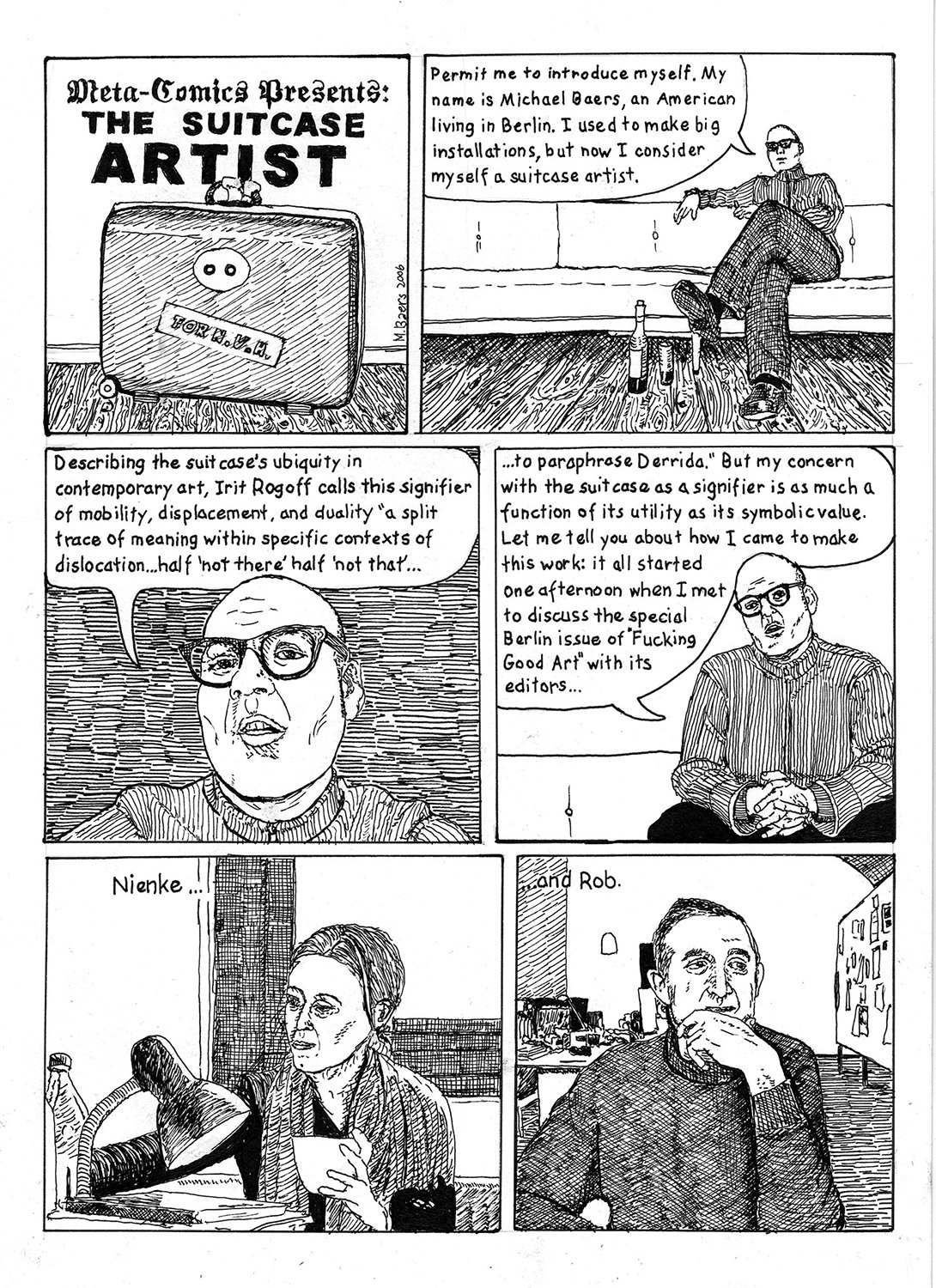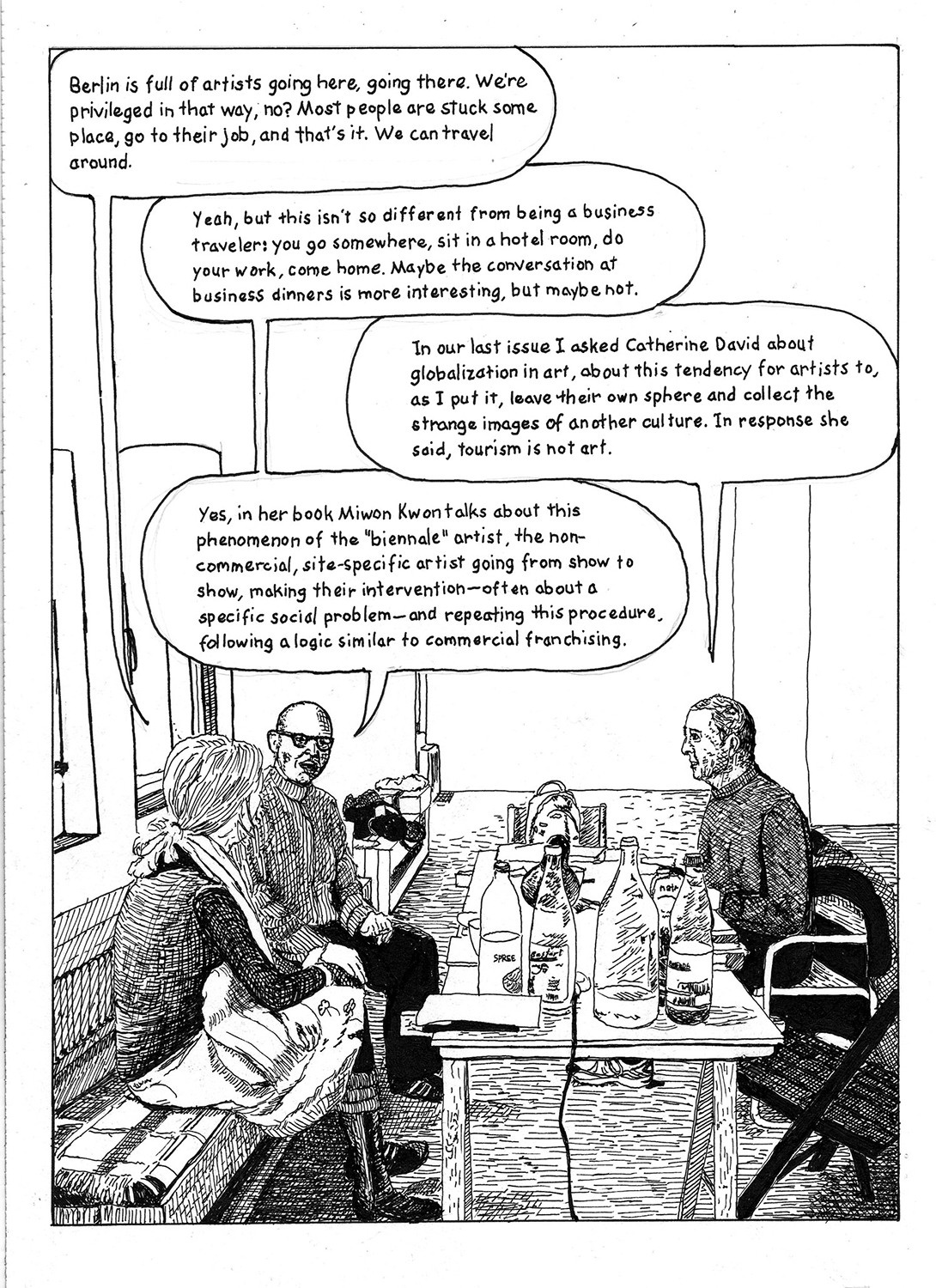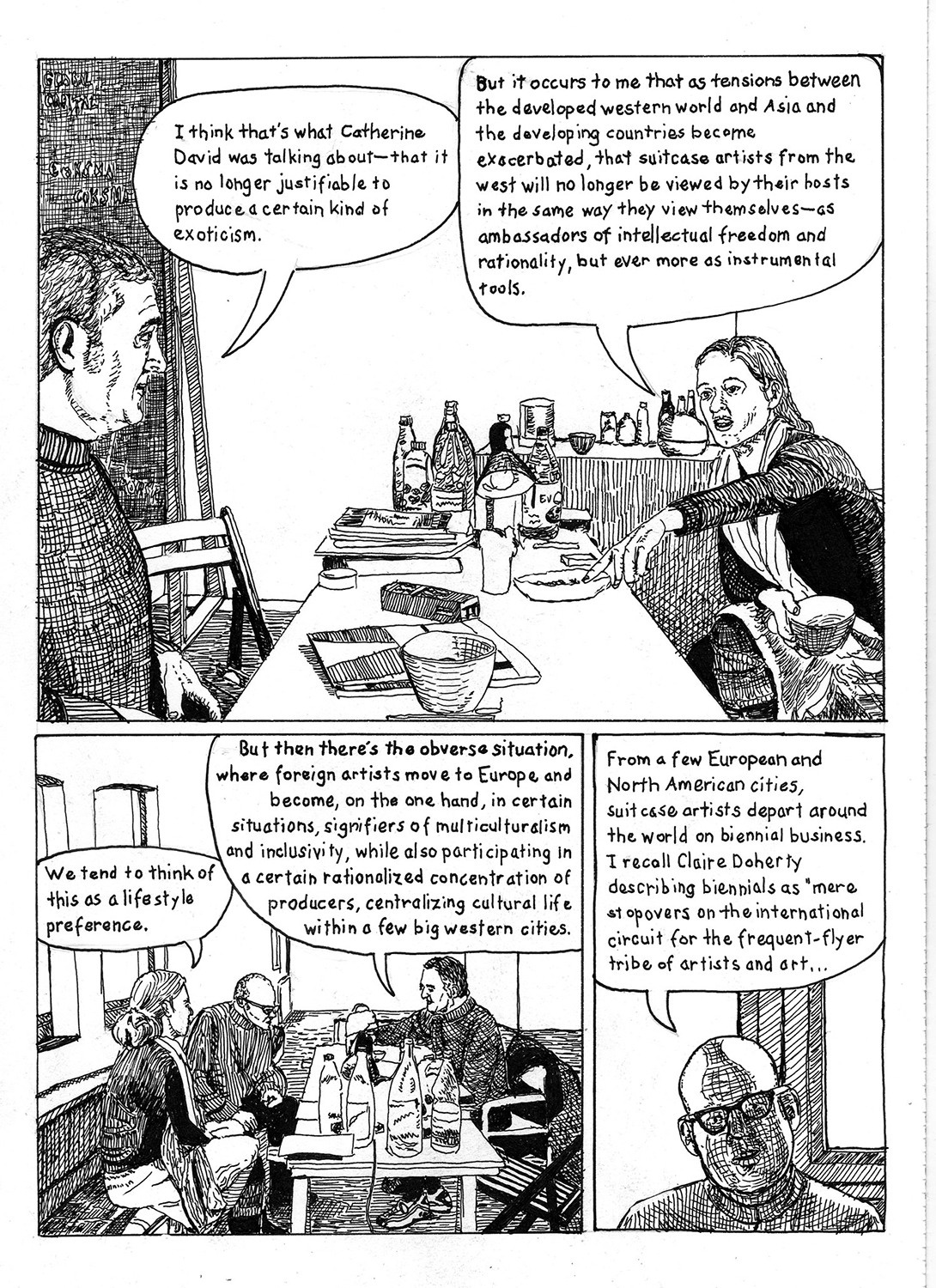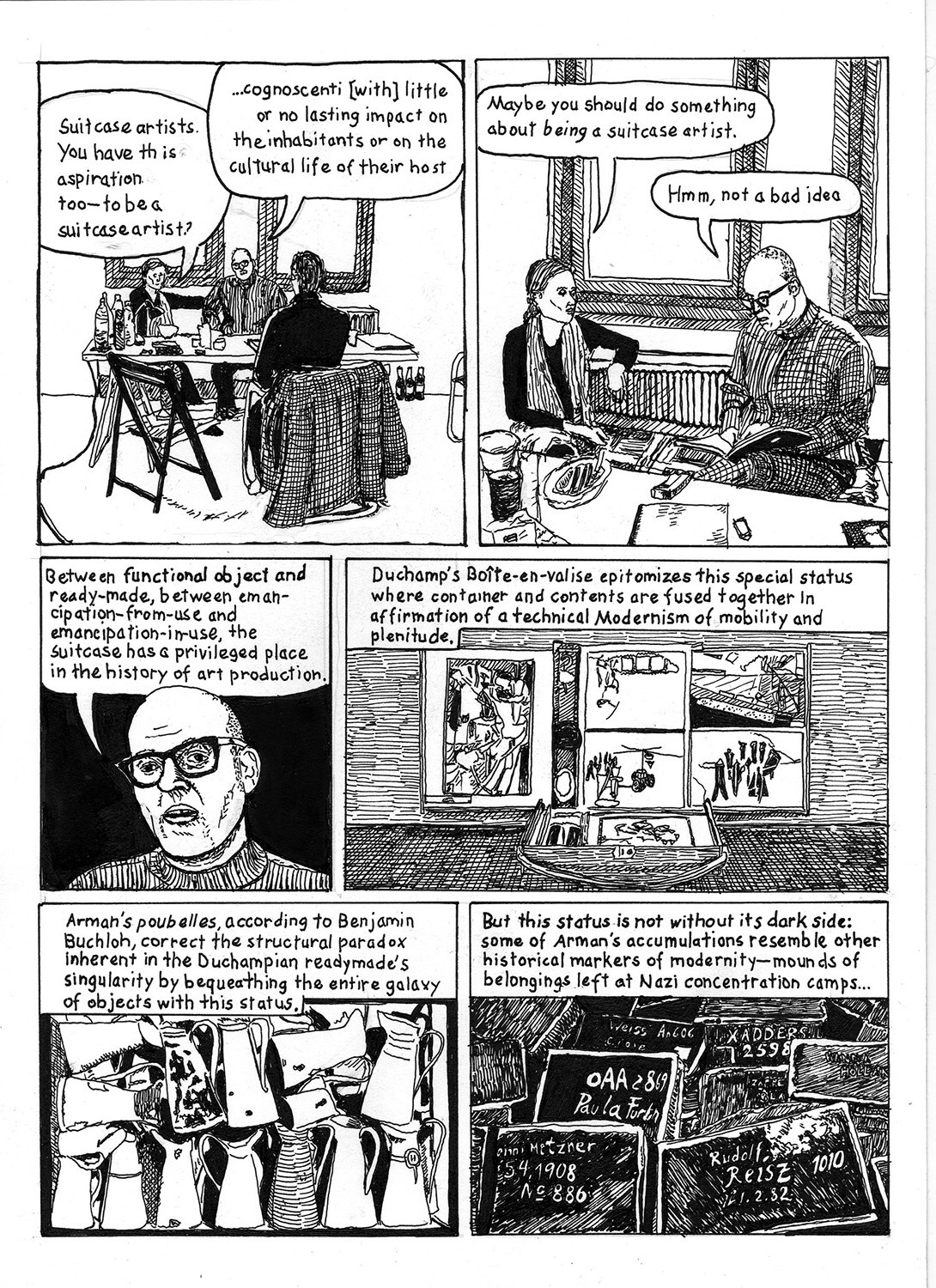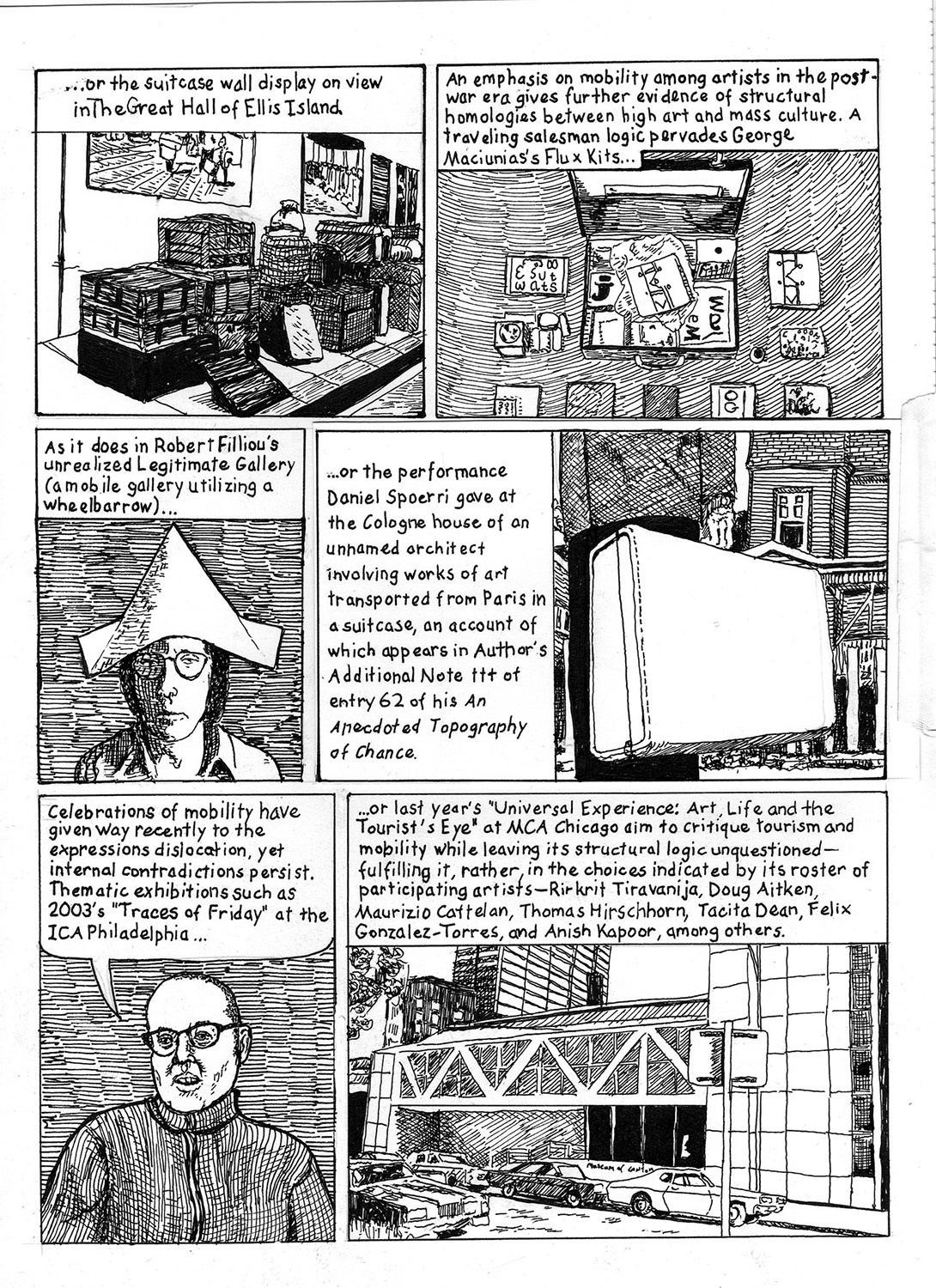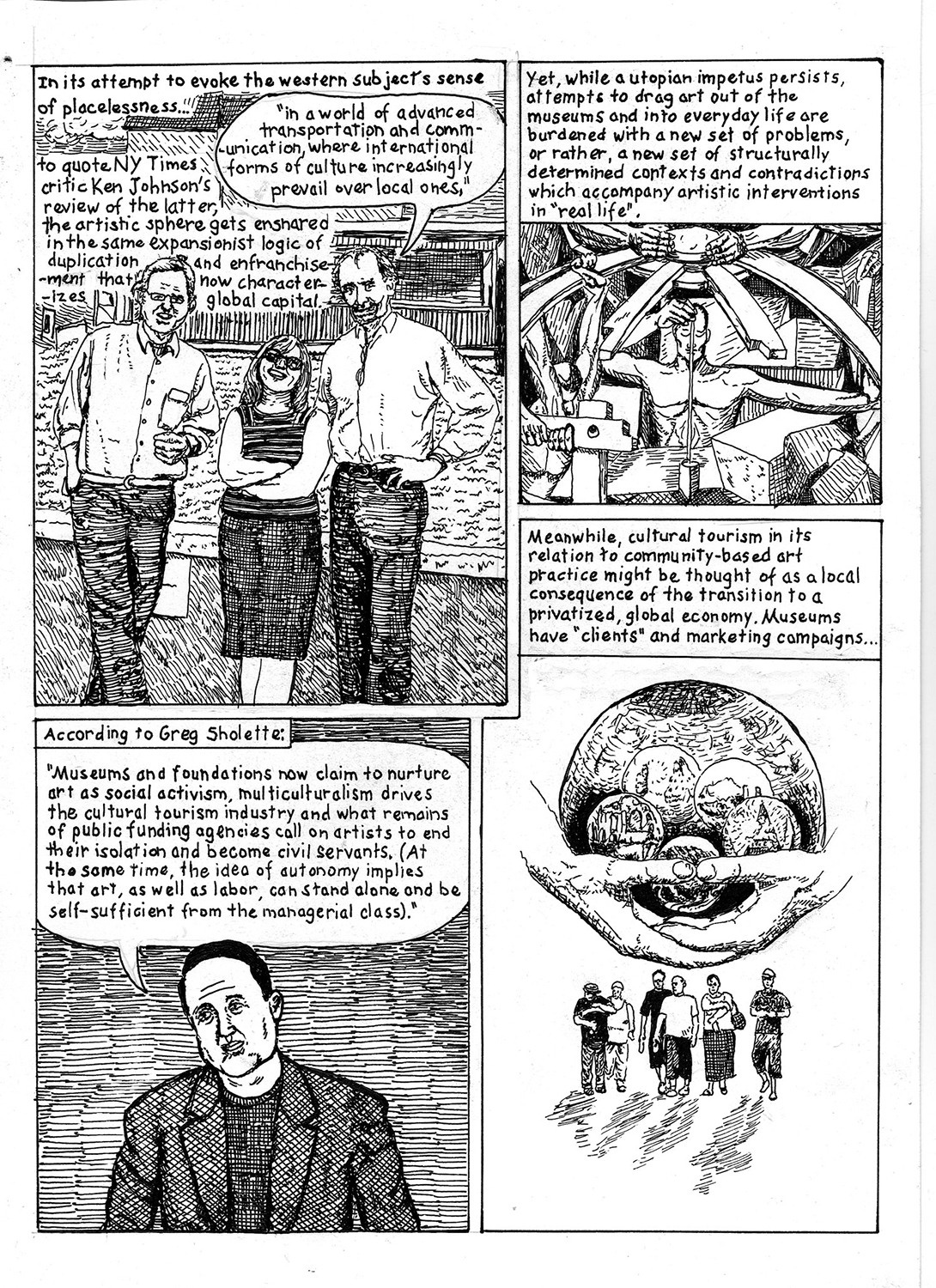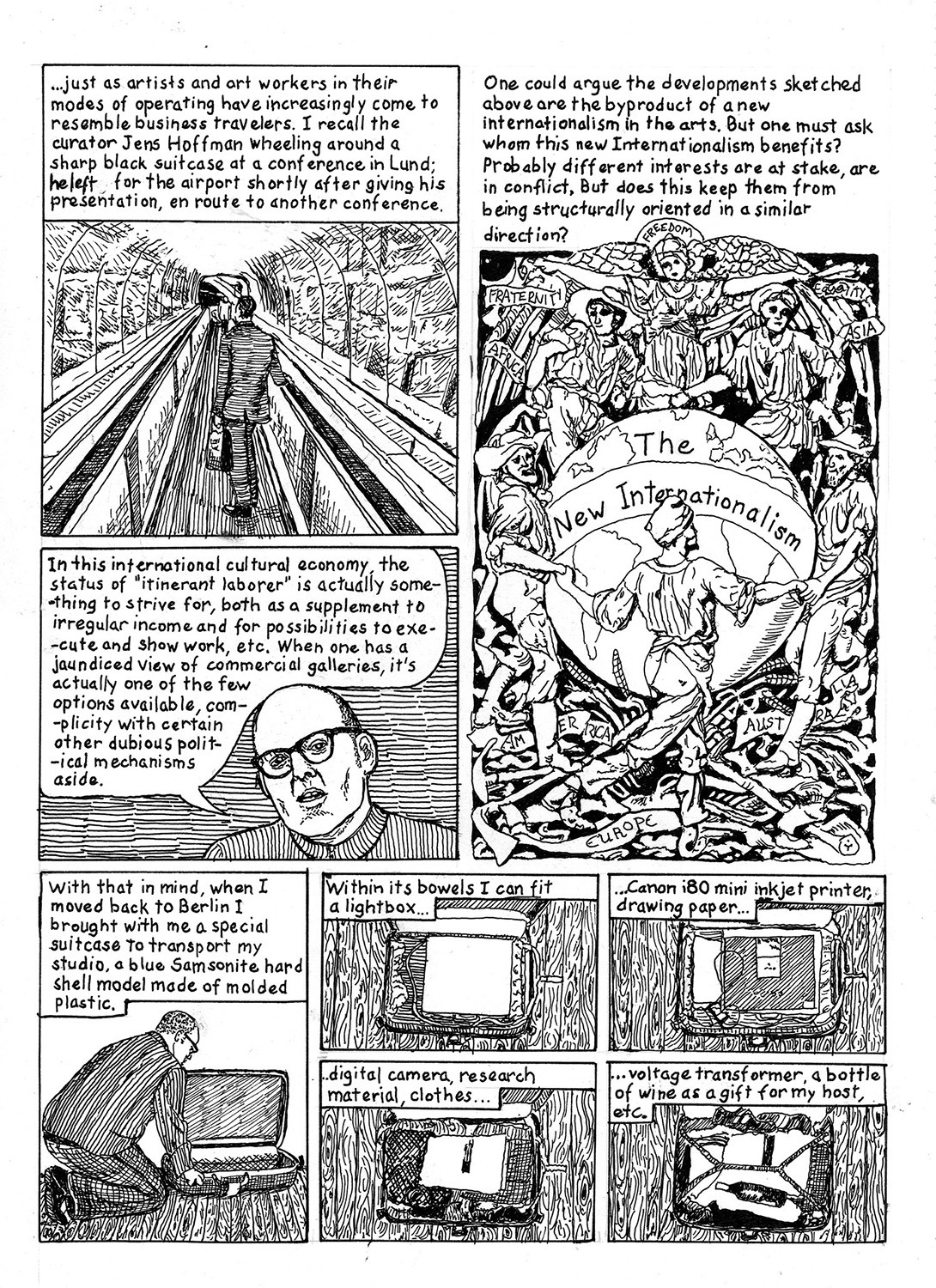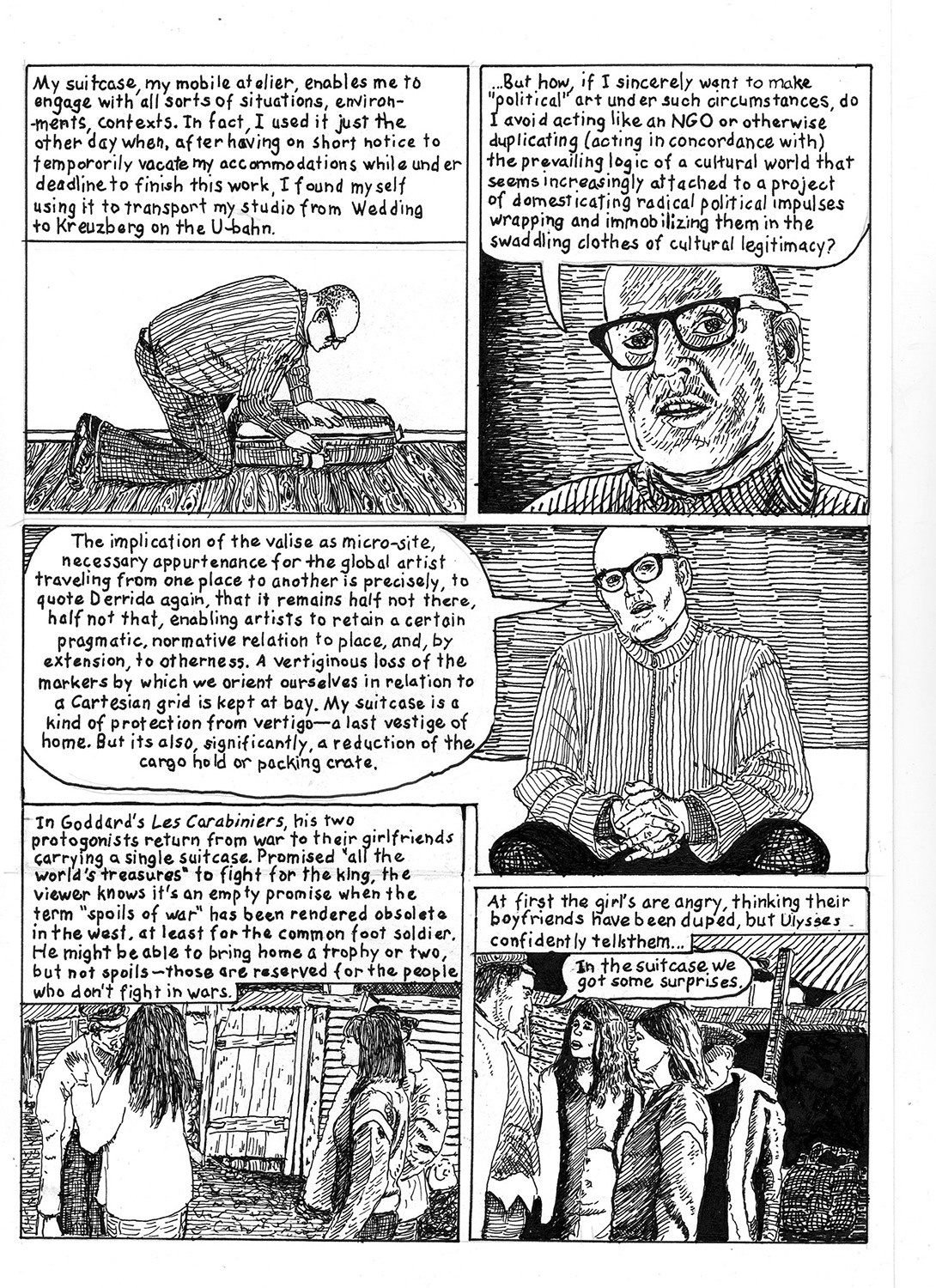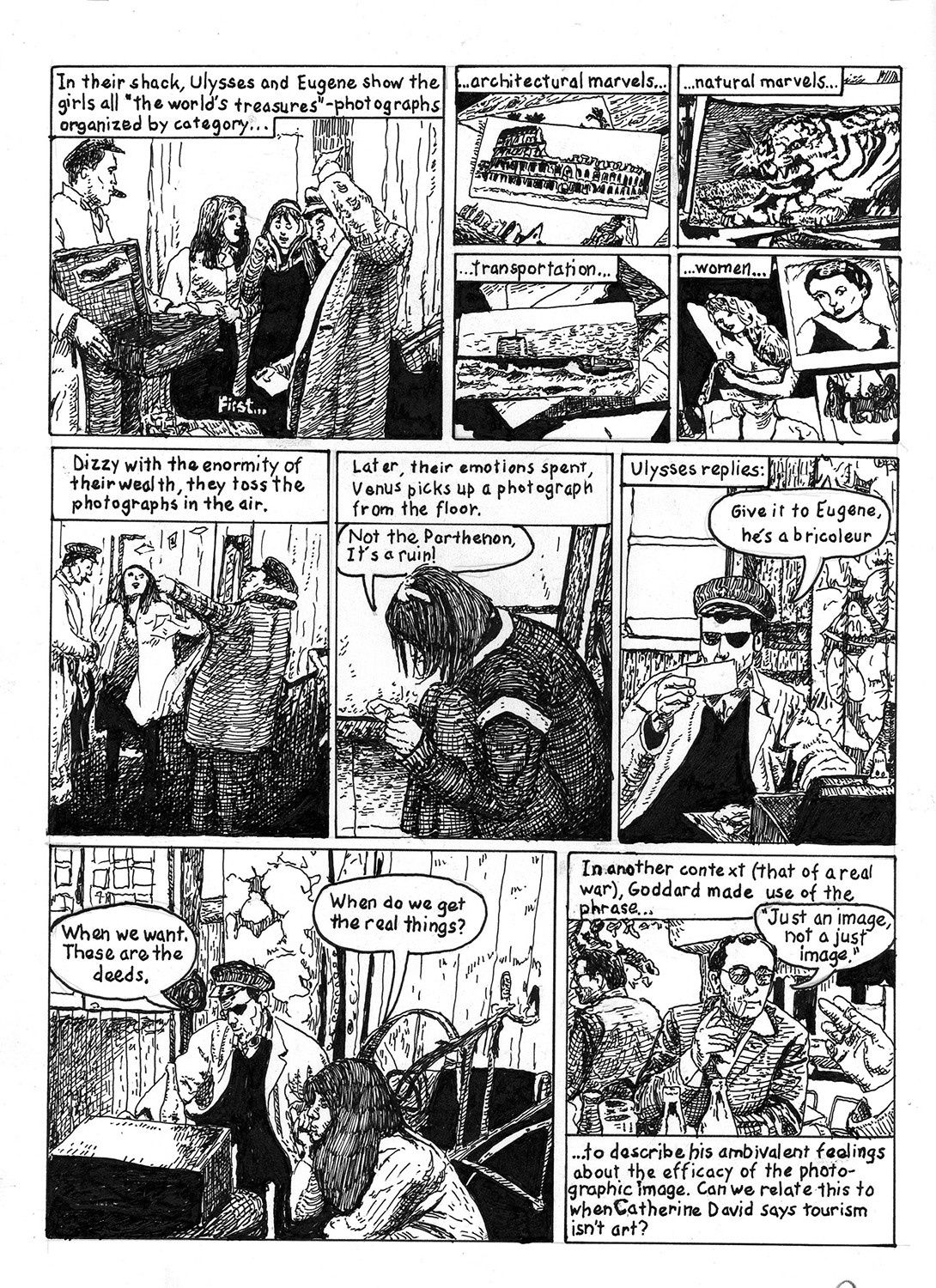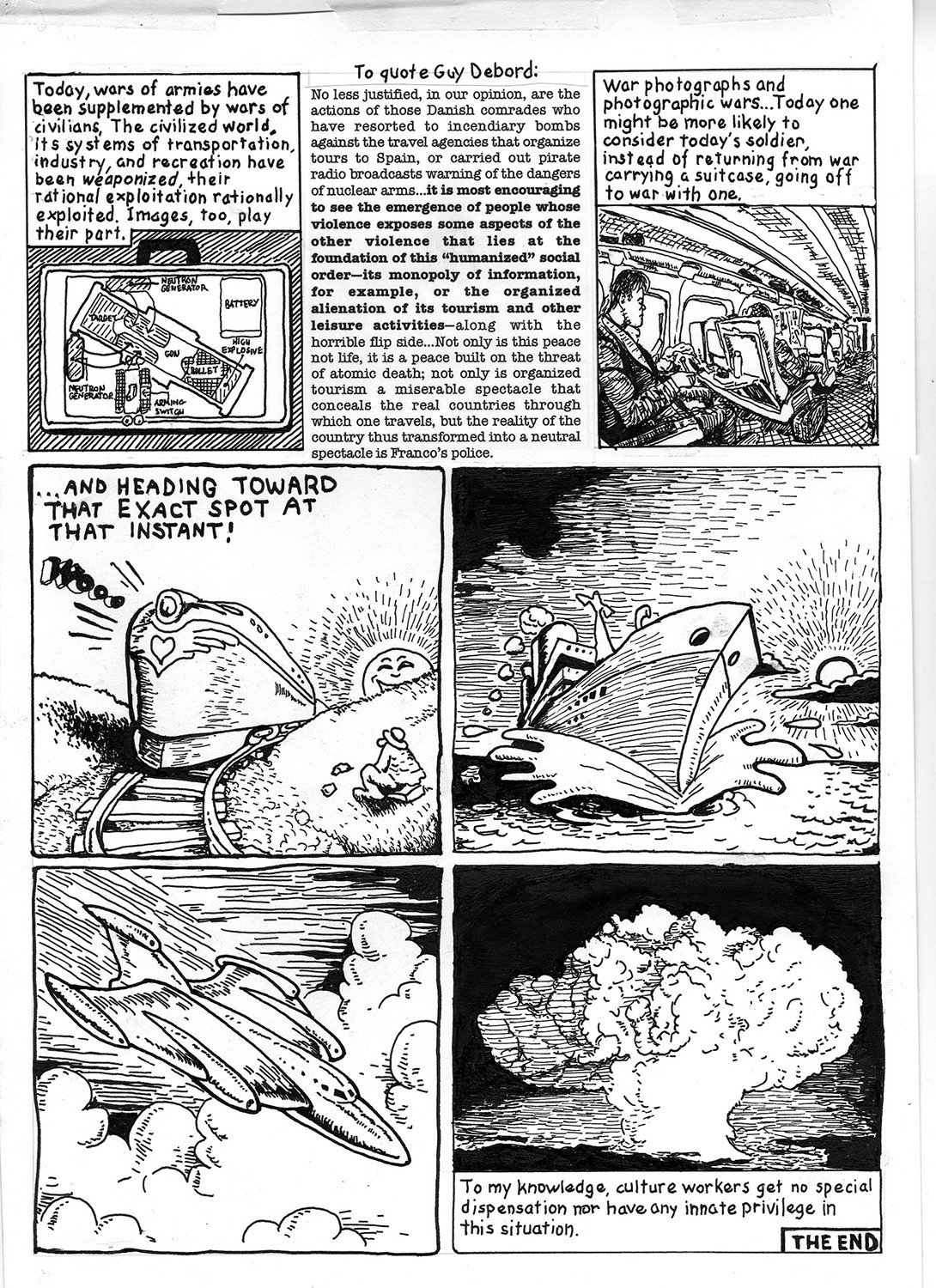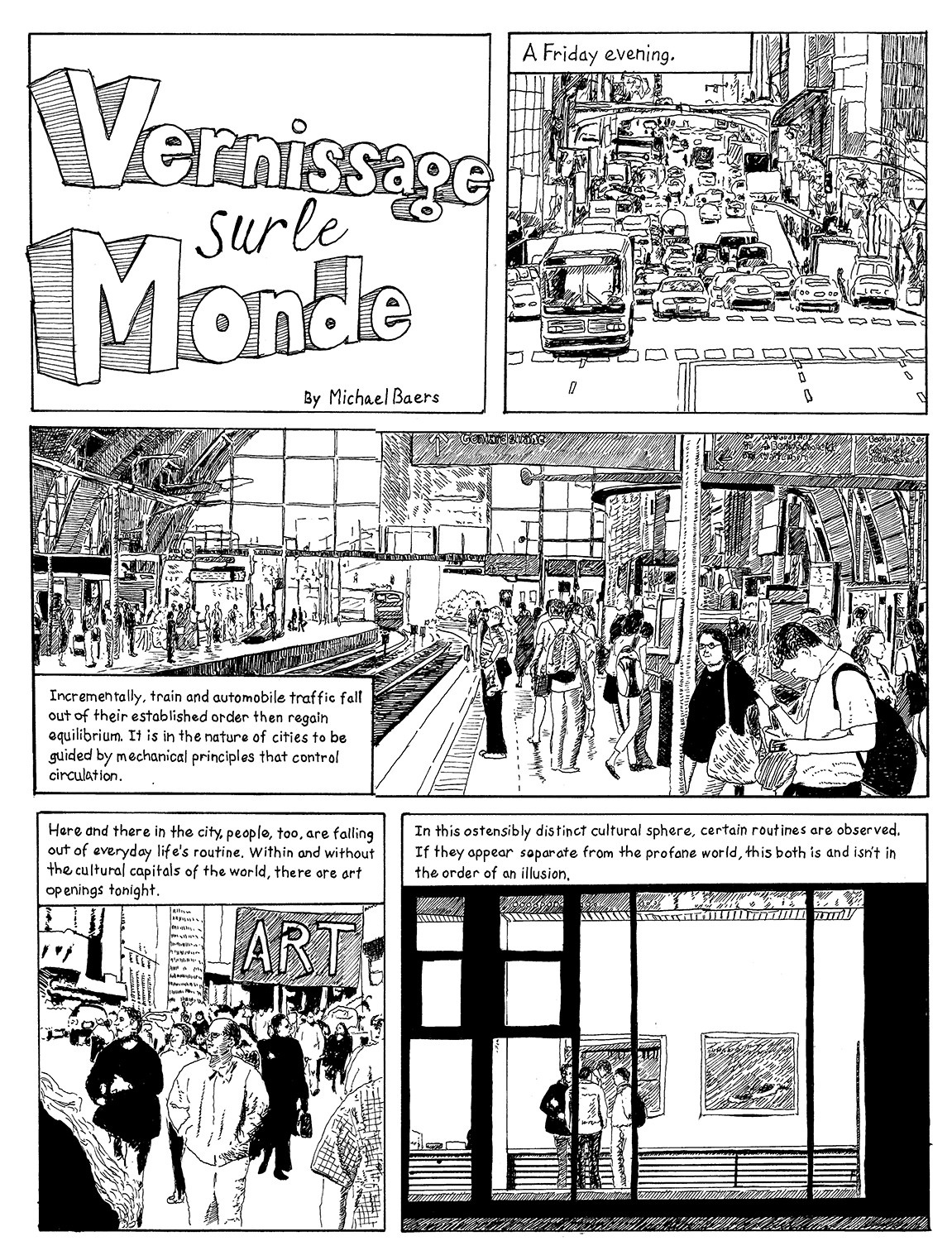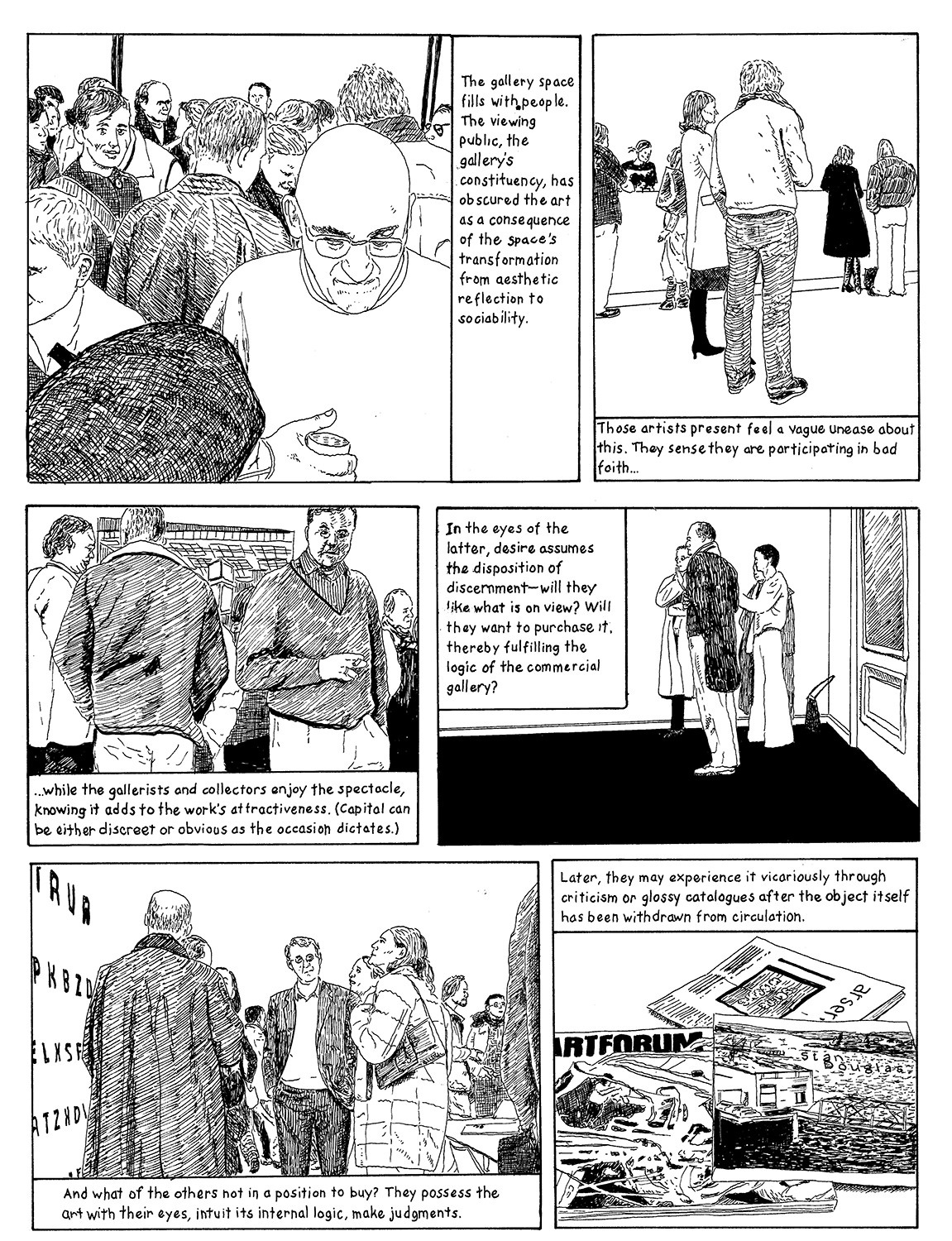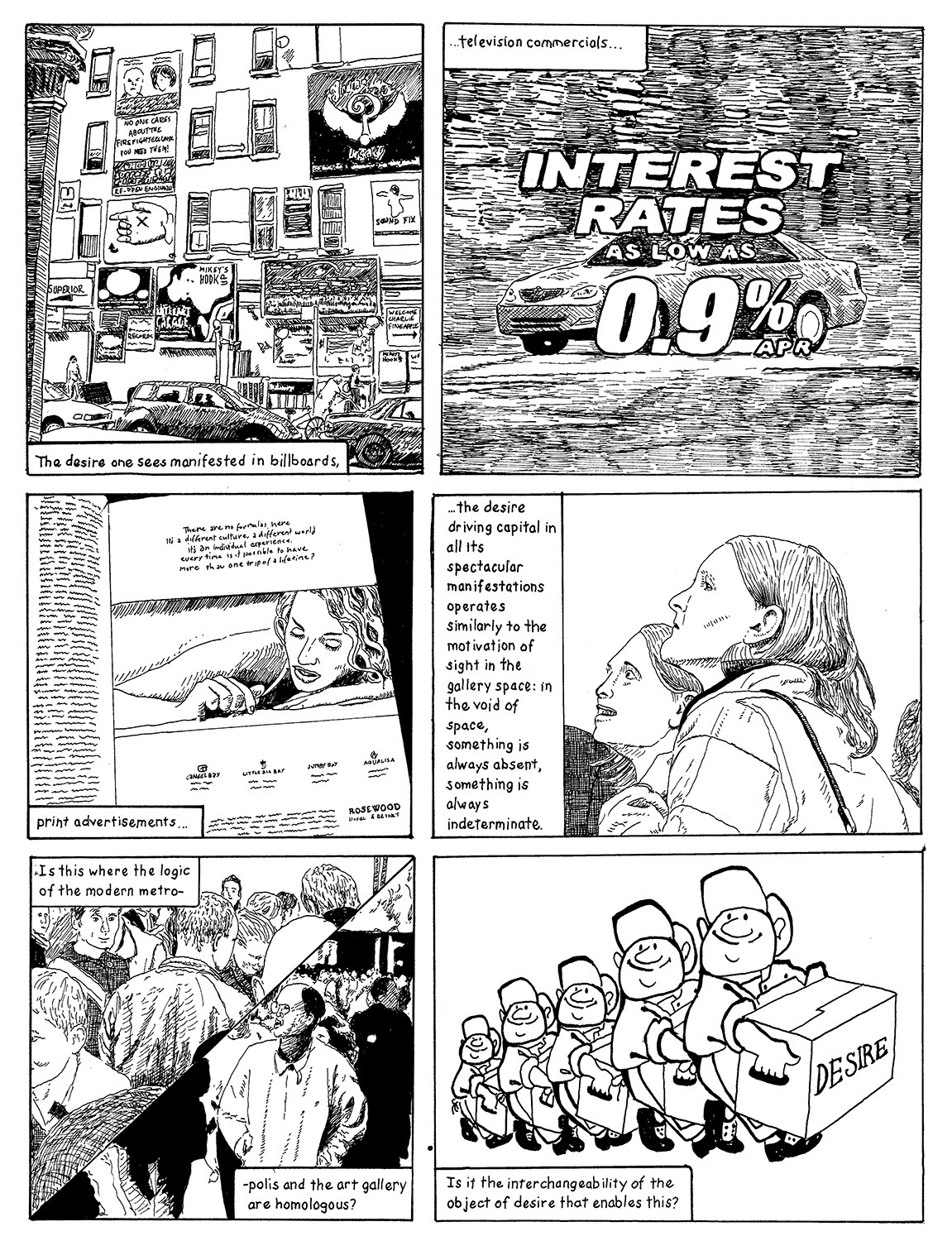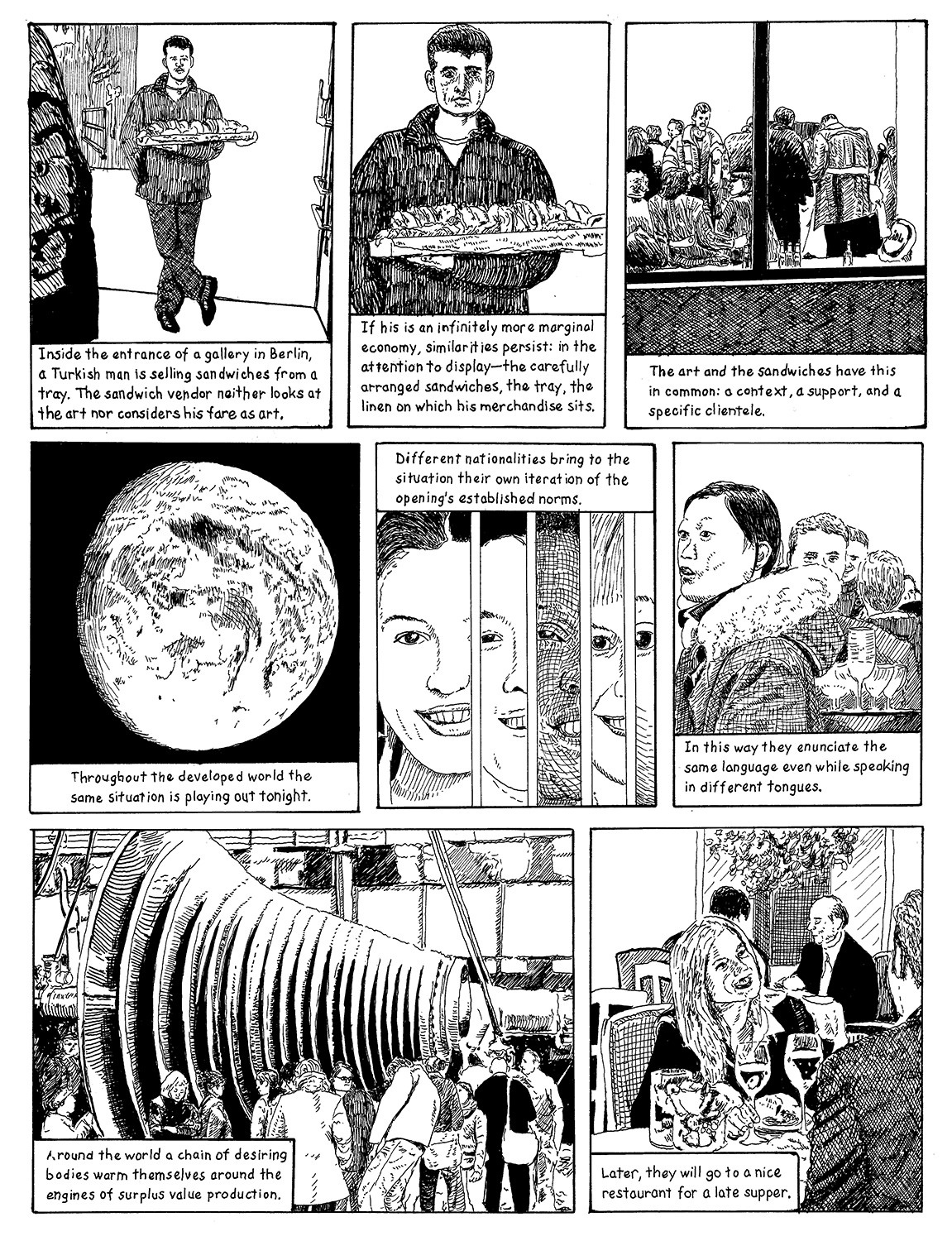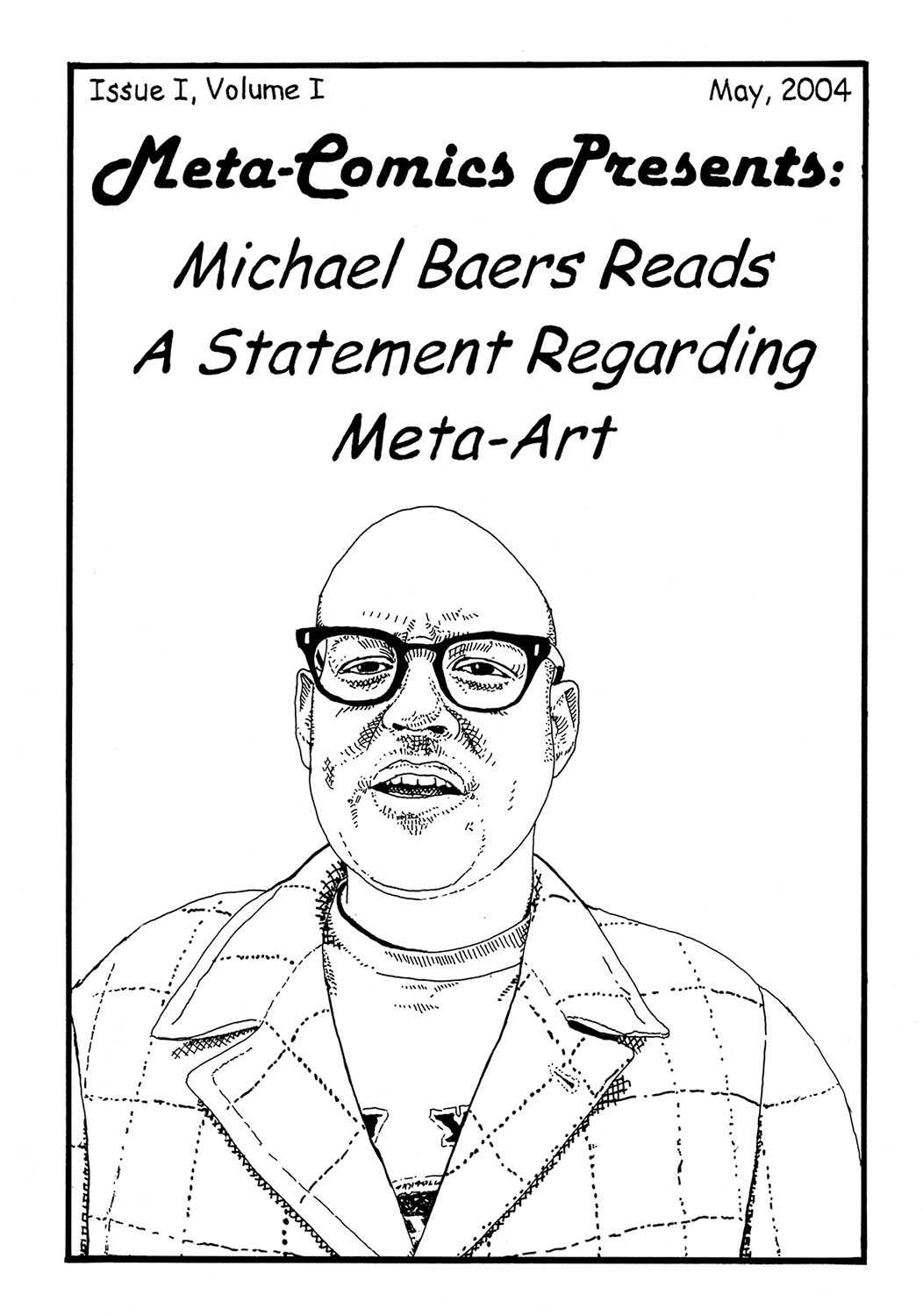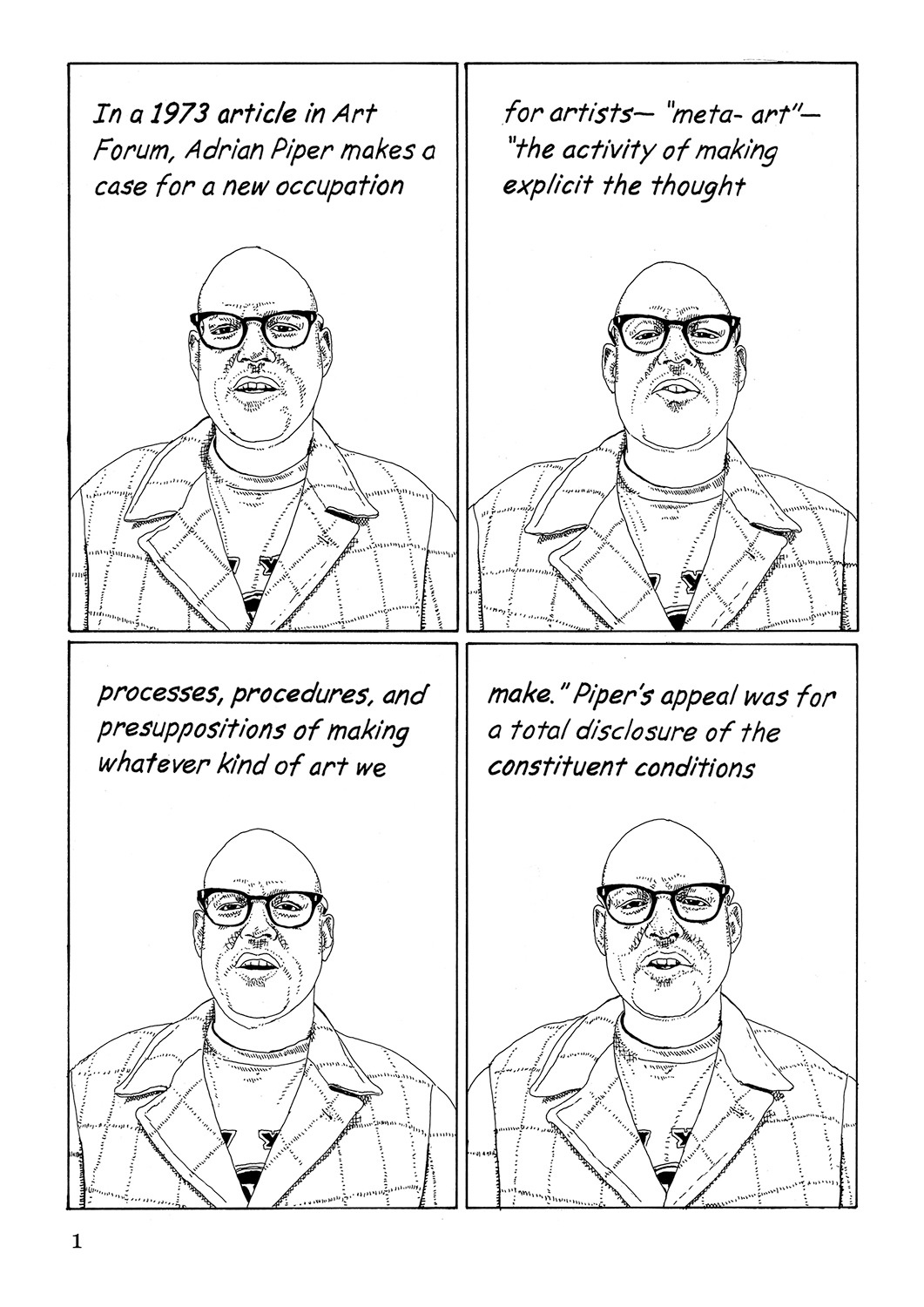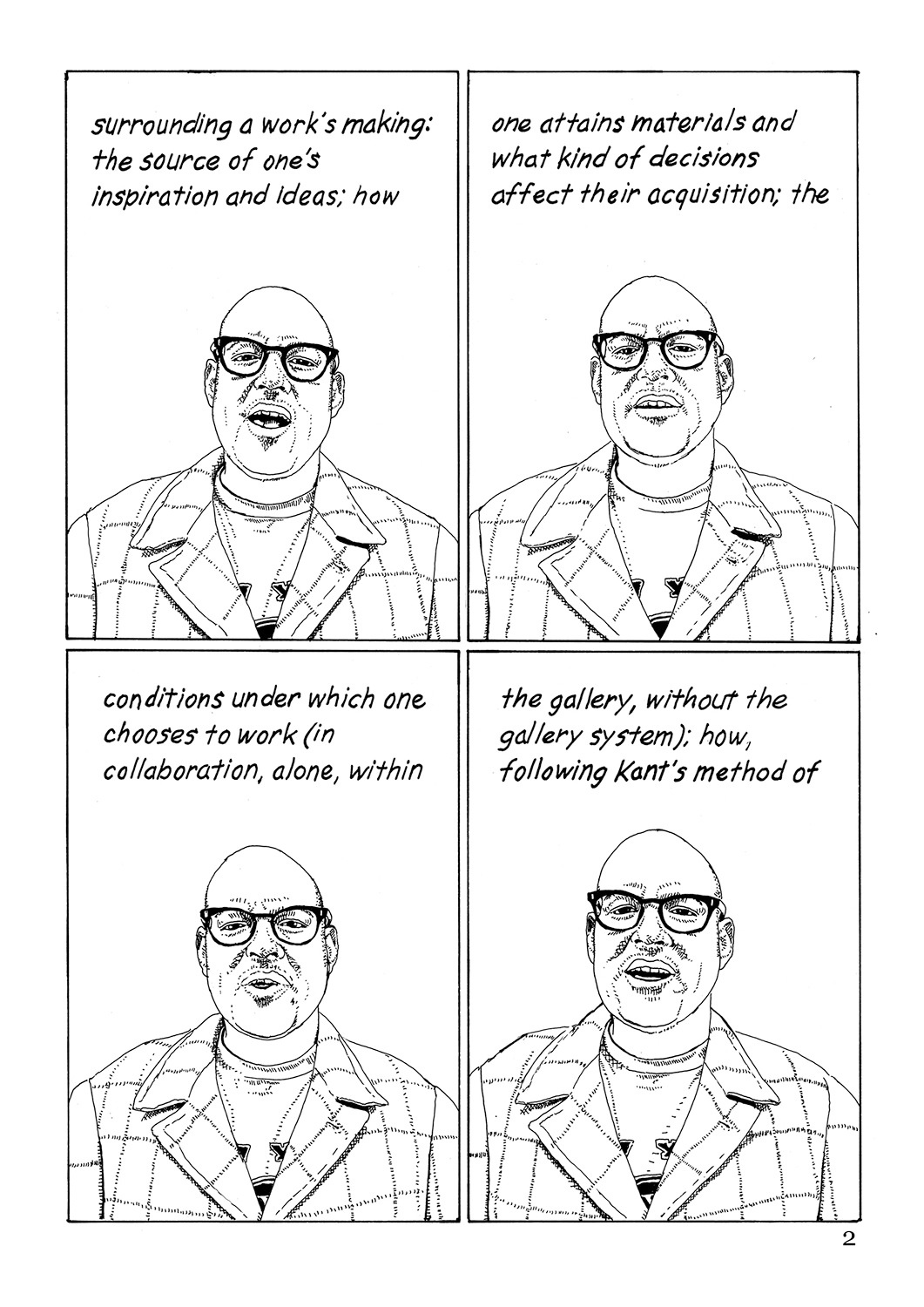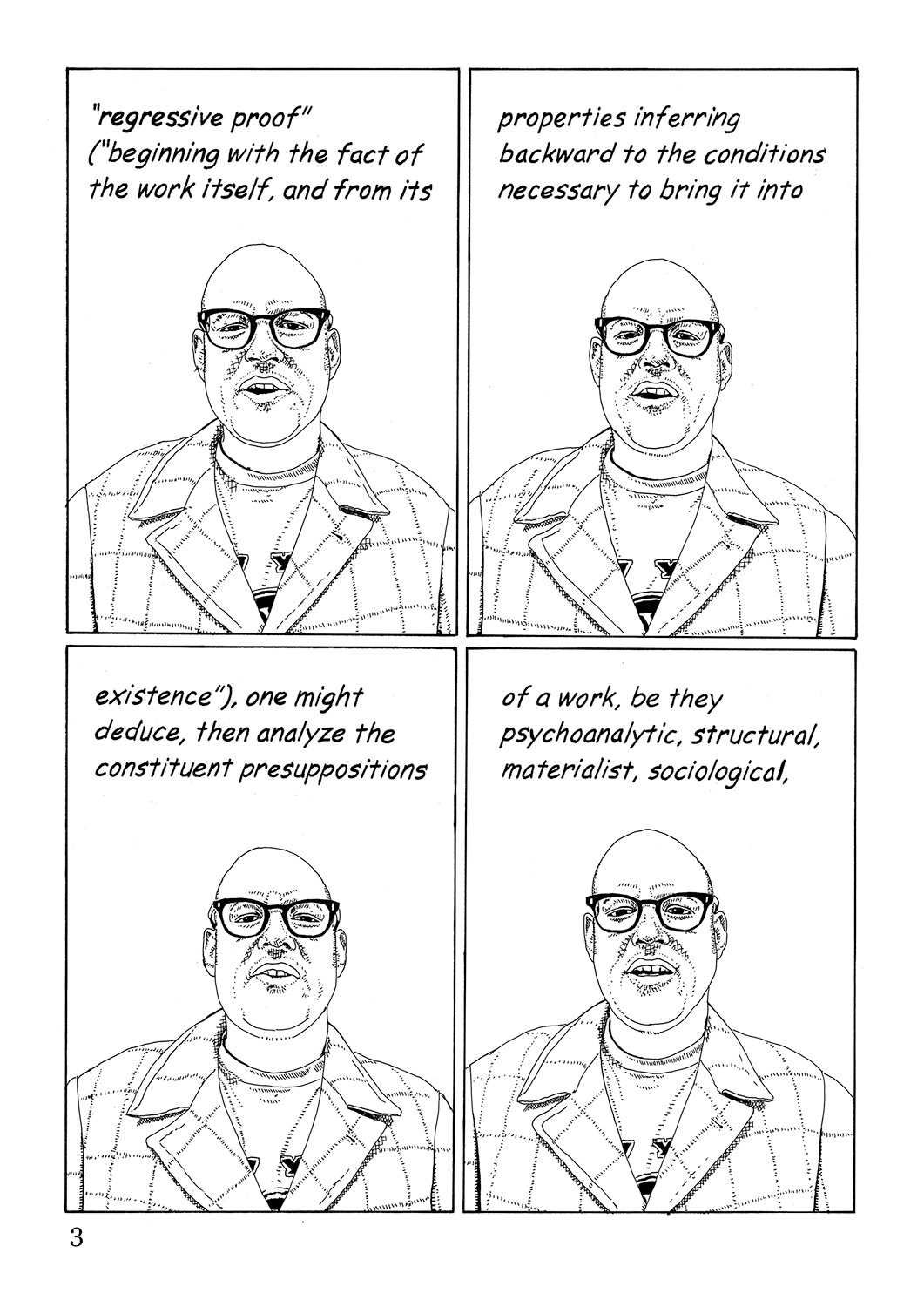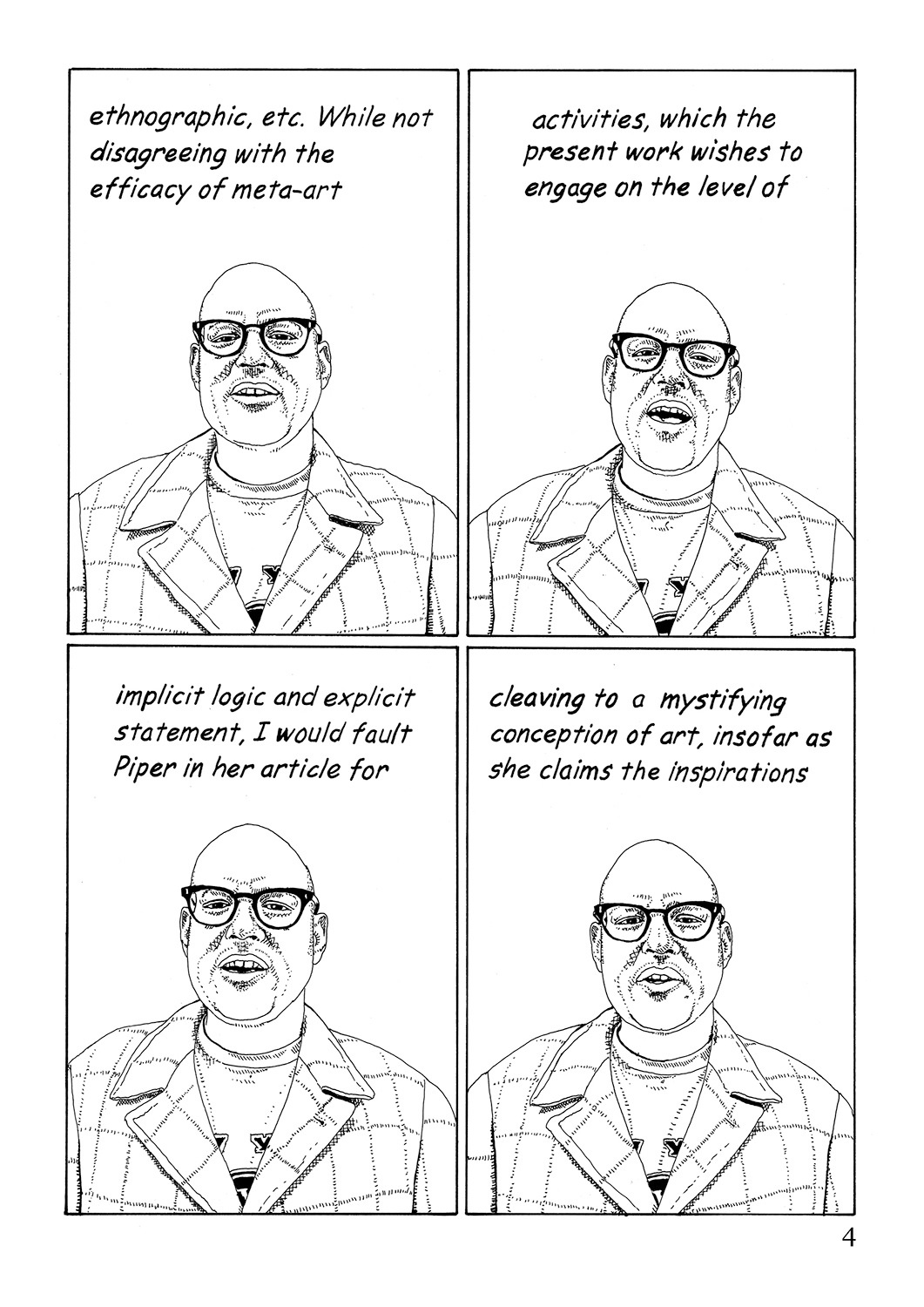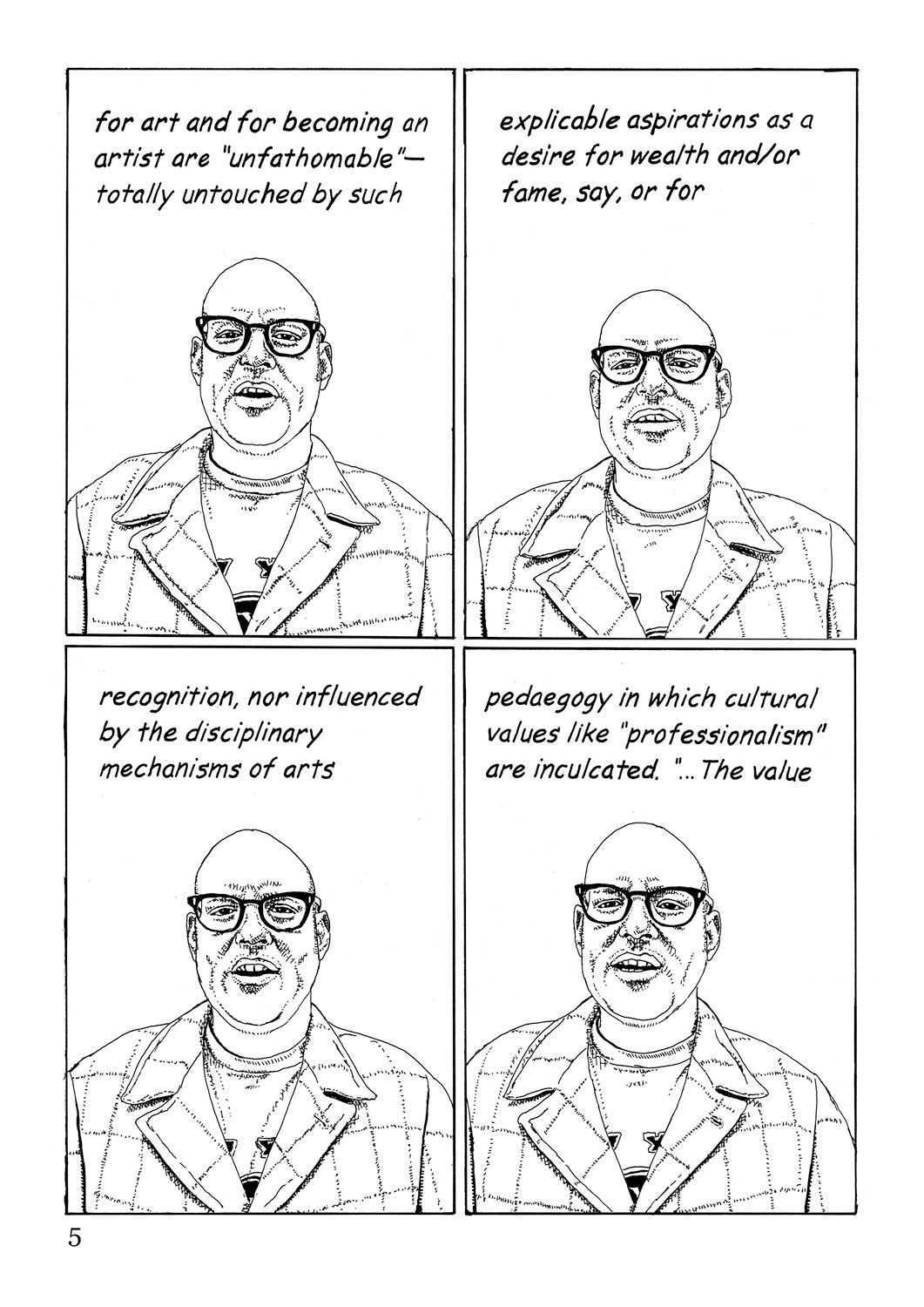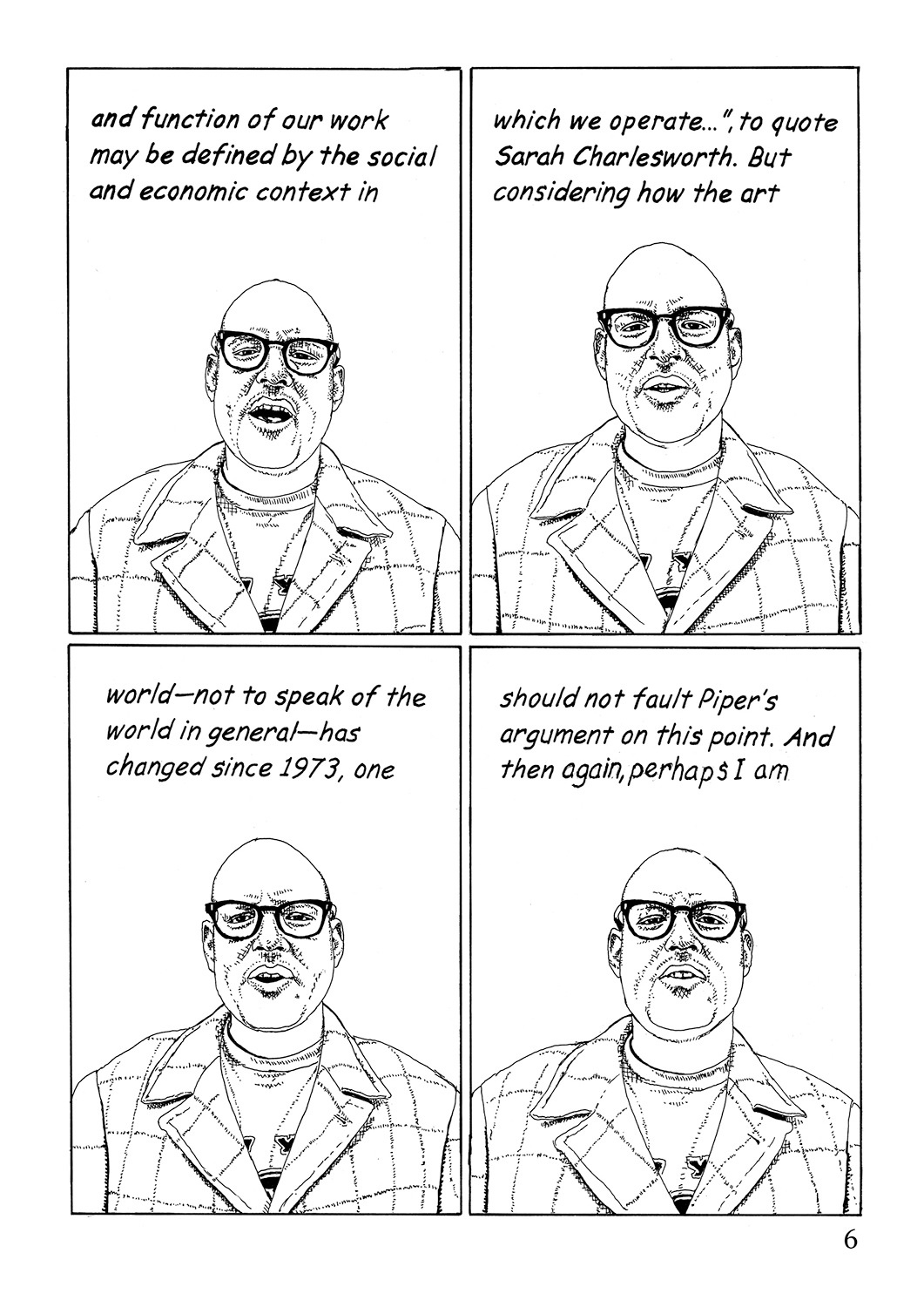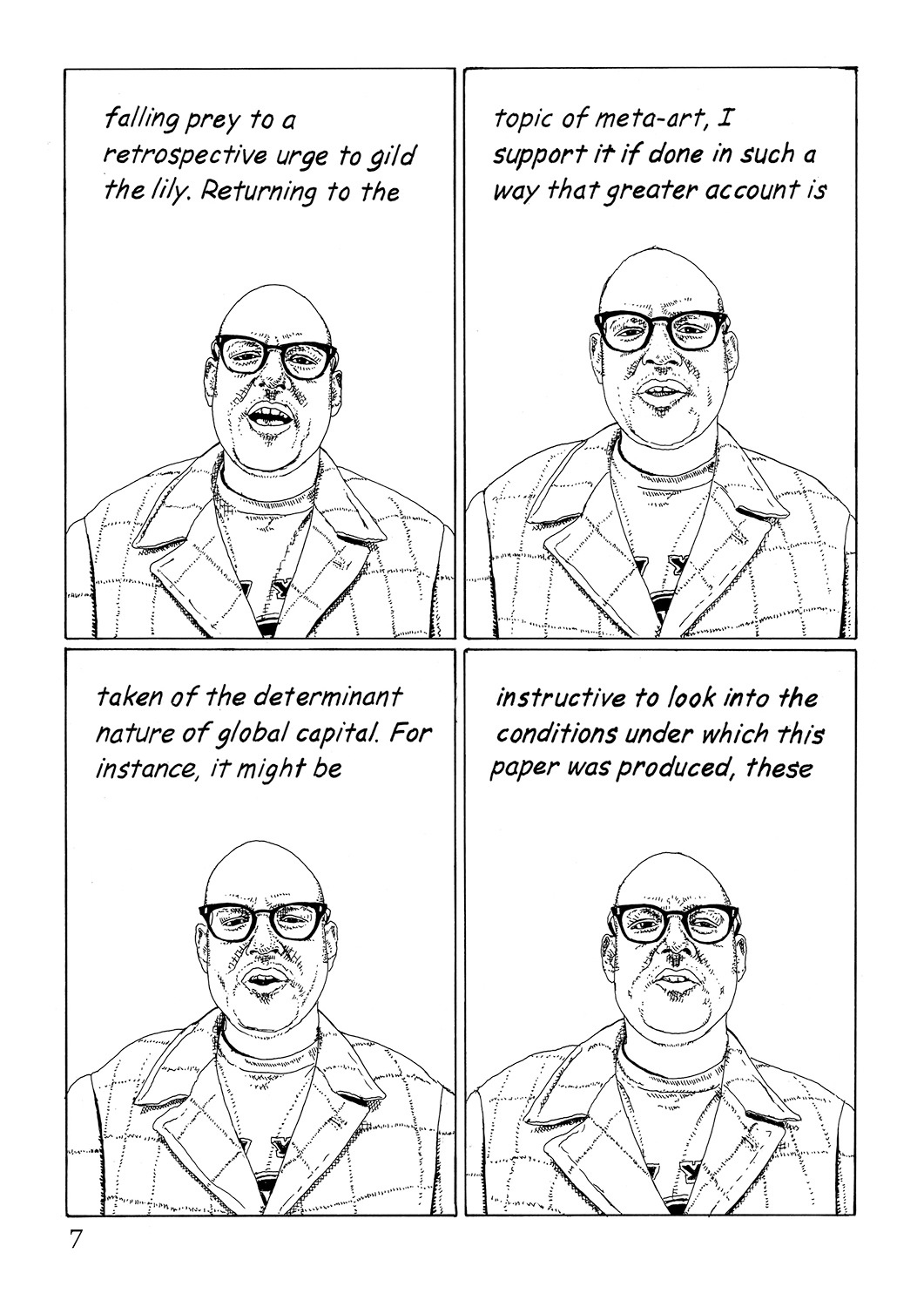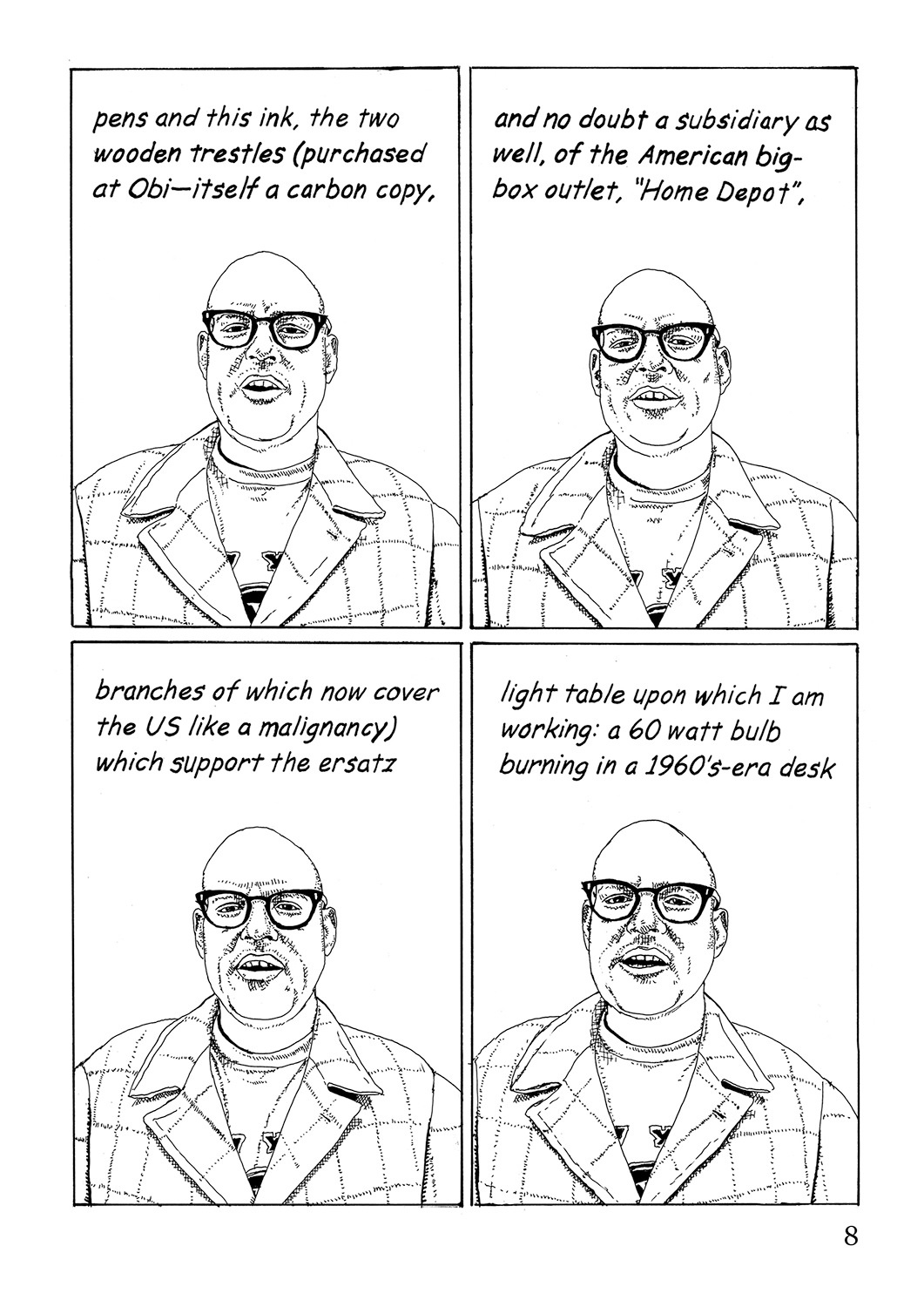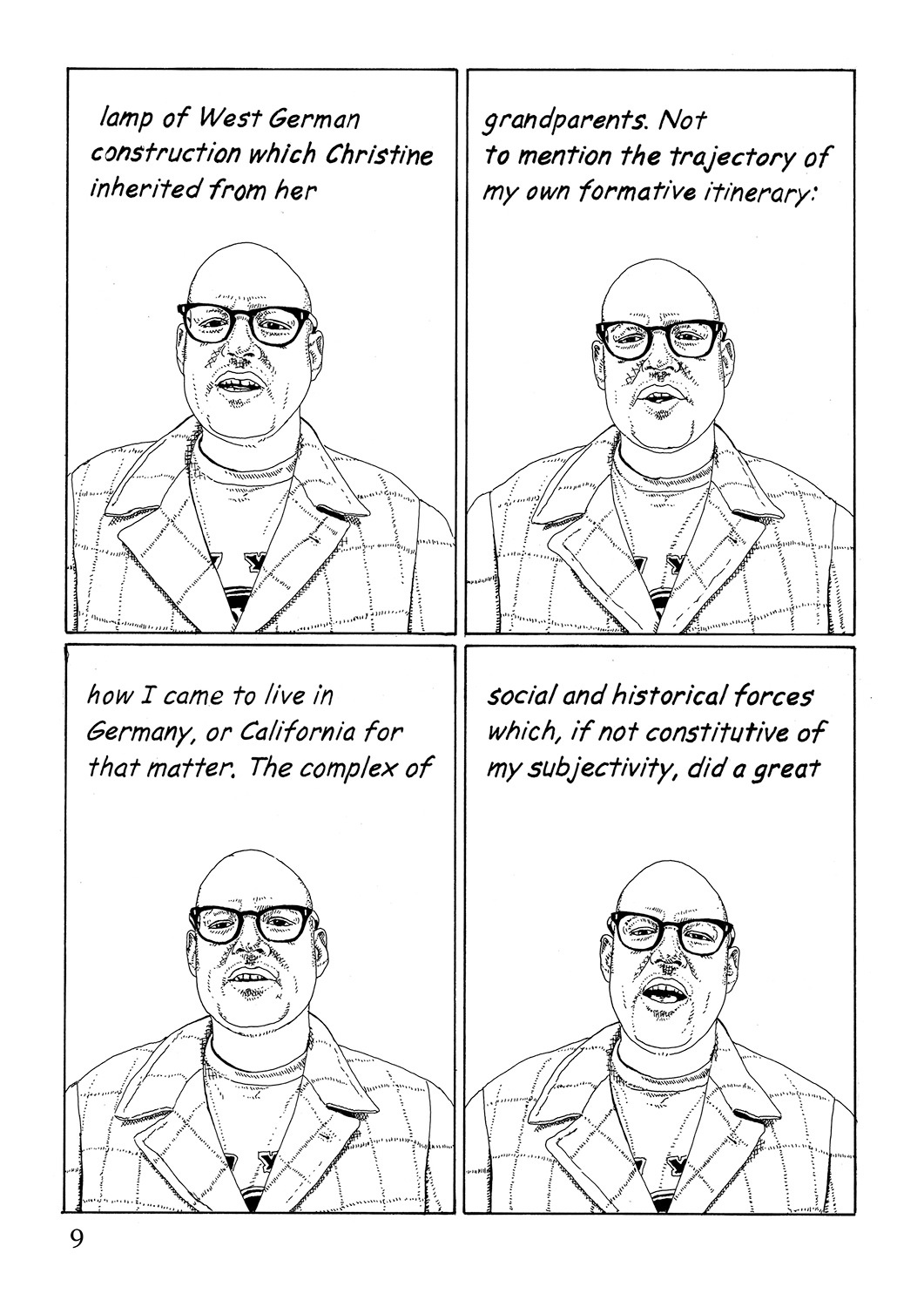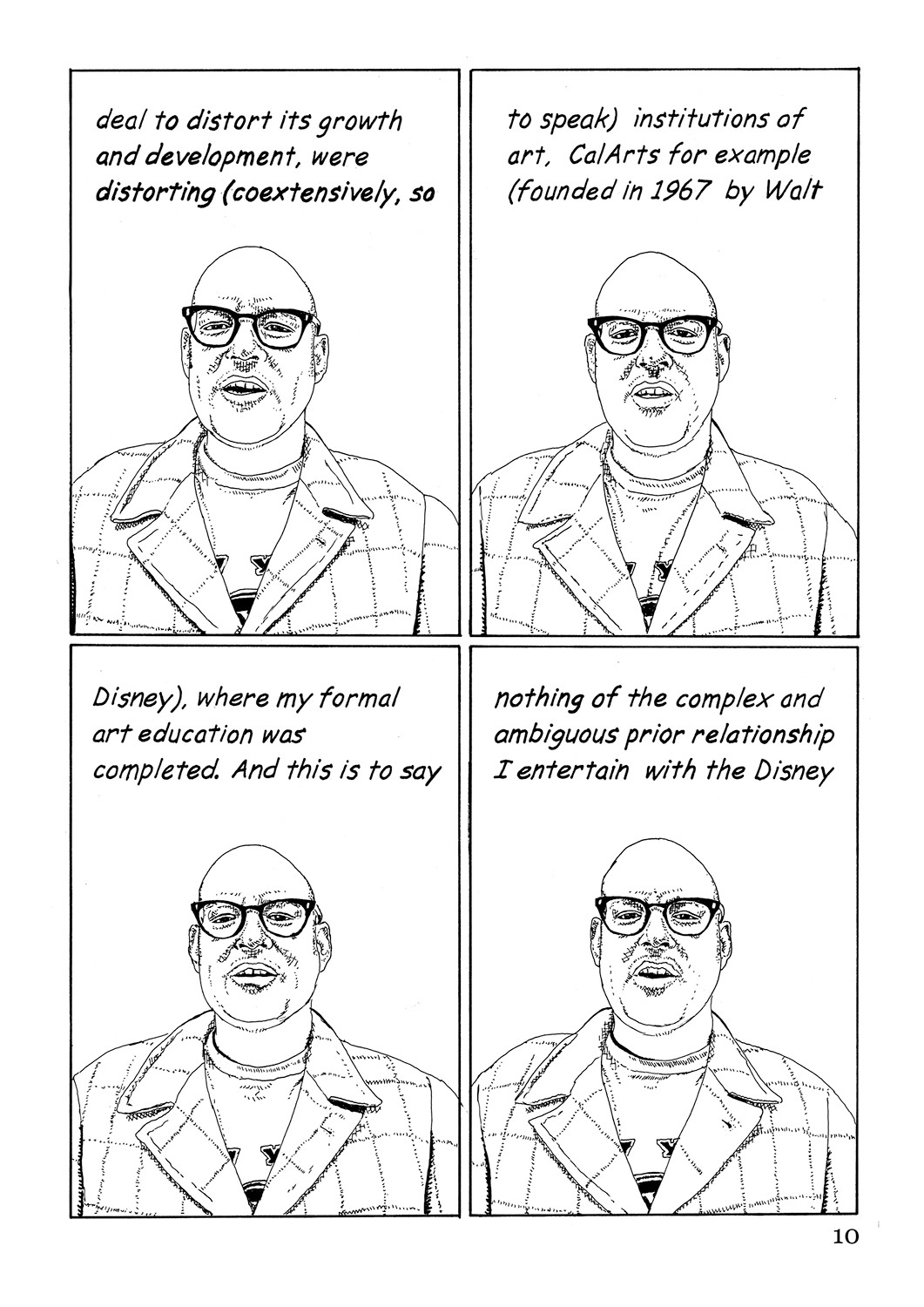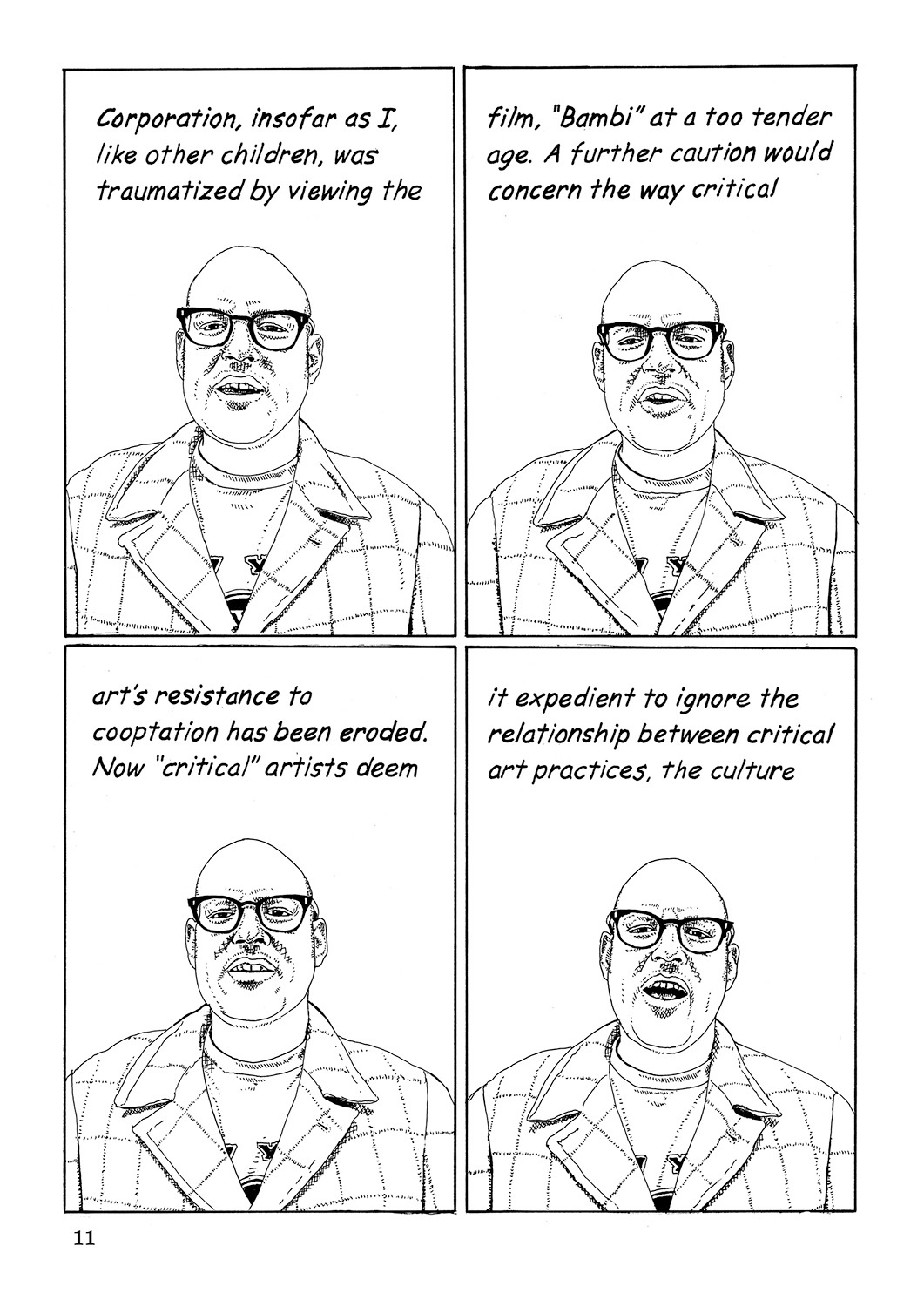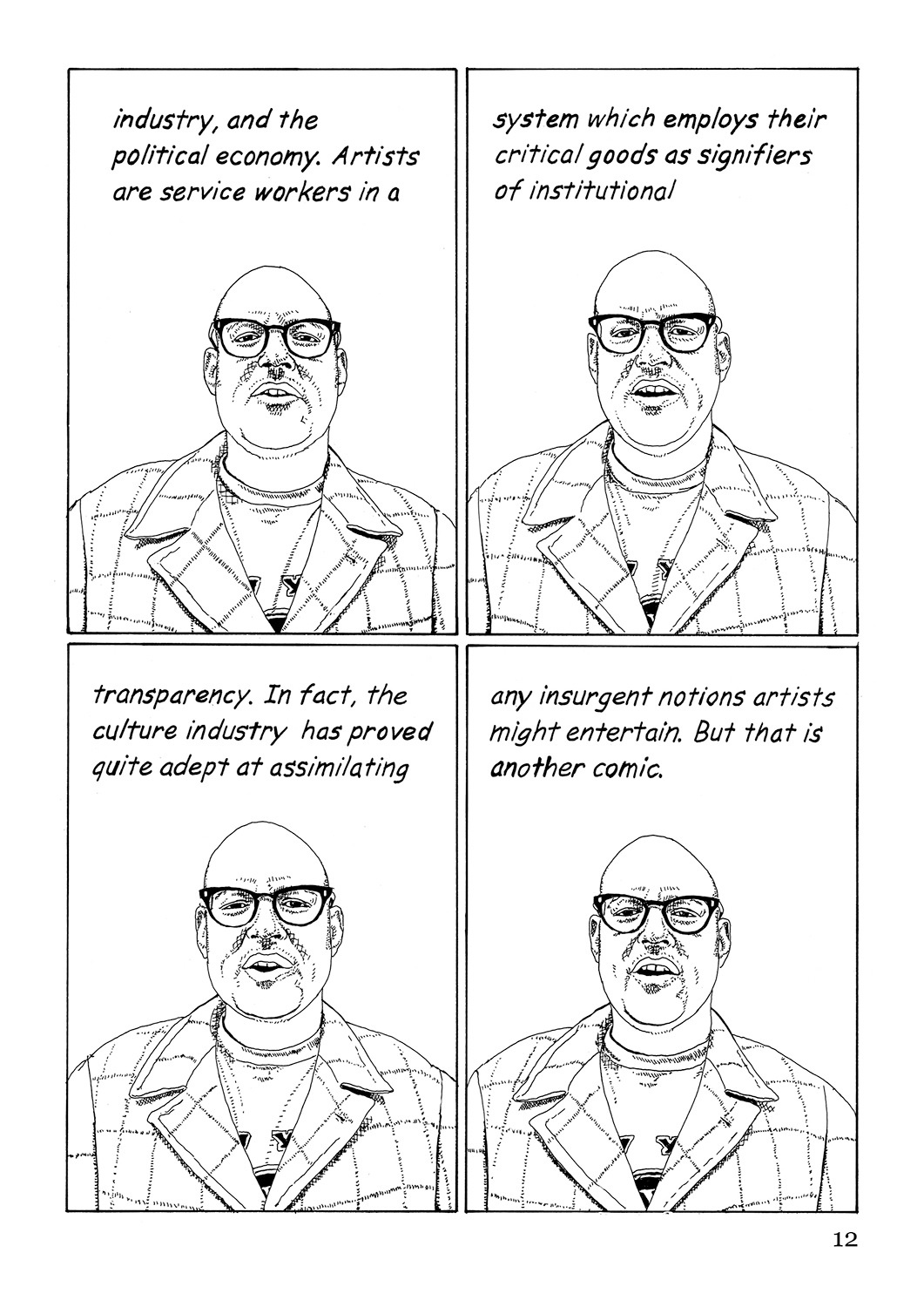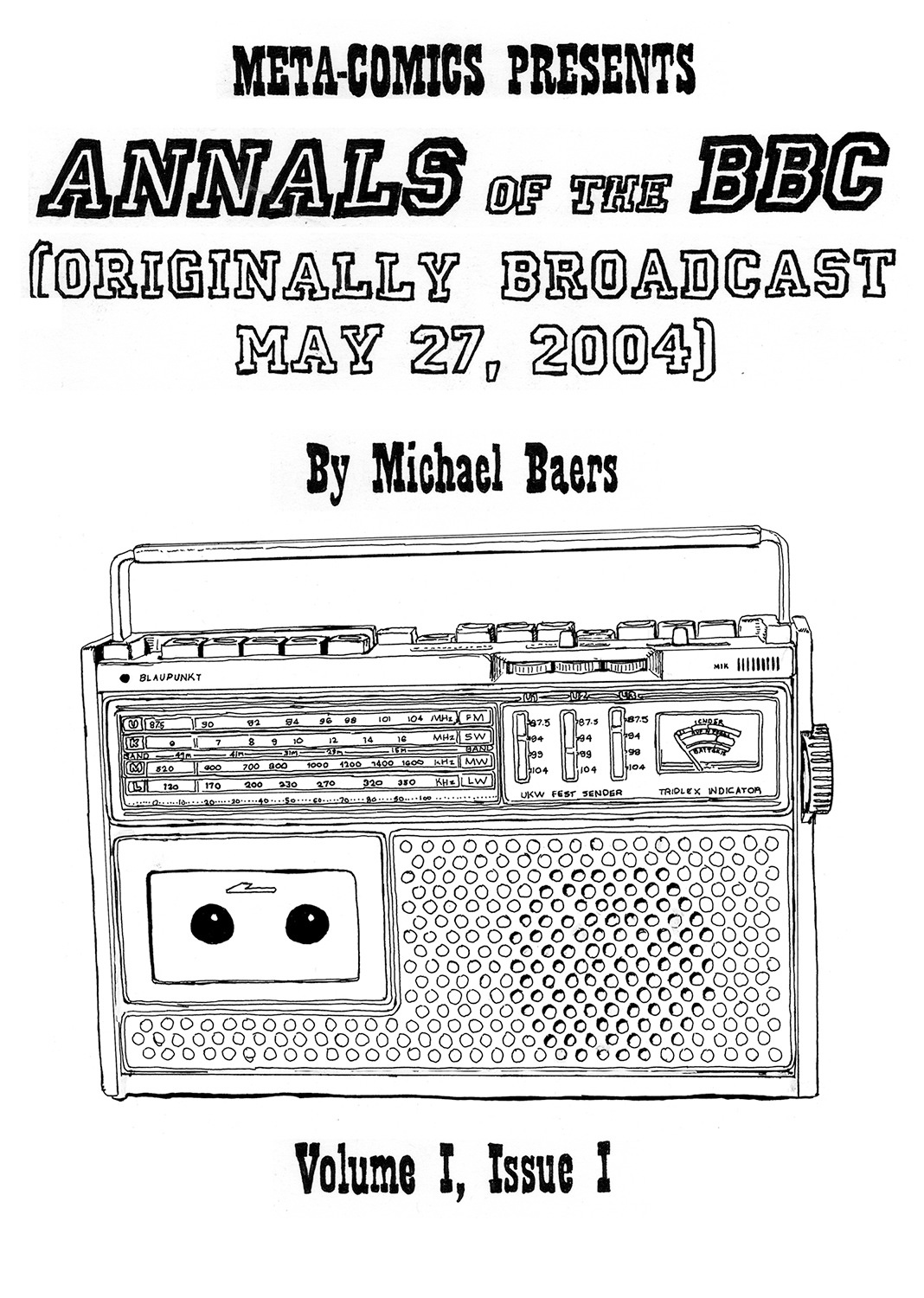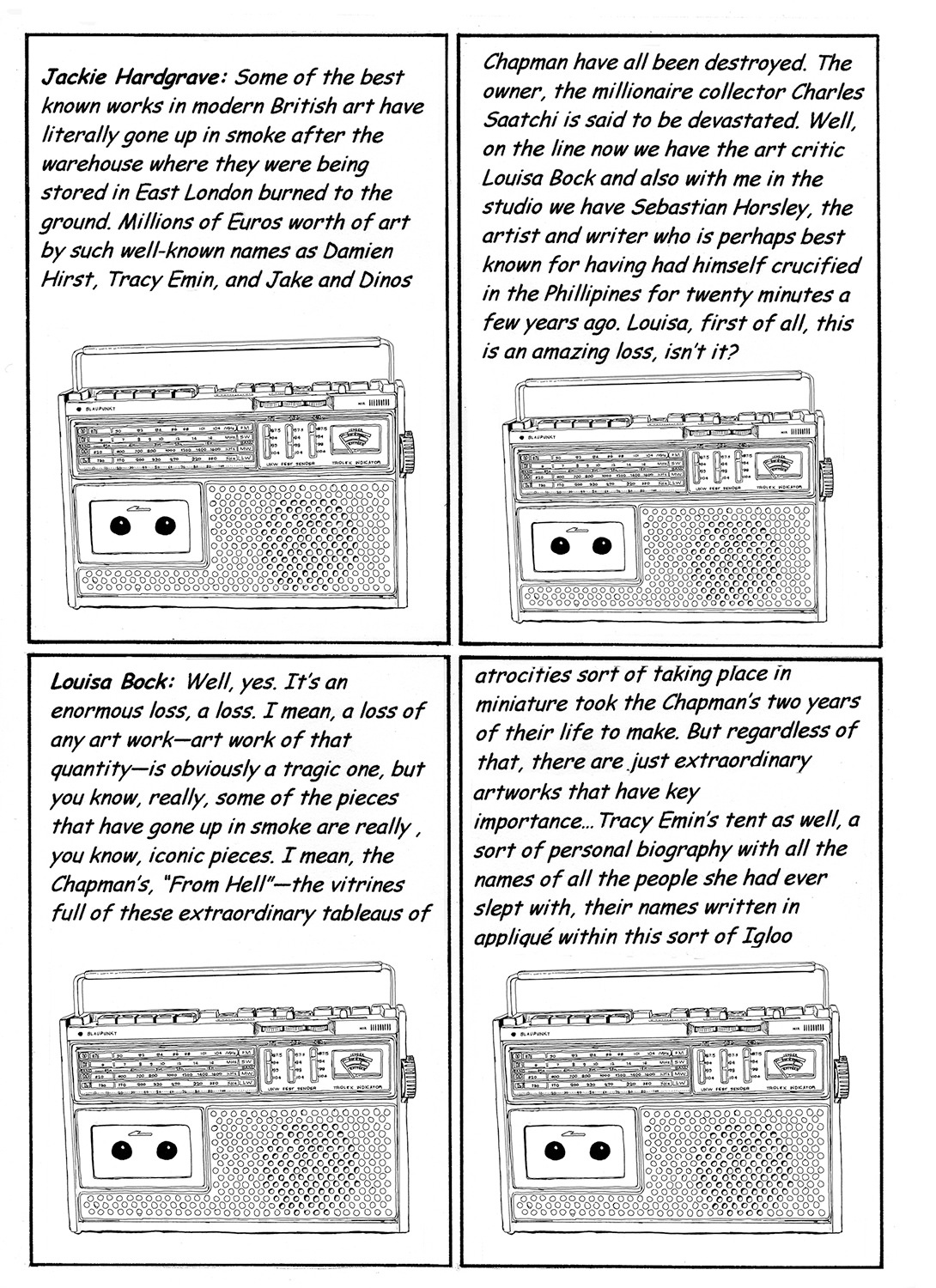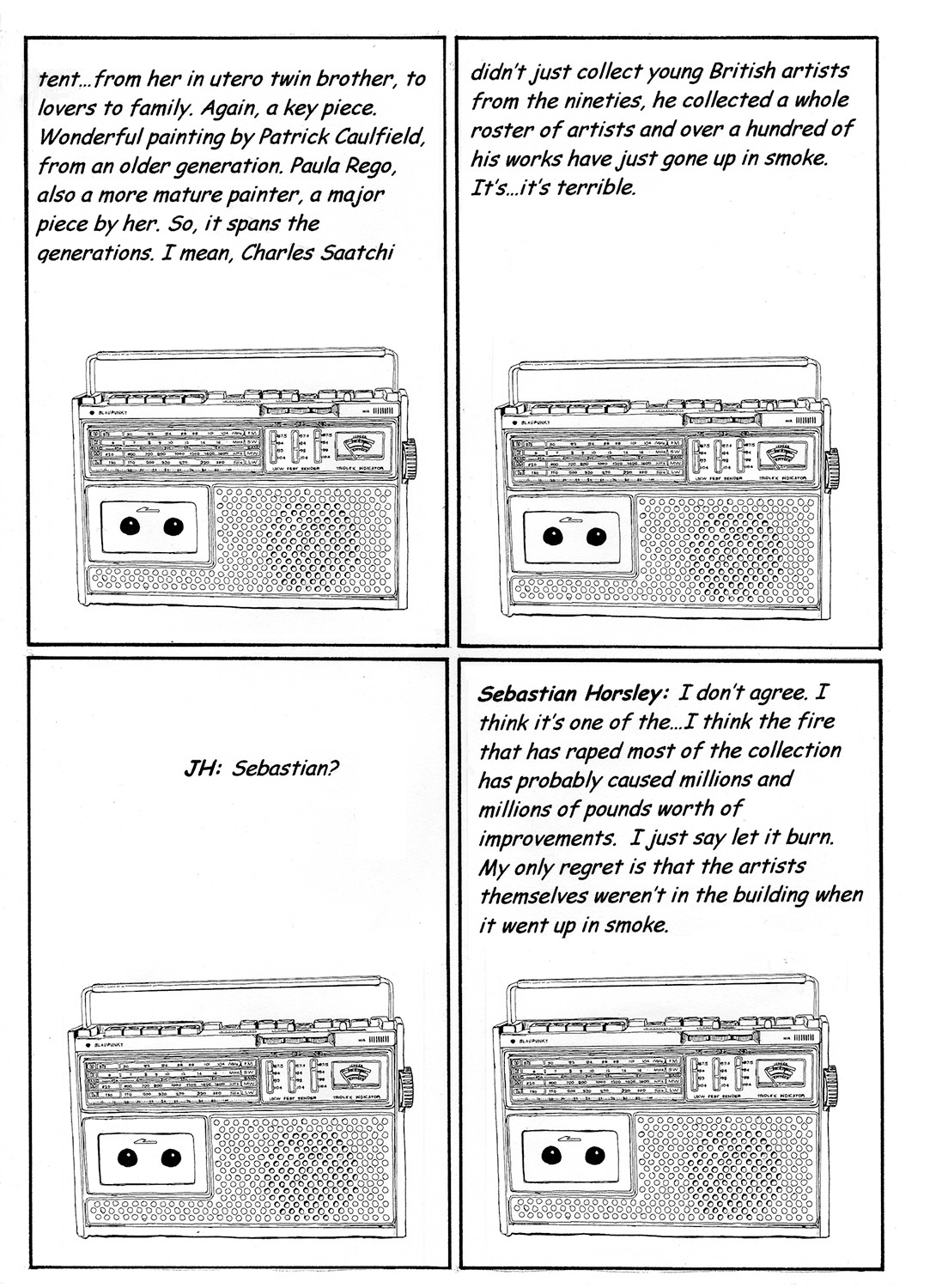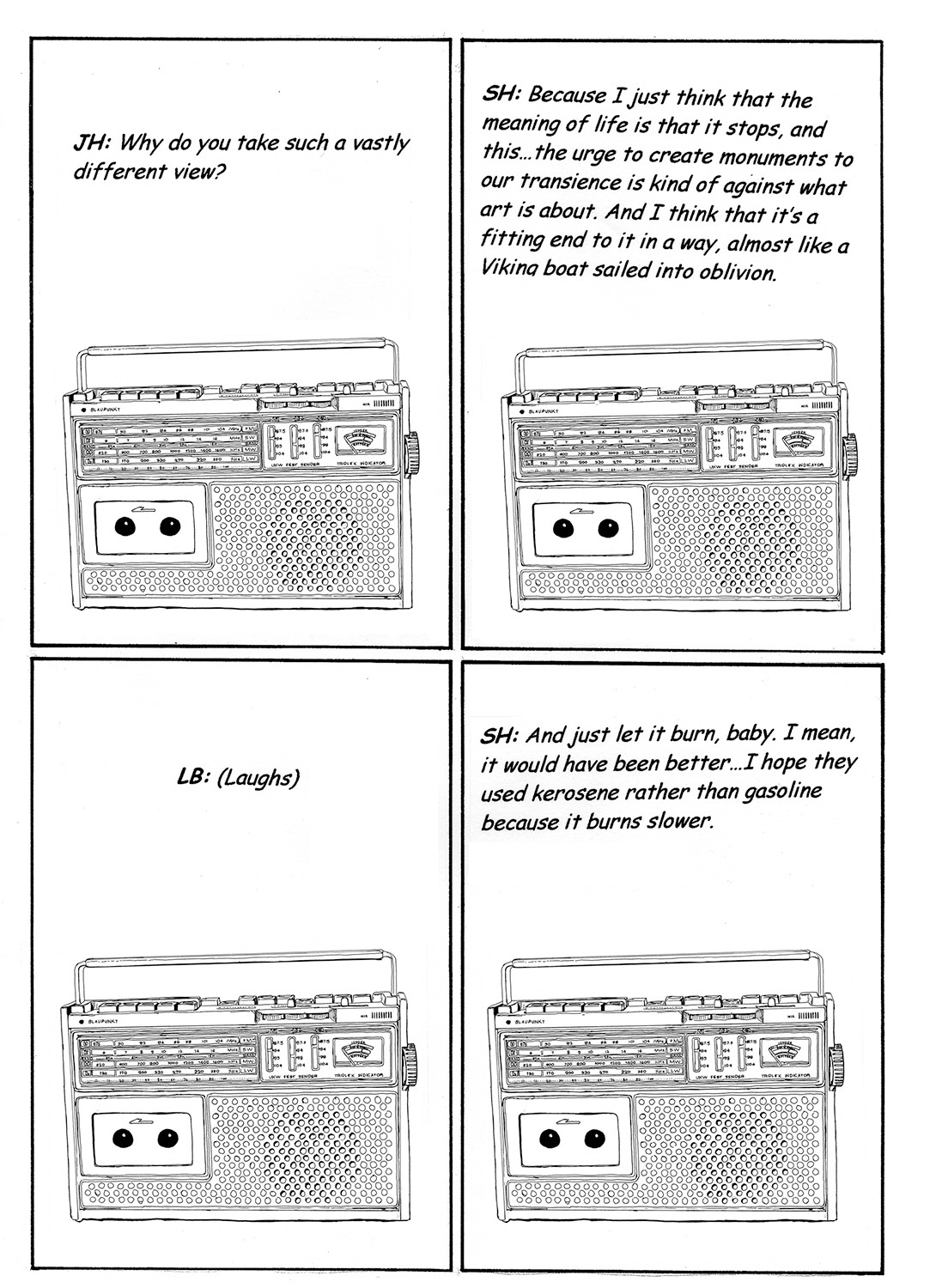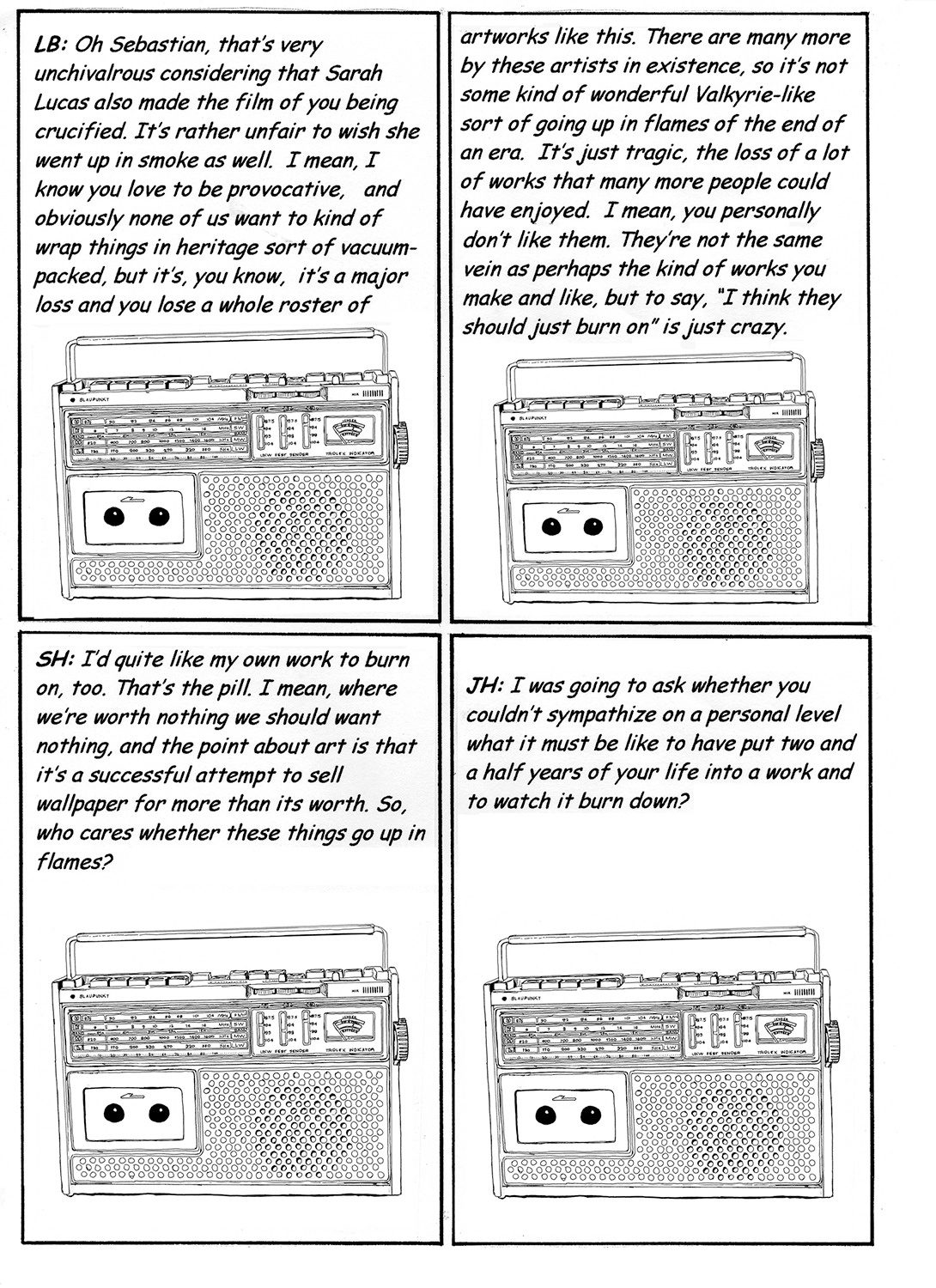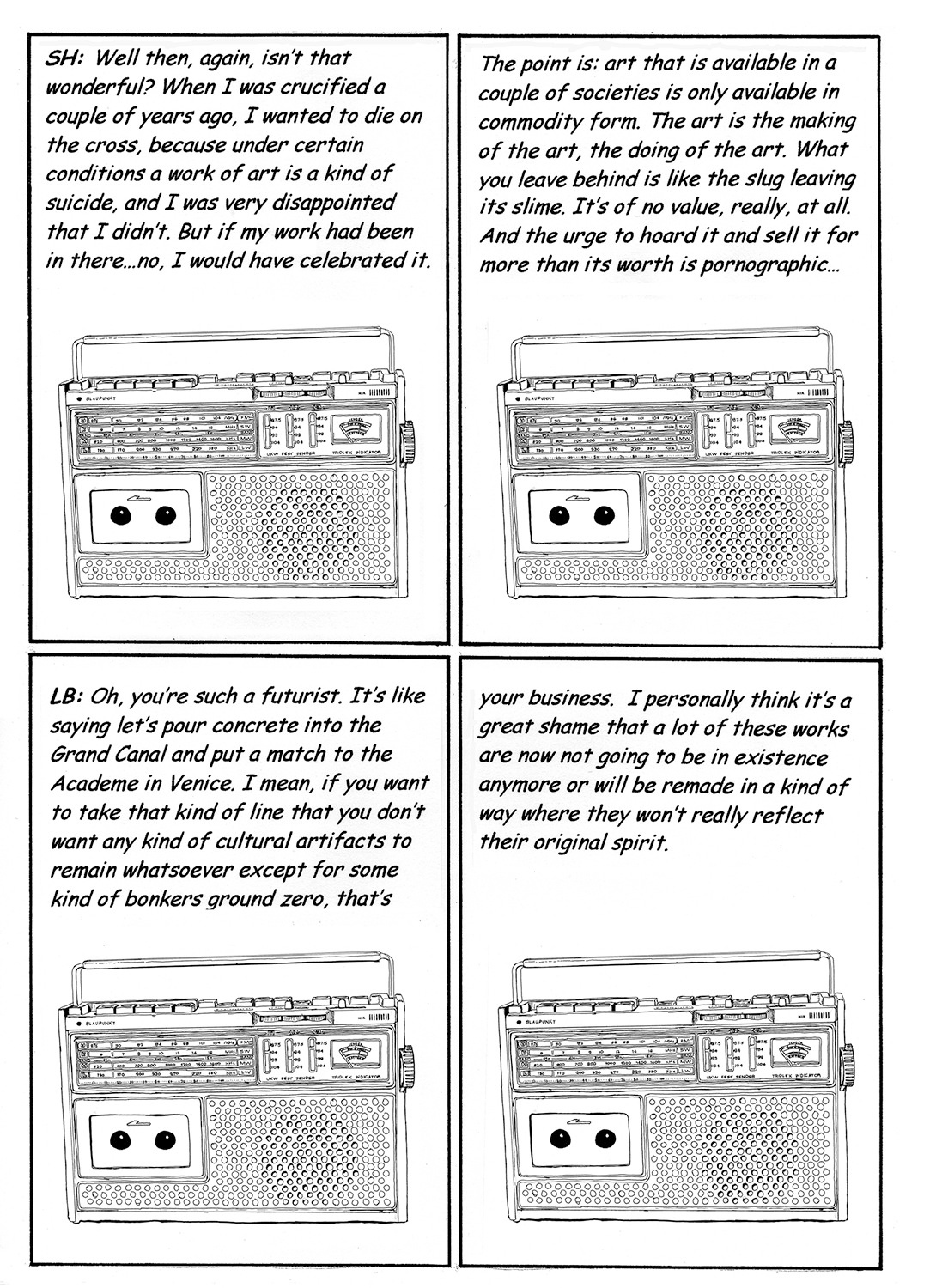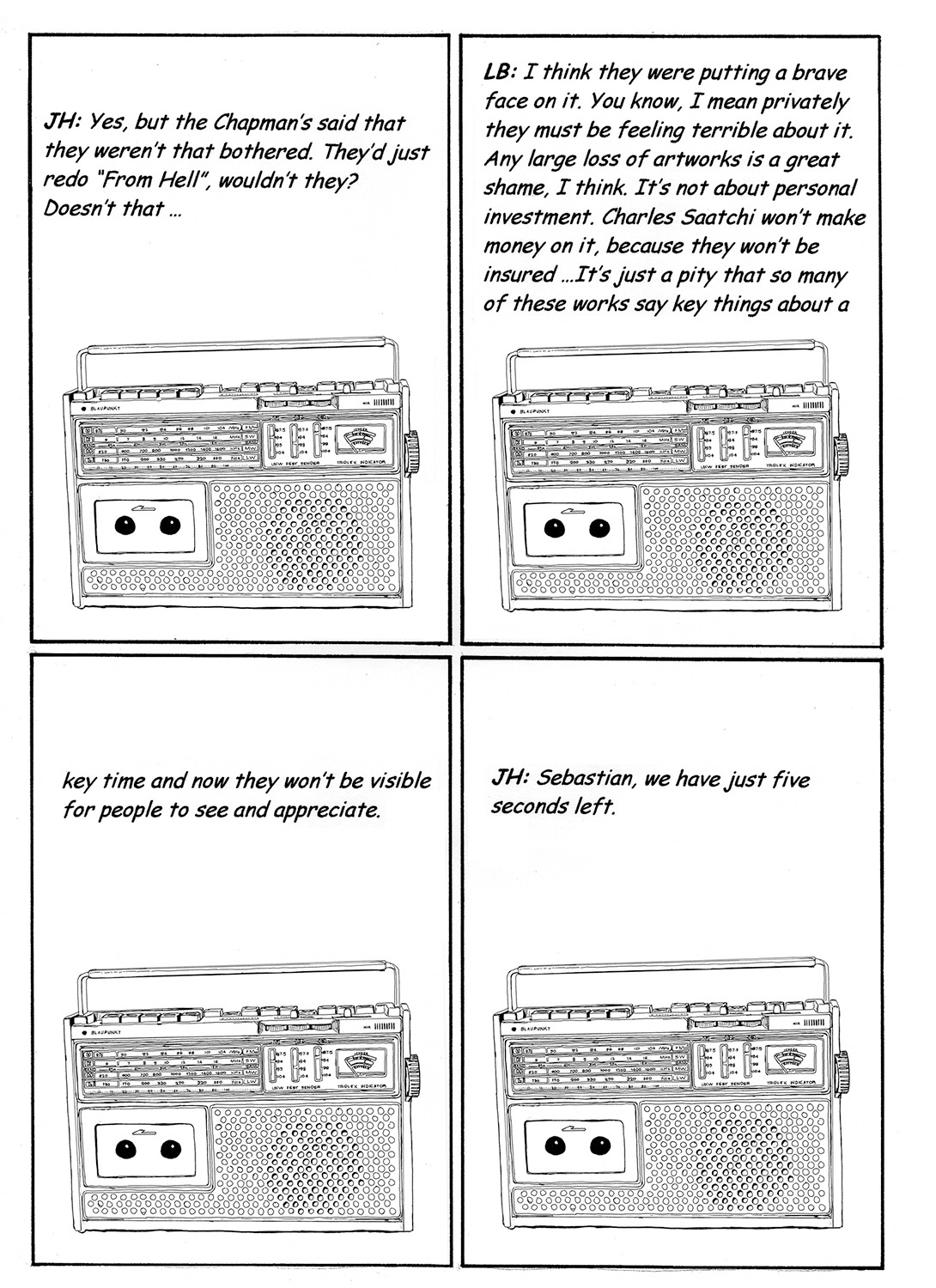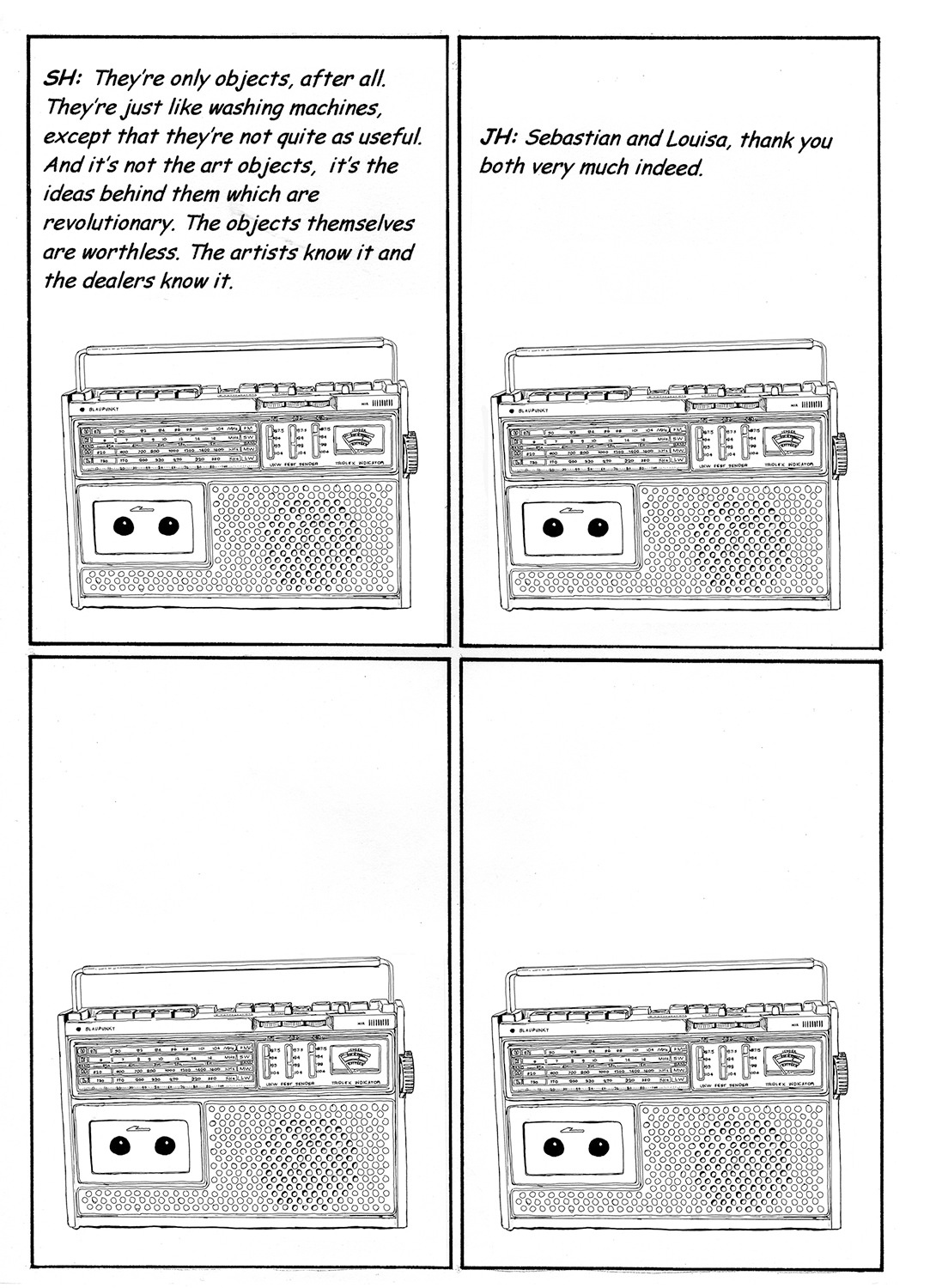
Comics
Much of my recent work has departed from the sequential graphics typifying my earlier production. But comics and storytelling remain at the core of my work. Making comics has provided me with a way to work analytically with modes of representation and montage, as well as different iconographic and documentary practices, linking visual representation to critical writing.
2021
“White Collar Crime, ” The Current Thing, Issue Two
After an extended break from short-form comics, I produced this comic shortly after the events of January 6, 2021 in Washington DC. The text comes from a John Ashbery poem of the same name that fit the occasion very well. It was published later in the year.
Saying It to Keep It from Happening
A private commission from a psychoanalyst, based on (part of) a John Ashbery poem.
2012
“Michael Baers Talks to an Artwork” A Prior No. 23
Having begun to conduct research on the Picasso in Palestine project of 2011, I made contact with the editor of A Prior magazine, who had themselves devoted an issue to the project, and subsequently invited me to travel to London to make a comic out of my response to Tino Seghal’s interactive commissioned for the Turbine Hall at Tate London (sponsored by Unilever) These associations. The work, as the Tate website describes it, involved the Turbine Hall being “inhabited by an assembly of participants whose choreographed actions use movement, sound, and conversation.” I spent two consecutive days at the Tate, and on the night of my second visit I wrote the script.
Scenes from an Unwritten Novel (2012) 25.5×20.5 cm. Four-part series appearing on the back page of Modern Painters from September to December, 2012
When asked by the editors of Modern Painters to produce a four-part series for the magazine’s back page, I decided to capture something of the flavor of everyday life in rapidly gentrifying Berlin, using mundane scenes from my own life. Faced with the option of creating four stand-alone works or one continuous story, I chose a middle path, employing a narrative device I have frequently employed: staging the act of writing itself rather than “showing” events, which has the added advantage of suggesting a larger narrative to which the fragment belongs in a synecdochic relationship.
“Decolonizing Architecture: Four Human Landscapes” Series of four 45×90 cm, pen-and-ink drawings on 250 gm. Bristol paper.
In 2010 the art and architecture group Decolonizing Architecture (now known as DAAR, Decolonizing Architecture Artist Residency), commissioned me to make a series of illustrations for a planned monograph about their work, which involves re-imagining and problematizing features of the occupation’s built landscape in the West Bank and Gaza. DAAR’s work typically develops out of collaborations with multiple actors. In a series of four drawings conceived of as double-page spreads, I mapped the “human landscape” of each project they had realized to date. The drawings were incorporated into DAAR’s contribution to the 2011 Sharjah Biennial, and published in 2013 in the book, Architecture after Revolution.
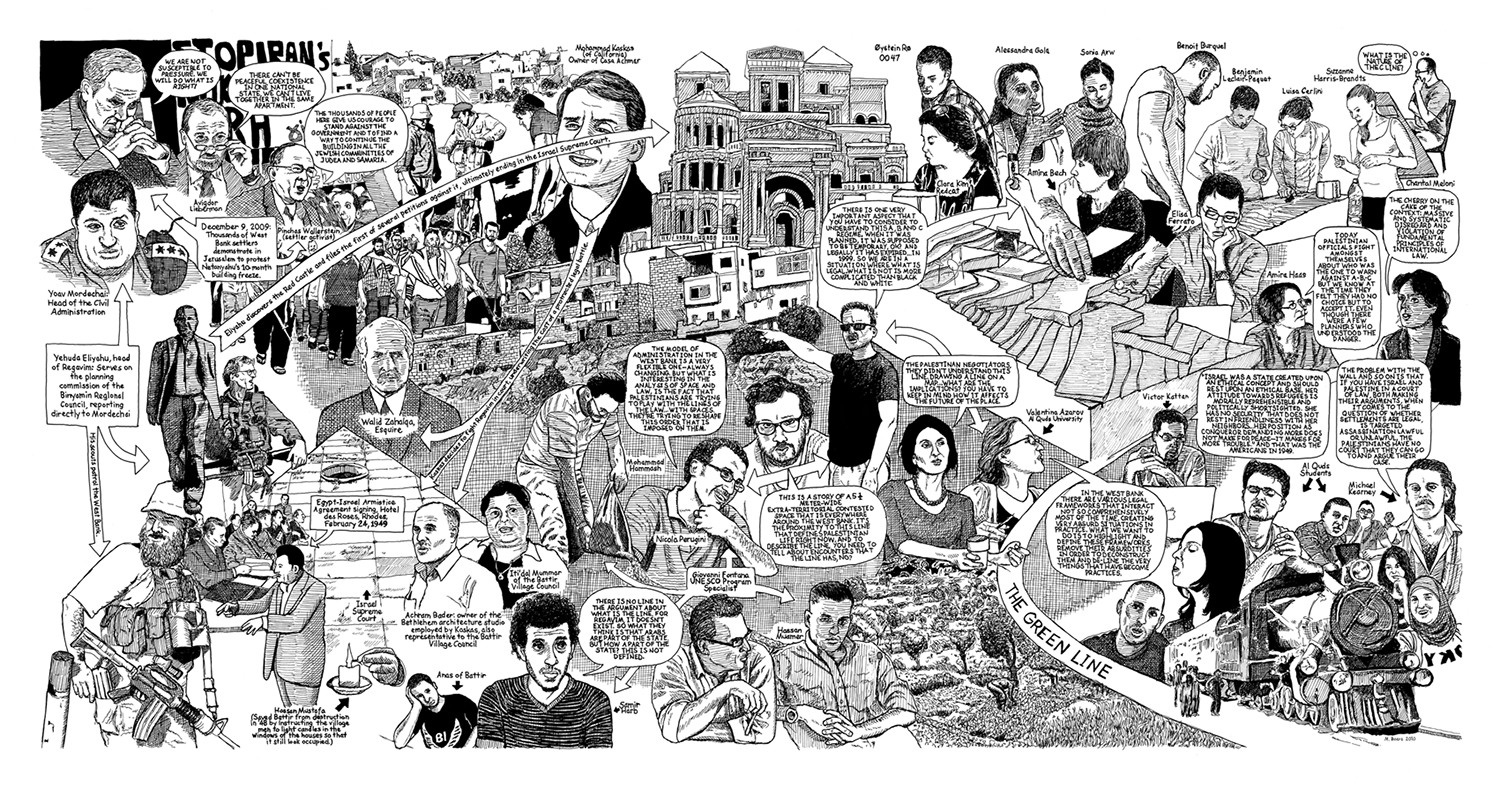
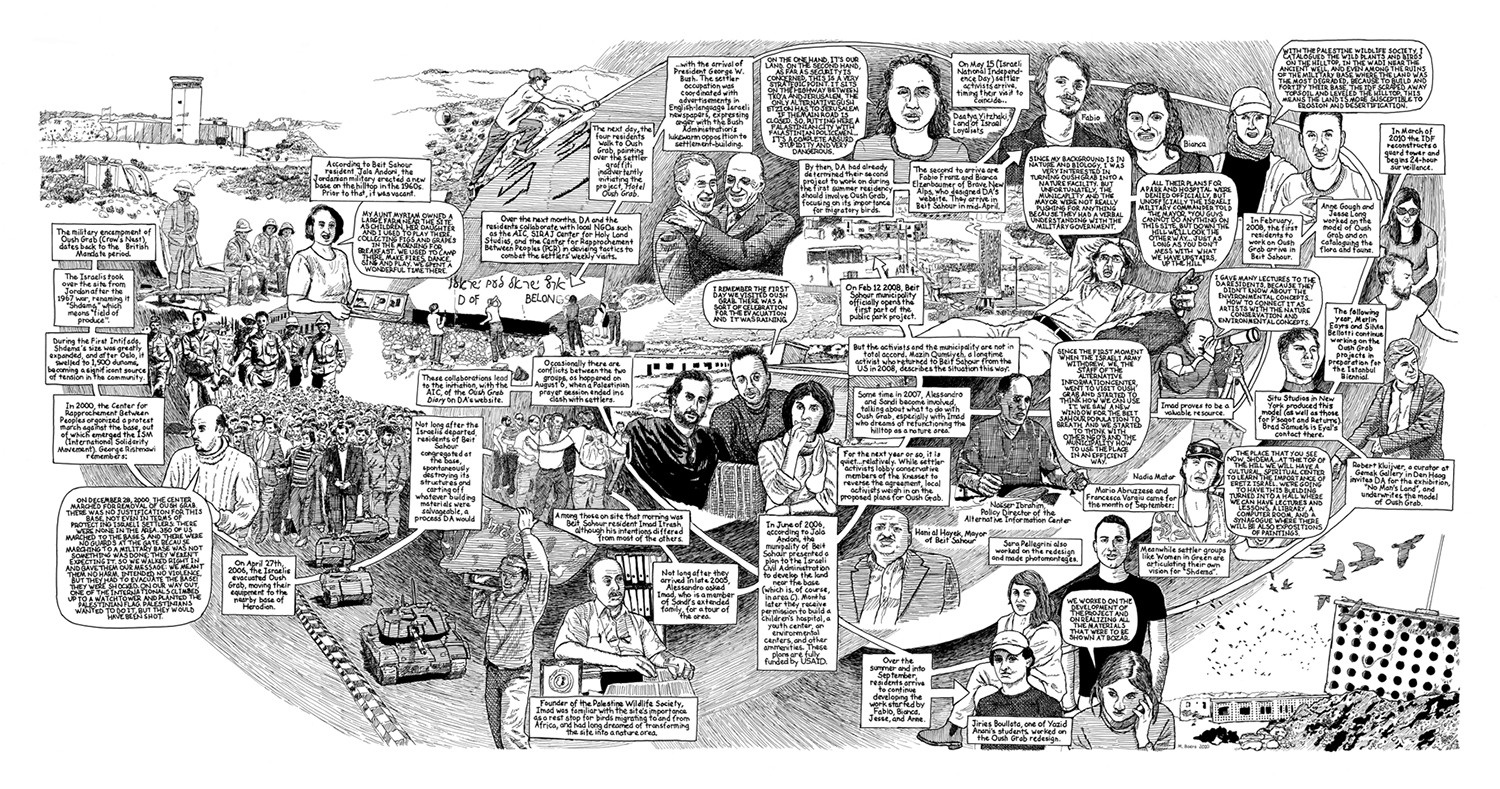
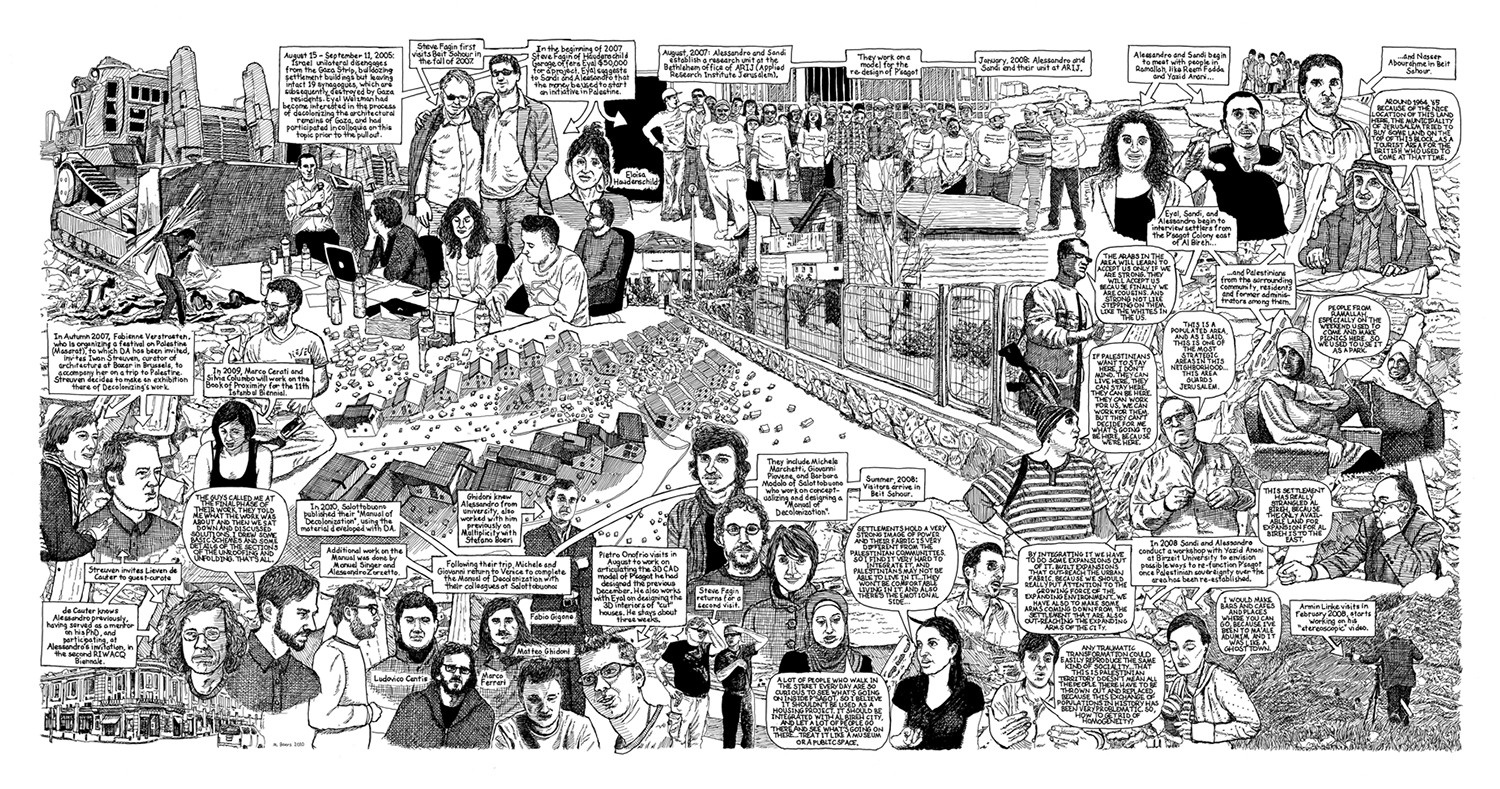
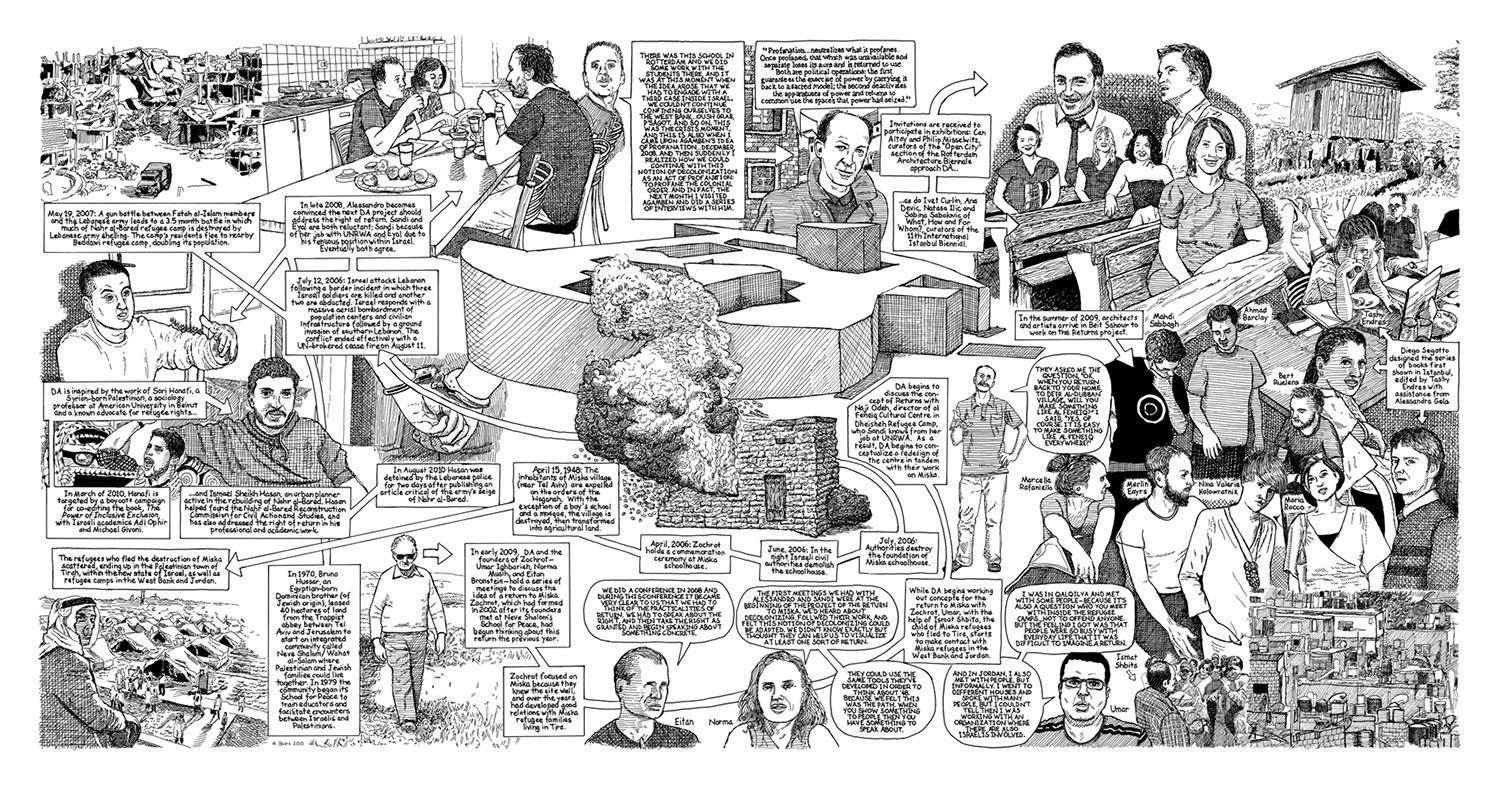
2010
“Response to Three Essays: Television”
catalogue for Manifesta 08
The curators of the section on “aesthetic journalism” invited me to respond to the three essays in their section of the Manifesta catalogue with a comic. I responded by turning on the television.
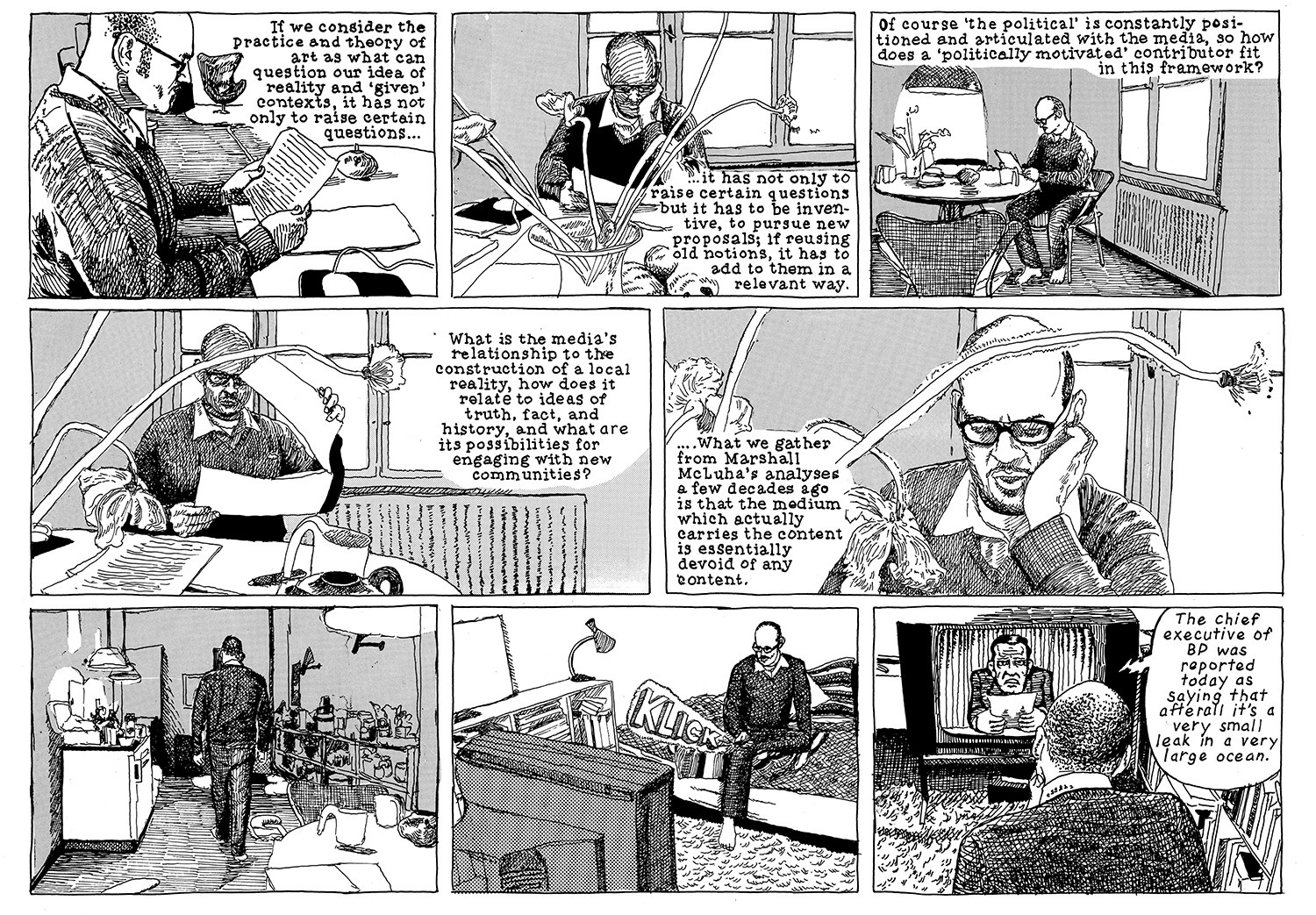
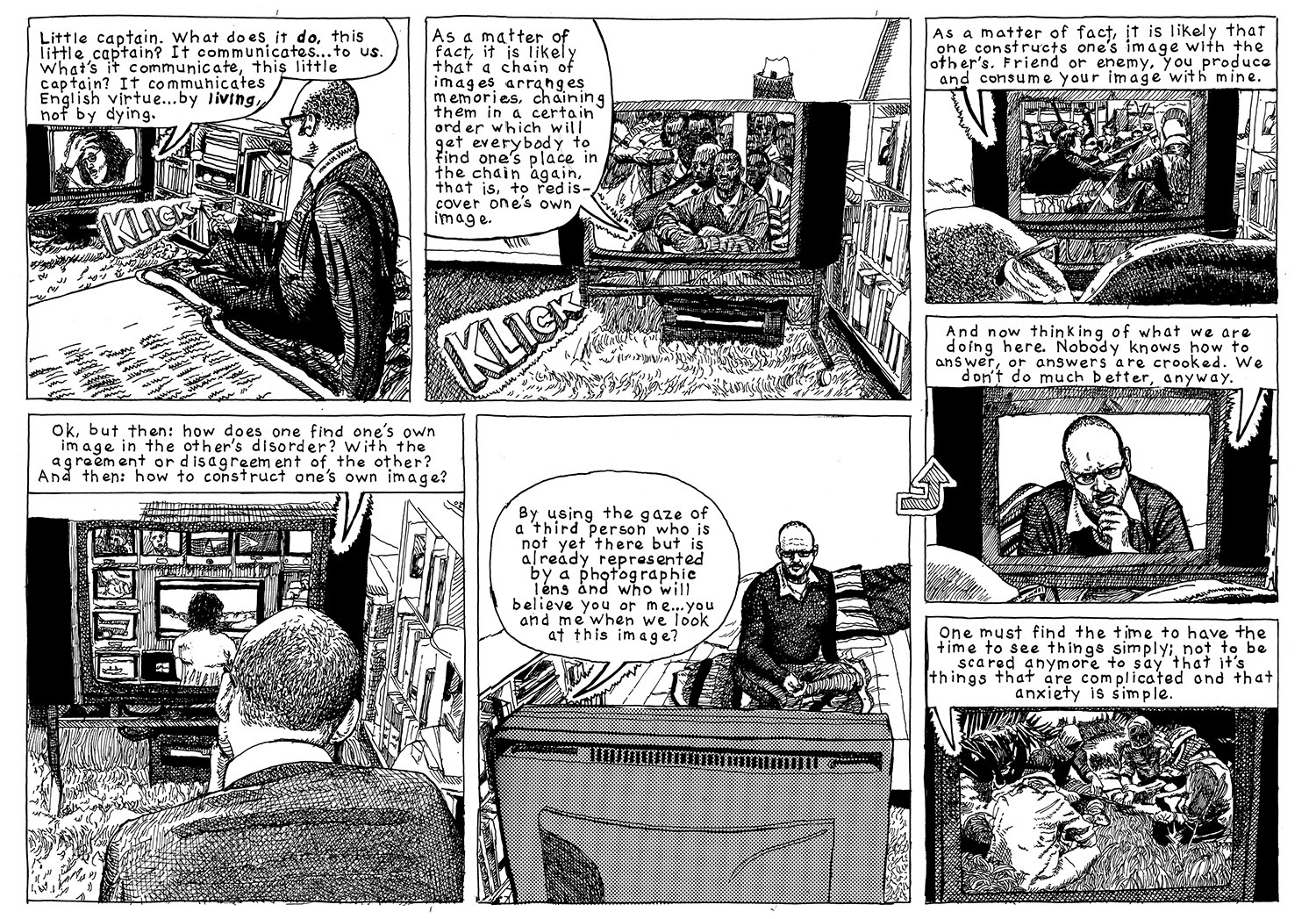
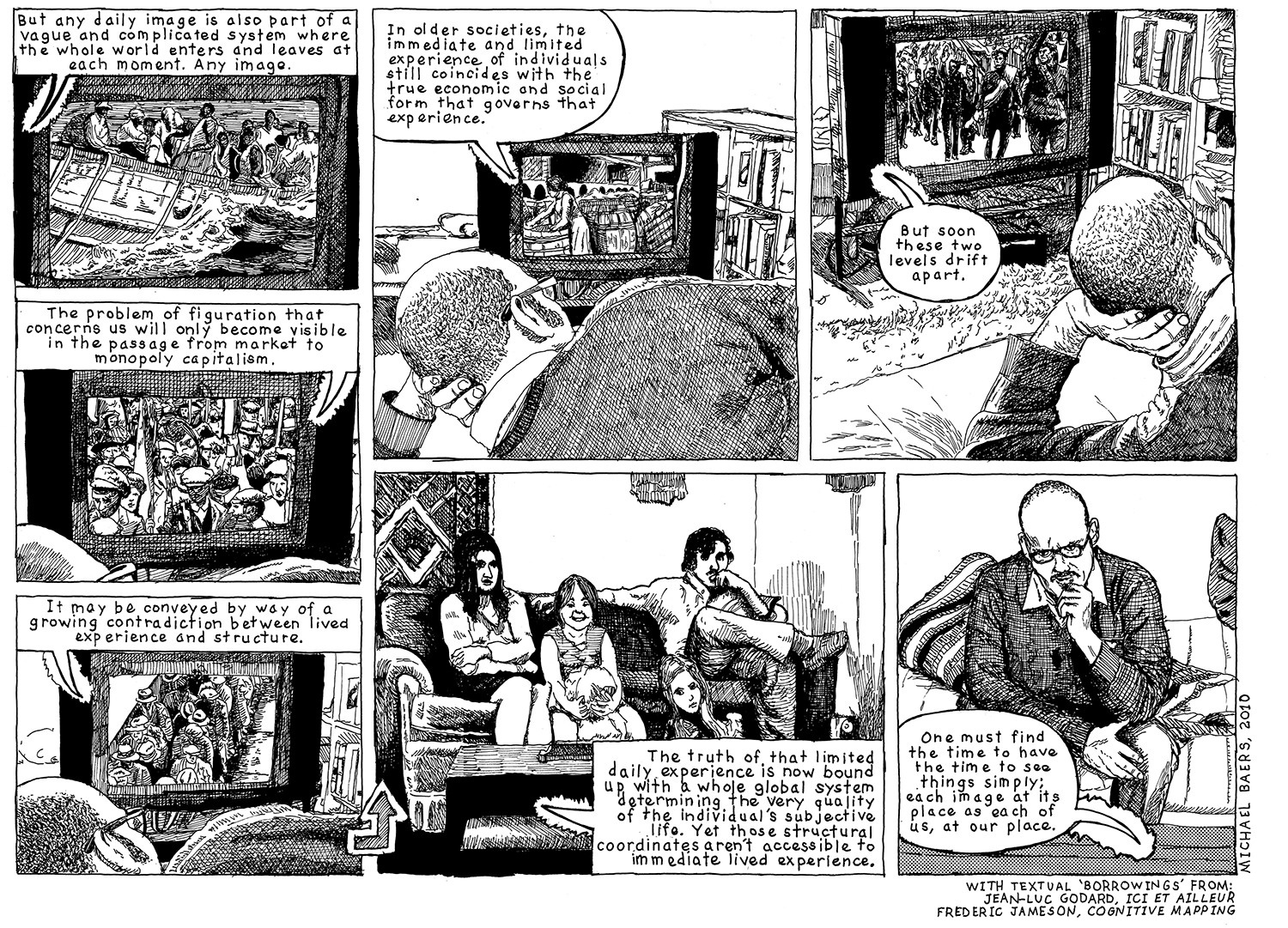
Untitled: Destroyed Palestinian Village
News of Common Possibility: EVERYTHING FAMILIAR HAS DISAPPEARED
Broadsheet publication printed in newsprint
News of Common Possibility was a thematic newspaper series initiated by Anthony Marcellini and produced in collaboration with invited guest editors. Marcellini invited me to participate in an issue with the following text, quoted in part: “On December 31, 1995, New Years Eve day, cartoonist Bill Watterson published the last of his syndicated Calvin and Hobbes newspaper comic strips. In this final cartoon, newly fallen snow has blanketed Calvin and Hobbes' world, abstracting it by turning everything, except the two central characters Calvin and Hobbes, into a field of black and white. … It seems that in our future, as Hobbes intones, everything familiar will disappear. With these prophetic words the third edition of News of Common Possibility takes this phrase as its title, aiming to create a two-page newspaper to commemorate the funny pages.” Of the seven artist who participated, I perhaps took the theme of disappearance most literally, with a comic about an experience I’d had in 2009, when a friend took me to visit the ruins of a Palestinian village.
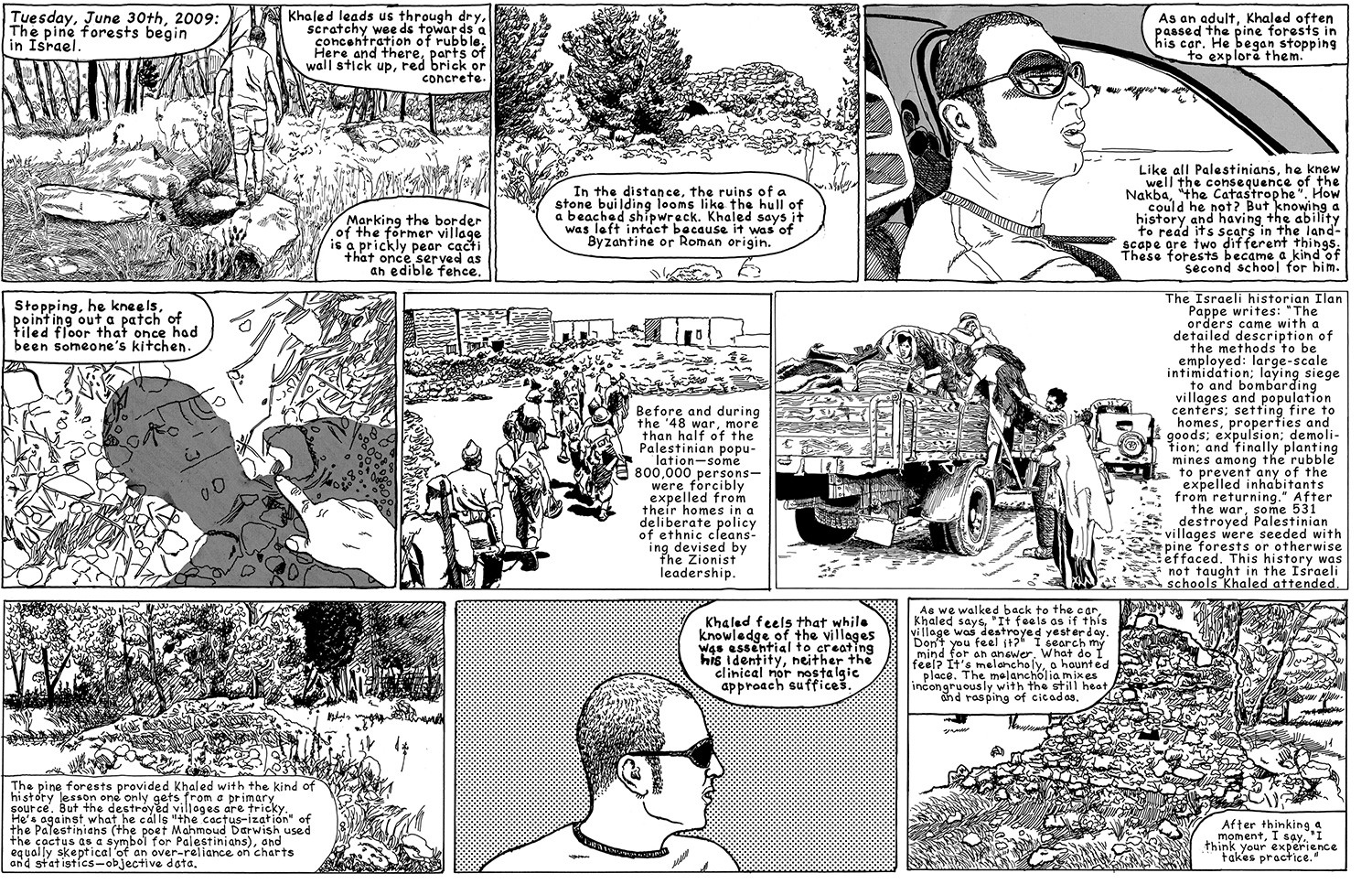
2009
“Concerning Matter to be Left for a Later Date”
(Parts 1- 4), e-flux journal, Nos. 3 — 7
Each episode of “Concerning Matter to be Left for a Later Date” was organized as a collaboration between myself and another artist or artists. We would work on the story and script together and then I would draw the comic based on this material. Episode one explained the premise, episode two revisited a failed collaboration between myself and artist Pia Rönicke concerning the notorious Danish terrorists, the Blekingegadebandens, episode three saw me traveling to Romania to explore survivalist strategy in Bucharest with Alexandra Croitoru and Stefan Tiron, and in episode four I was sent to the Folkets Park in Mälmo by Annika Eriksson to see if I could catch a scent of a formerly robust social democratic ethos.
e-flux journal episode 1
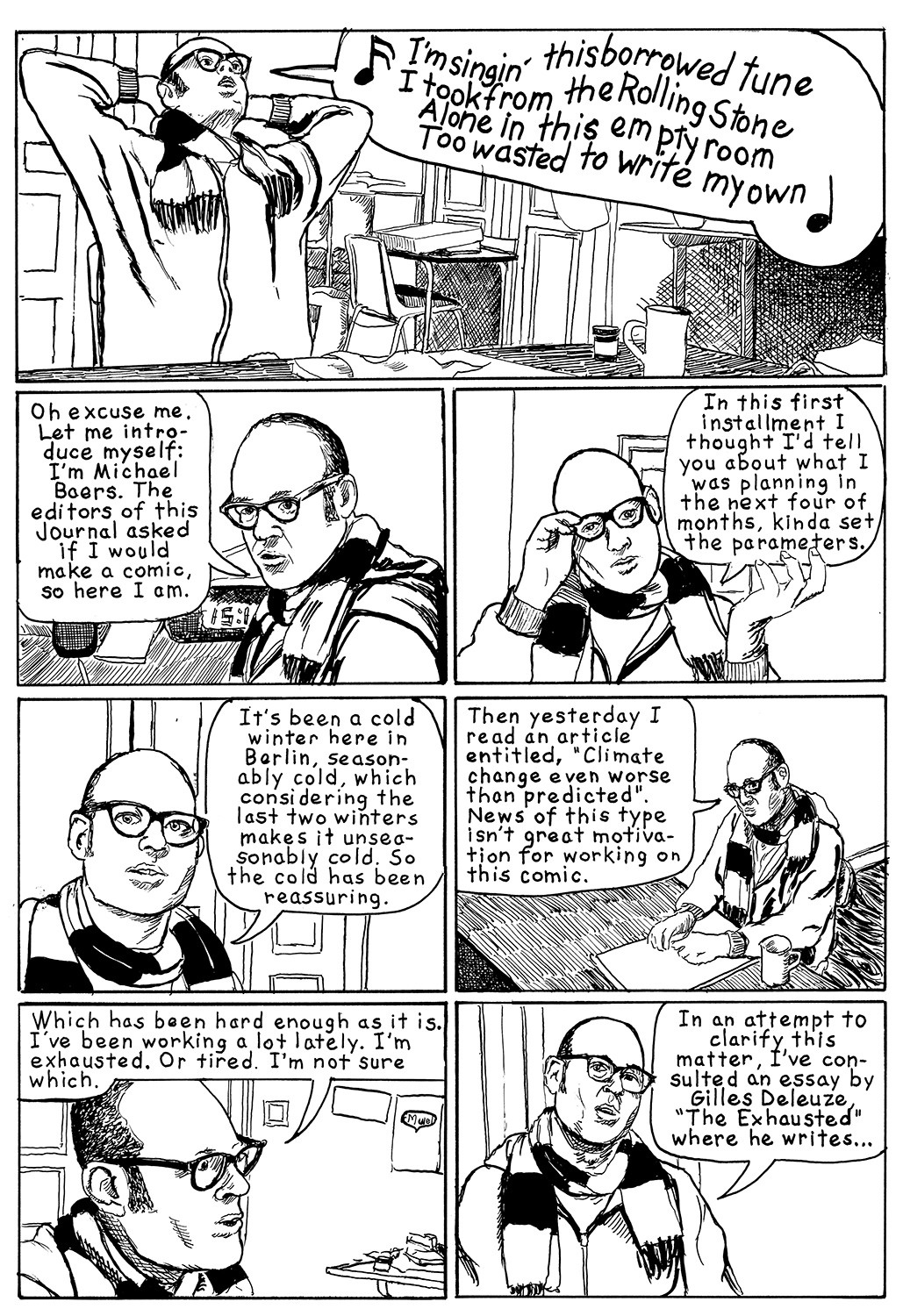
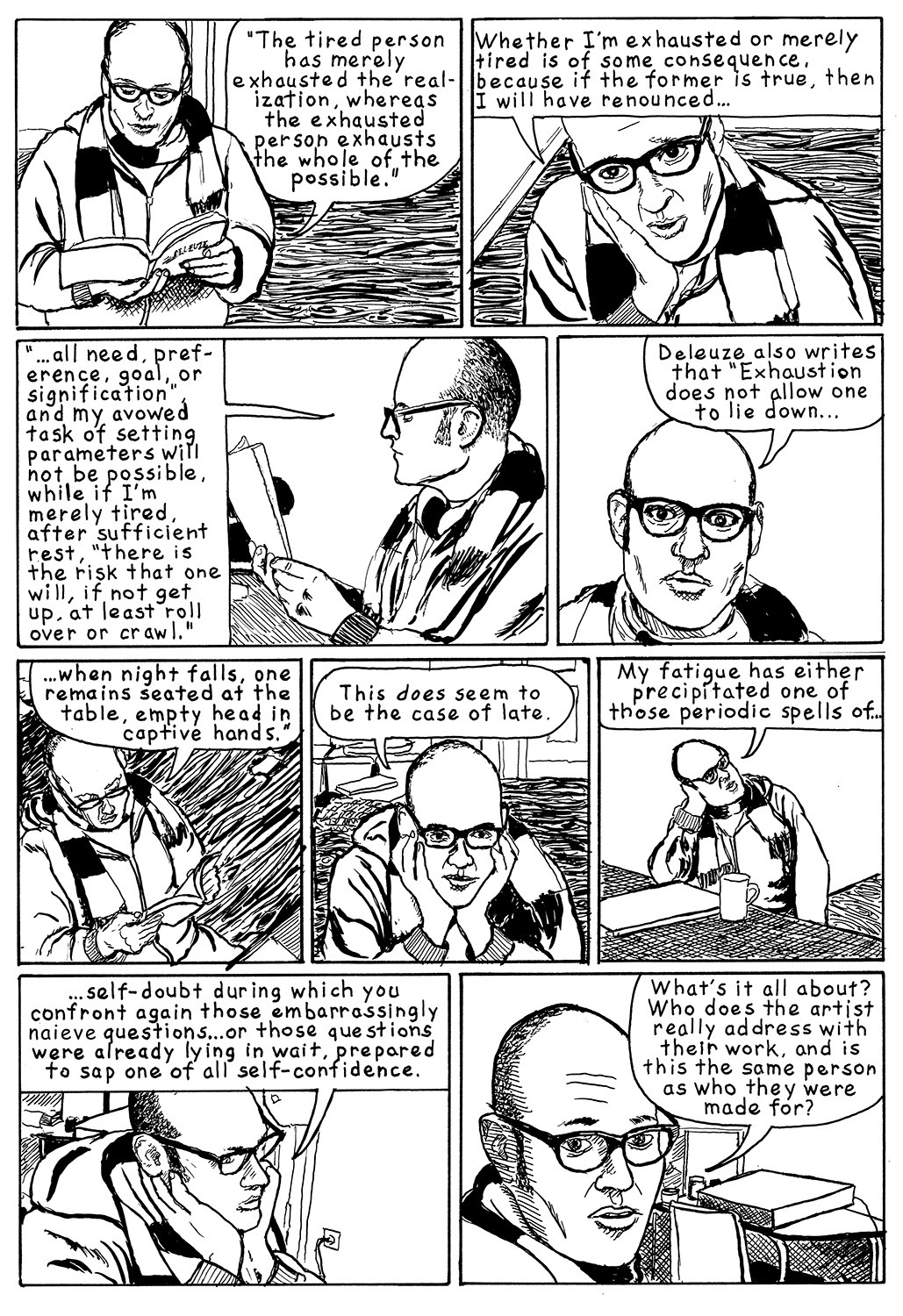
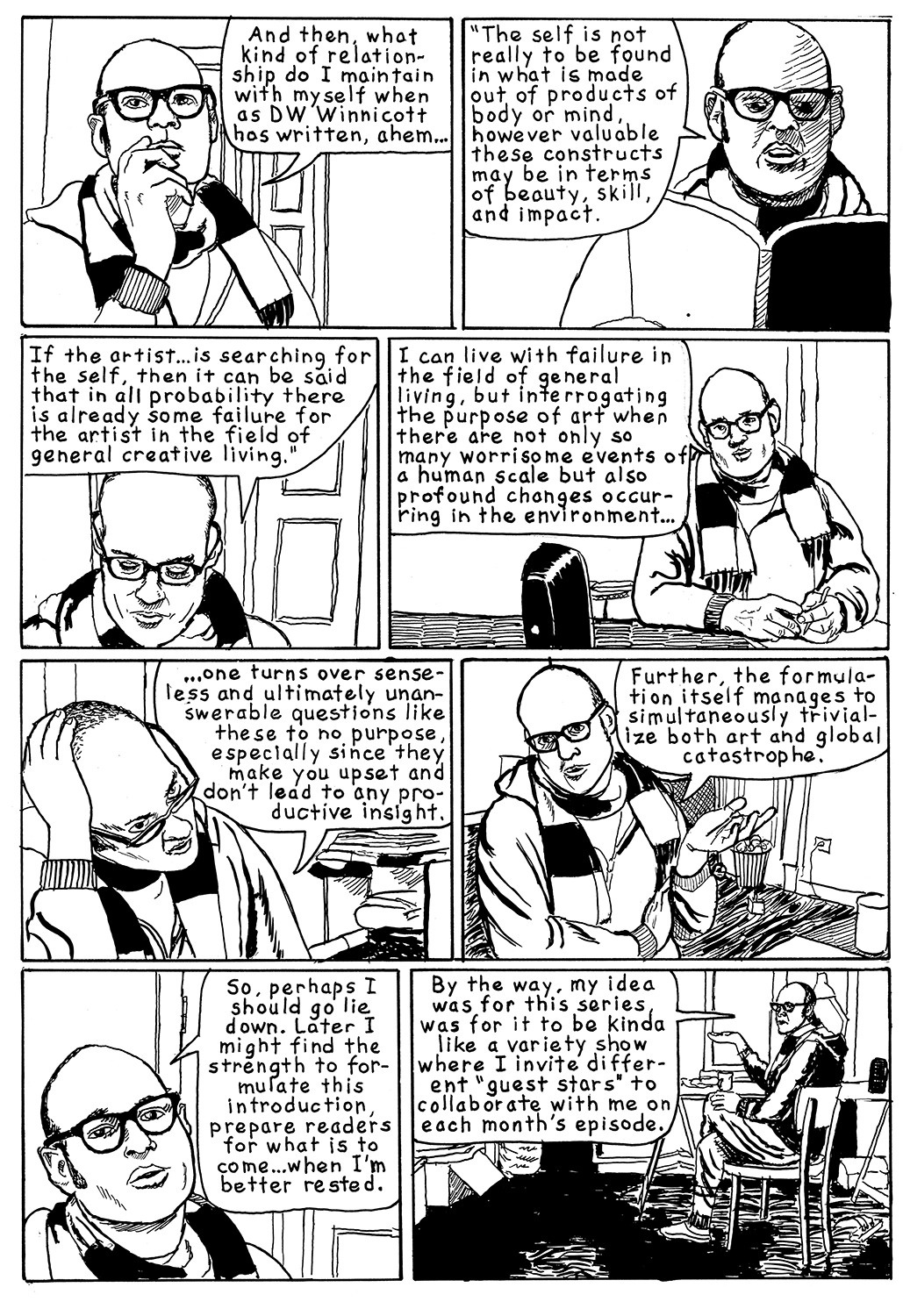
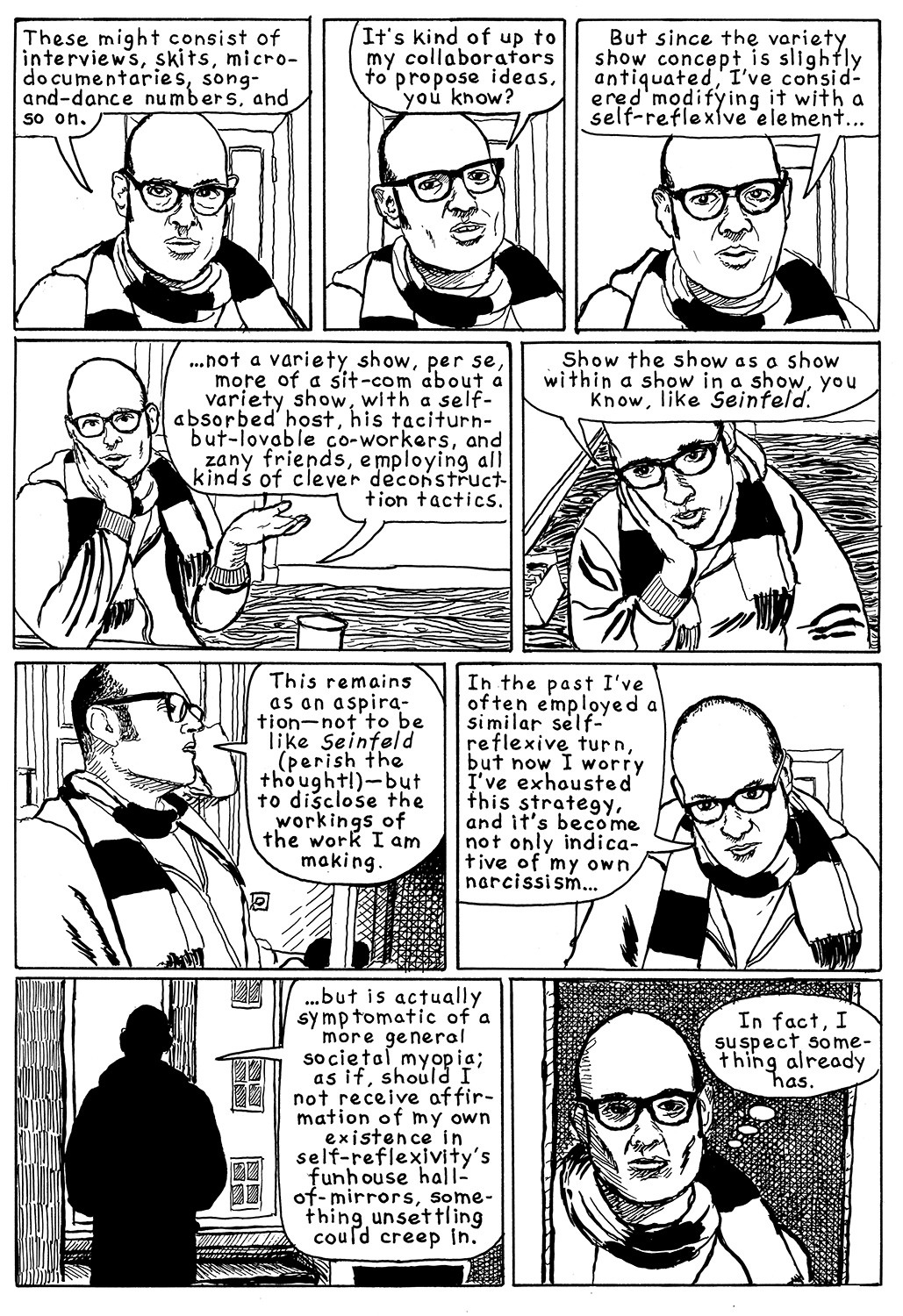
e-flux journal episode 2
e-flux journal episode 3
e-flux journal episode 4
“Michael Baers in Rotterdam”
e-flux journal reader 2009, Sternberg Press
A comic I made at the invitation of e-flux. I was suffering under the double trauma of my first trip to Palestine and the end of tumultuous love affair. I tried to make something out of this.
2008
“Meta Comics Presents A day at the Opera or Rakett meets the New Public Management”
Sum Magazine for Contemporary Art, No. 3.
When asked to produce a contribution for a new Danish art magazine, I chose to detail the vagaries of a pilot public art project undertaken by the Norwegian curatorial duo Rakett in the Oslo harbor-front area. The question of to what extent was public art programming was used as a form of art-washing in the redevelopment of the Oslo harbor, which also involved certain dubious forms of public-private partnerships emblematic of what was called at the time “the new public management, ” were given a Godardian treatment in this comic, with a special nod to Harun Farocki.
“What Life Could Be” Fucking Good Art #20 (“The Swiss Issue”)
The last in a series of collaborations with the editors of Fucking Good Art, this comic was based on a visit to Zurich while the editors of Fucking Good Art were on residency, undertaken so the three of us could delve into the question of the chemical secret to enlightenment in the native land of Albert Hofmann, inventor of LSD (who had only recently died at the age of 102). Plotted, appropriately enough, as a road movie, the comic was organized around a visit to the fabled Alte Sylvester celebration held in the Swiss town of Urnasch.
Michael Baers in A Home For Lost Ideas
This comic was originally made for a book project entitled A Home For Lost Ideas, but the editors ultimately chose not to include it in their book. I included it in my Selected Work For Publications 2005 — 2010 from 2011.
2007
“Tramps Like Us. Collective Statement: A Day at the Riots or The Social Democratic Carnivalesque “ Fucking Good Art #16
The second, copiously footnoted collaboration with Dutch artzine Fucking Good Art was undertaken after the three of us found ourselves in Copenhagen shortly after a massive riot, caused by the closure of the popular Jungdomshuset (youth house) venue. FGA #16 had both an “import” and an “export” version, hence the two different versions presented here.
Meta-Comics Presents: A Conversation with Yvette Brackman:
This work was made for an issue of the Russian magazine Chto Delat on the theme of vanguards and avant-gardes. It appeared in the magazine section of Documenta XII. For my contribution, and as a candid appraisal of how political and economic power is distributed globally (which, of course, affects the aspirations of any group identifying themselves with a vanguard or avant-garde position), I chose to interview my friend Yvette Brackman who was nearing the end of a collaborative project she had initiated between Sami people living in northern Russia and the Spanish shoe manufacturer and erstwhile NGO collaborator, Camper Shoes. This collaboration did not end especially well for anyone involved, with perhaps the exception of Camper. At the outset we sought to suggest the possibility of collaborating with big business as an authentically vanguard position. But, as the outcome of Brackman’s project suggests, our conversation instead revealed the pitfalls of such an undertaking. In the context of the publication, this work also reveals some problematics in conceptualizing notions of the vanguard and avant-garde as they exist in the current geo-political climate.

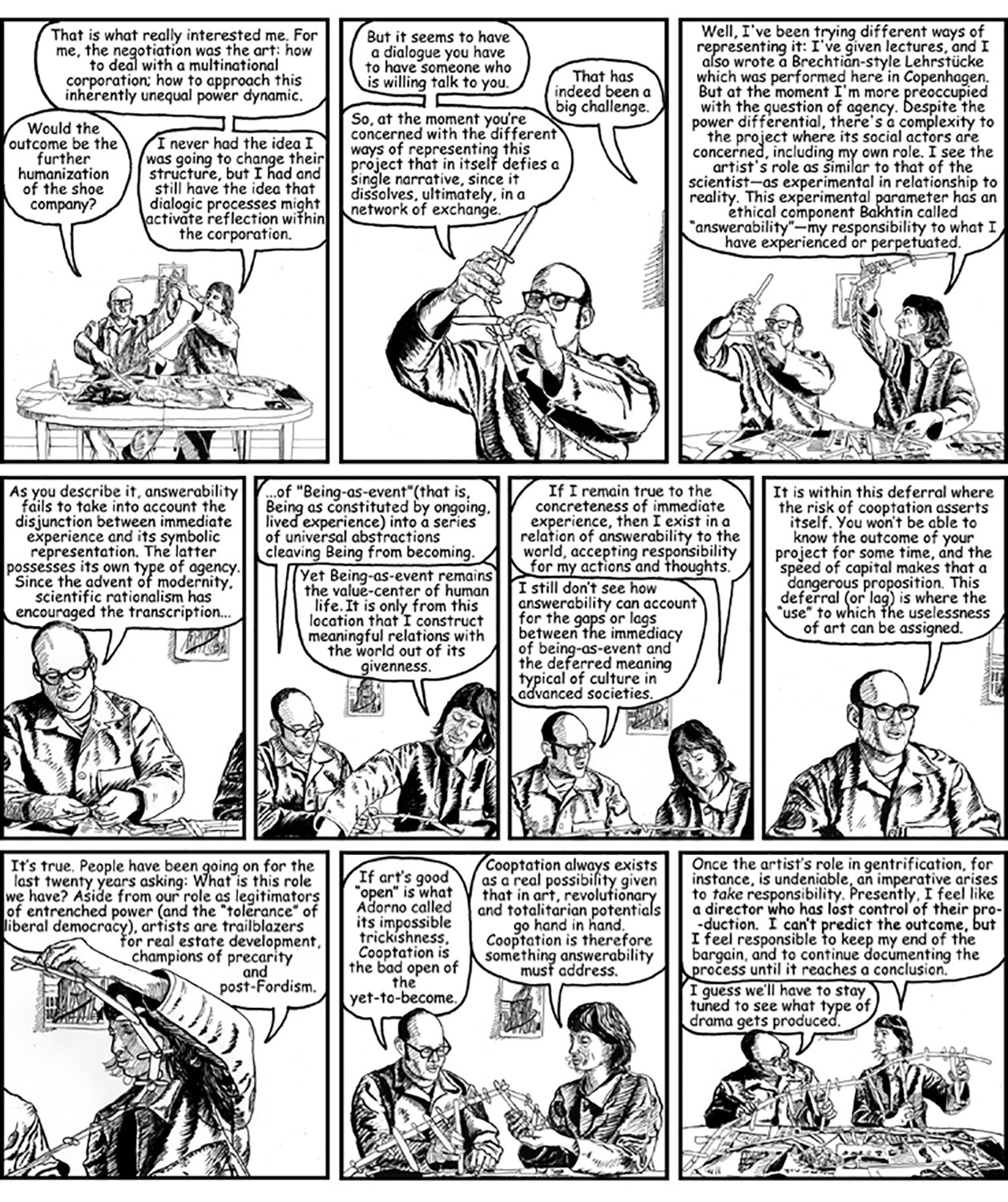
2006
“Meta-Comics Presents: The Suitcase Artist”
Fucking Good Art #12
This first collaboration with the Dutch artzine Fucking Good Art was published in their “International Edition, ” resulting from their research into the Berlin art scene. It was subsequently reprinted in the book Image Storage Containers by Jeff Weber.
What Is the Mystery?
When I was able to live for several months in a residency apartment in the freetown of Christiania in Copenhagen, one condition was to produce something for the community. The result of this bargain was the eight-episode-long “What is the Mystery? , ” a collaboration with a young Christianiter exploring the “dream image” that motivates the community to maintain its independence. The series originally ran in the Christiania weekly newsletter.
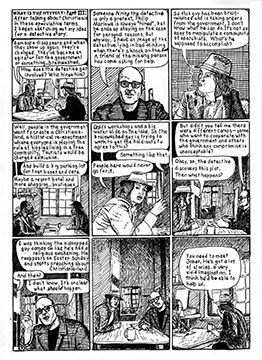
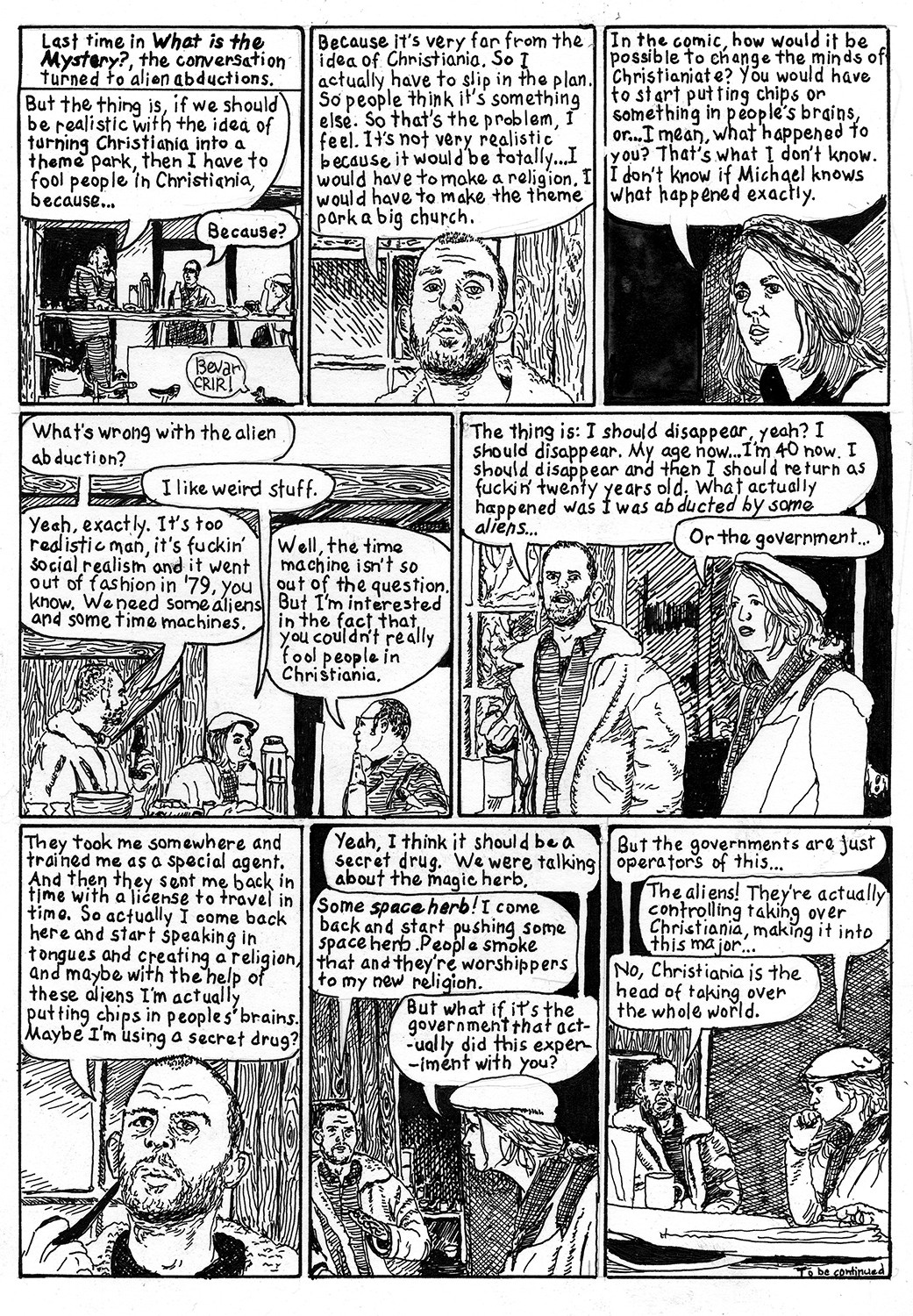
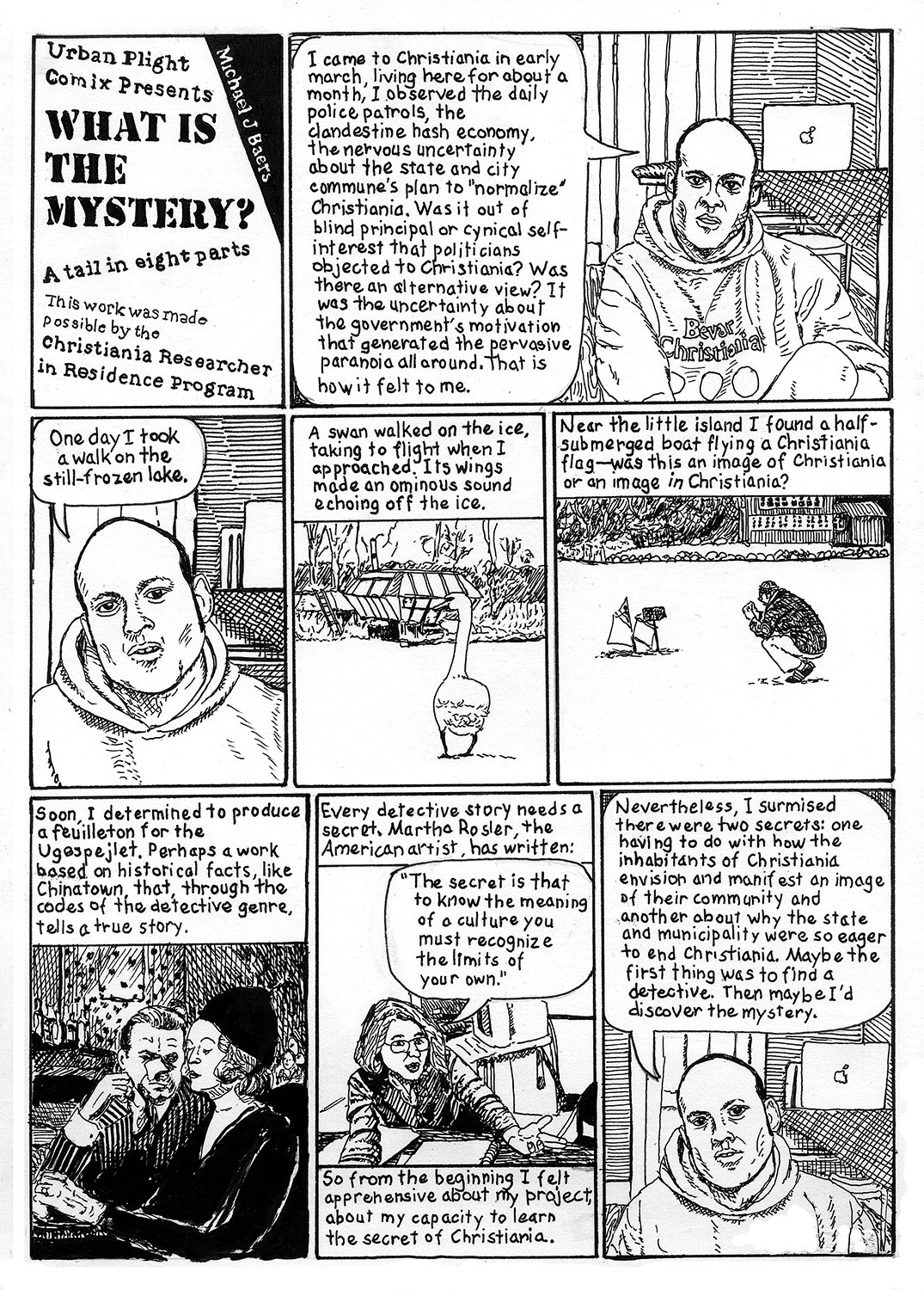
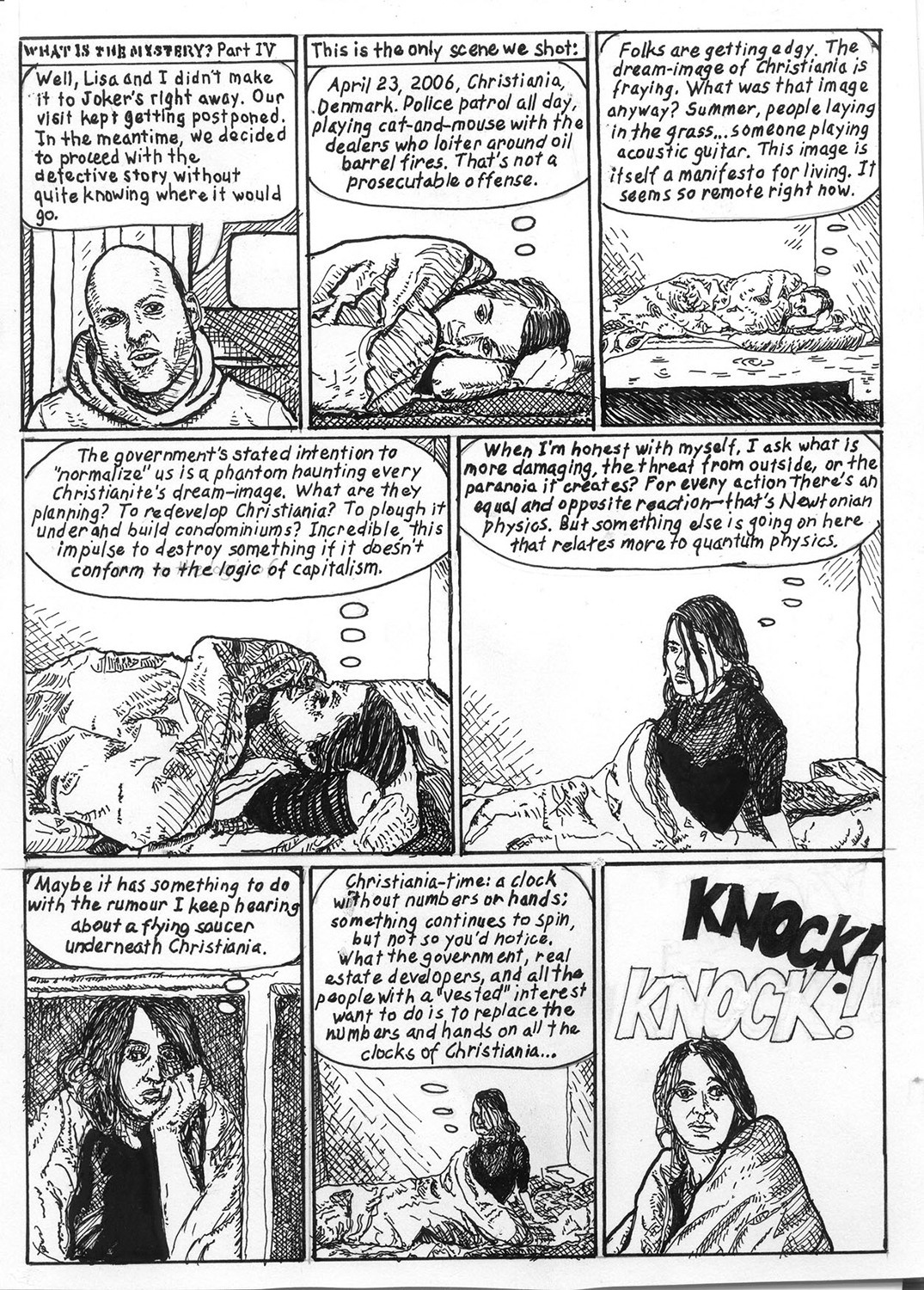
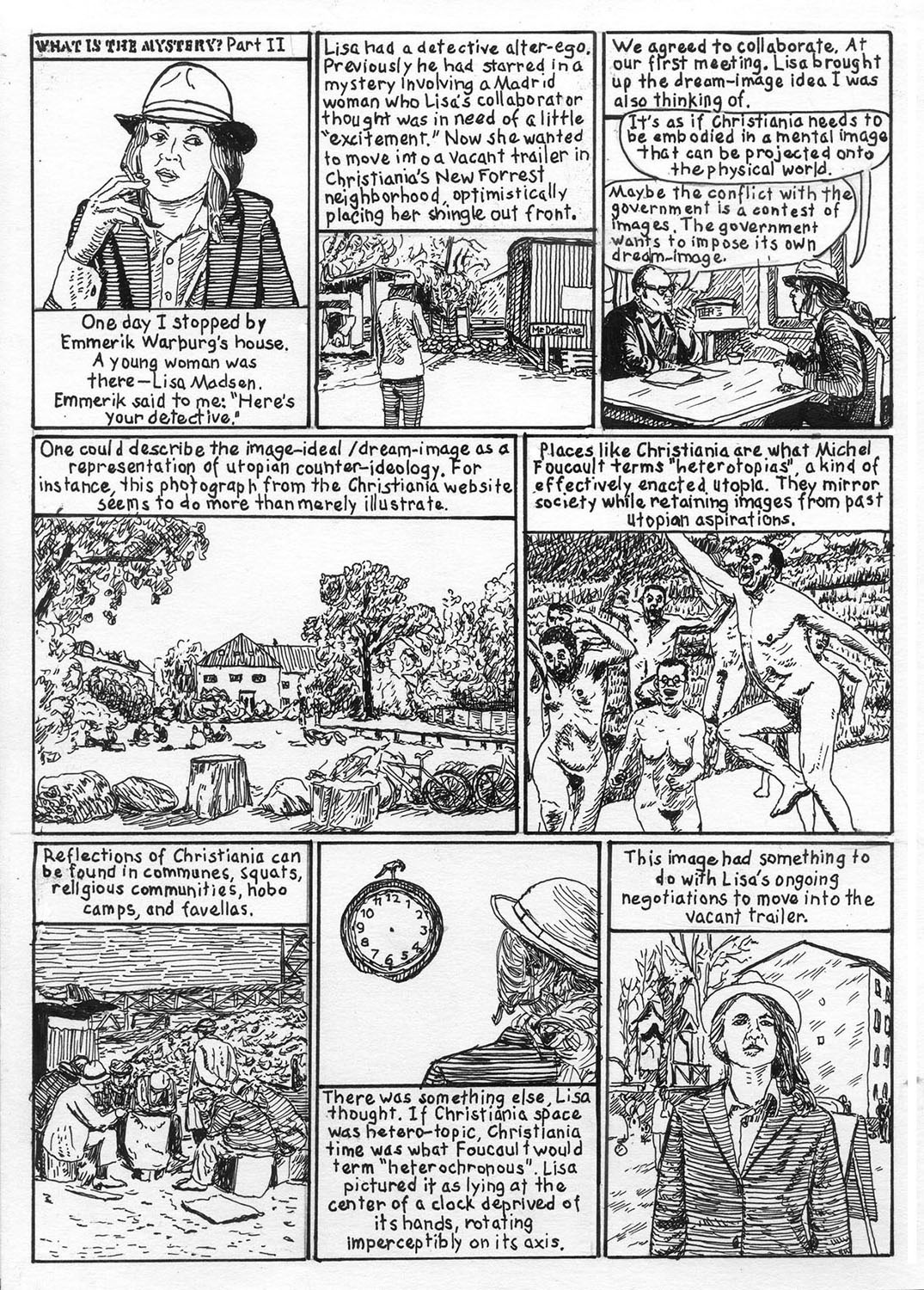
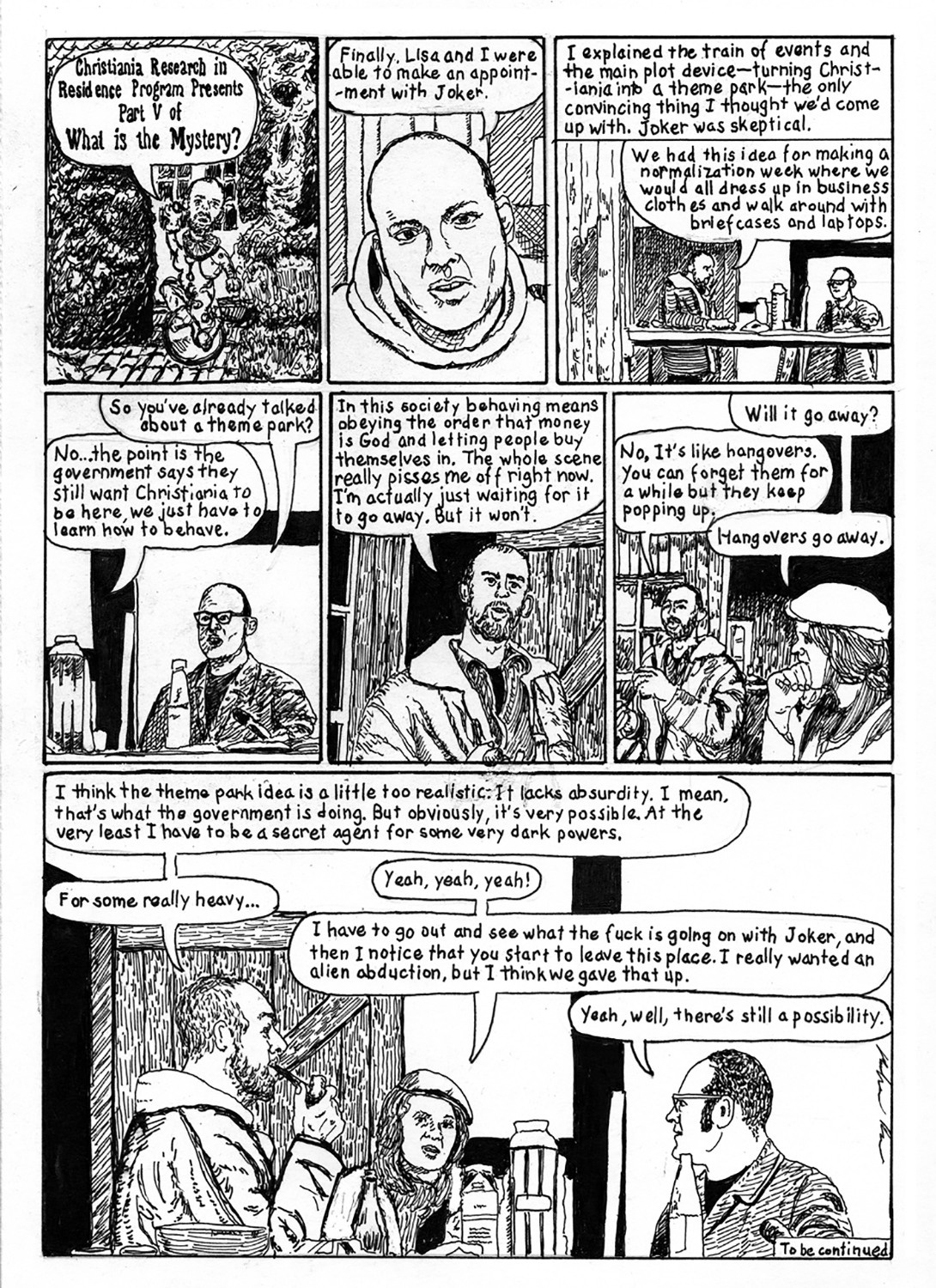
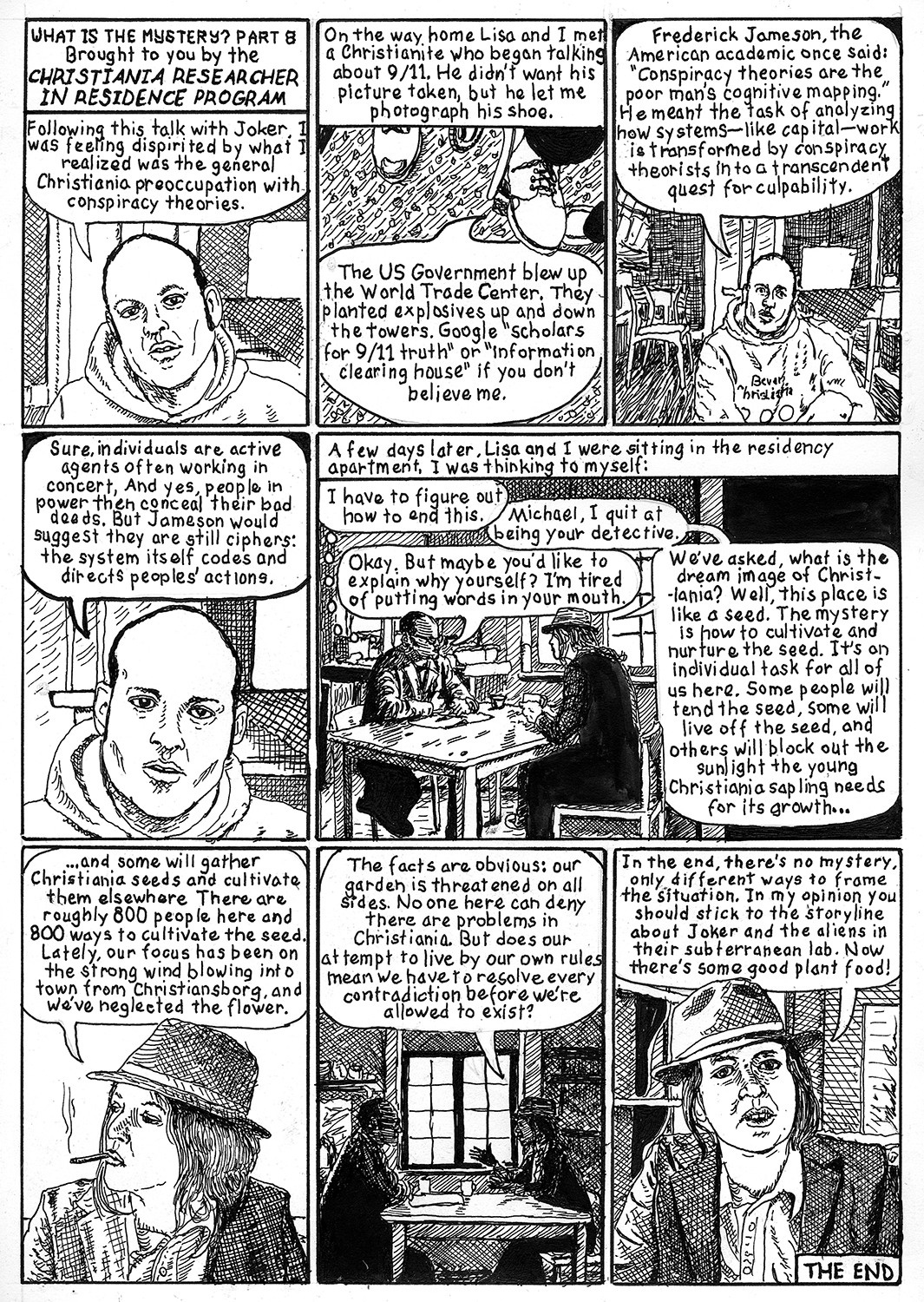
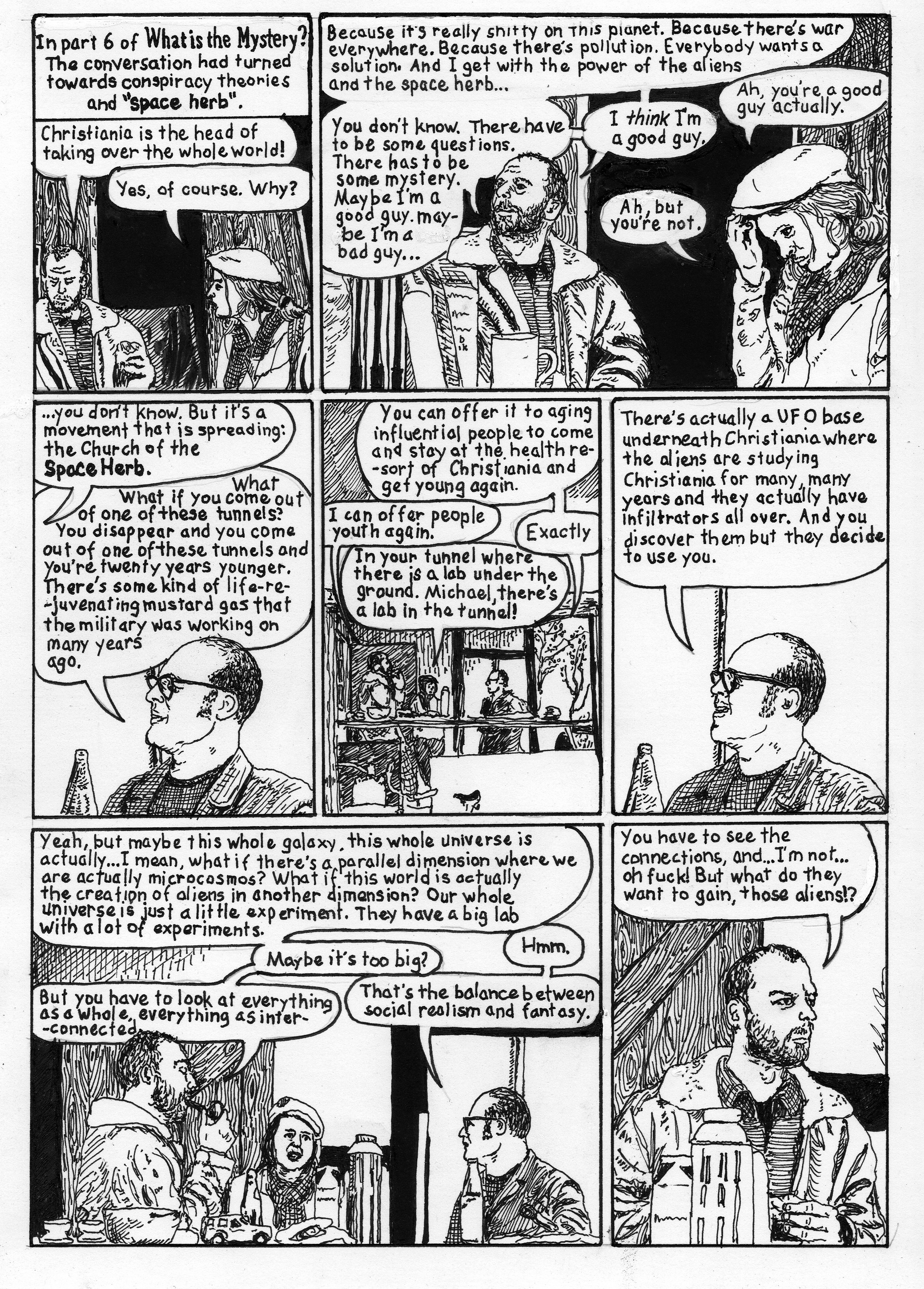
2005
Vernissage sur le Monde:
Originally published in a published in a newsprint publication edited by Carlos Motta and Julieta Aranda.
2004
Meta-Comics Presents: Michael Baers Reads a+= Statement on Meta-Art
This inaugural comic in the Meta-Art series (the first comic produced by the artist) sought to respond to Adrian Piper’s “Statement on Meta-Art”—where she sought to elaborate a thesis regarding the social and material conditions of art-making as a subject for art practice—in light of contemporary conditions within art production. The comic was based on eight photographs of the artist reading aloud, arranged as a permutation of the possible combinations in a two-page spread, with each page consisting of four panels per page.
Meta-Comics Presents: Annals of the BBC (Originally broadcast May 27, 2004)
This second comic in the Meta-Art series was based on a news segment broadcast on the BBC in which the announcer, Jackie Hardgrave, interviewed an artist, Sebastian Horsley, and an art critic, Louise Bock, who responded to the significance of a fire in the art storage warehouse of British collector Charles Saatchi, which destroyed many works by the YBA artists who had brought the collector to international renown.

